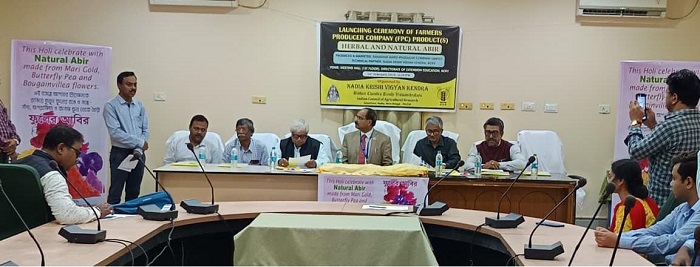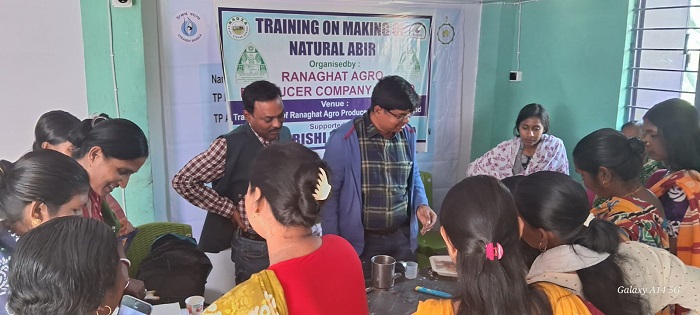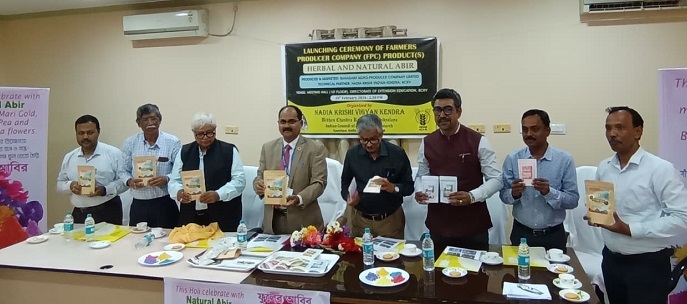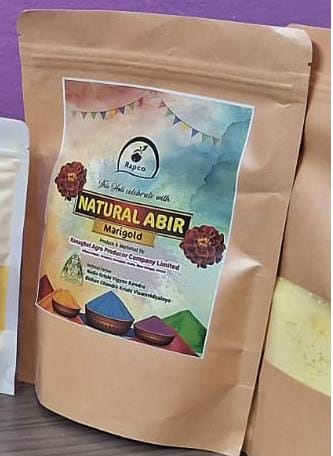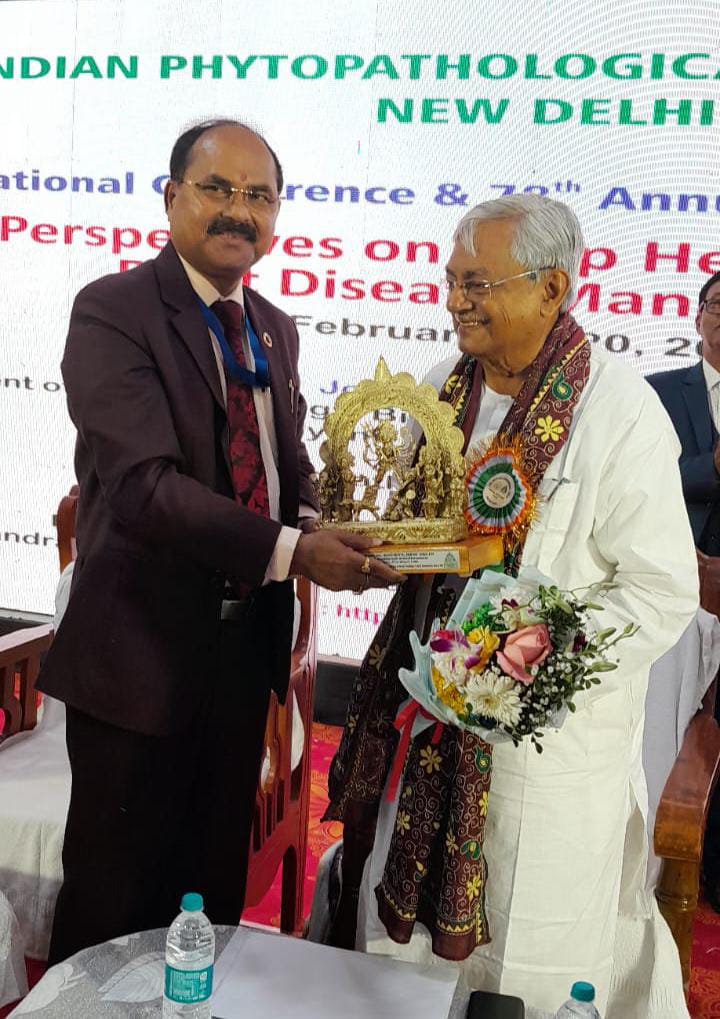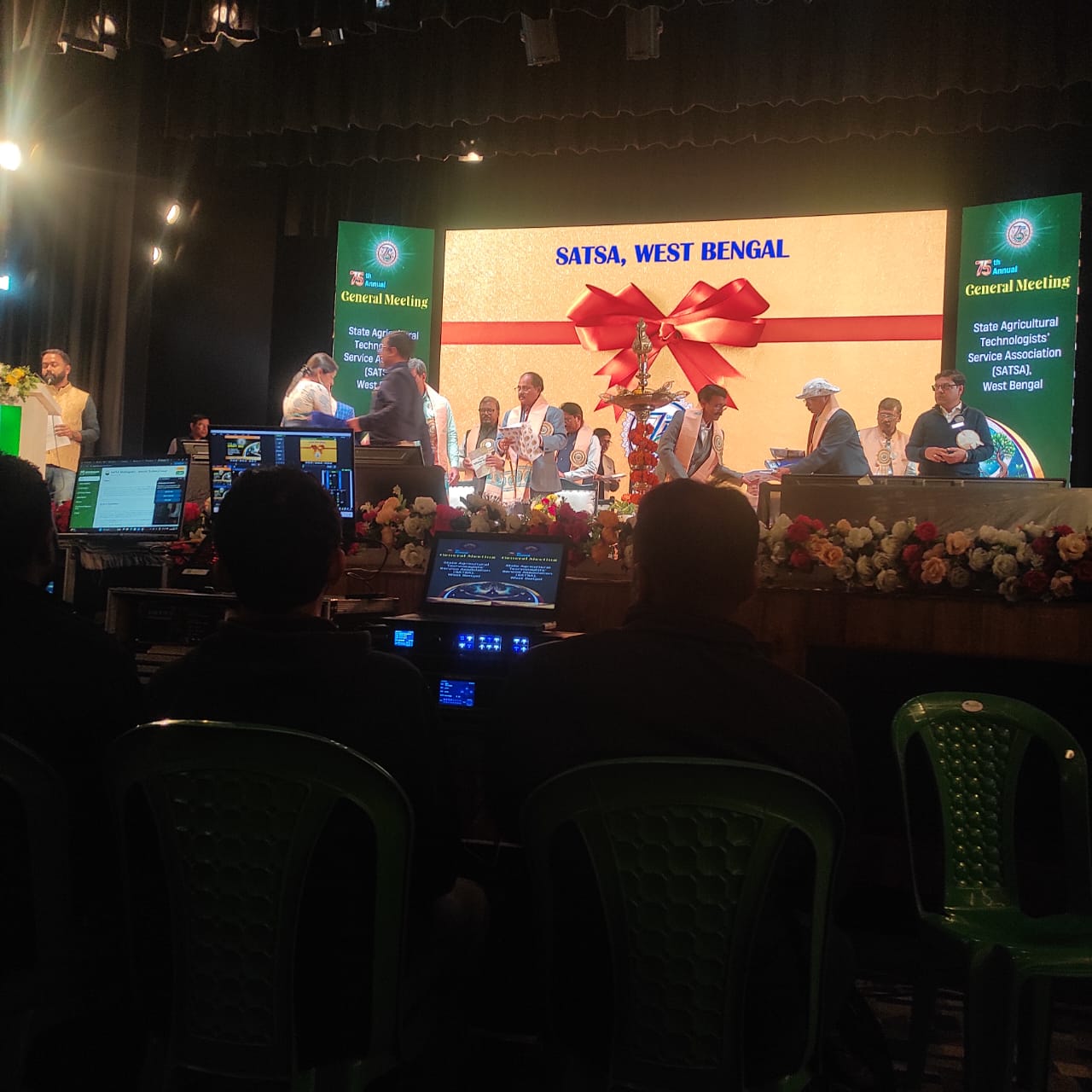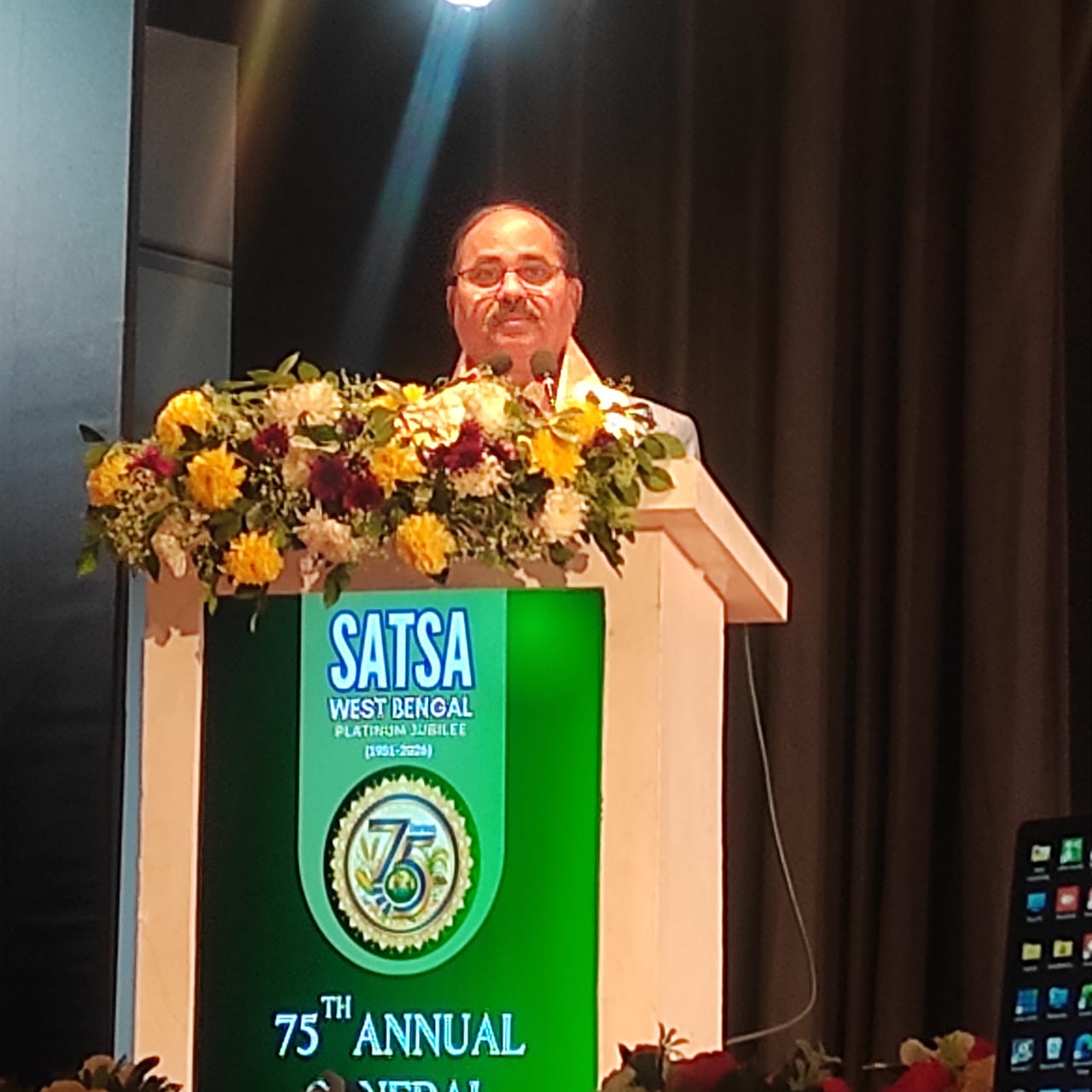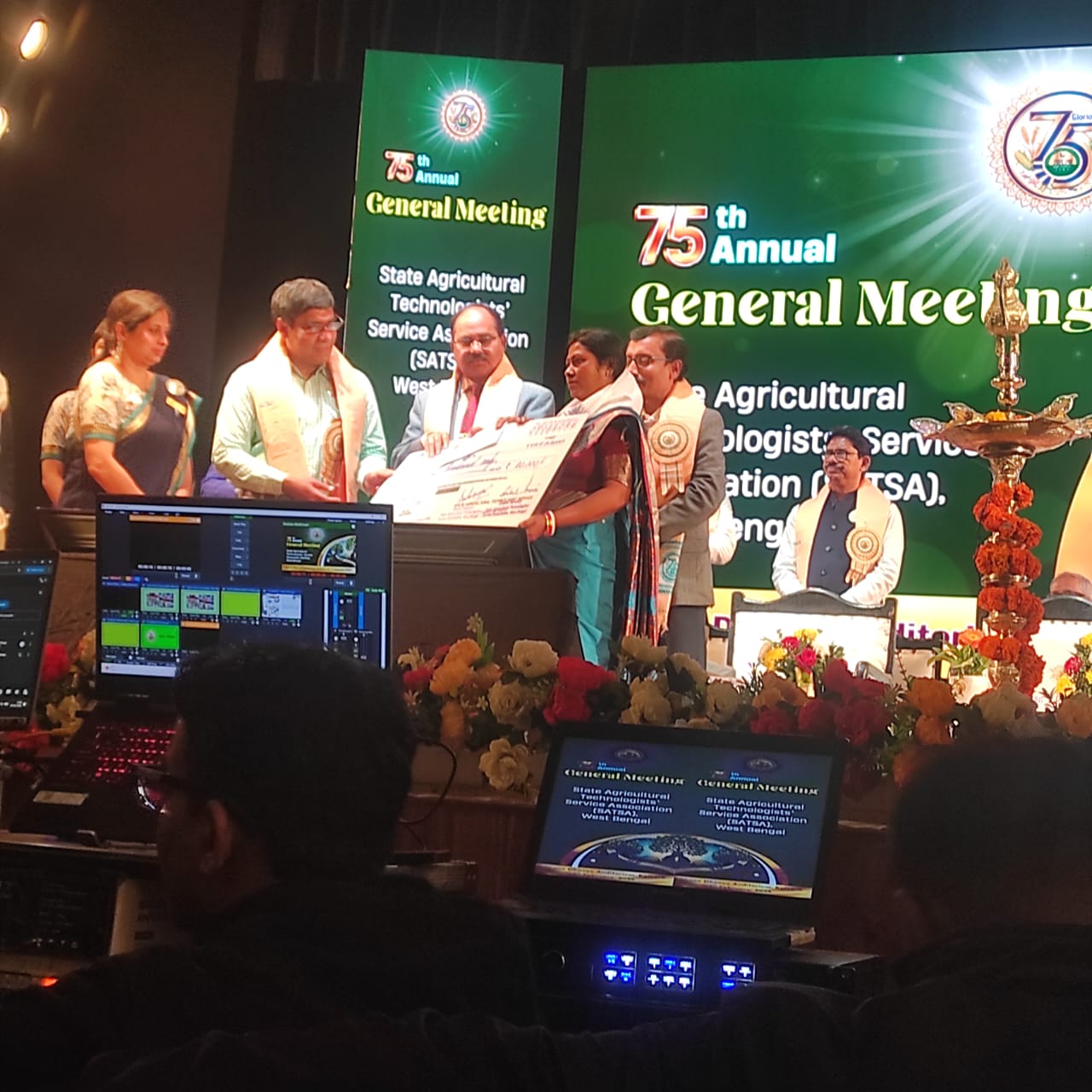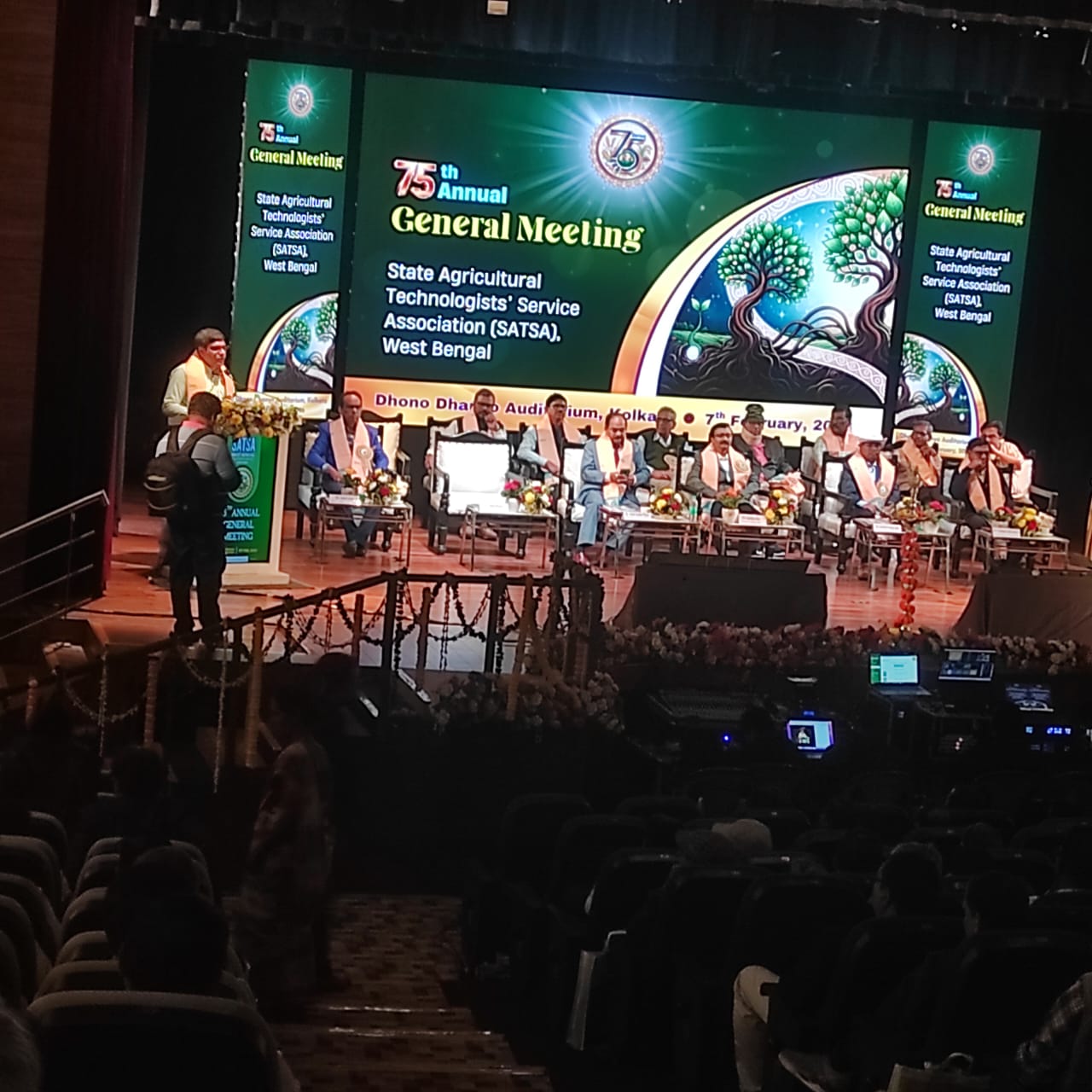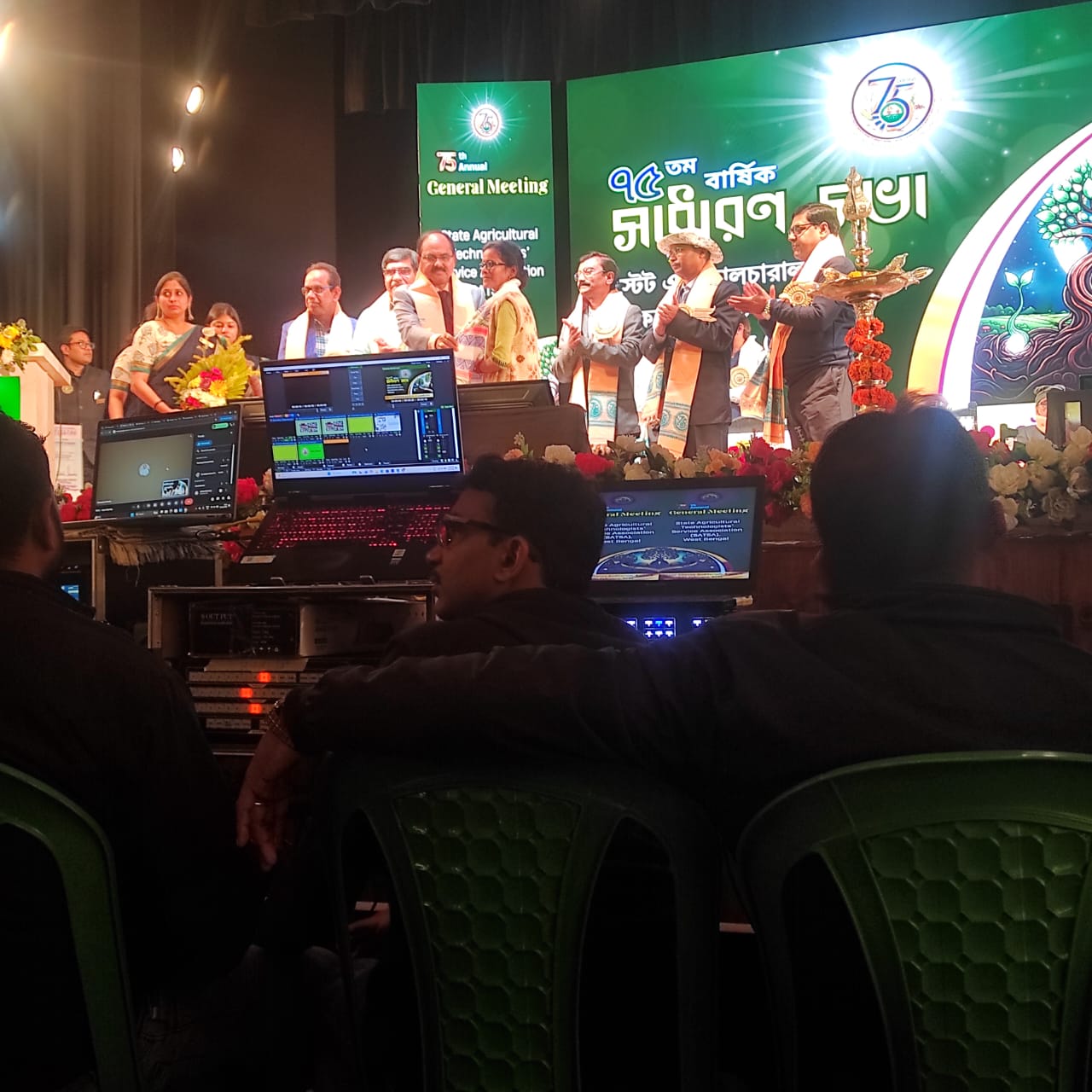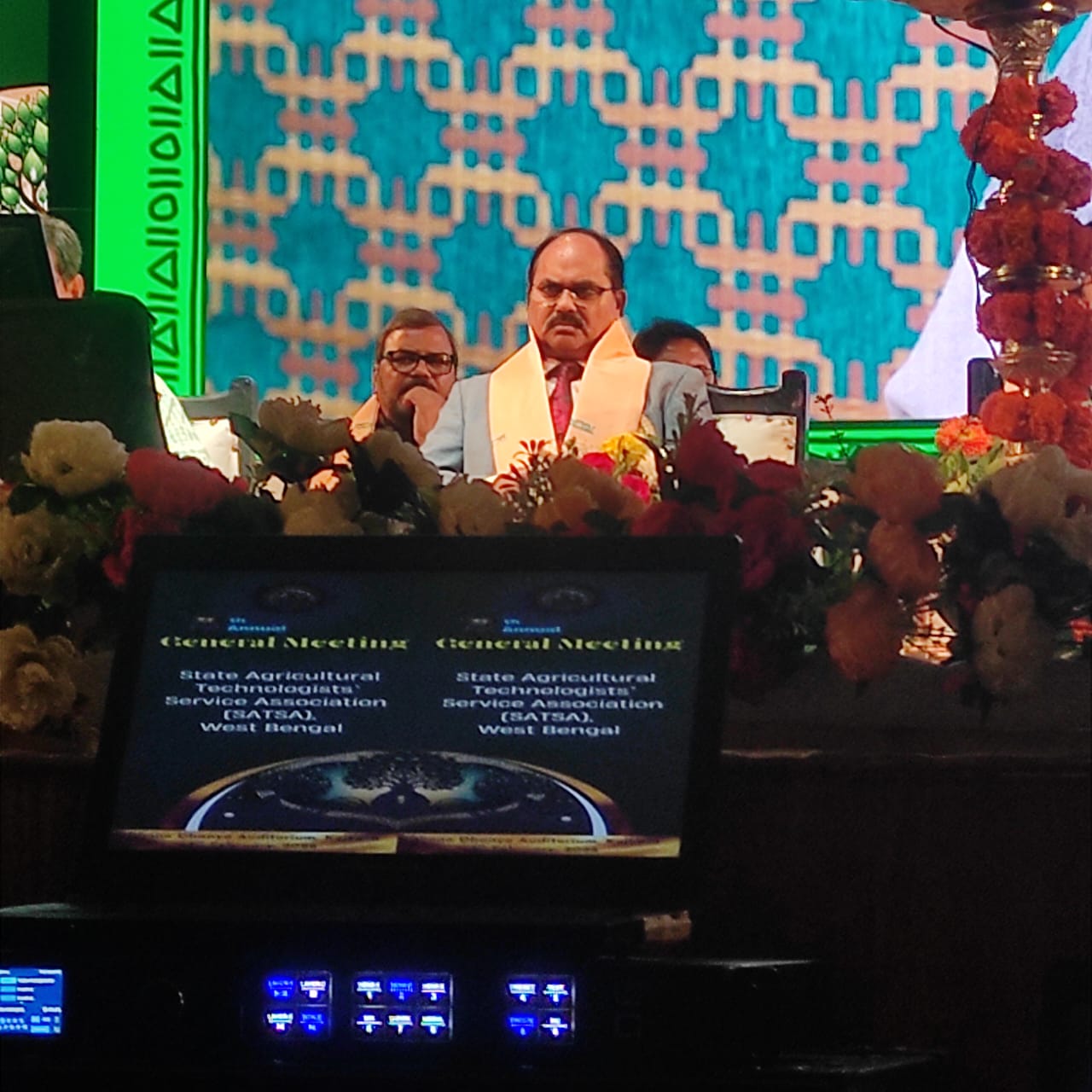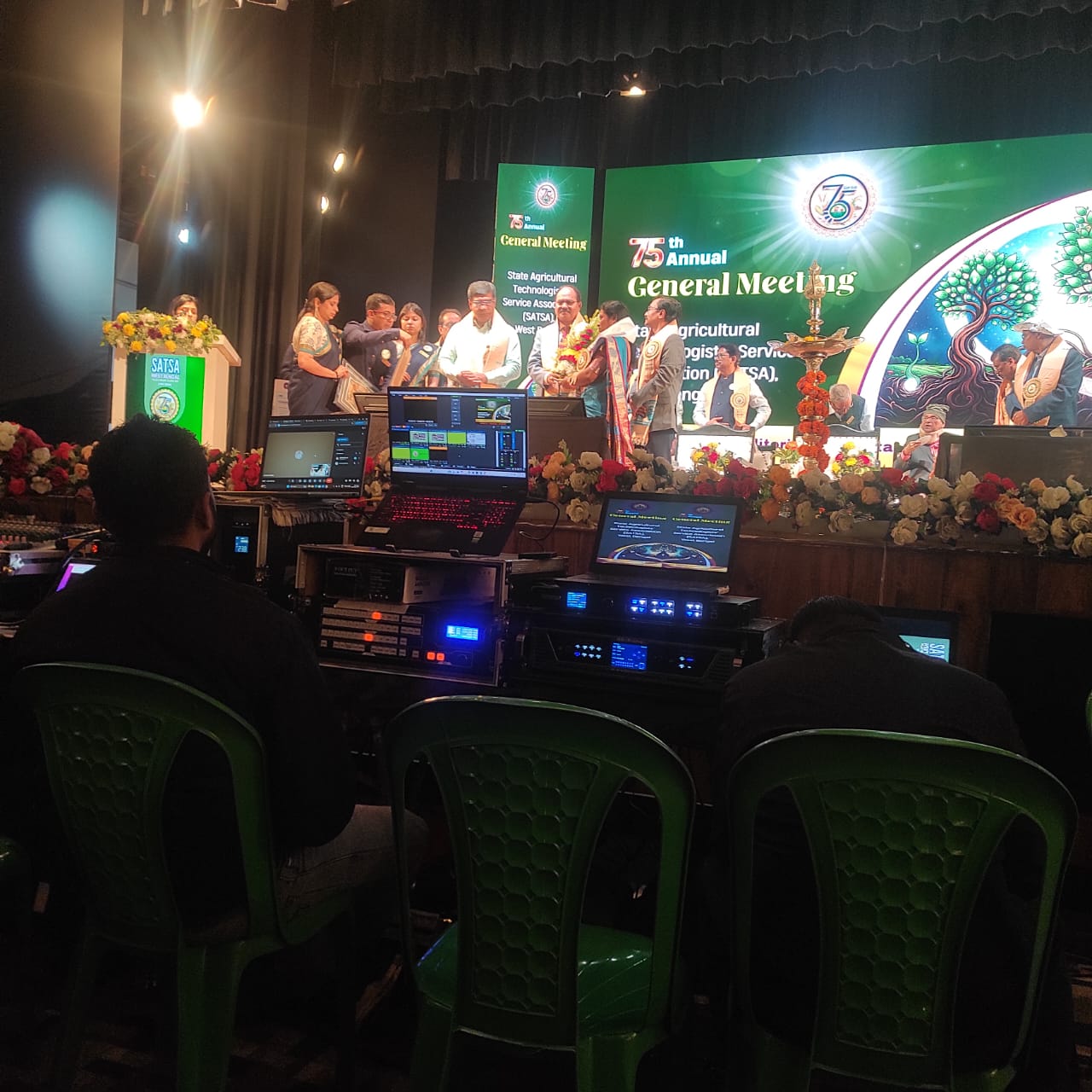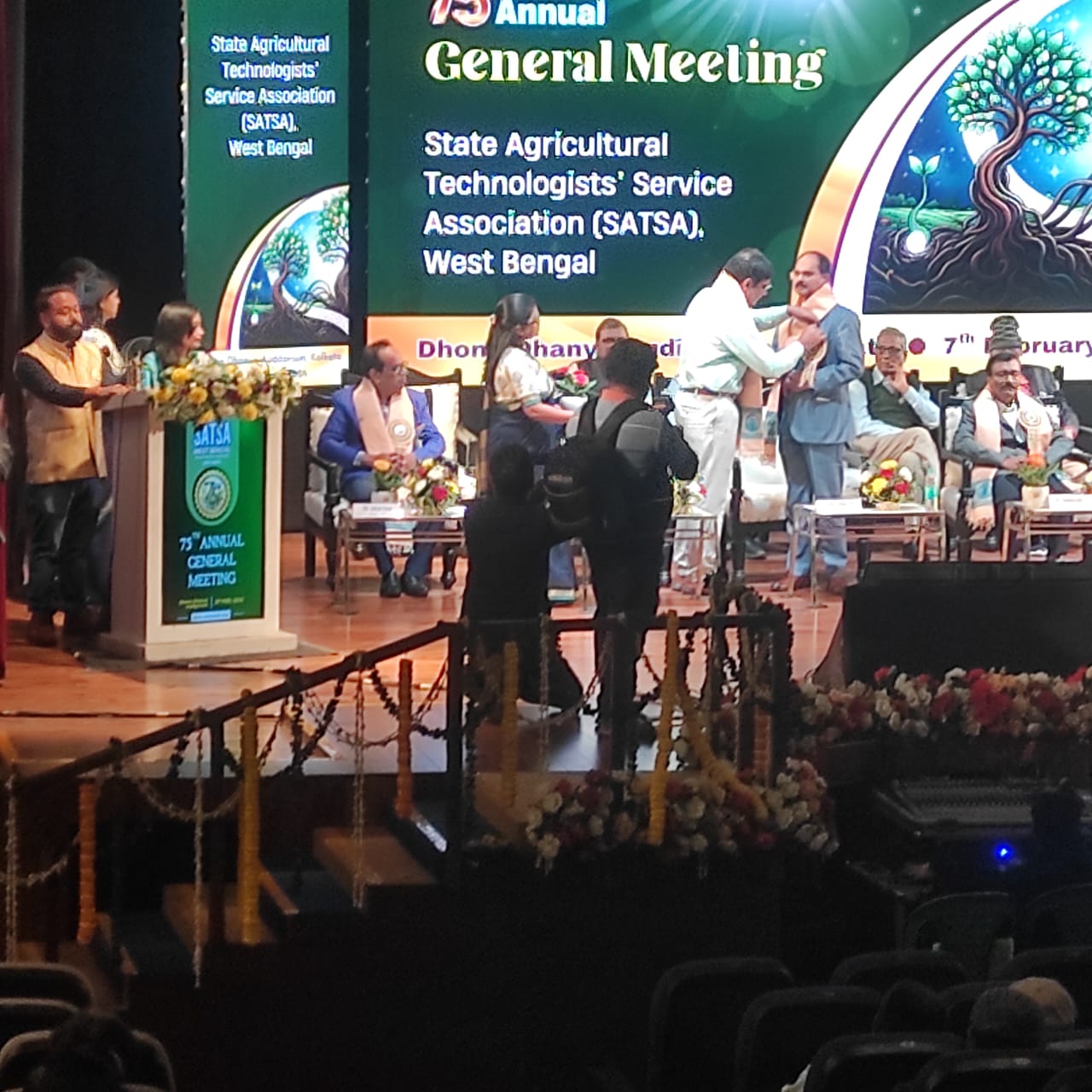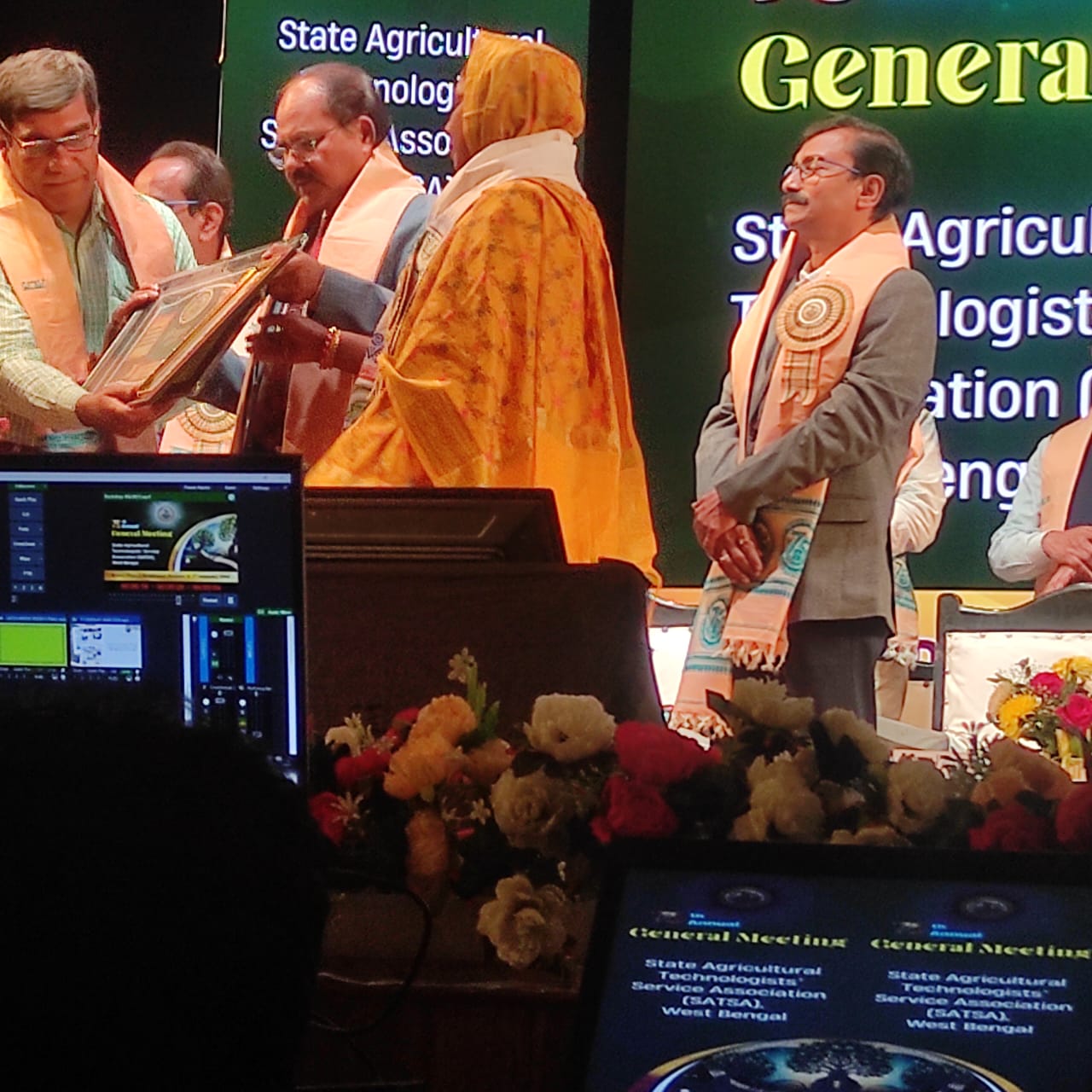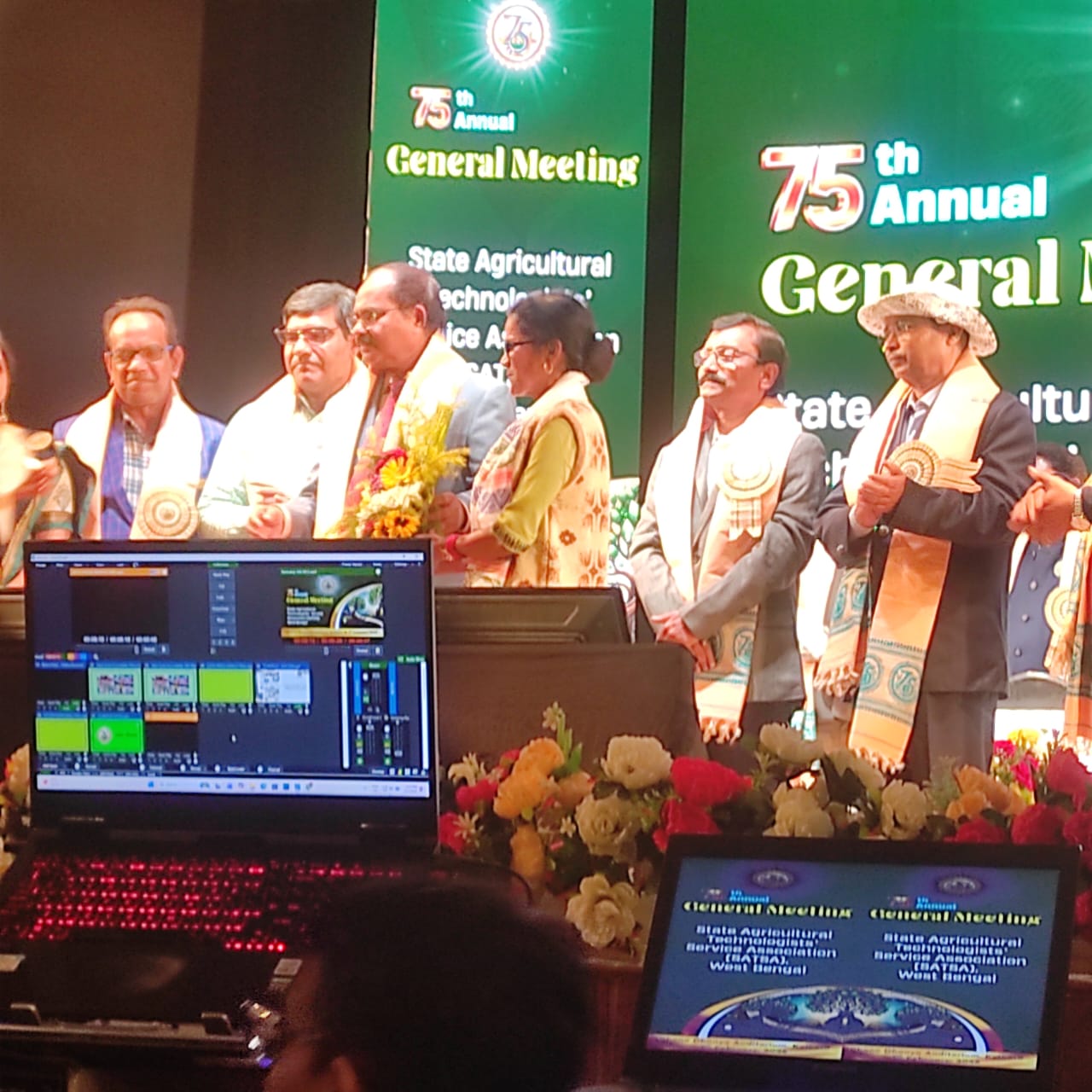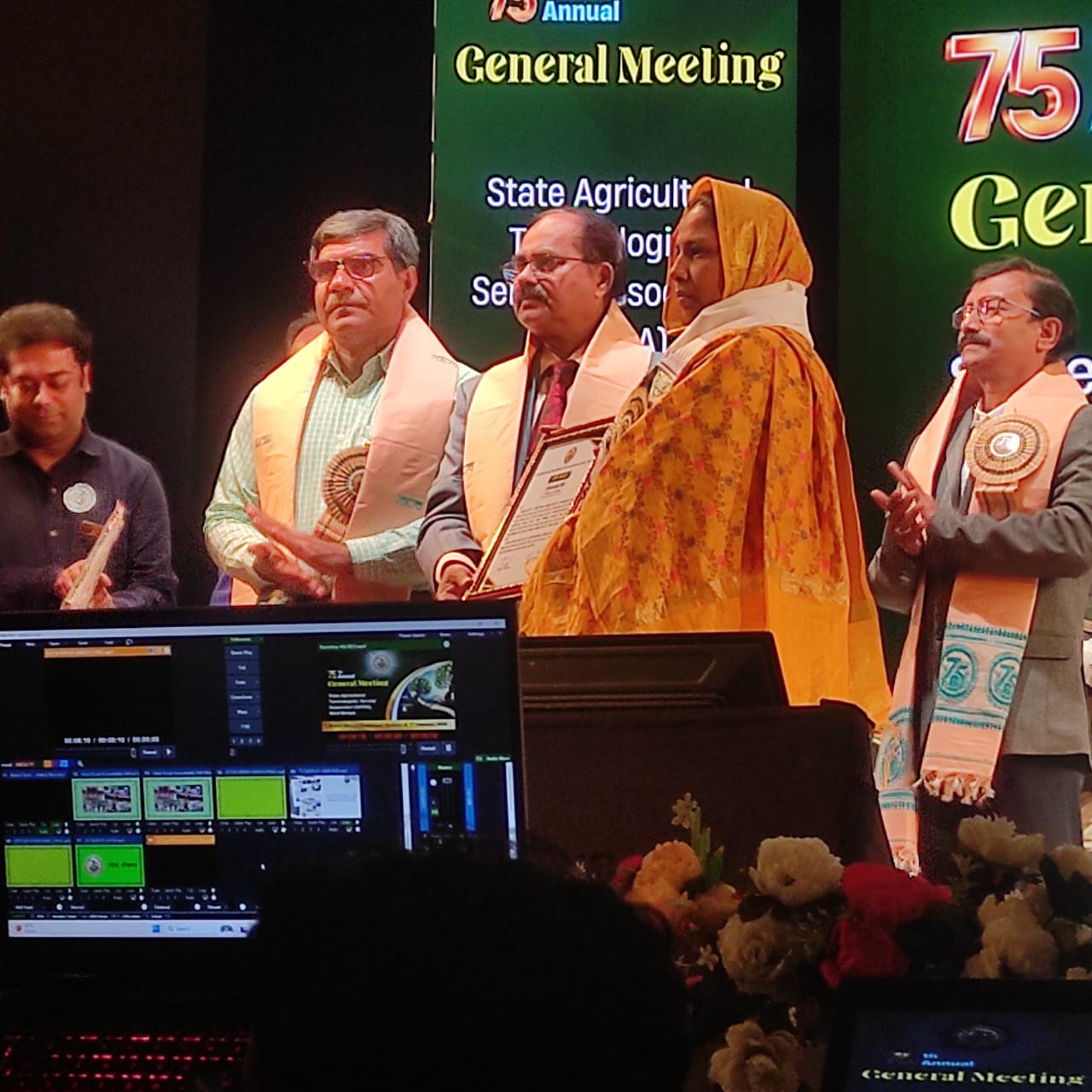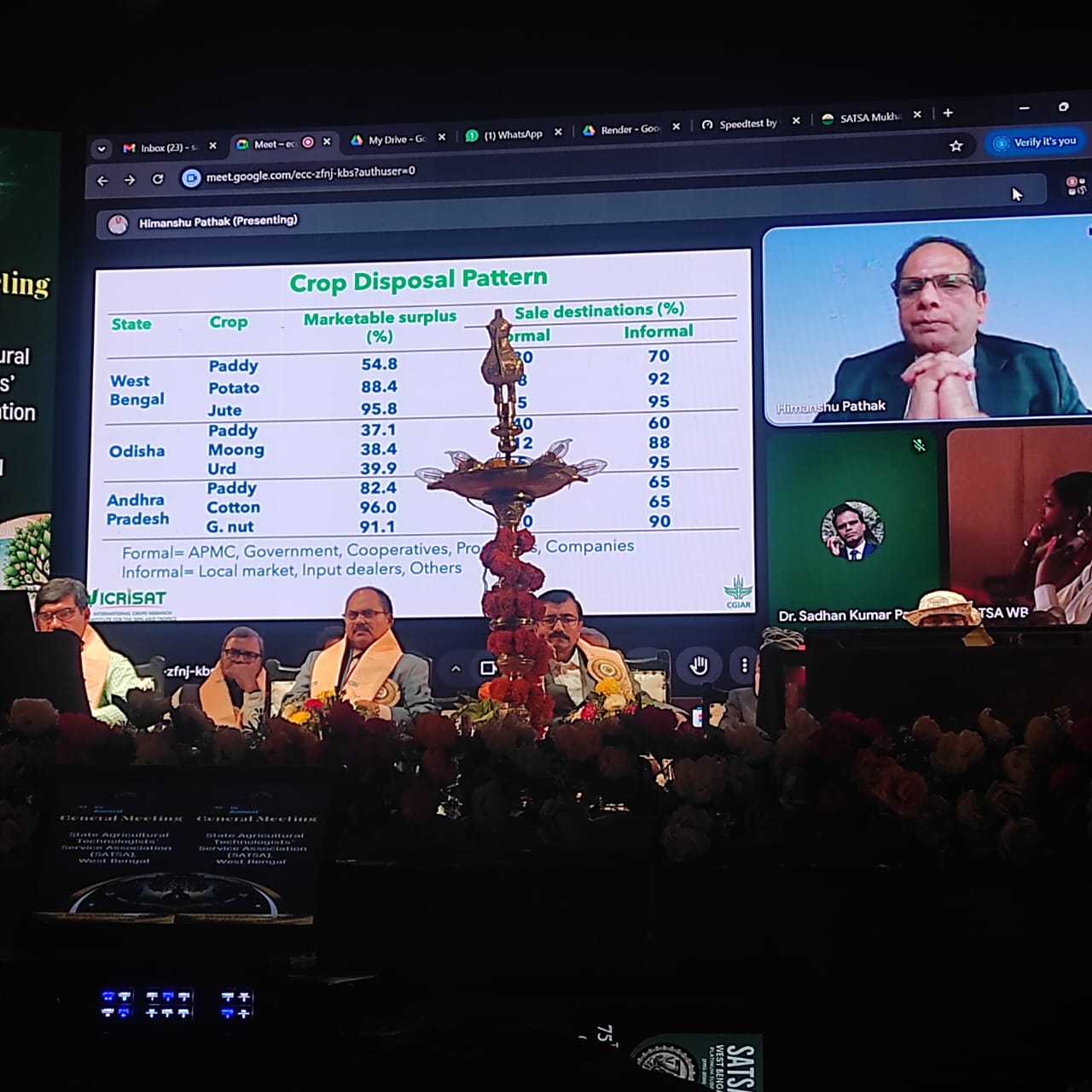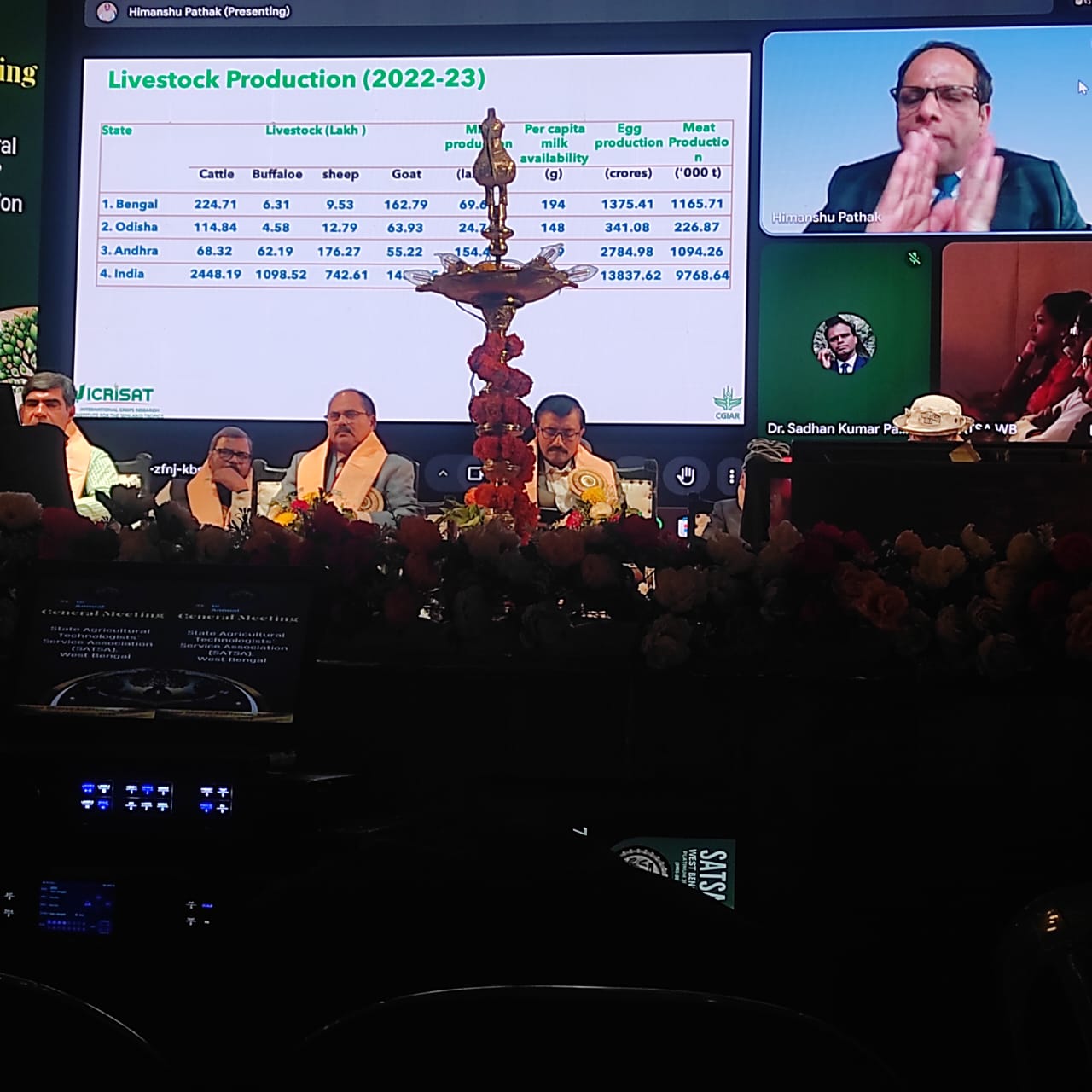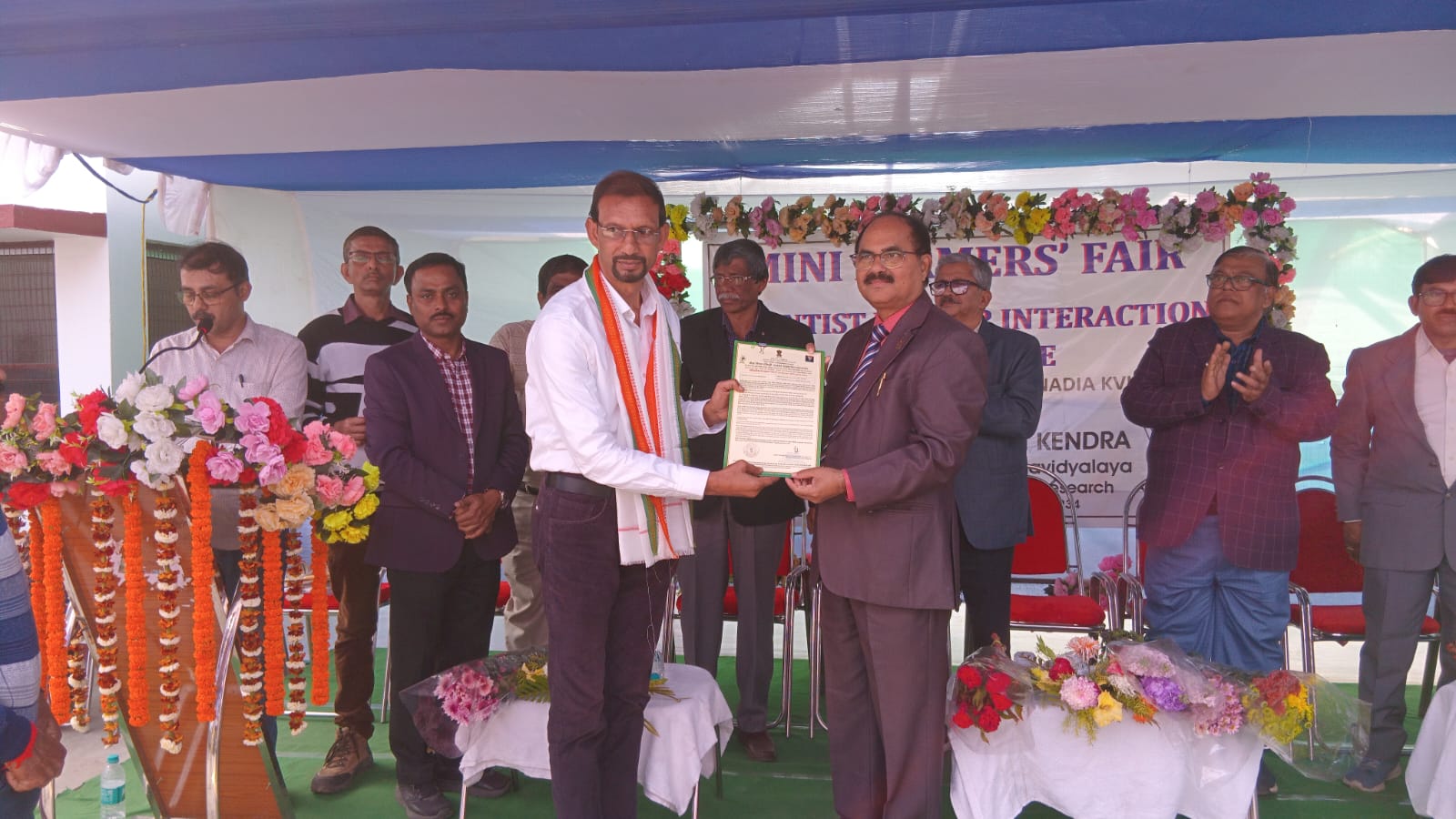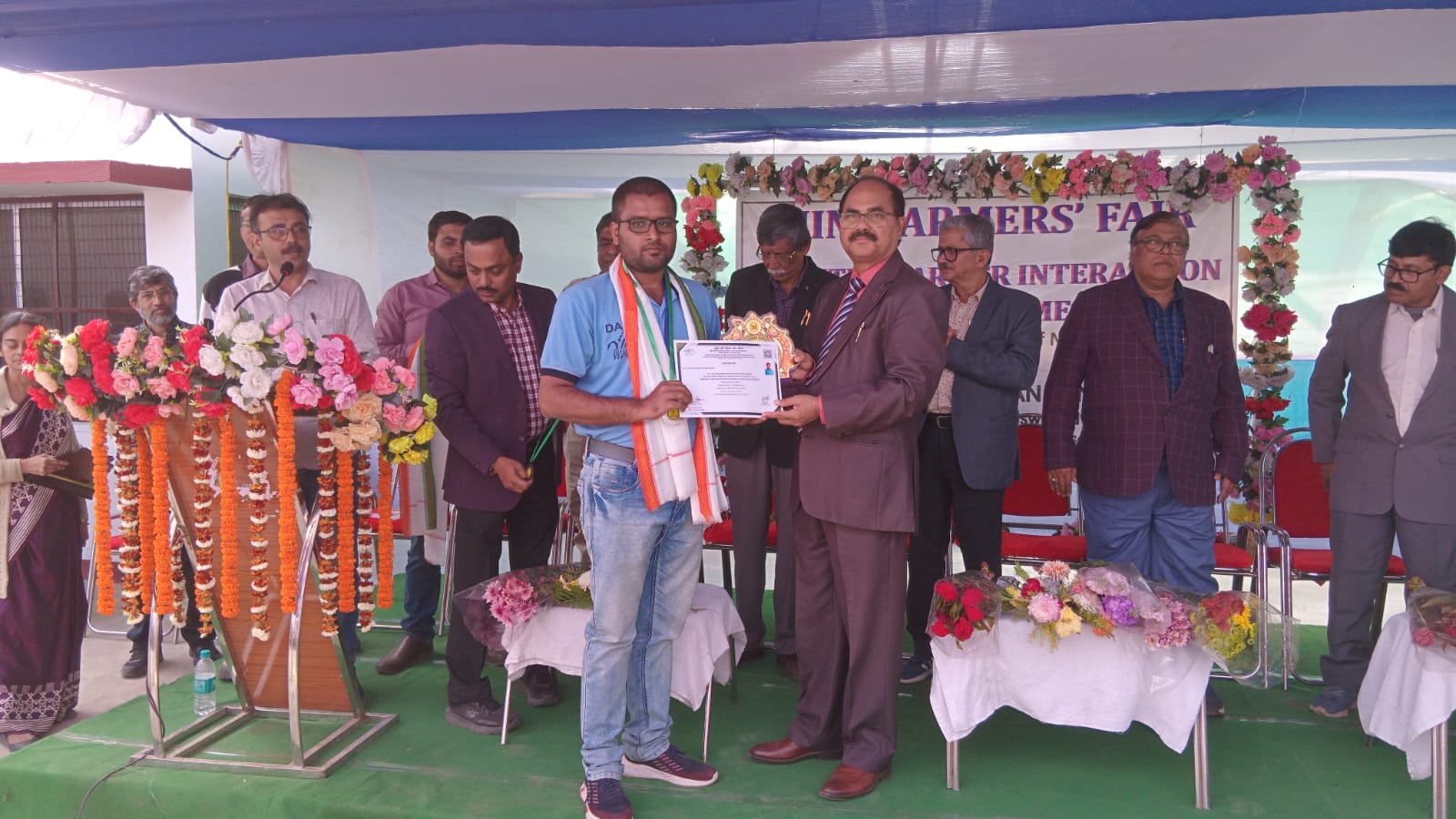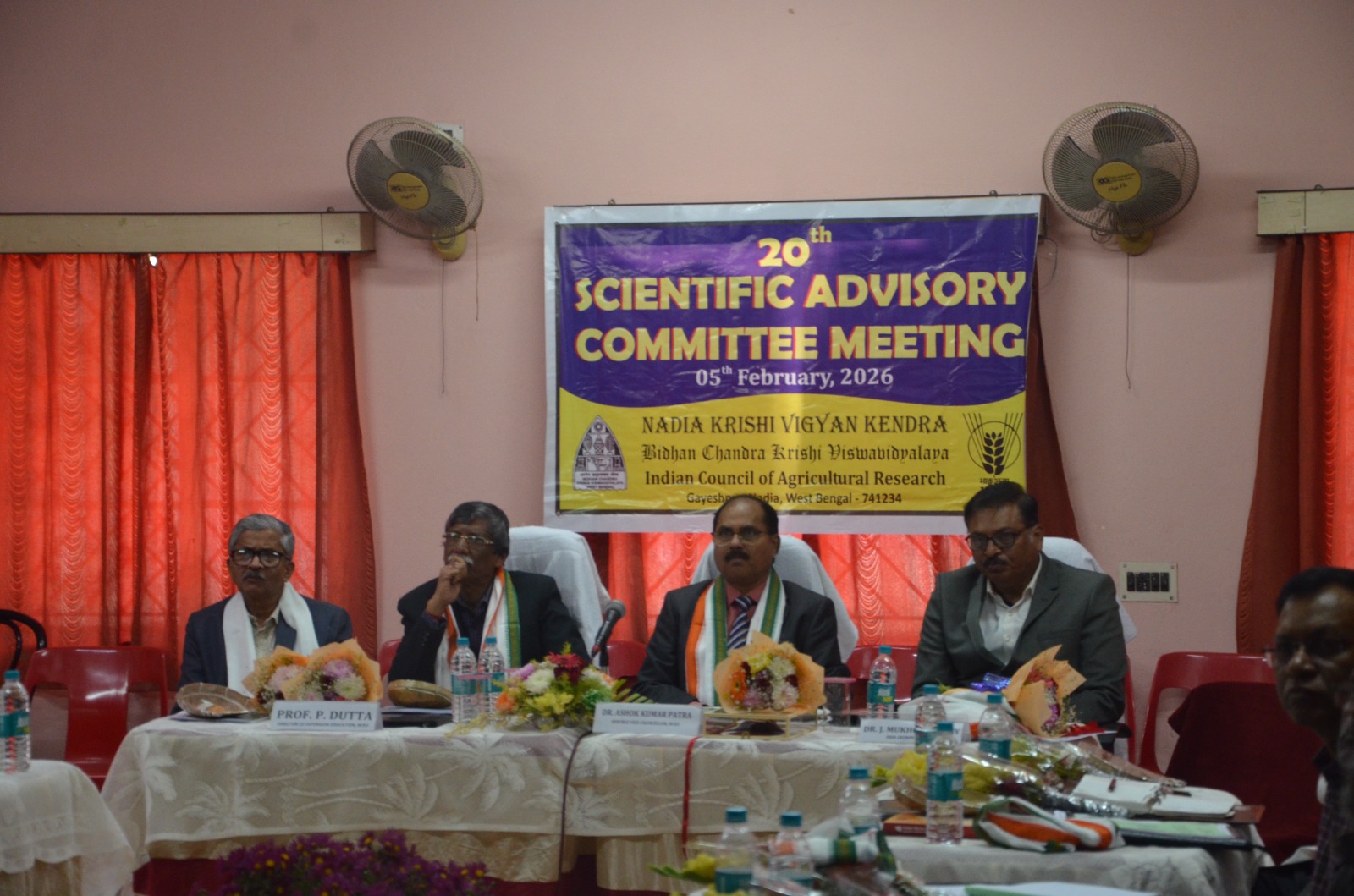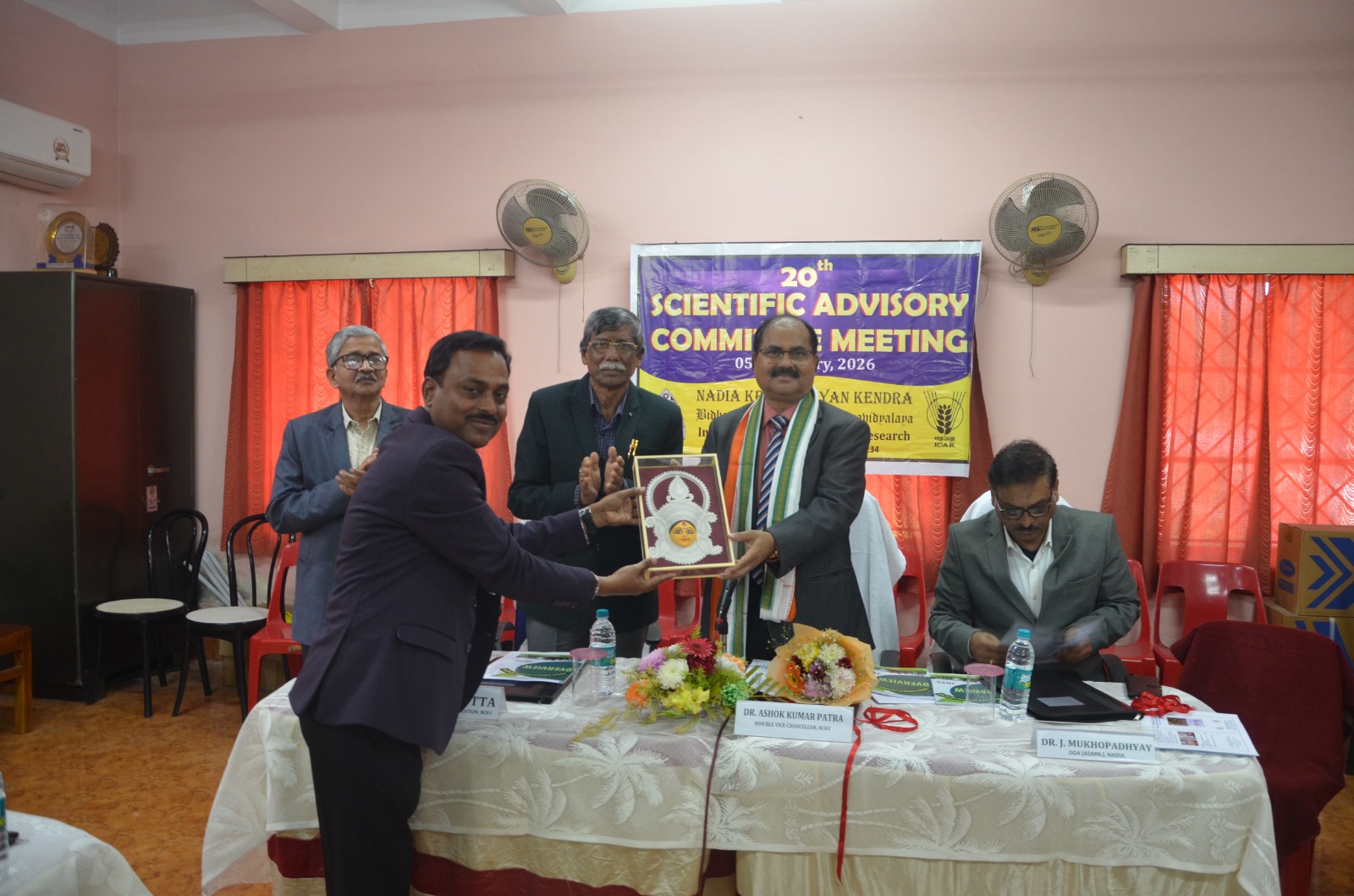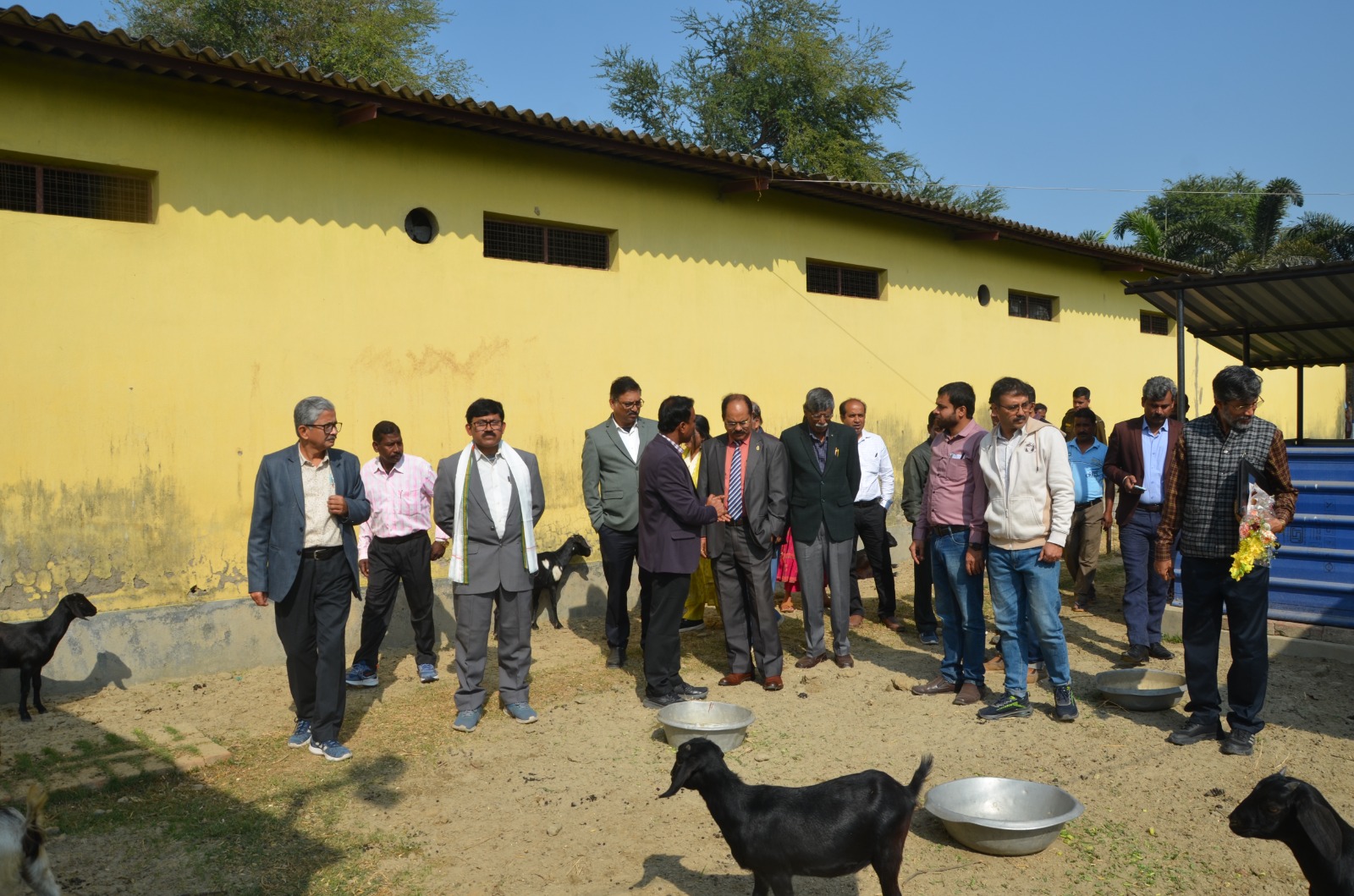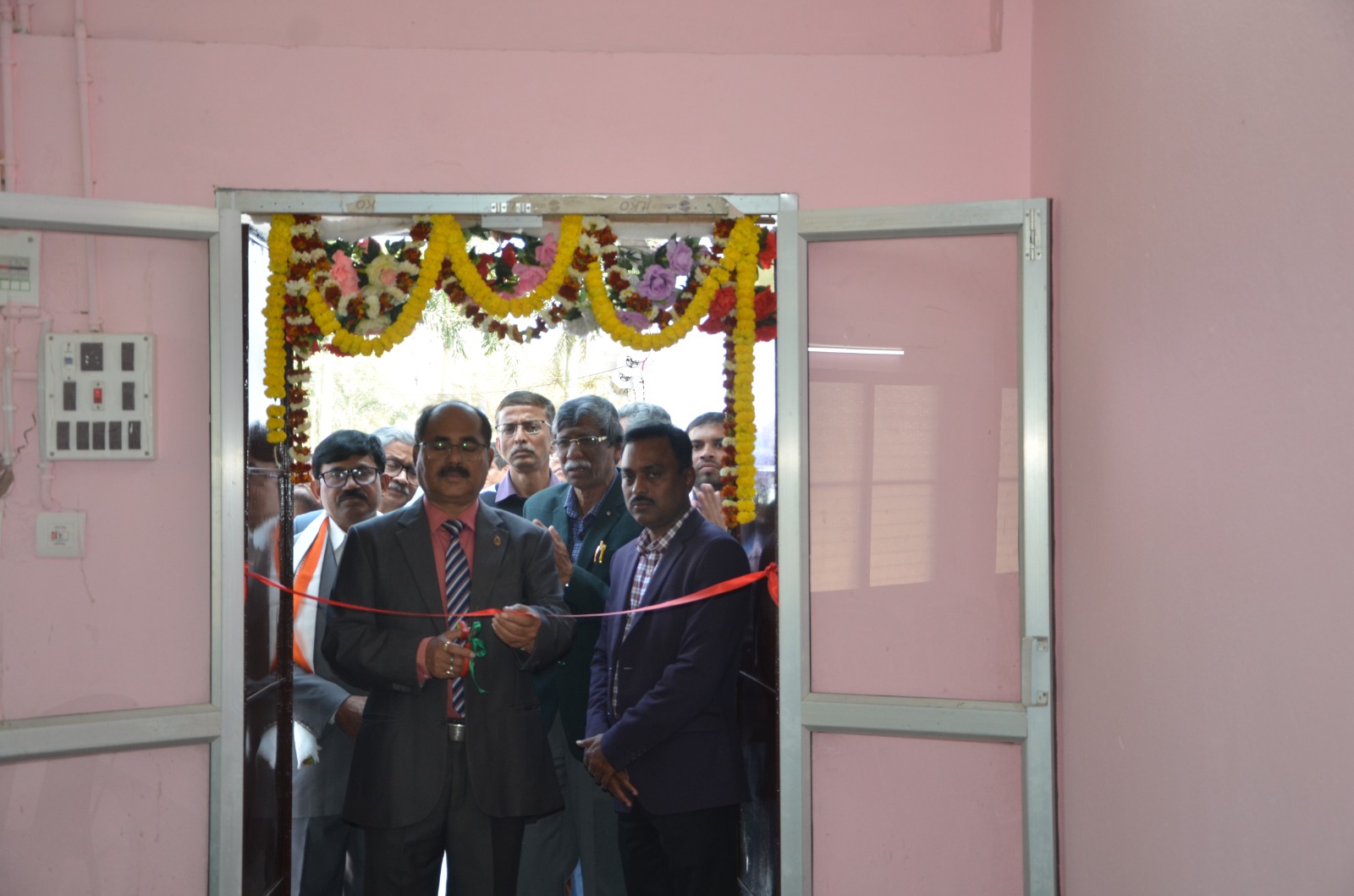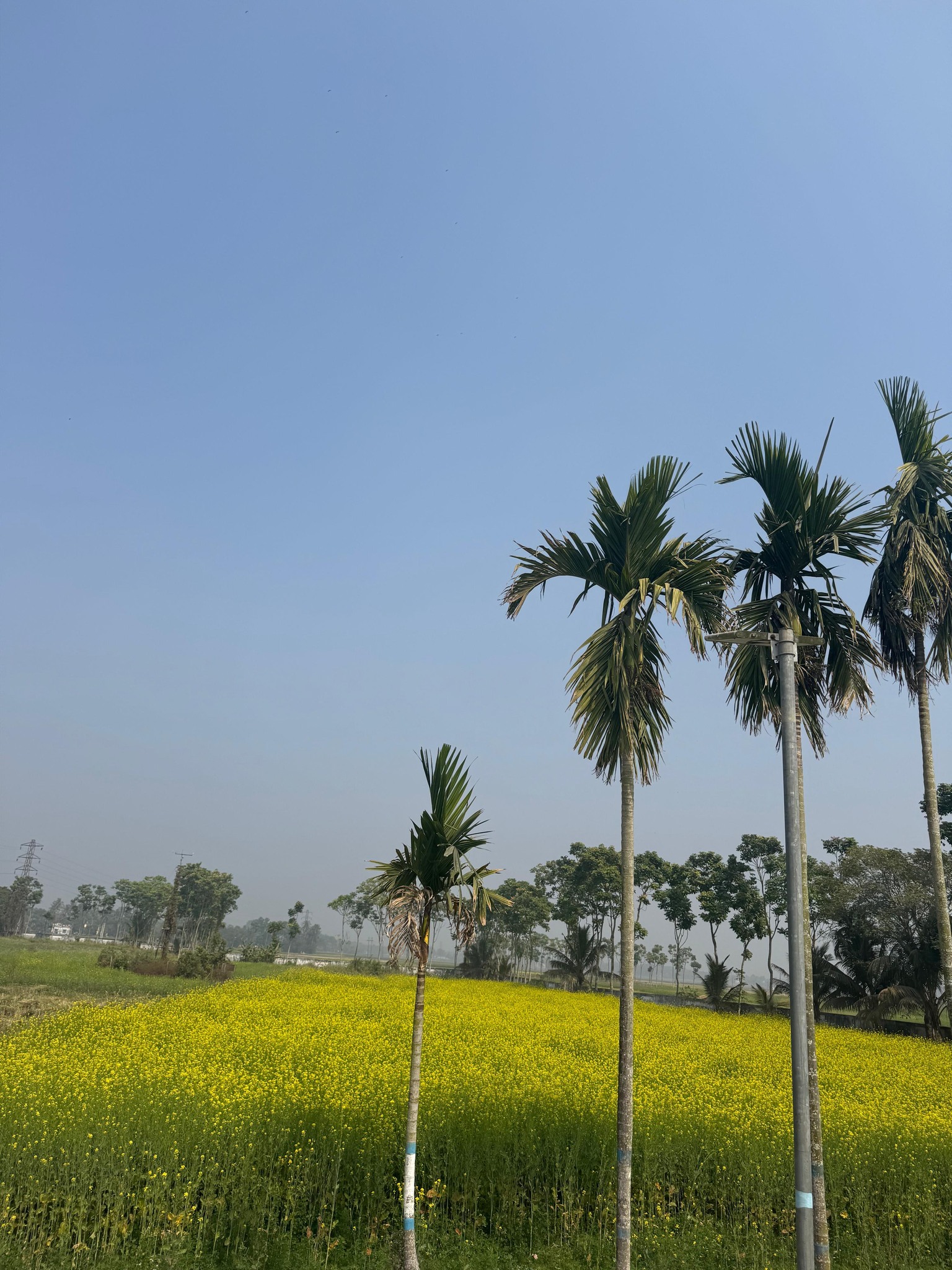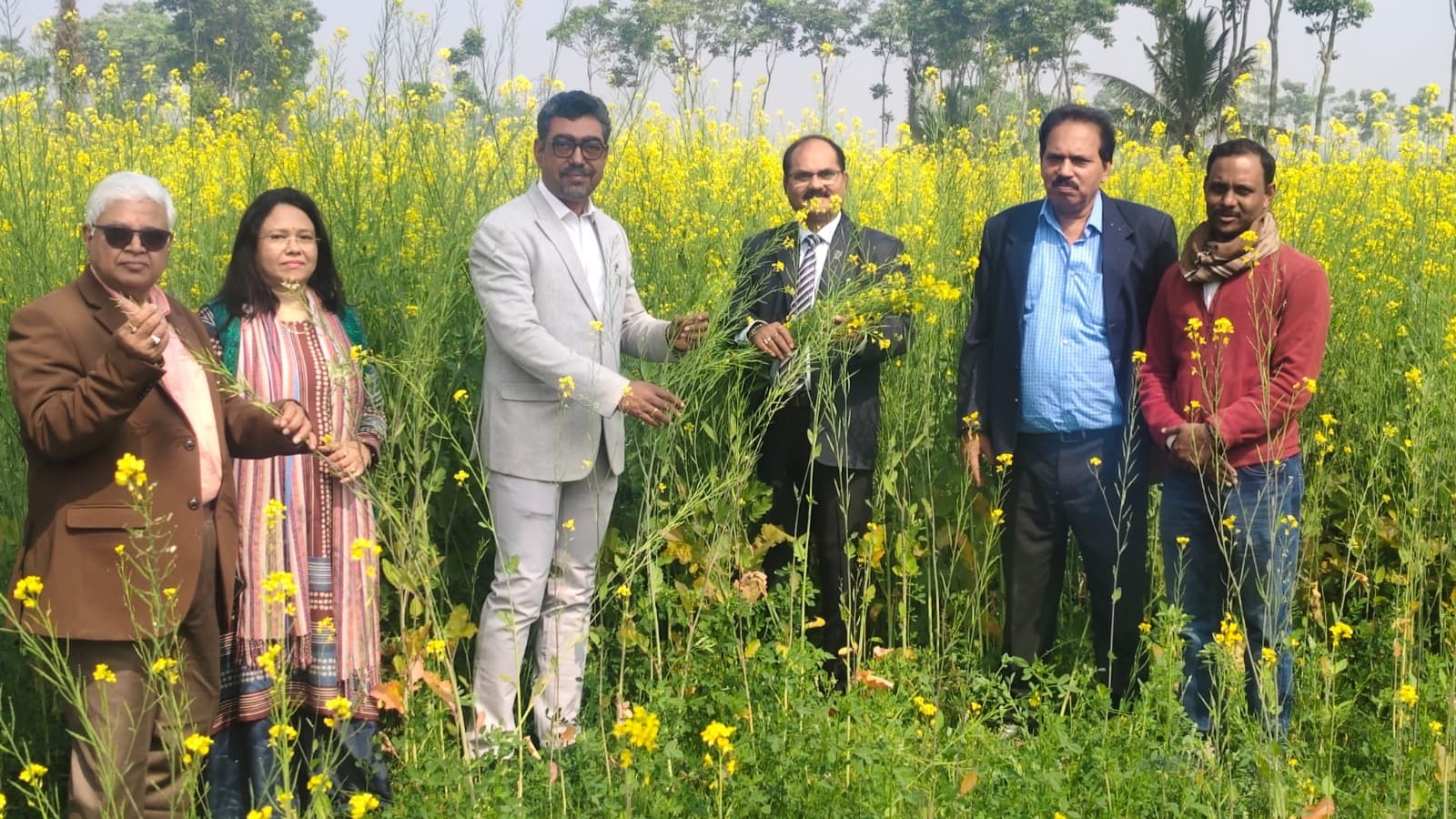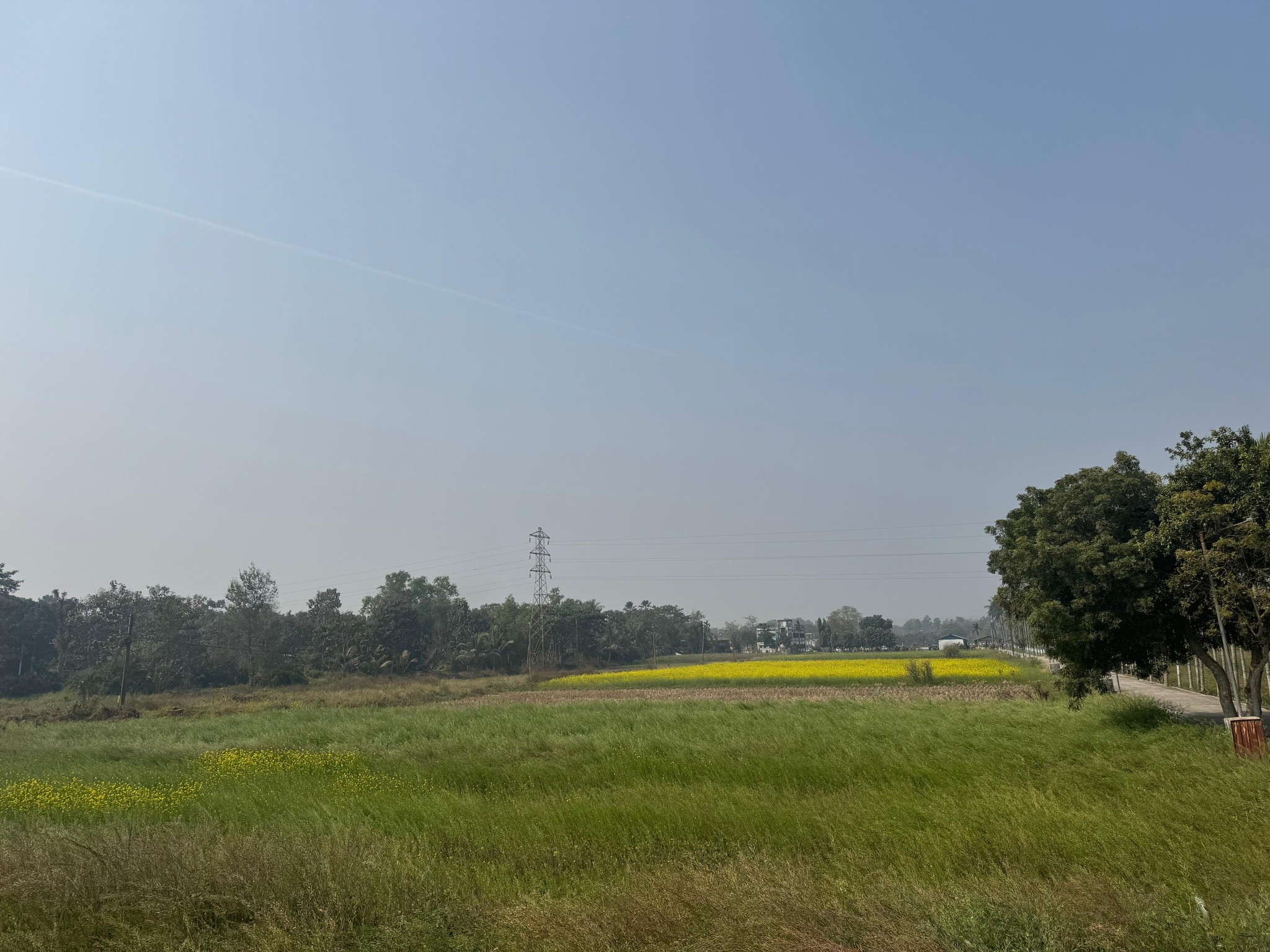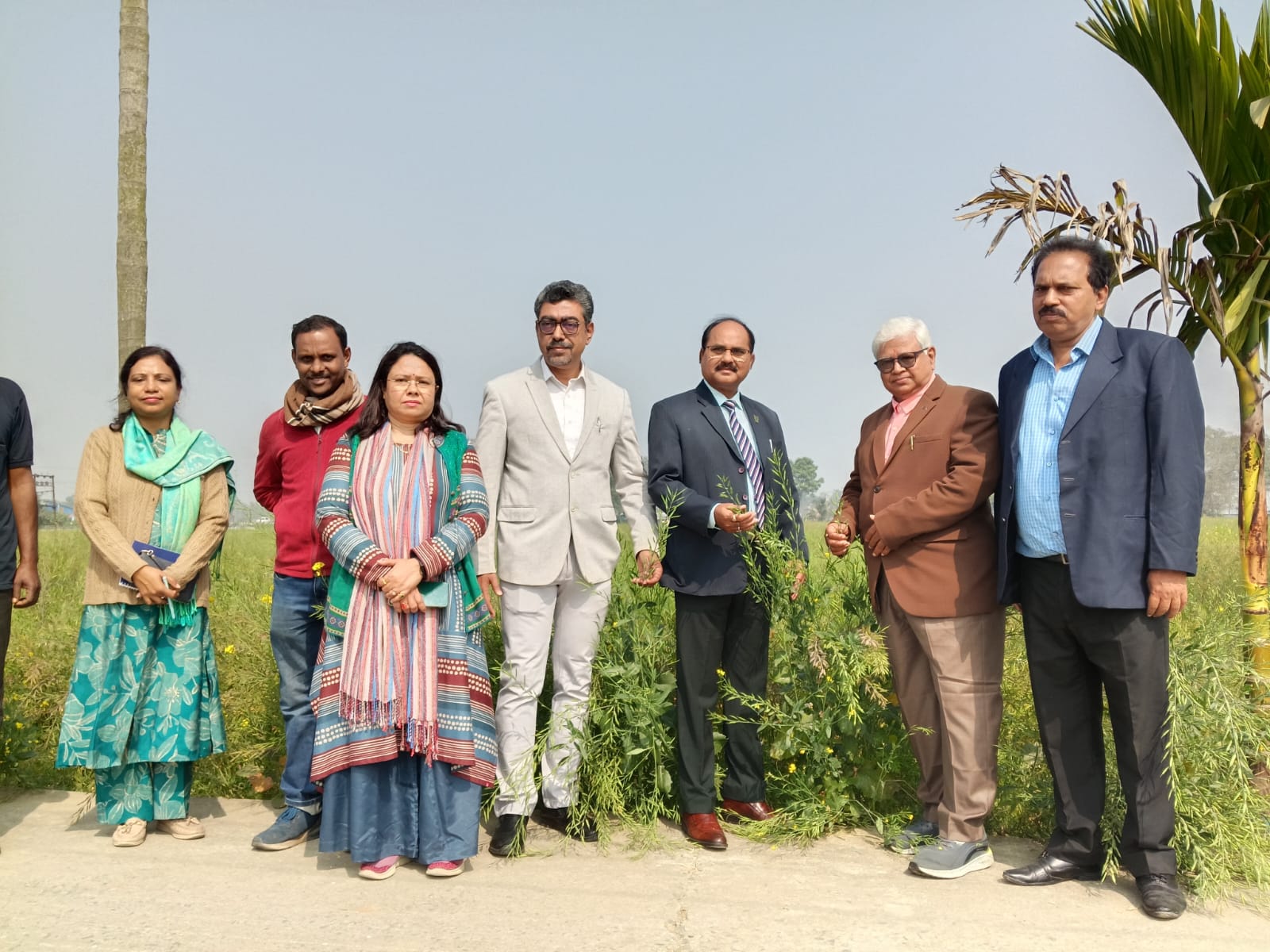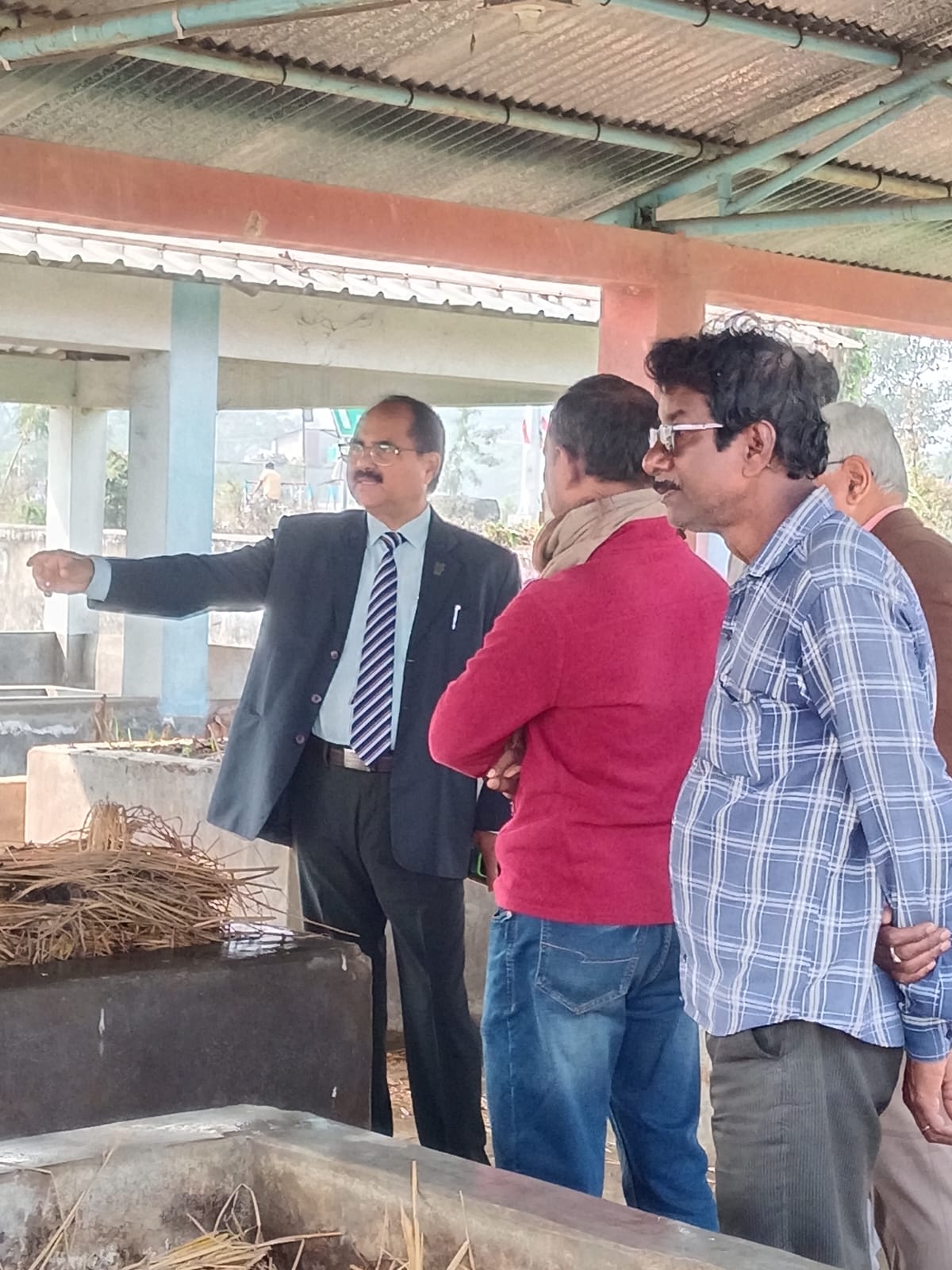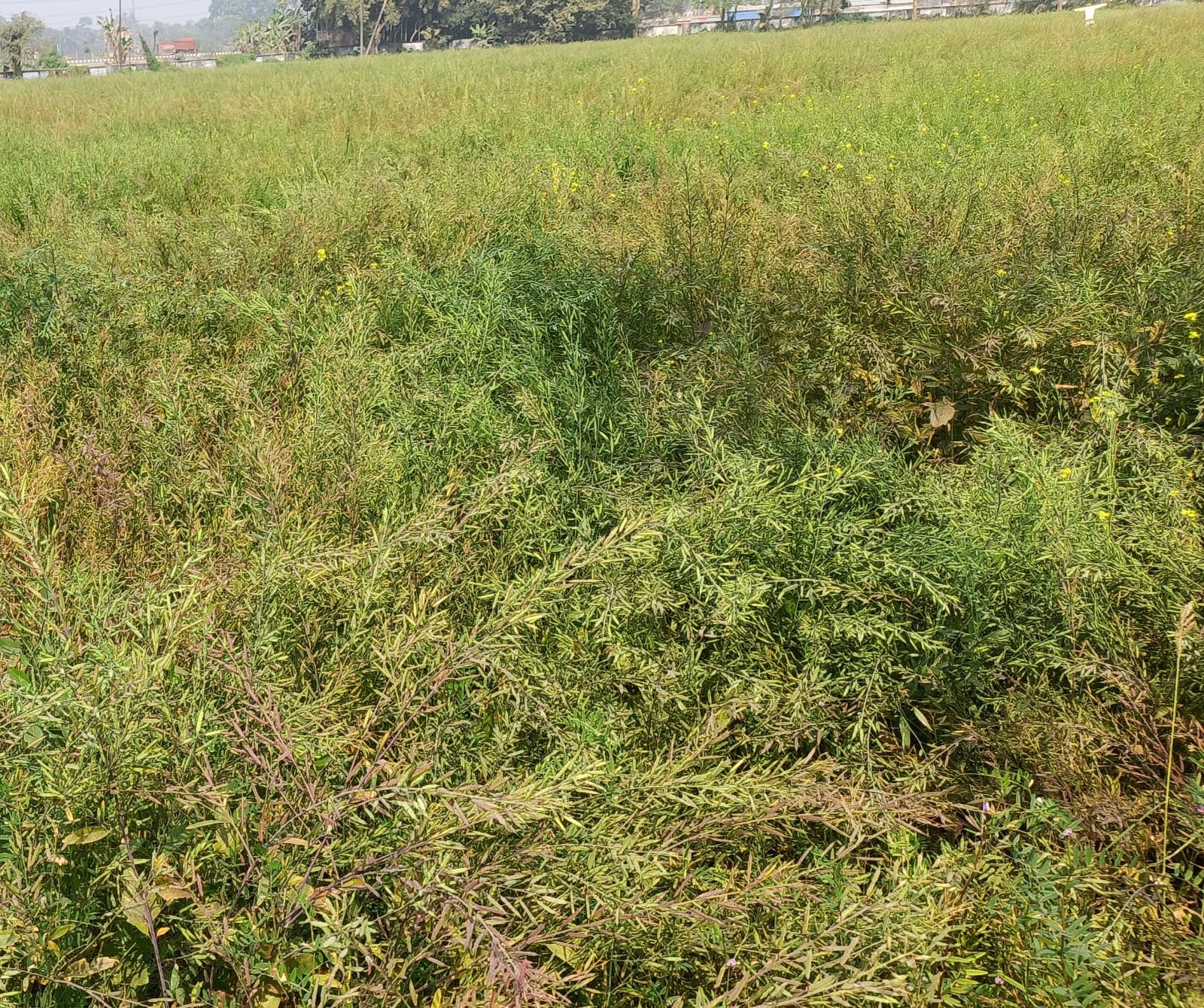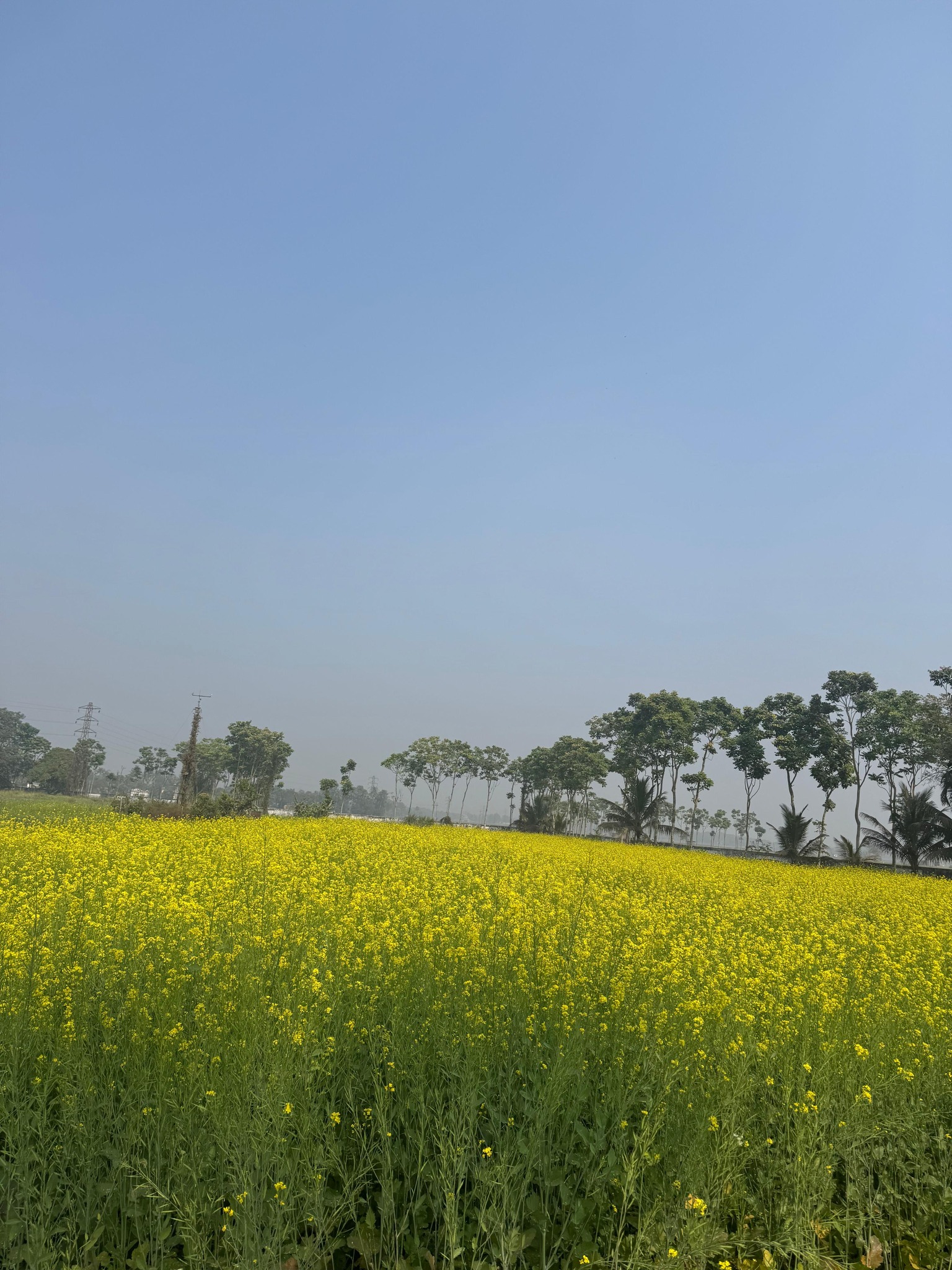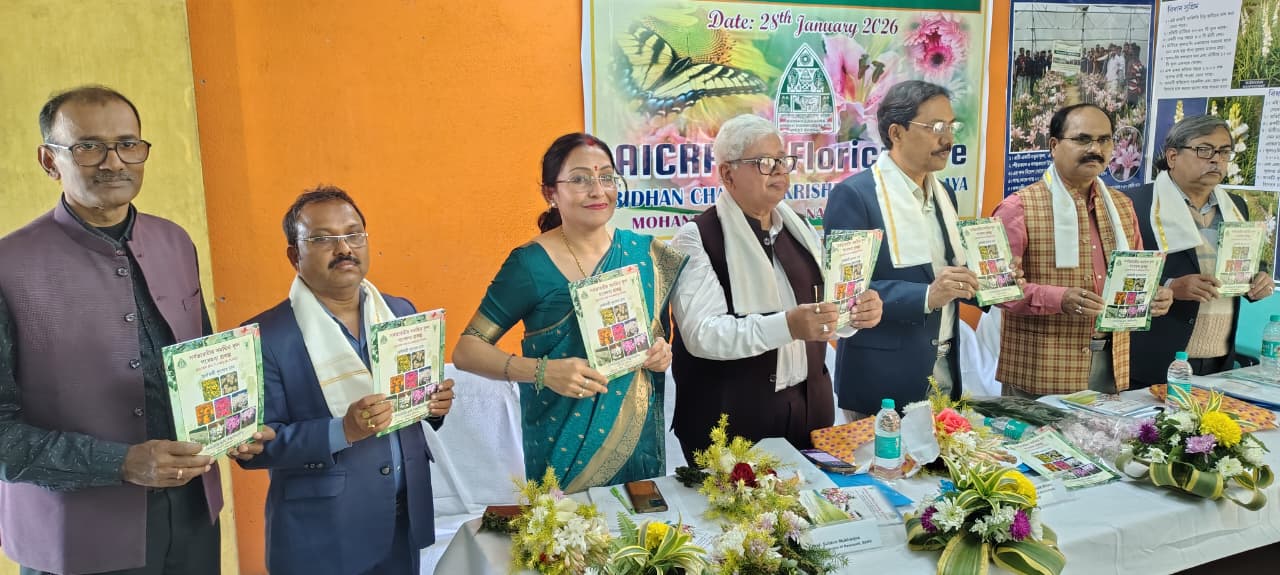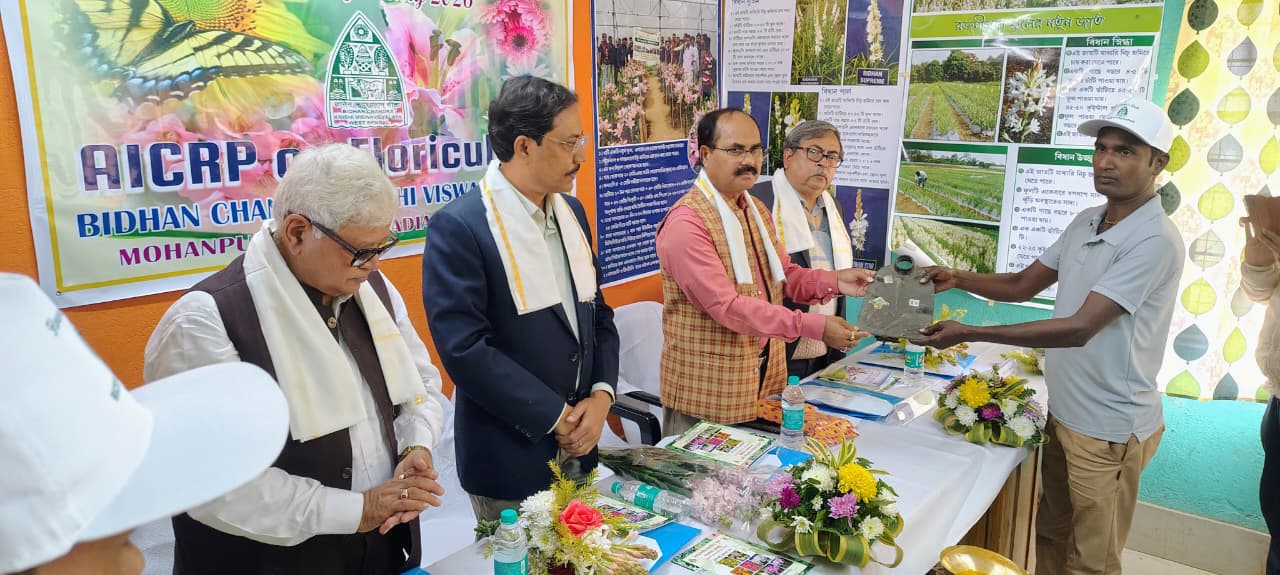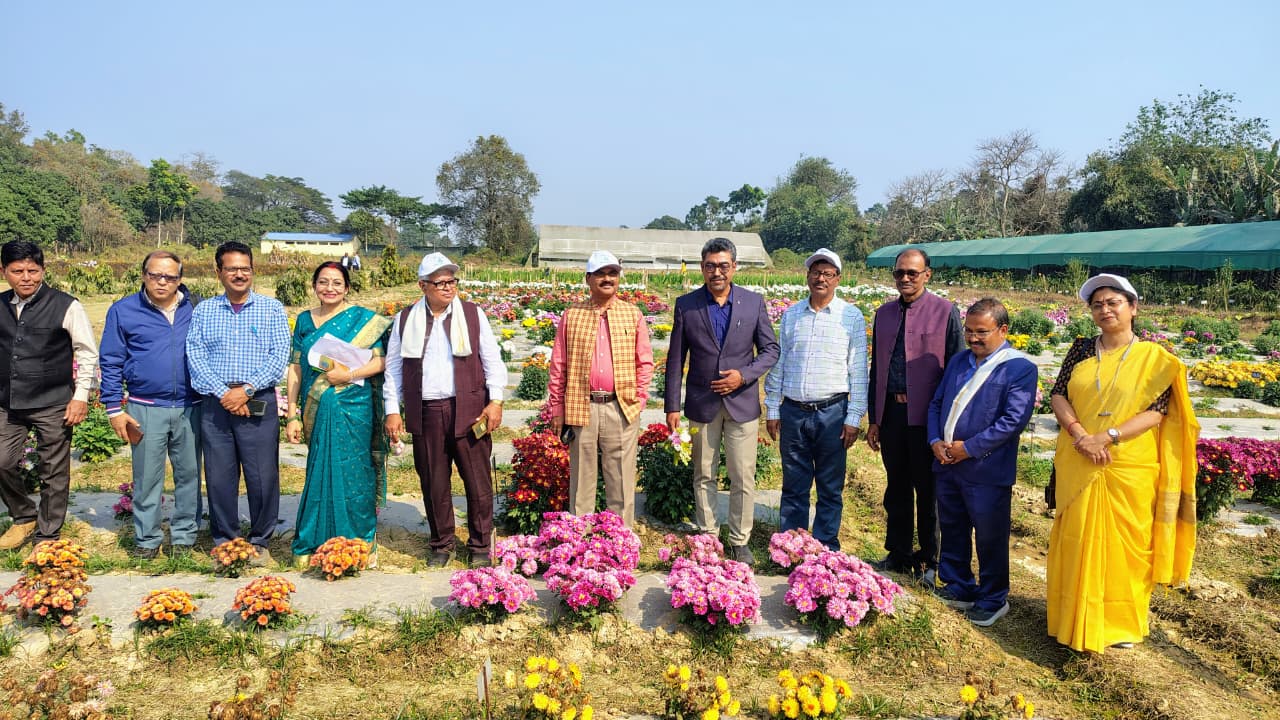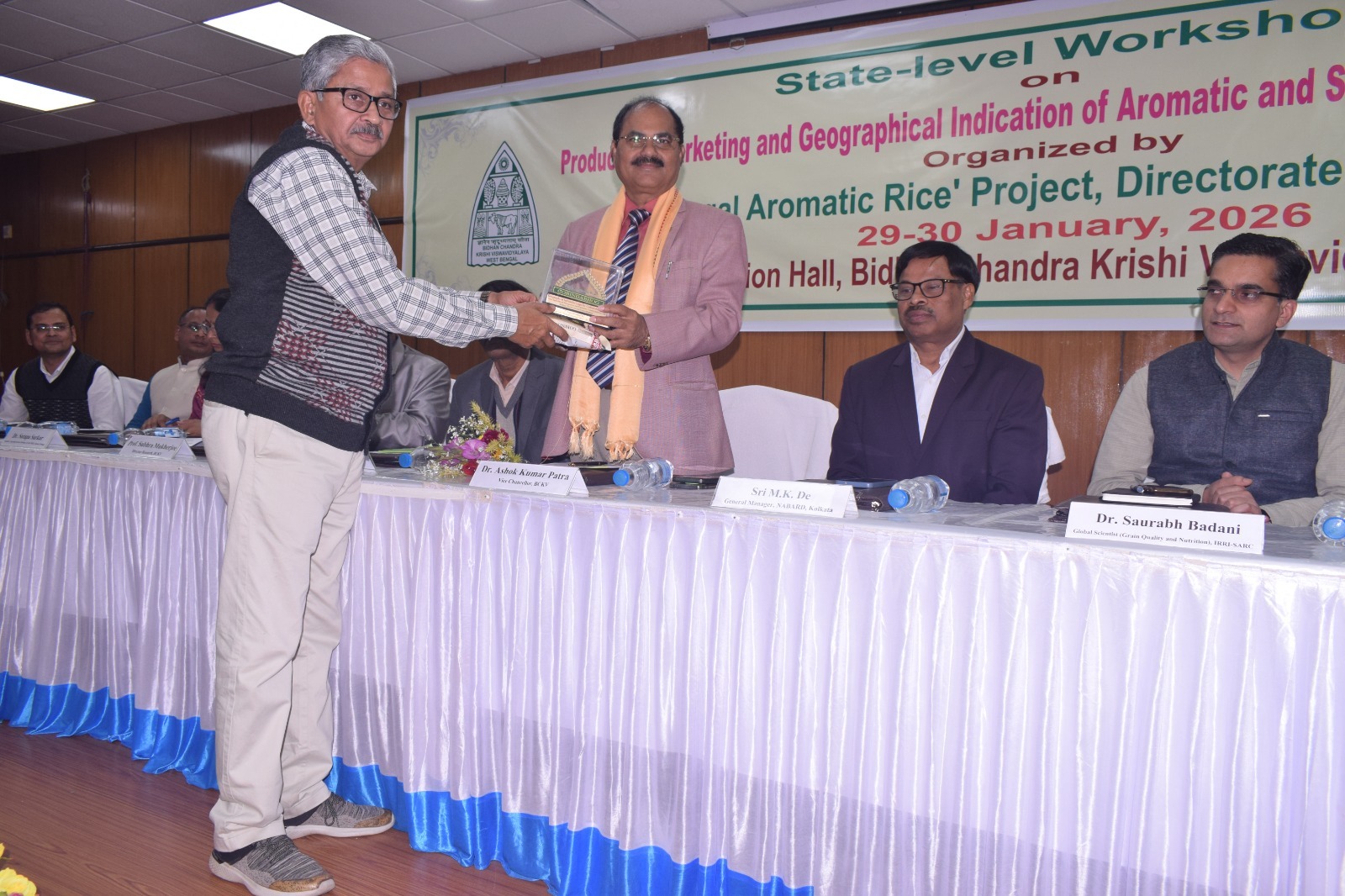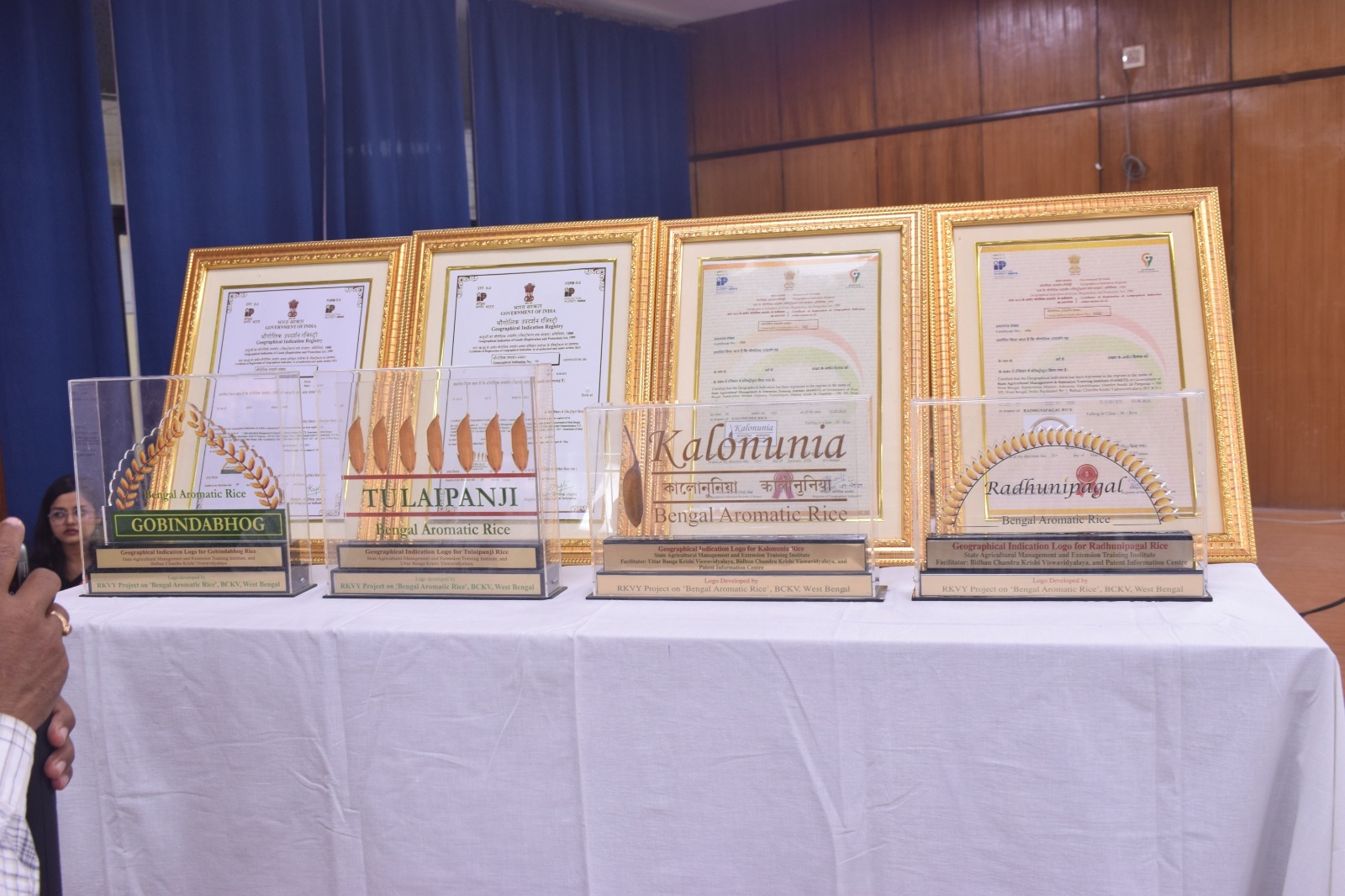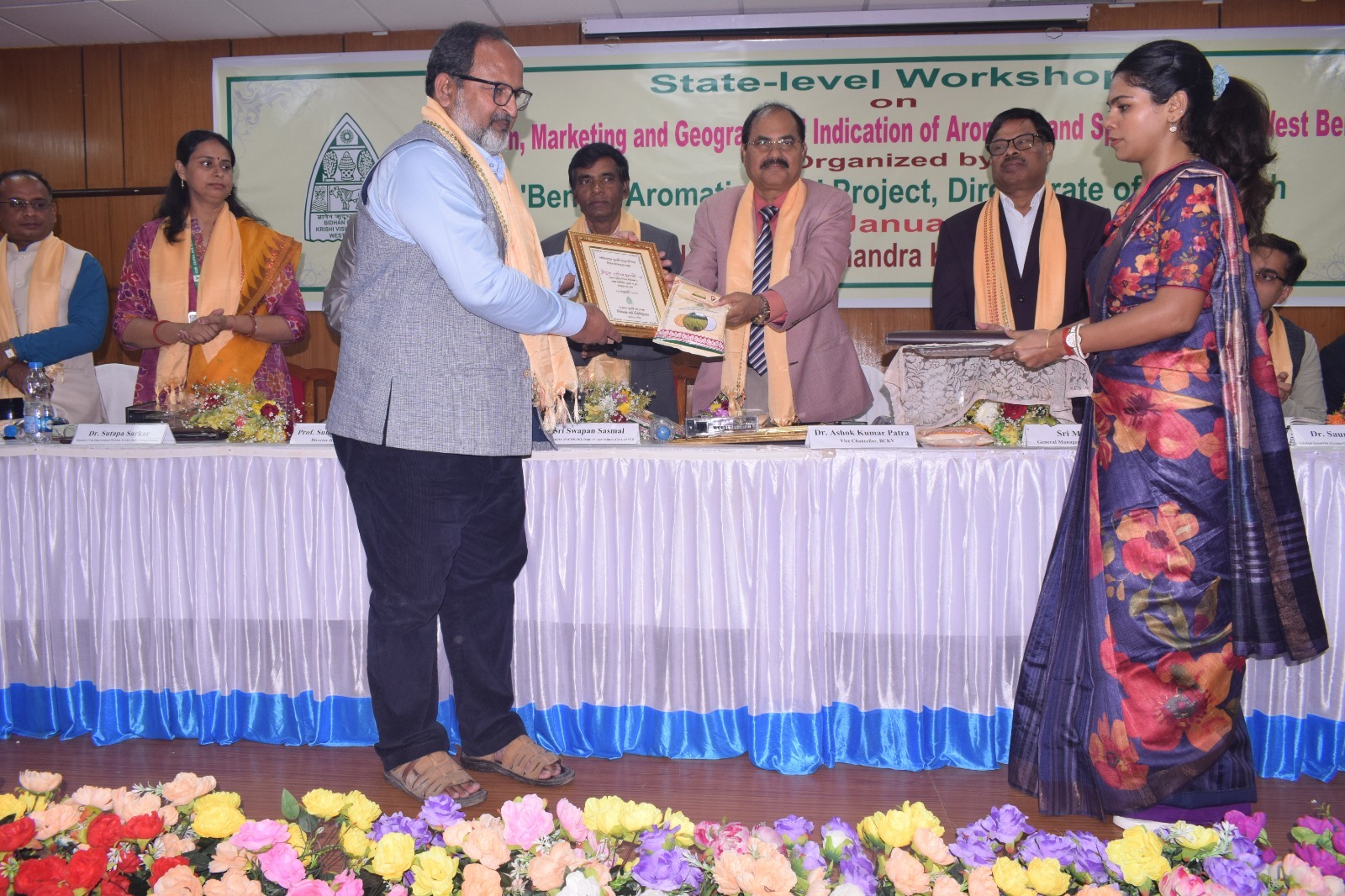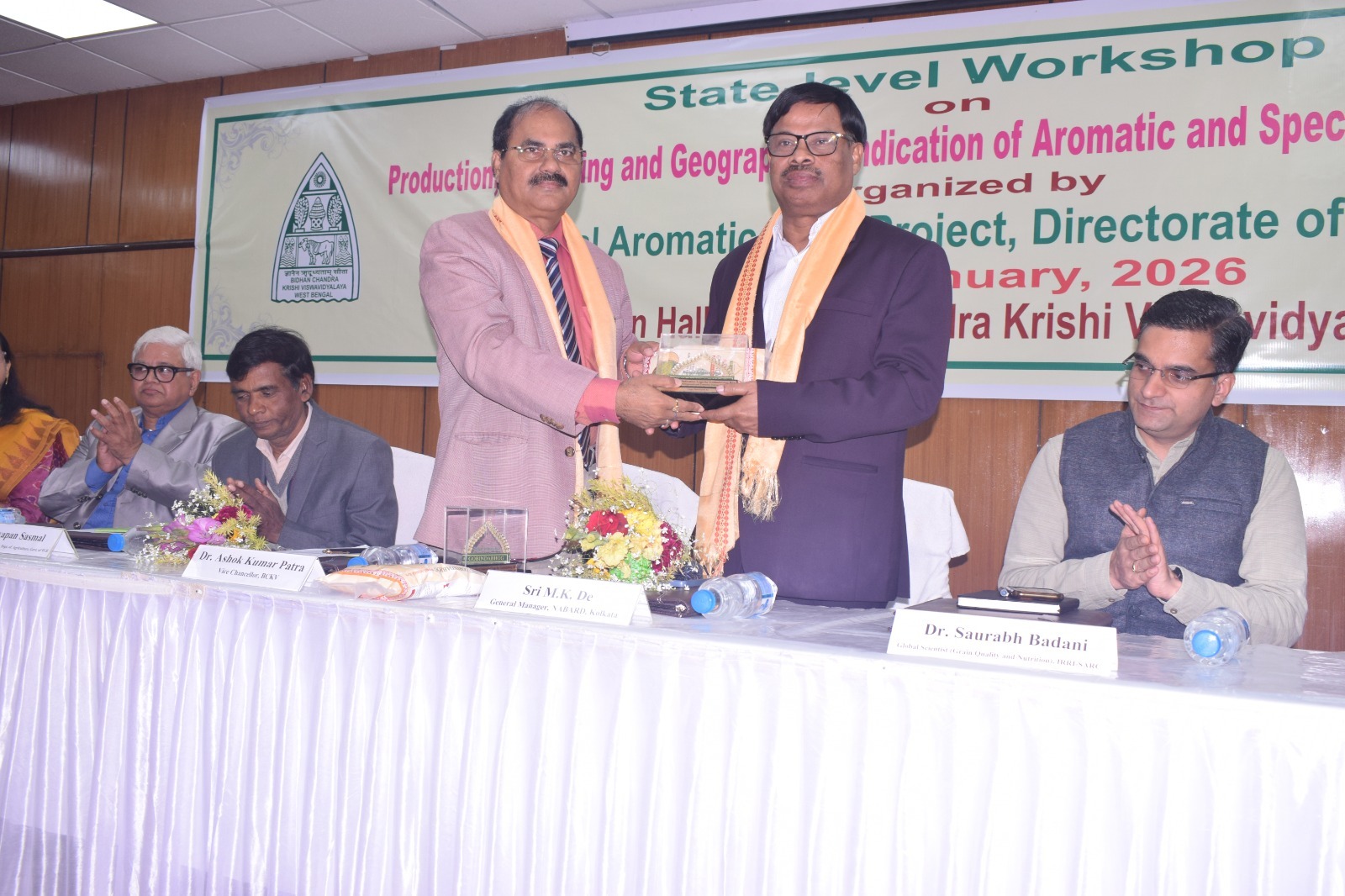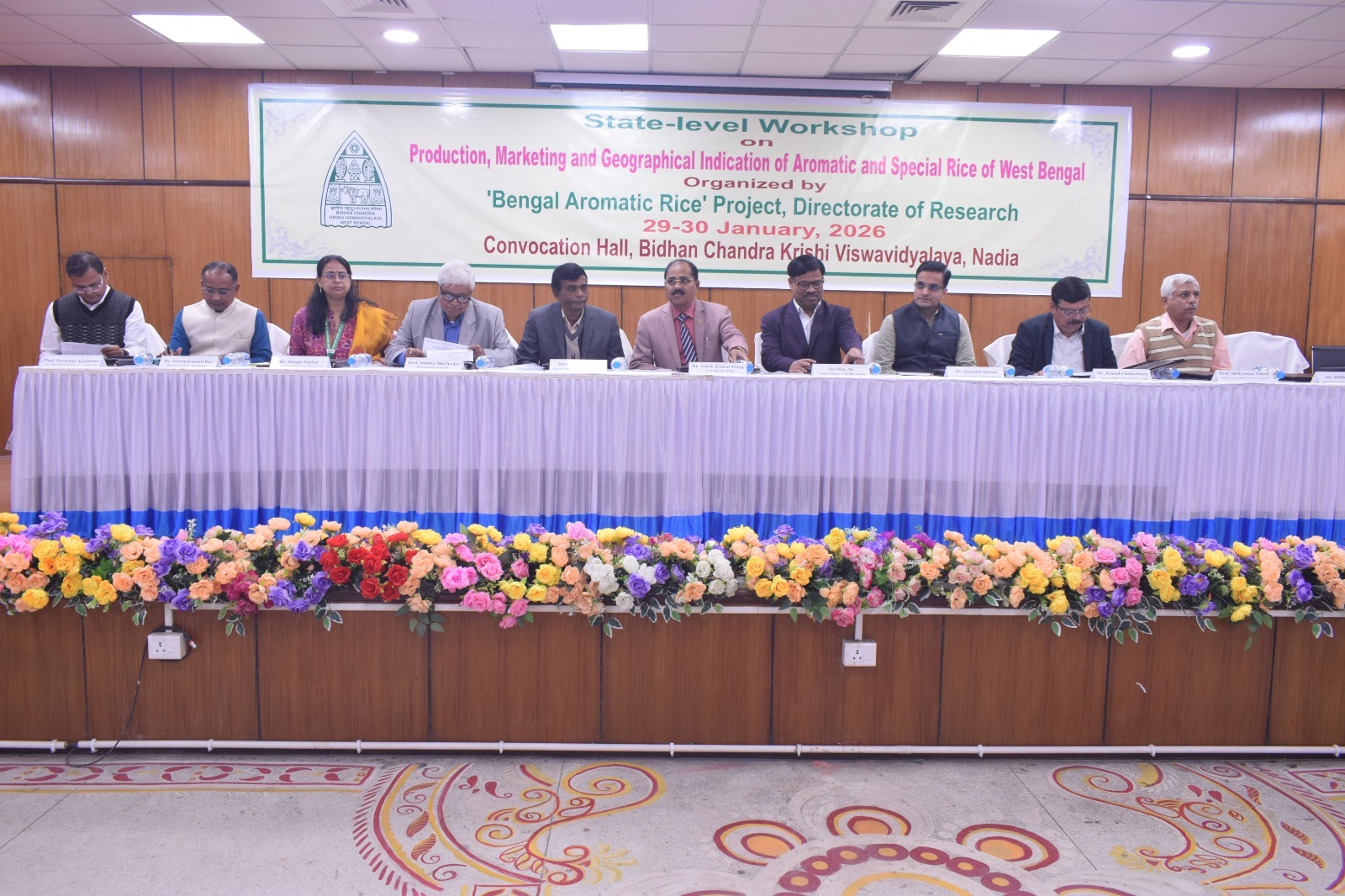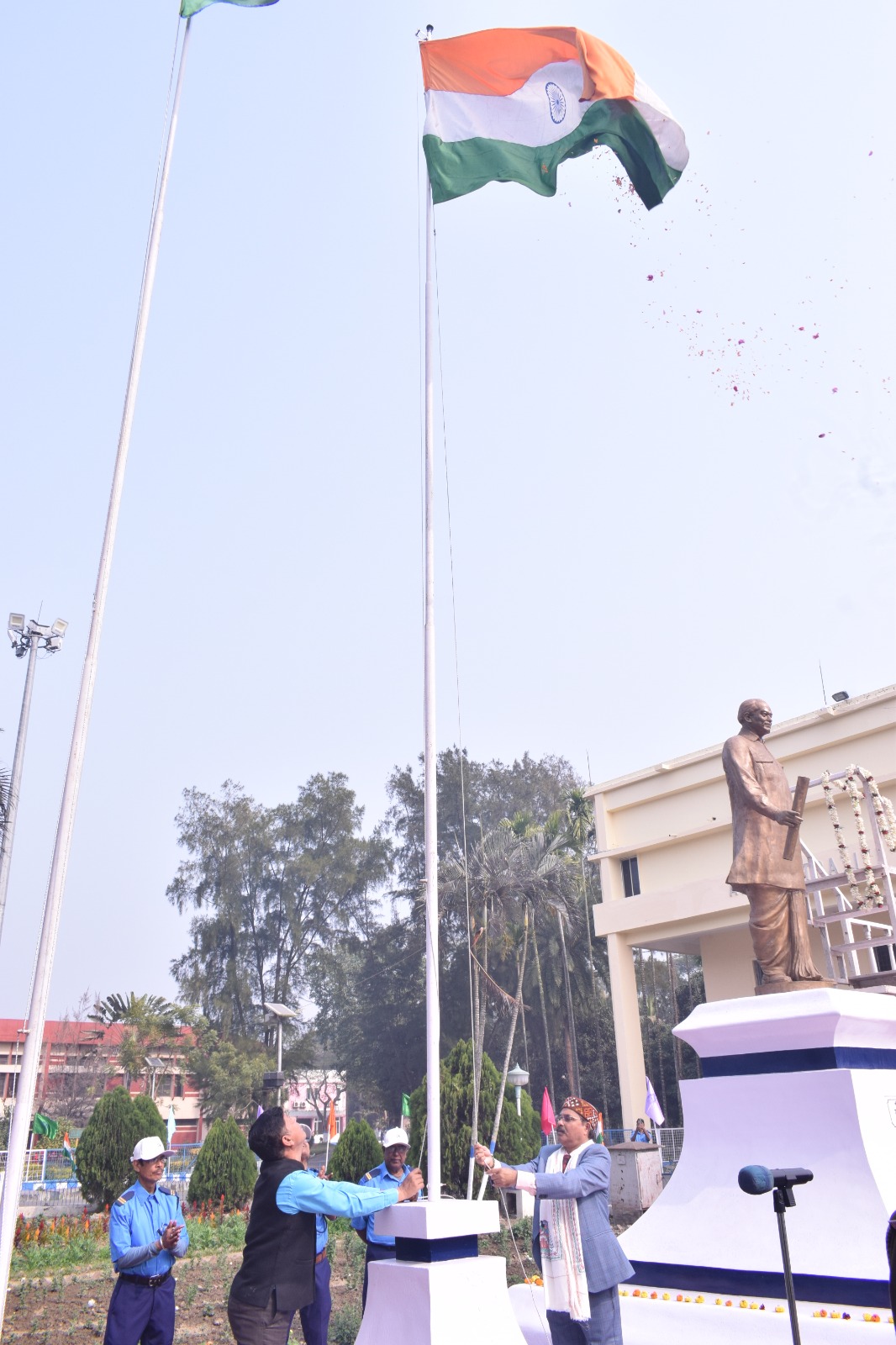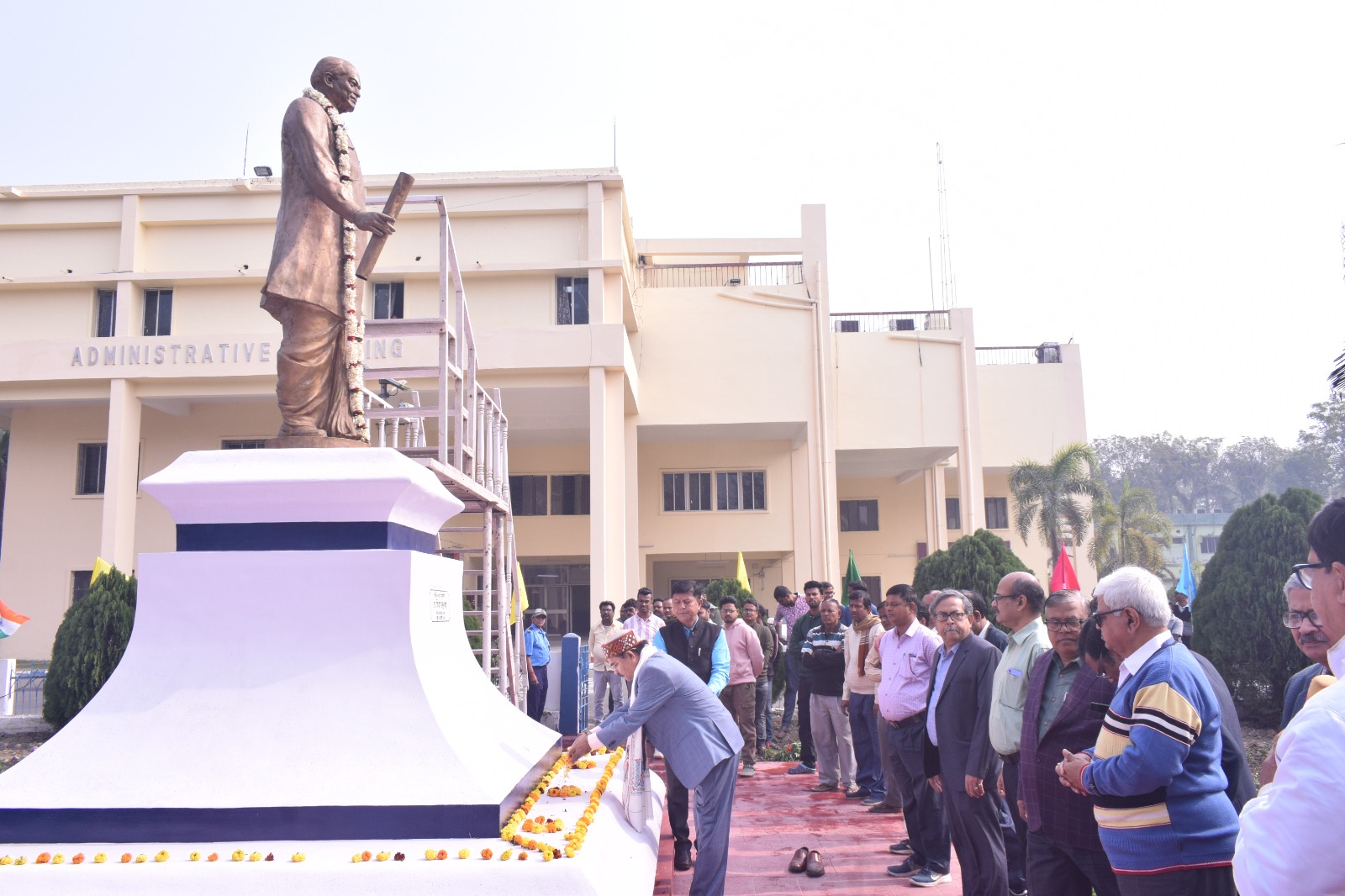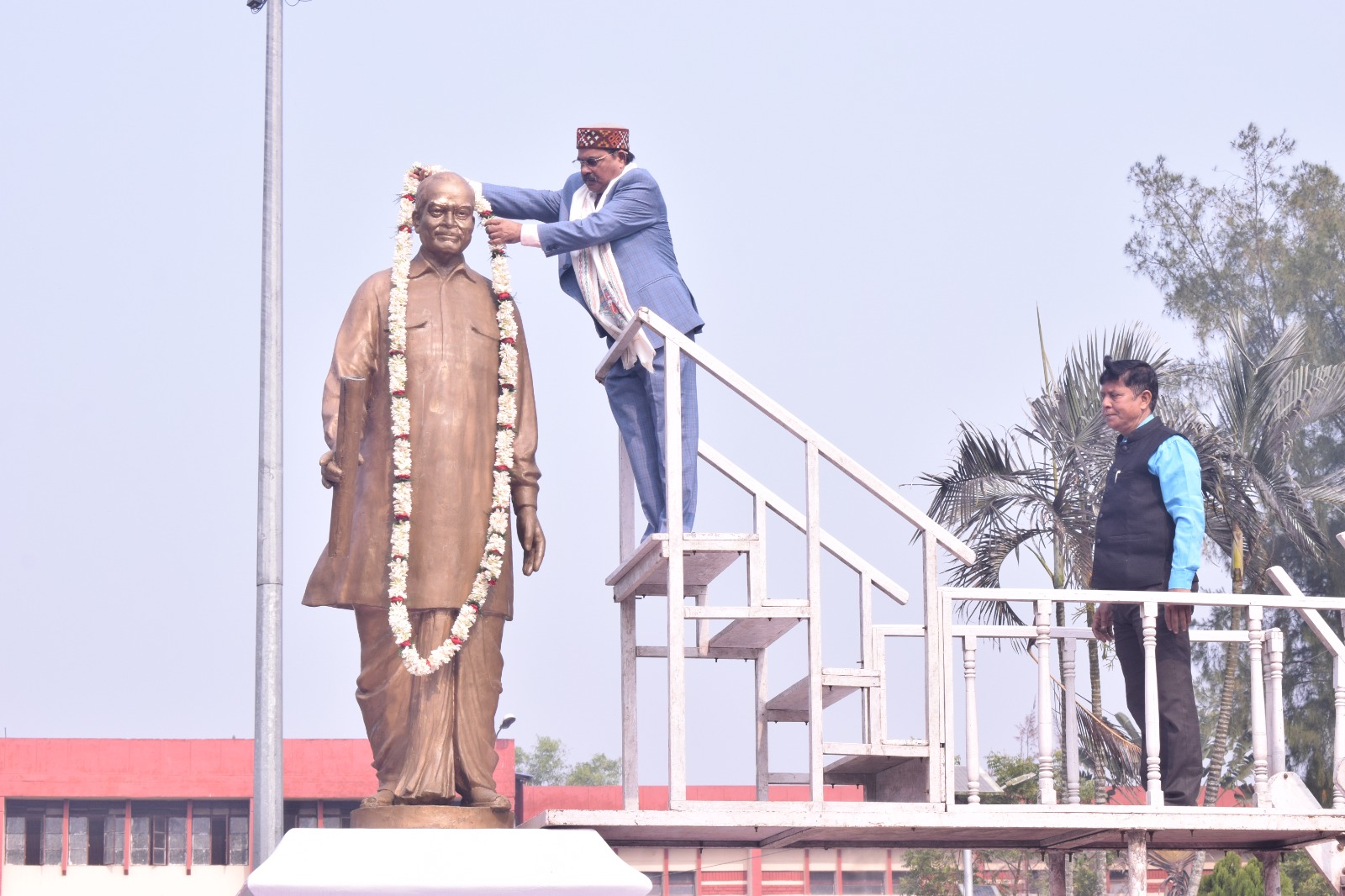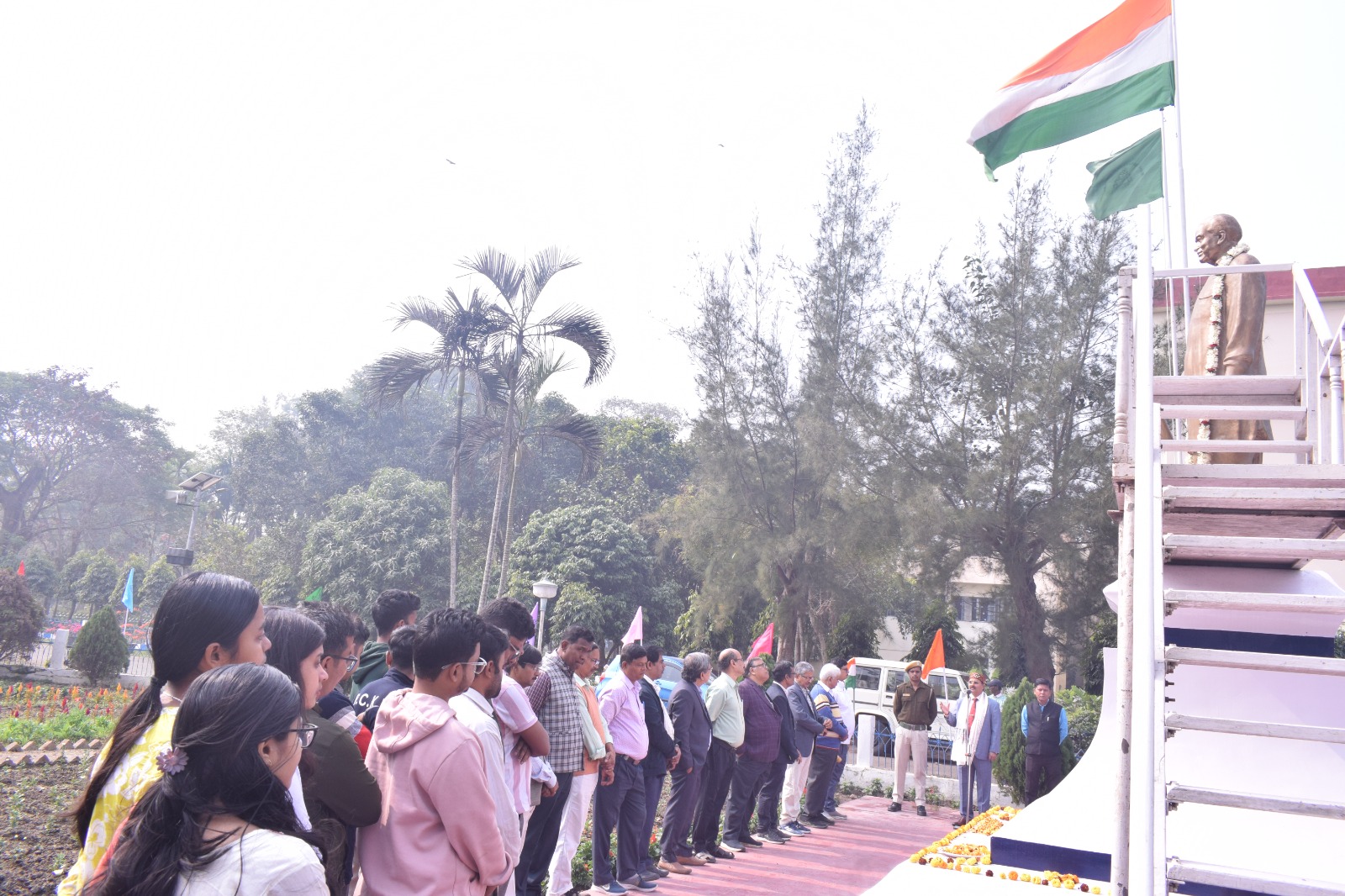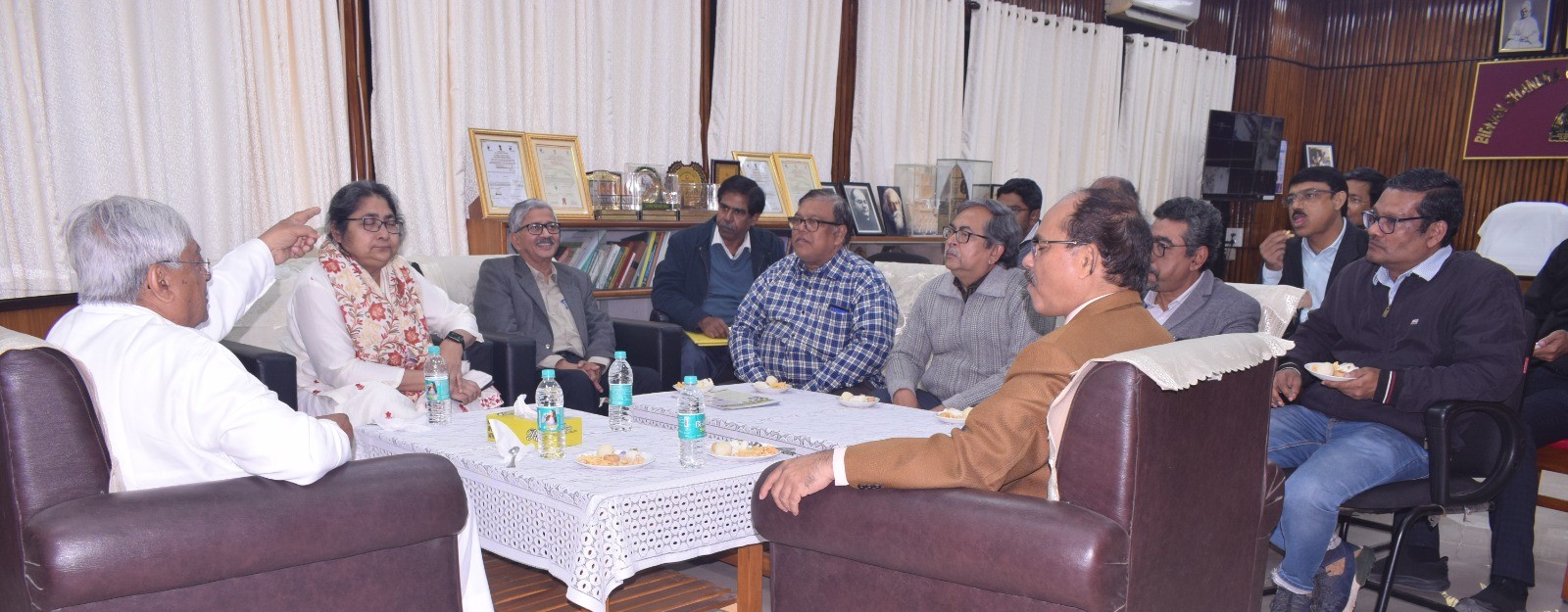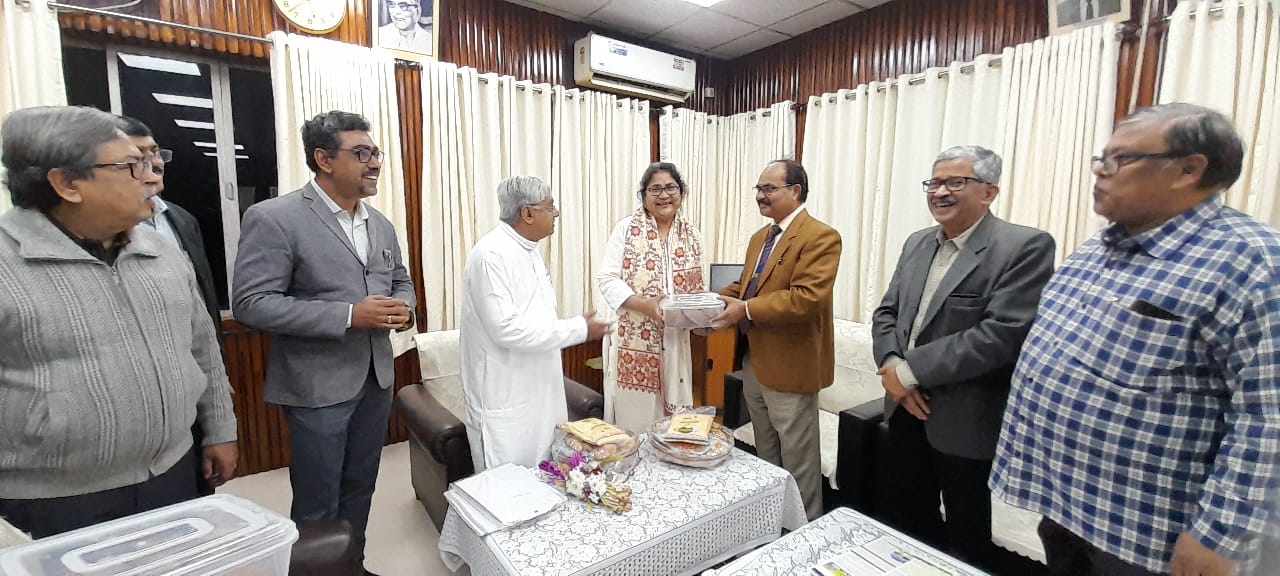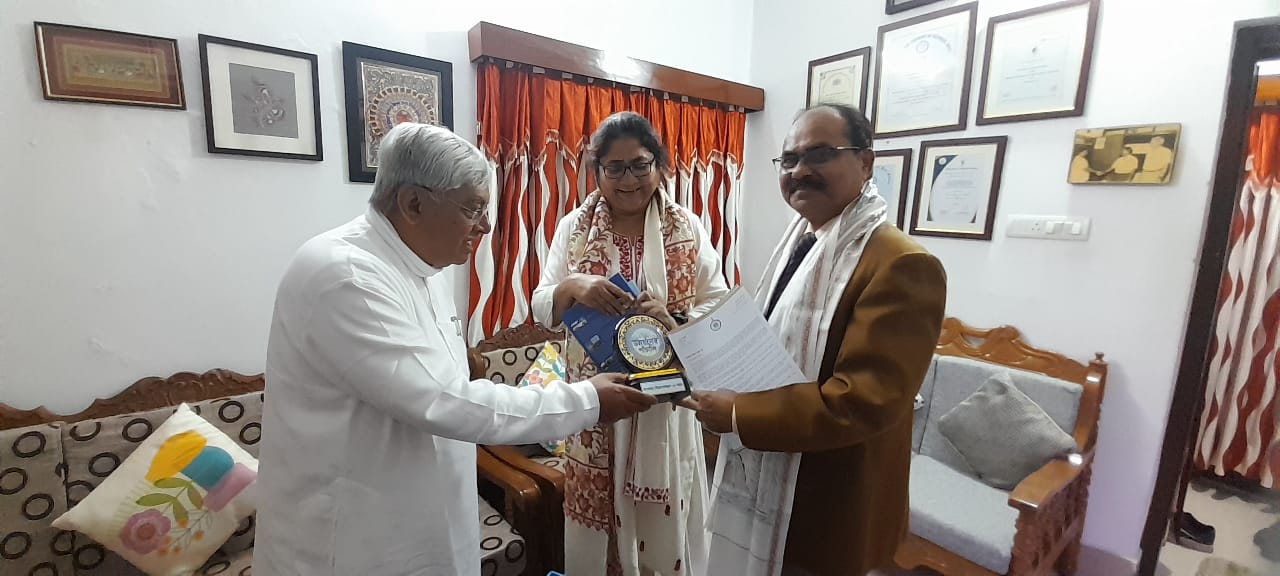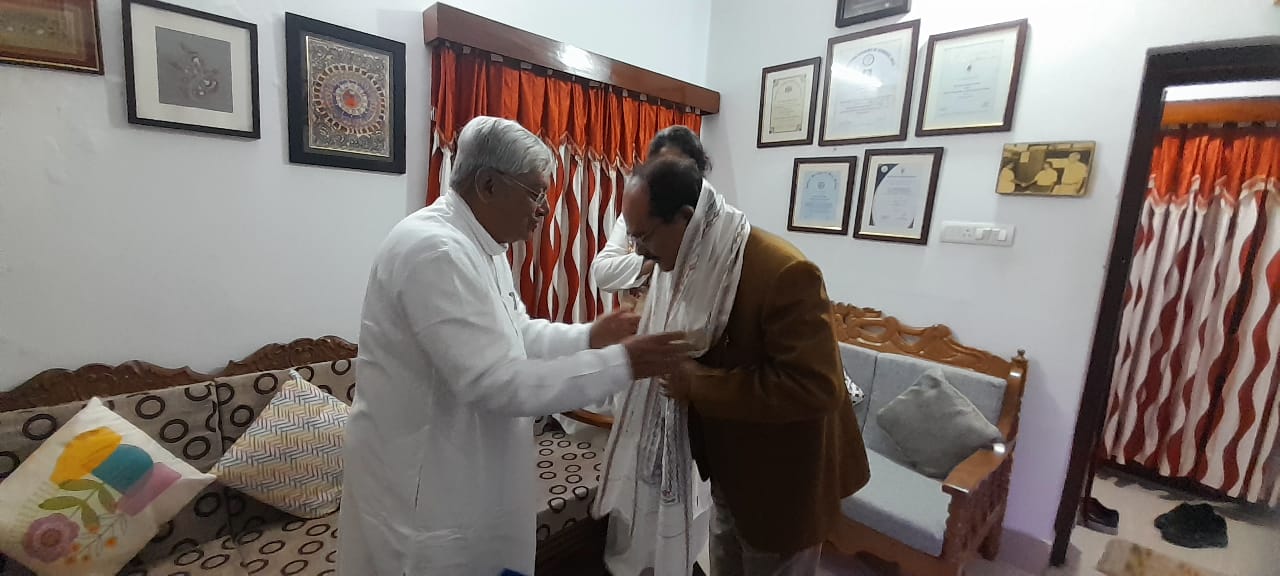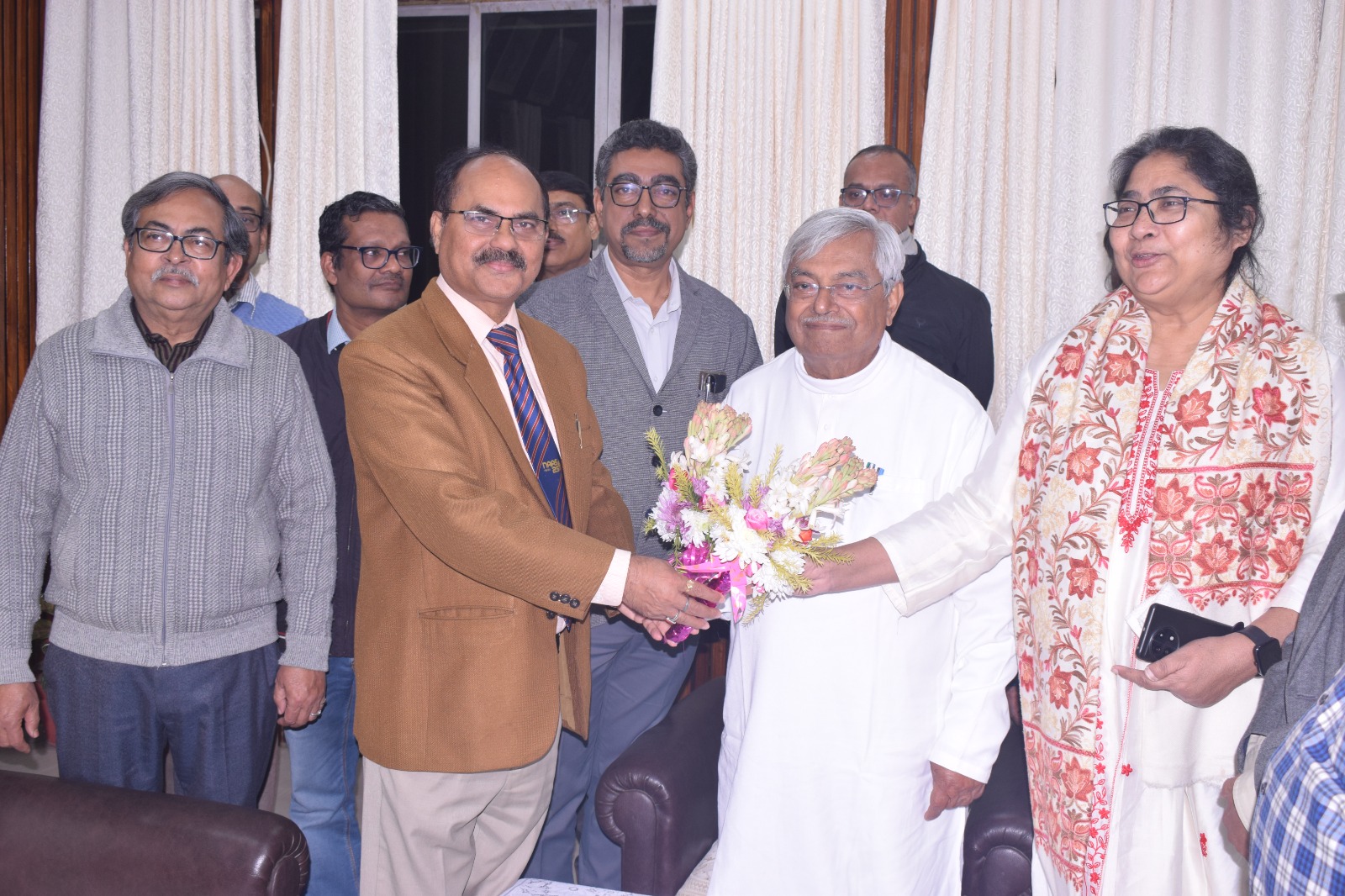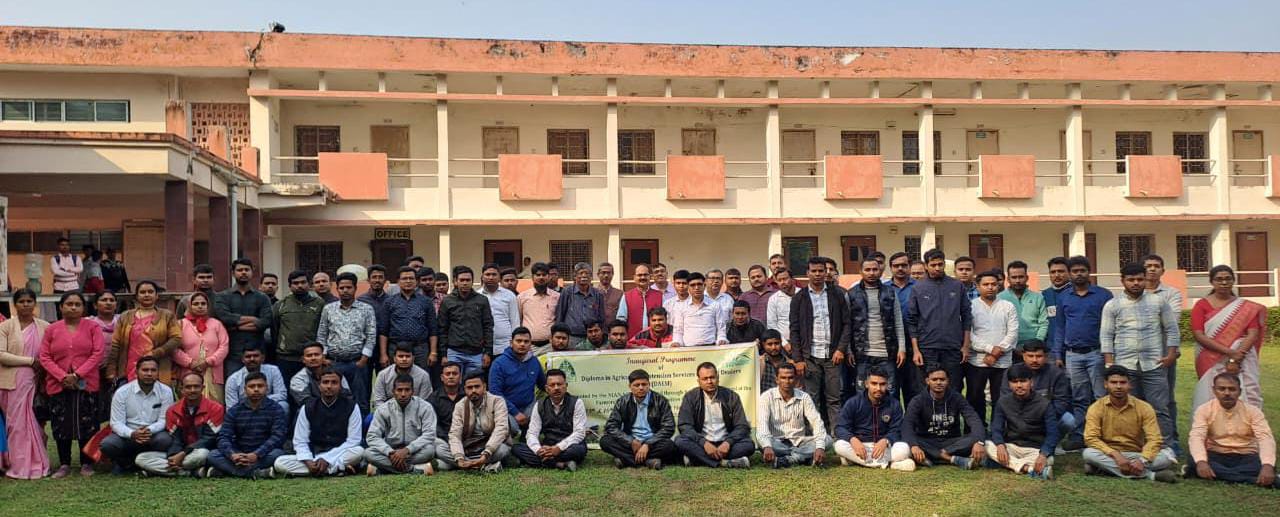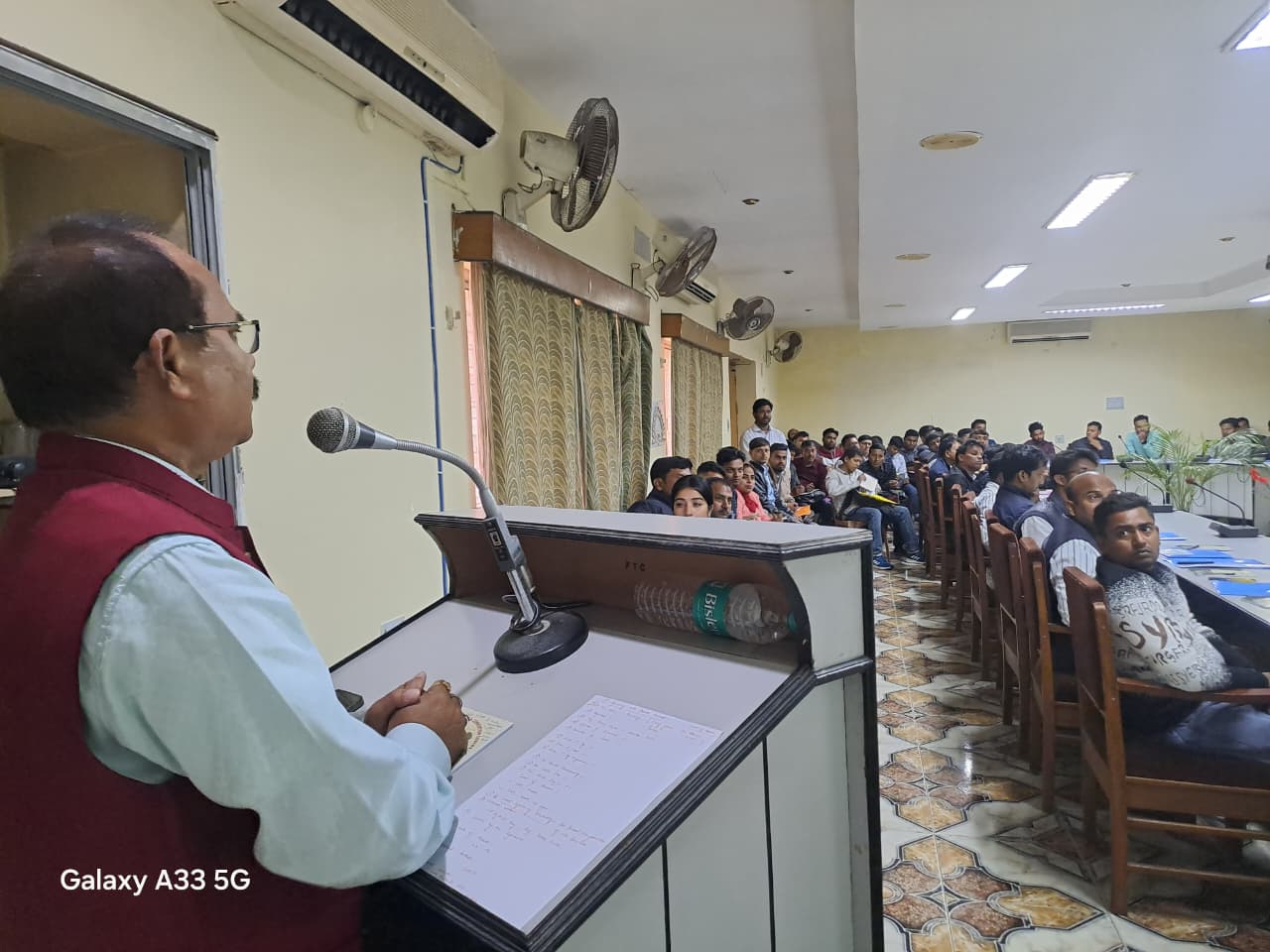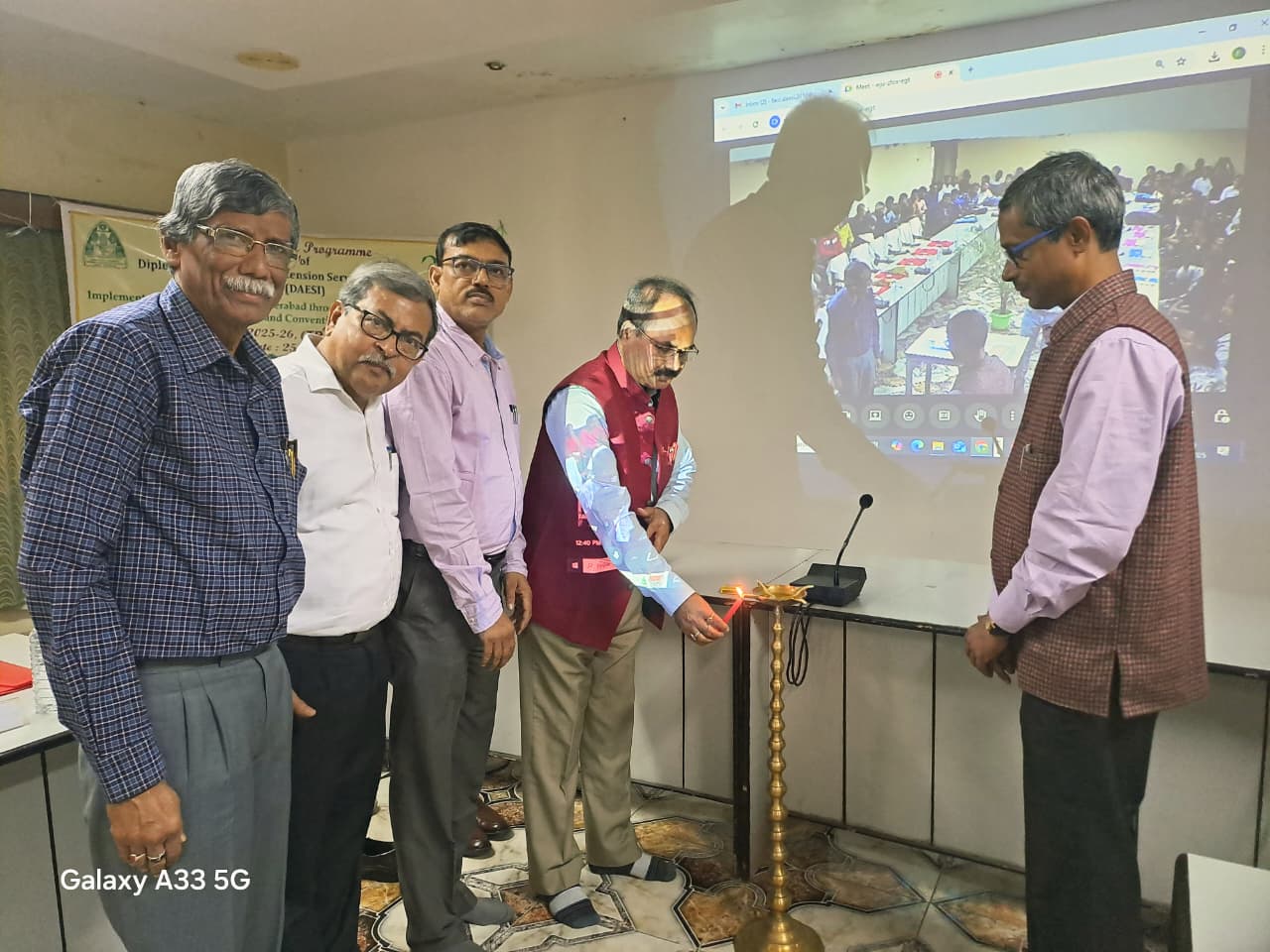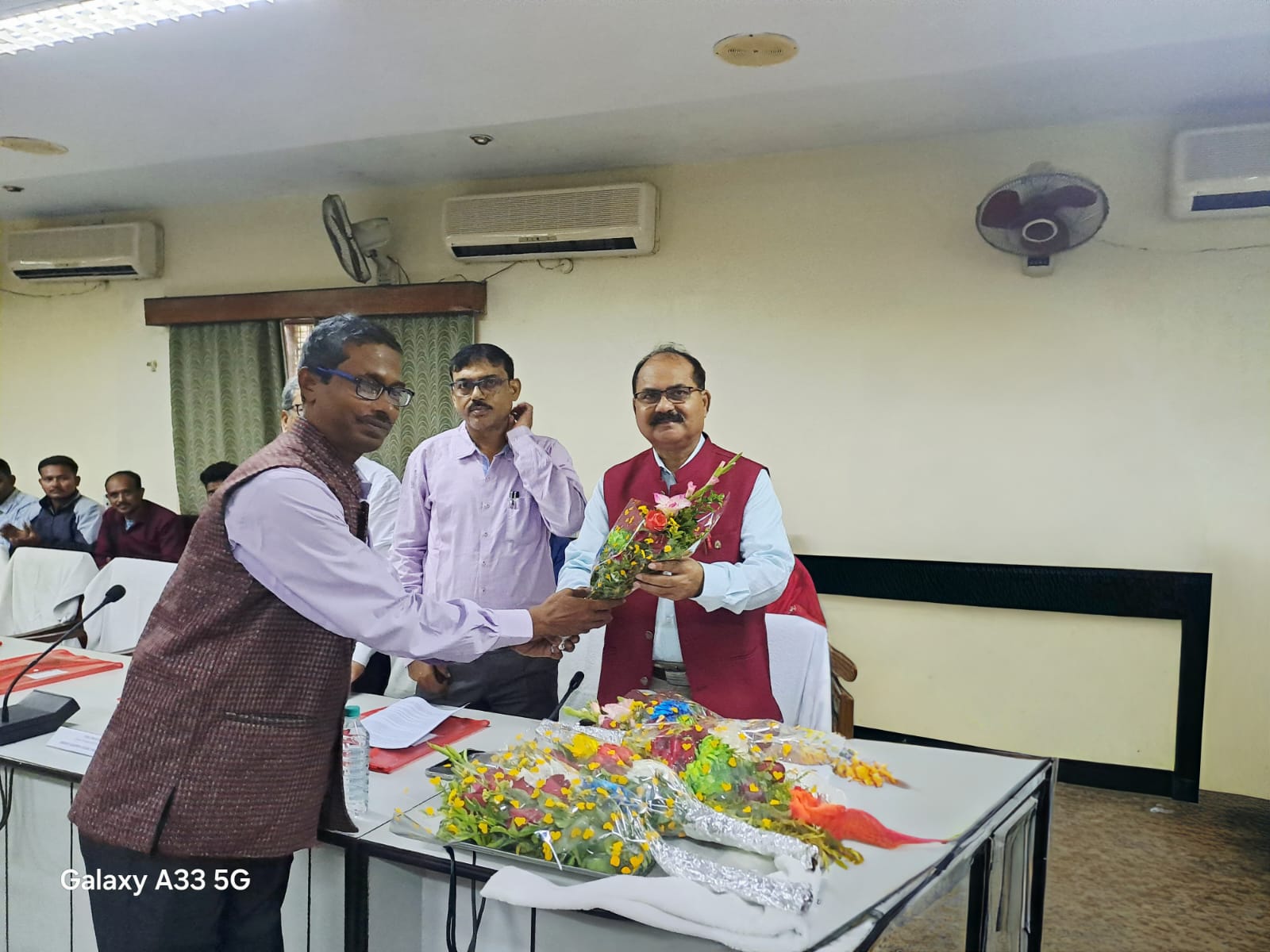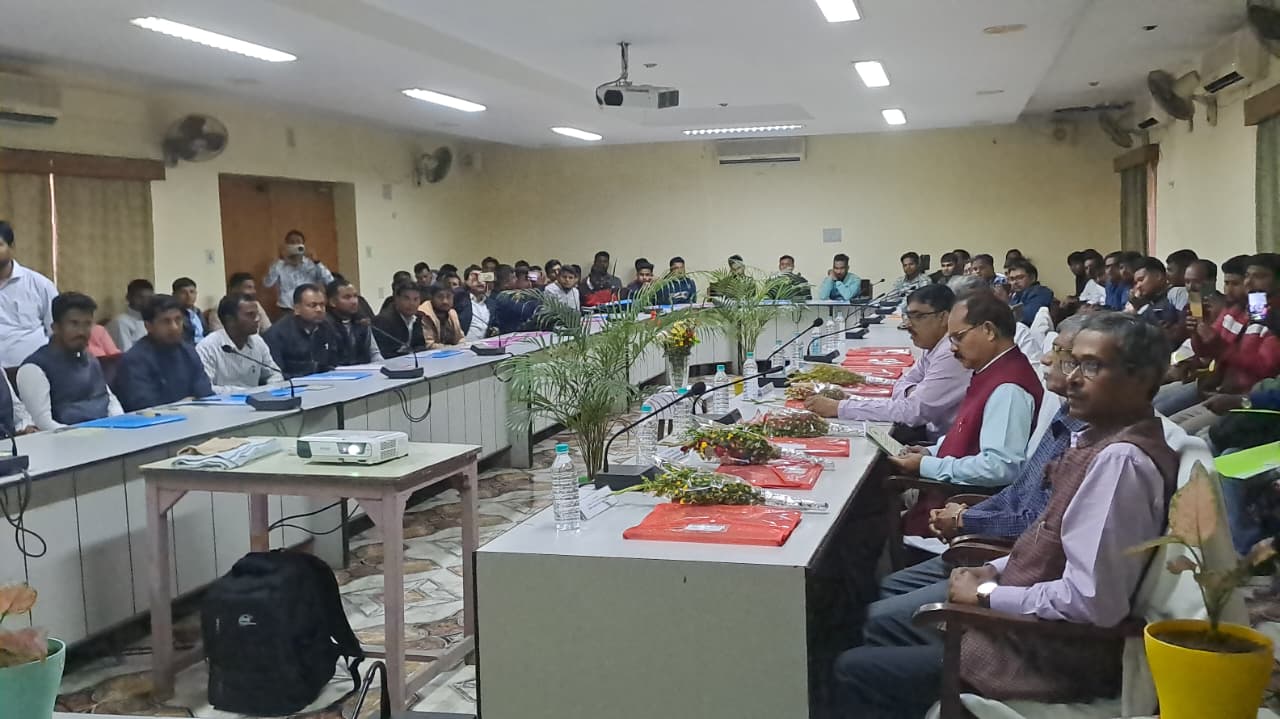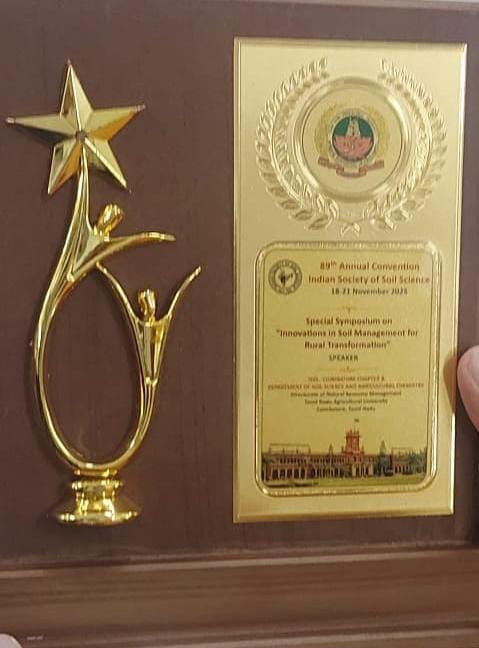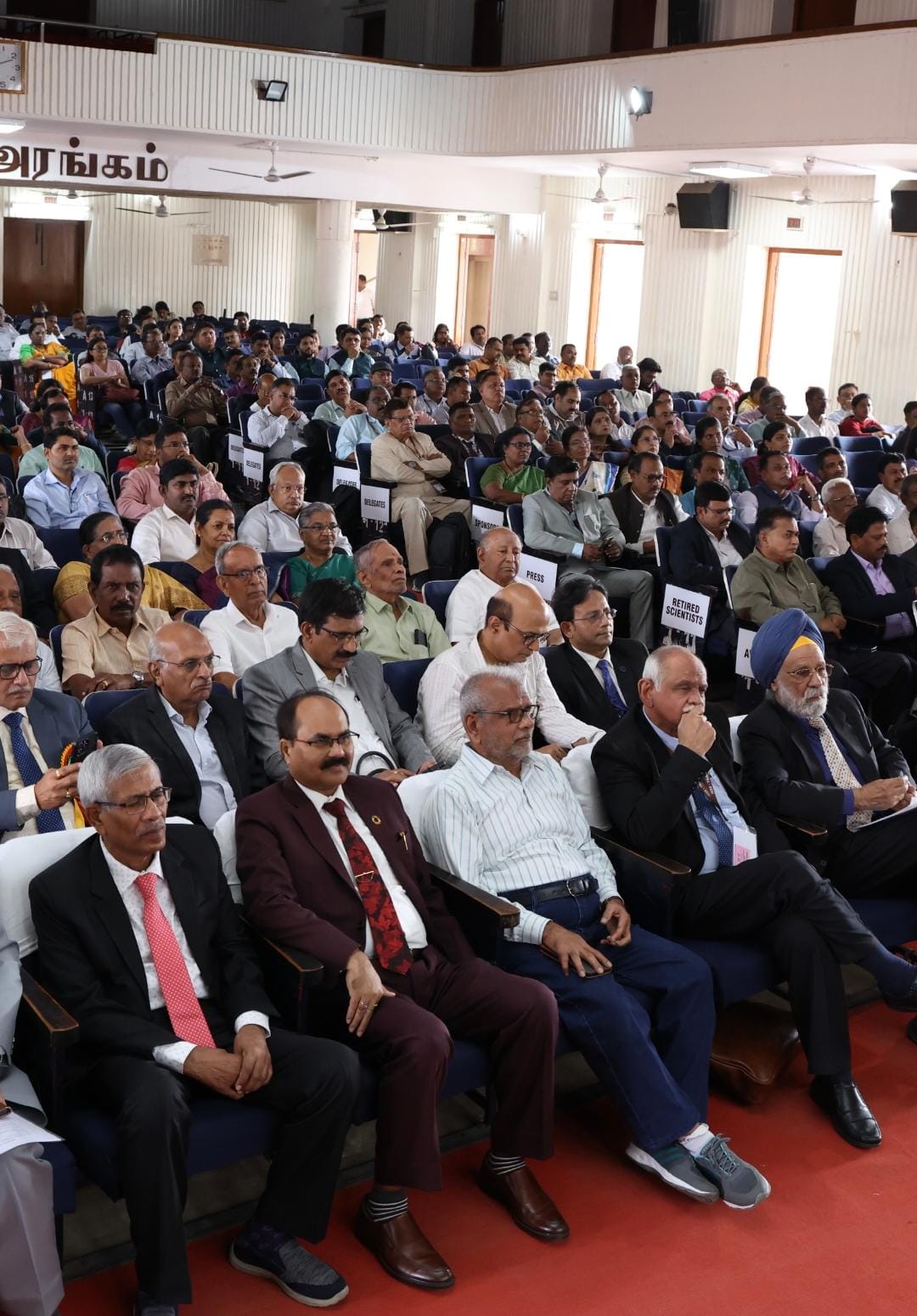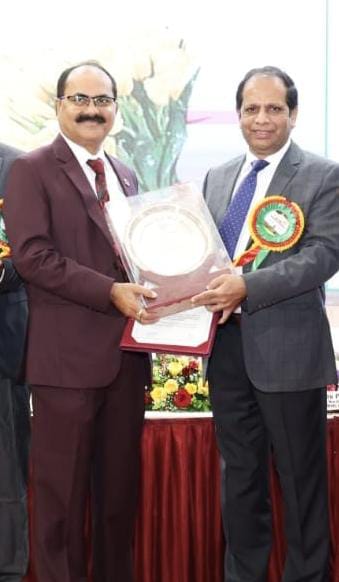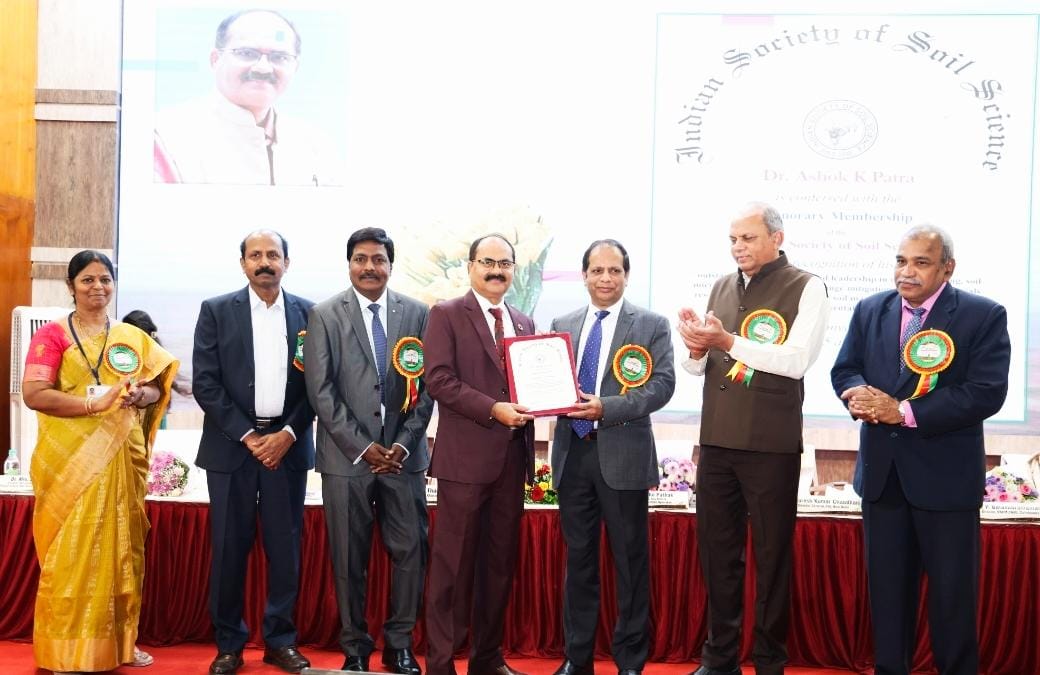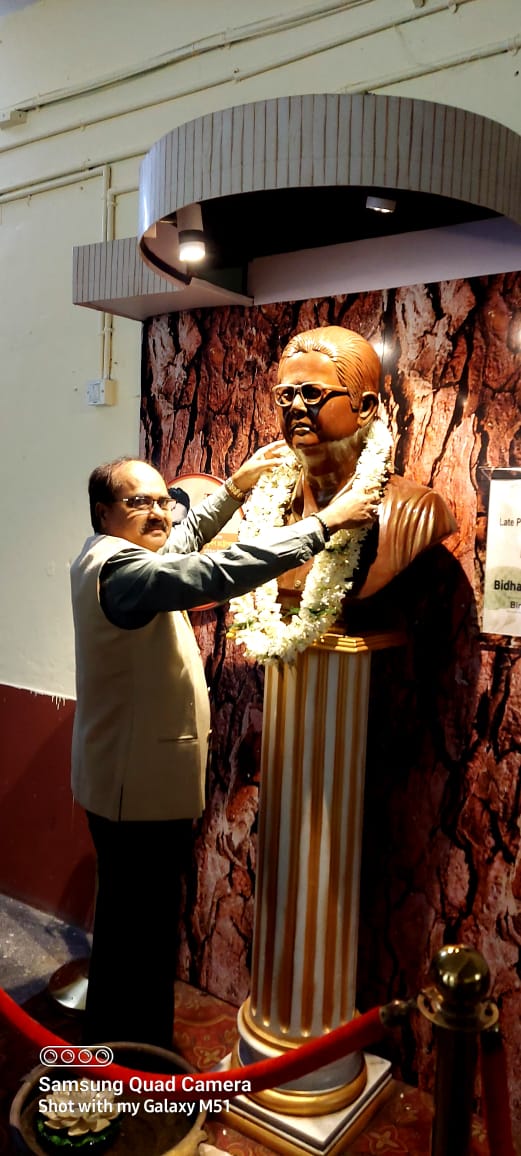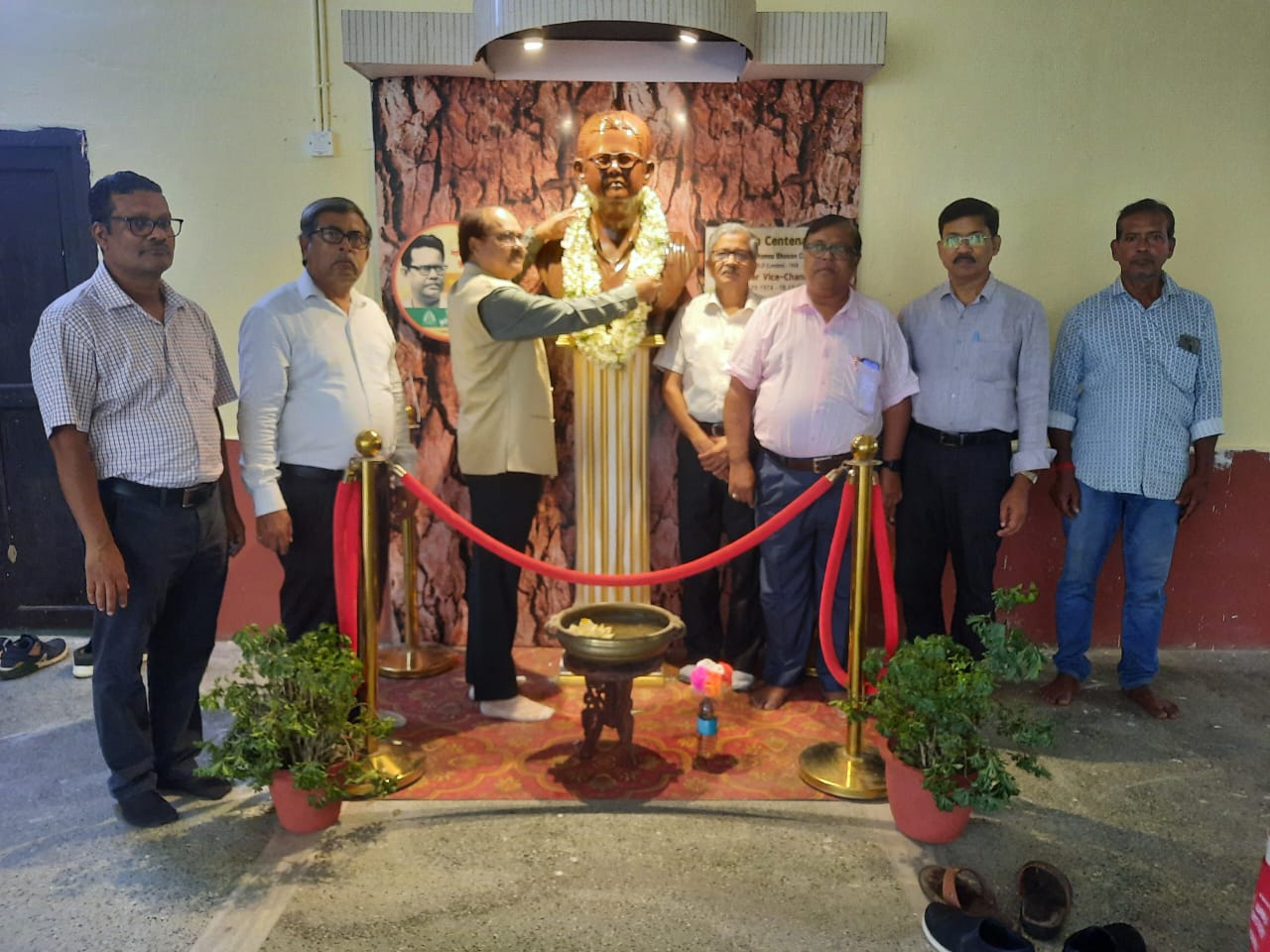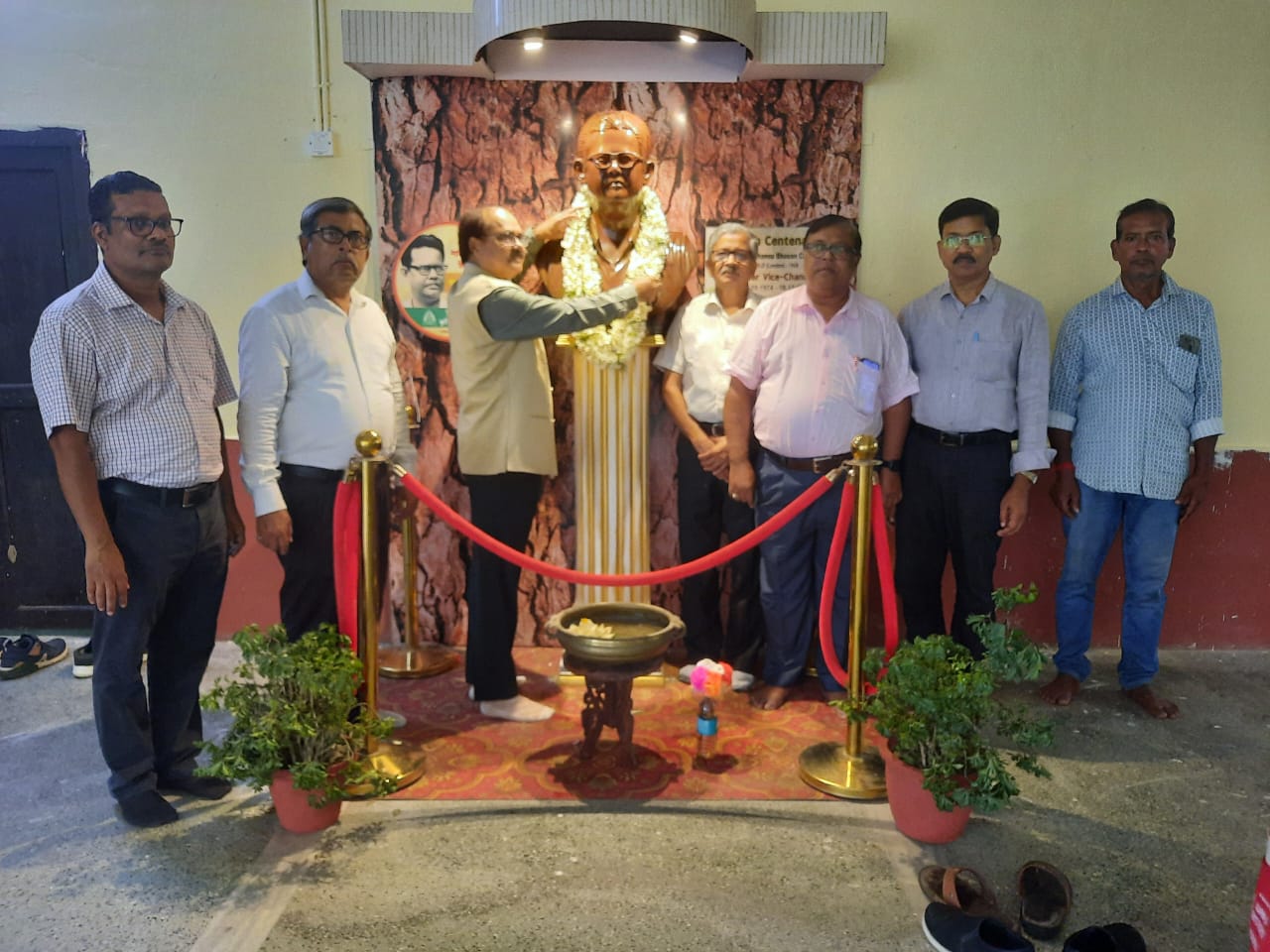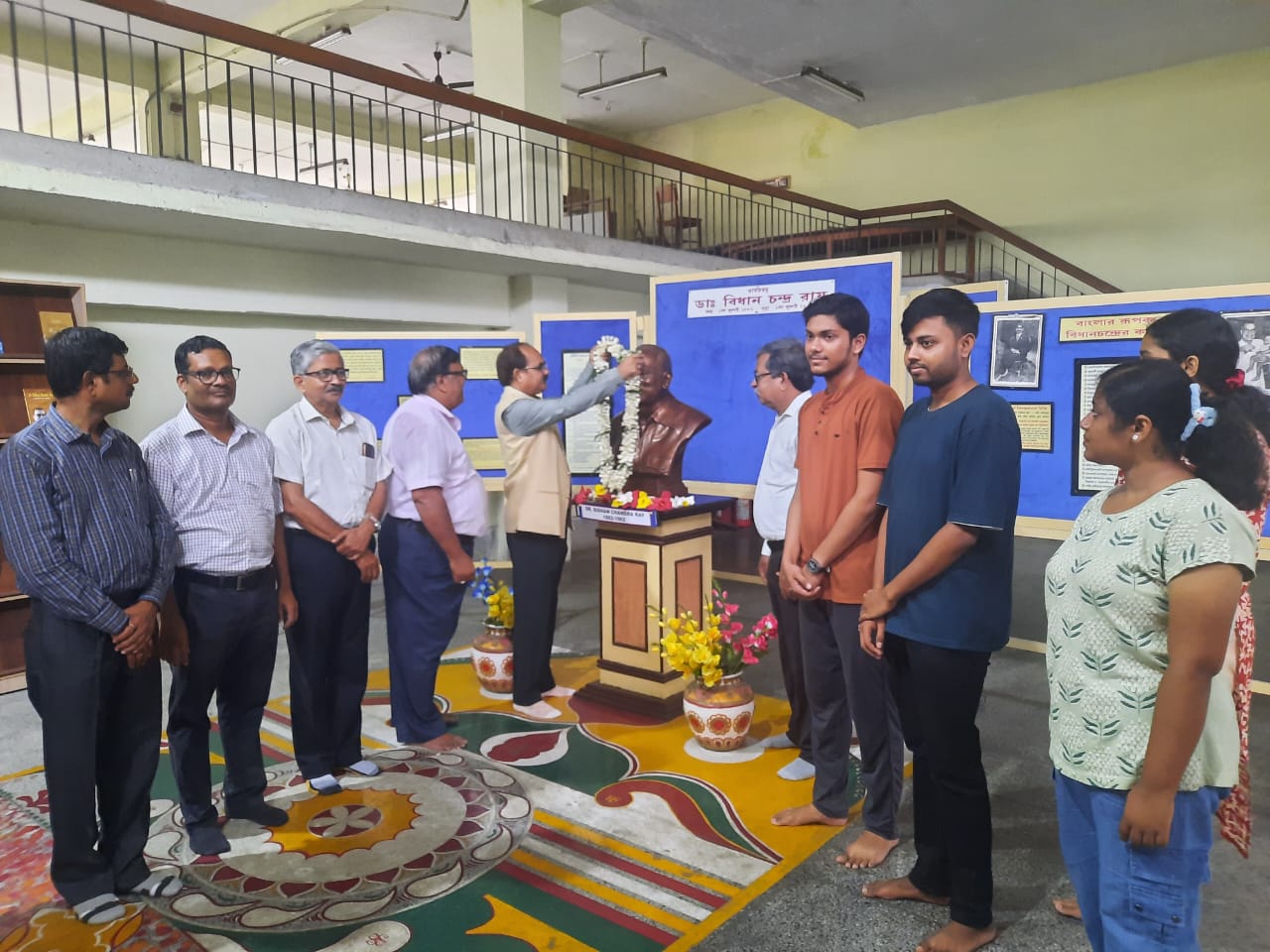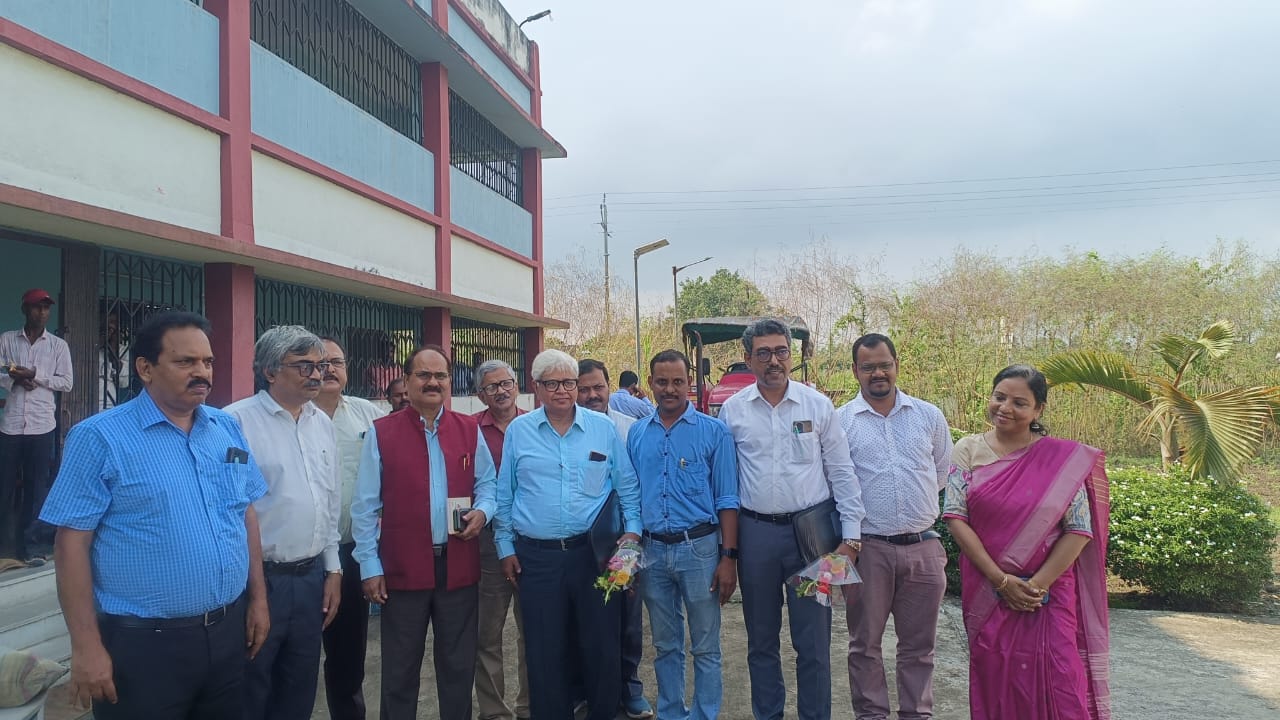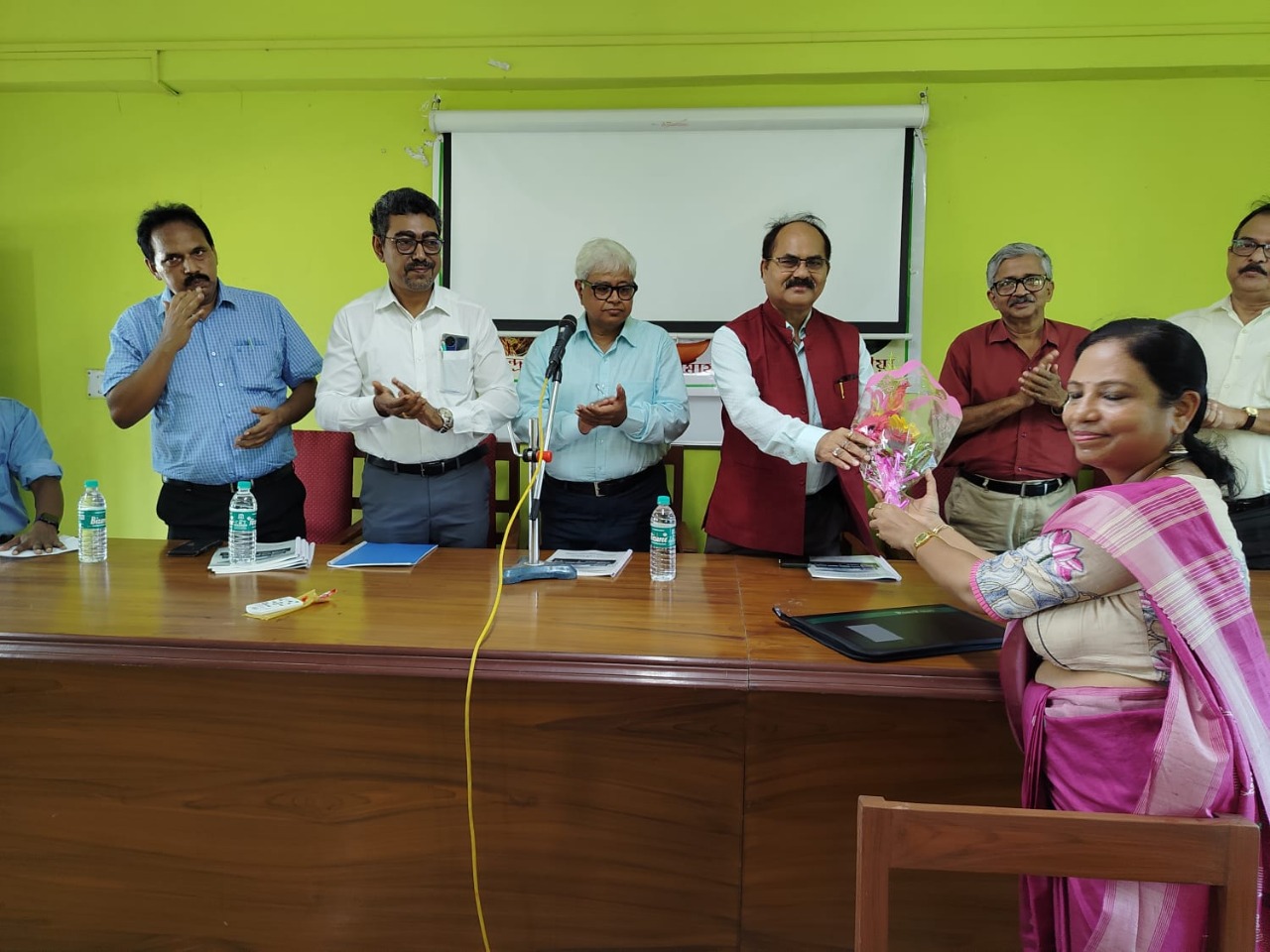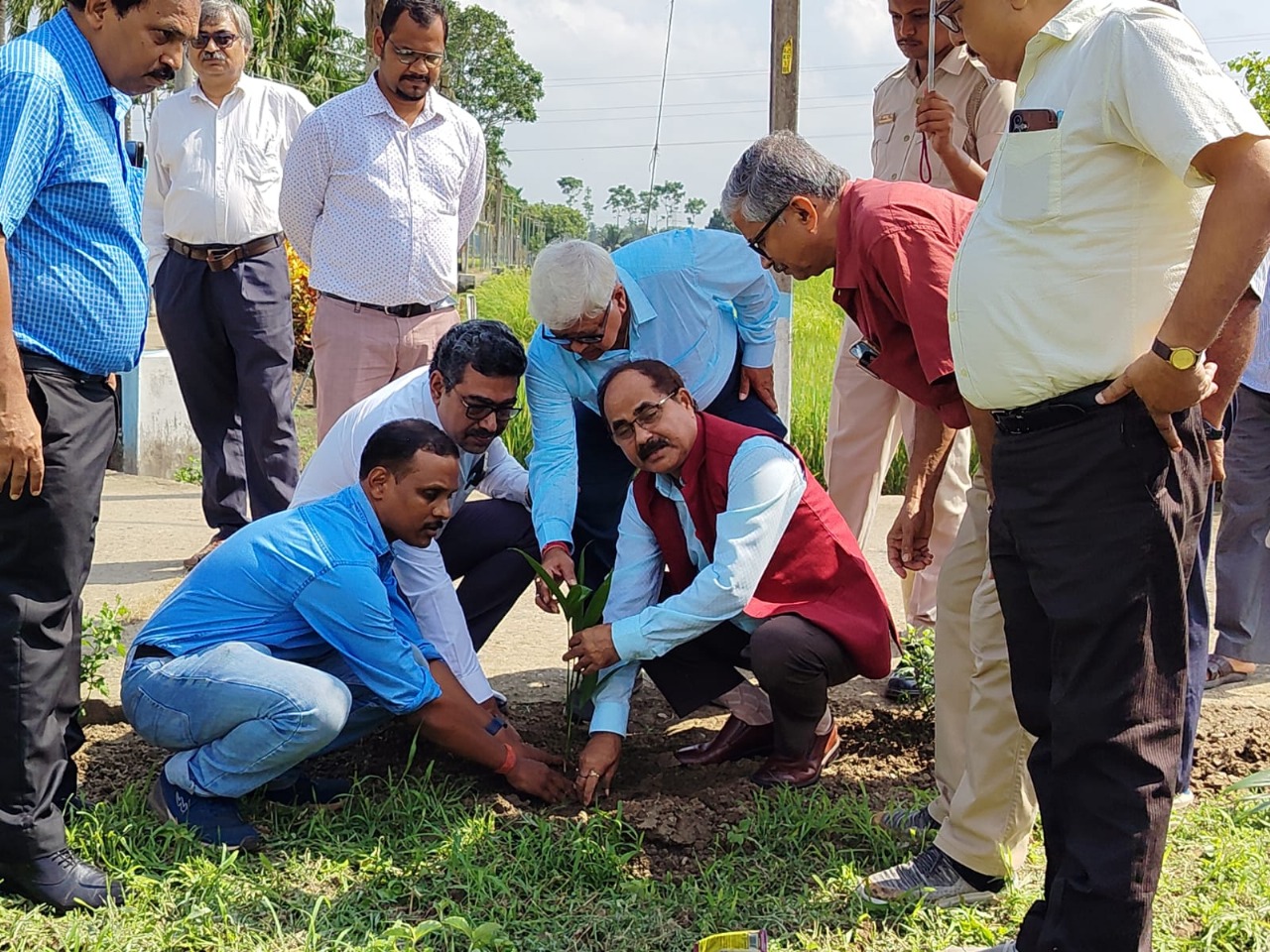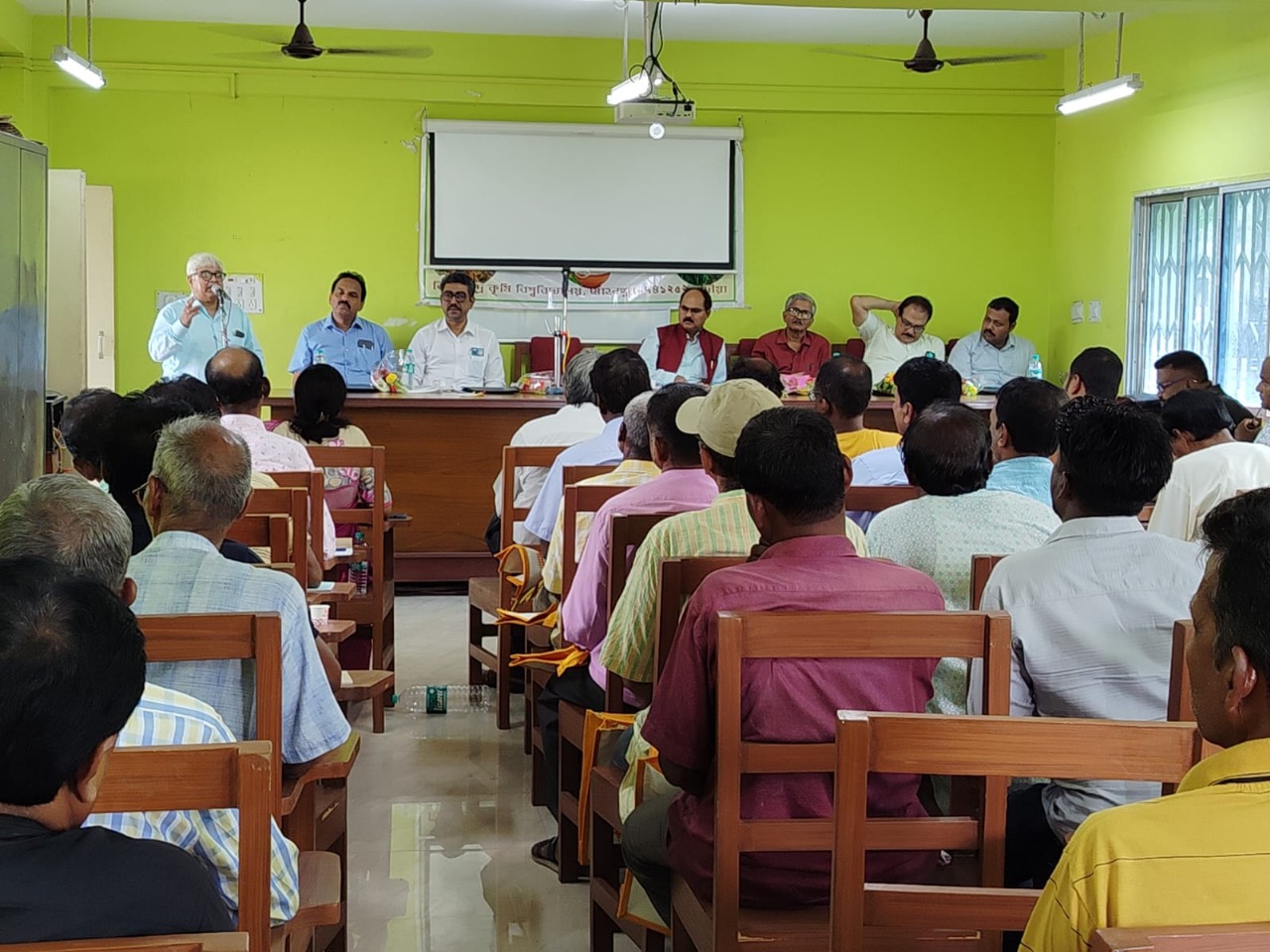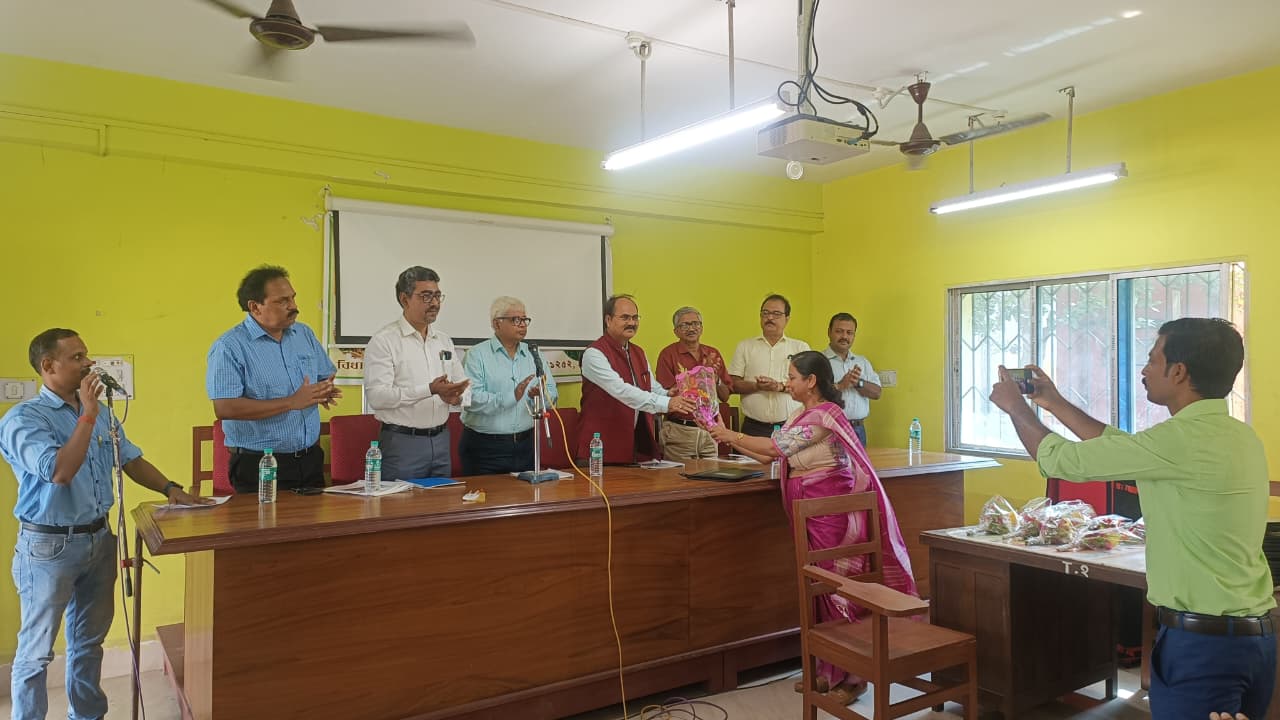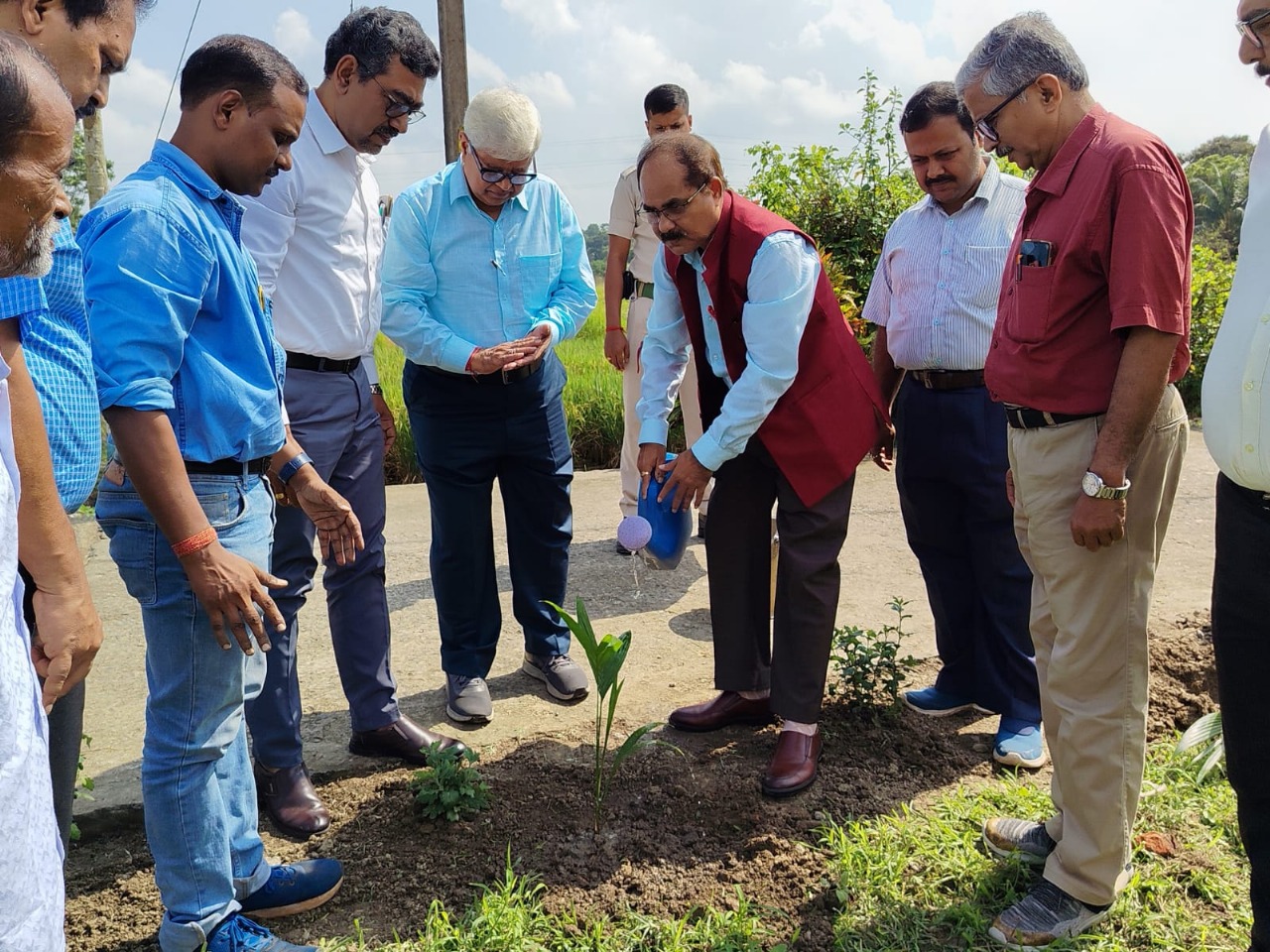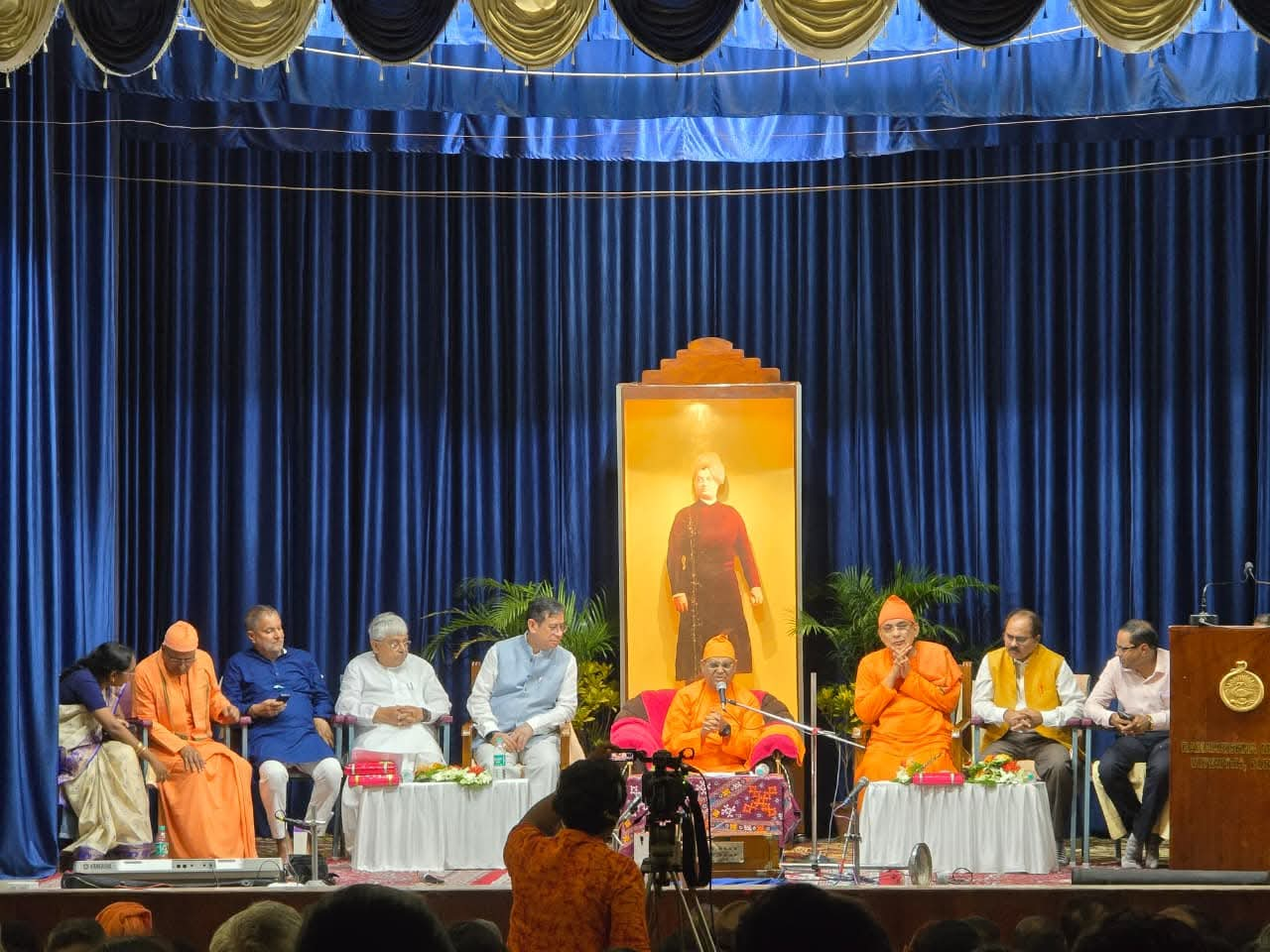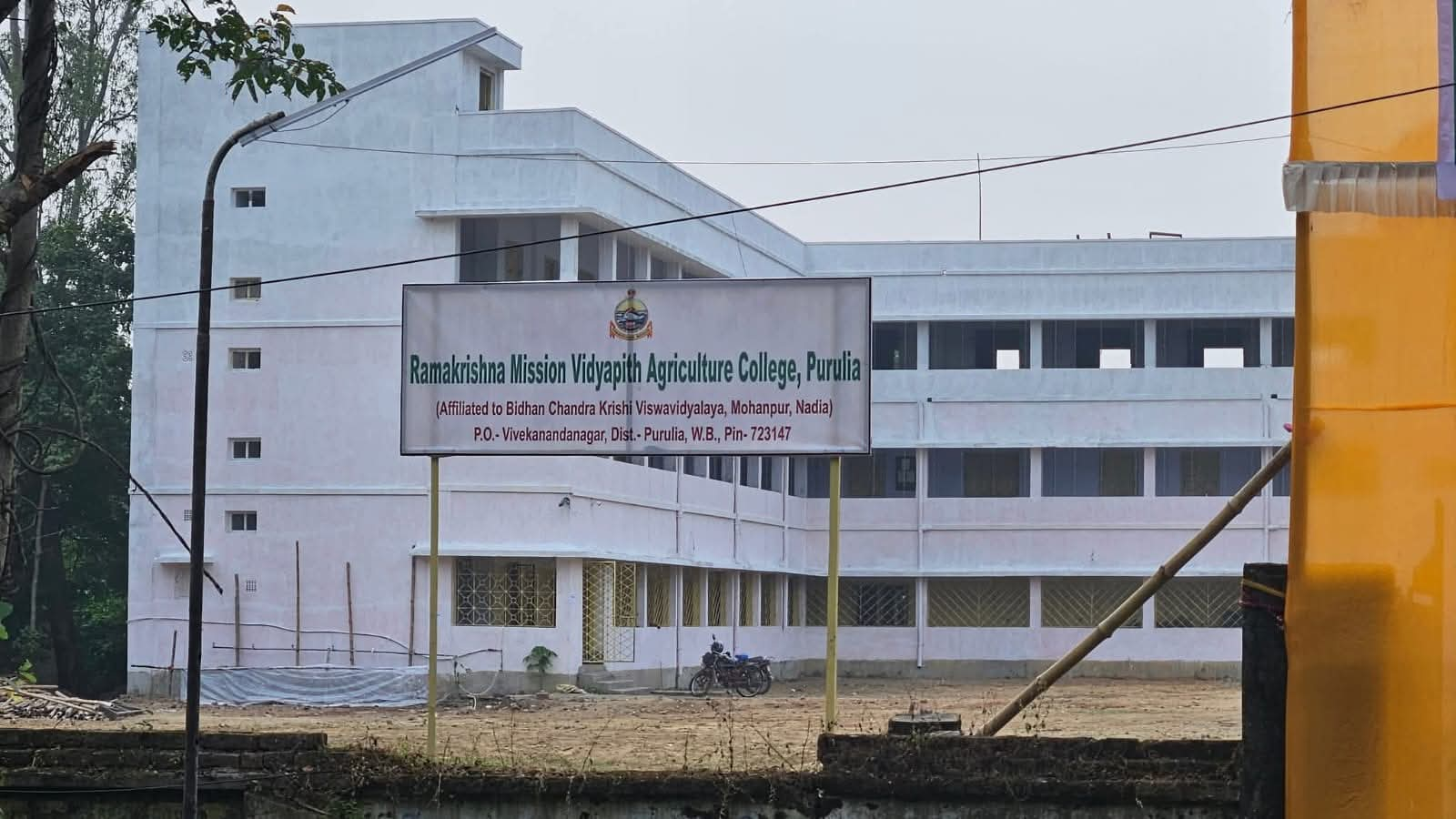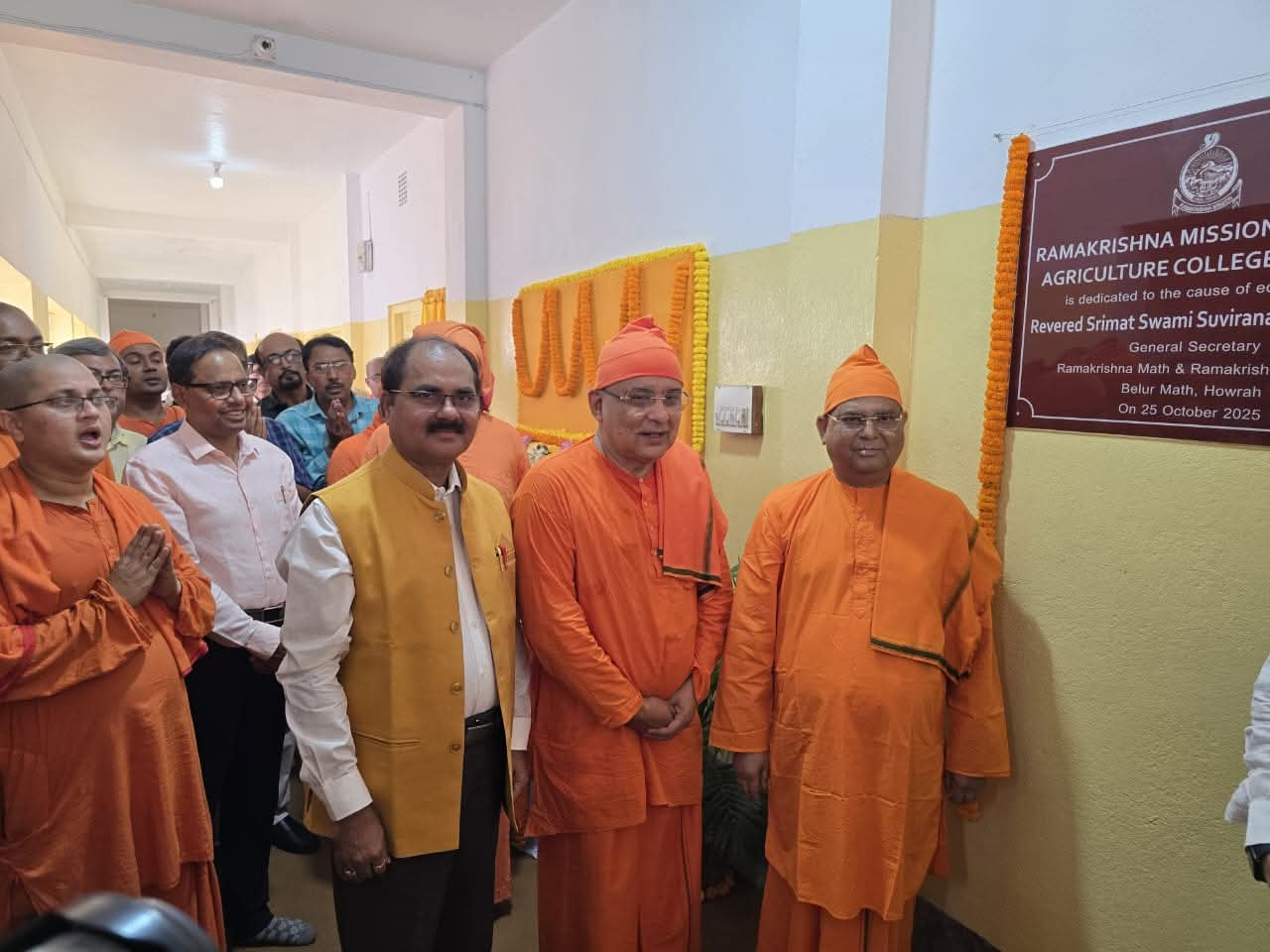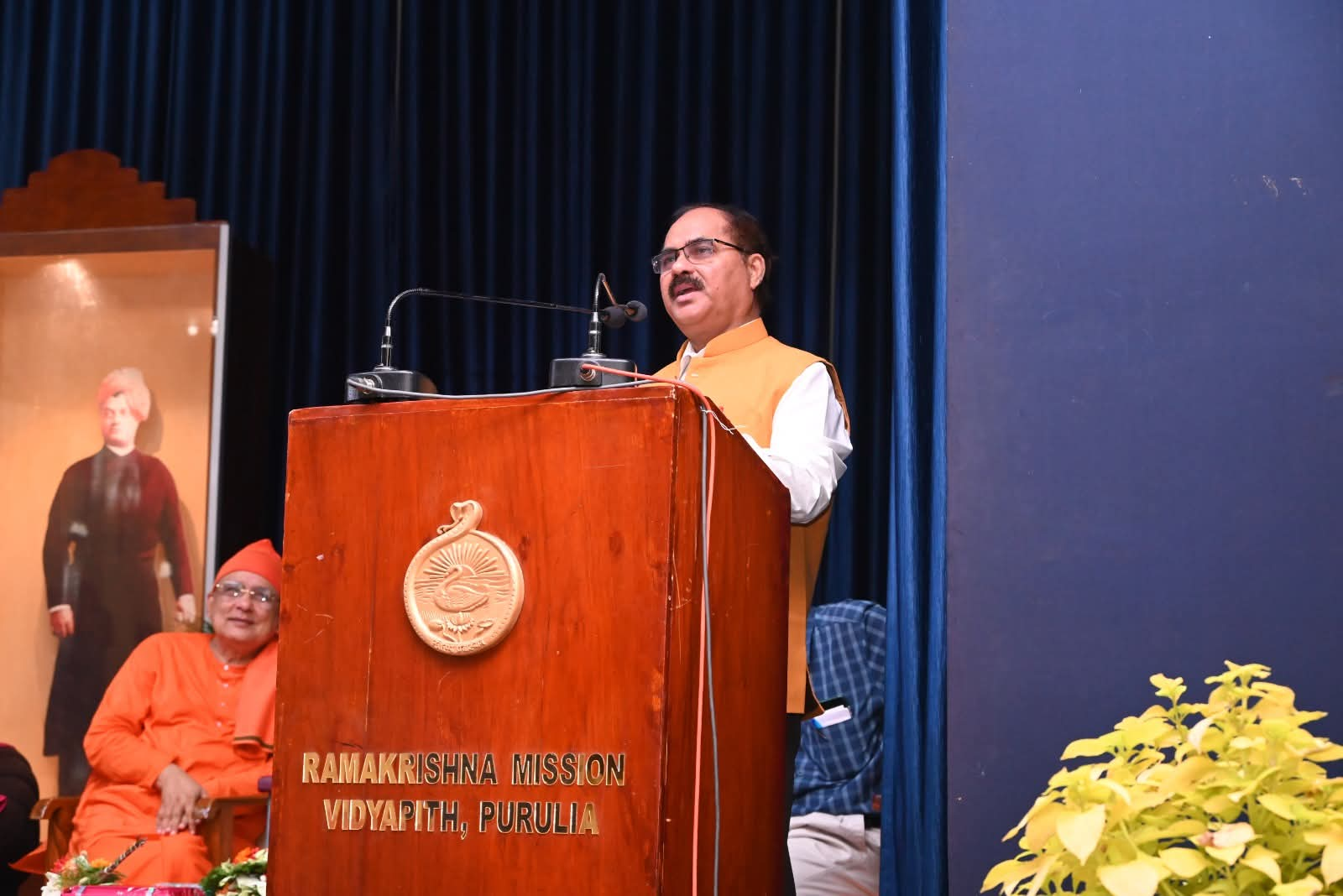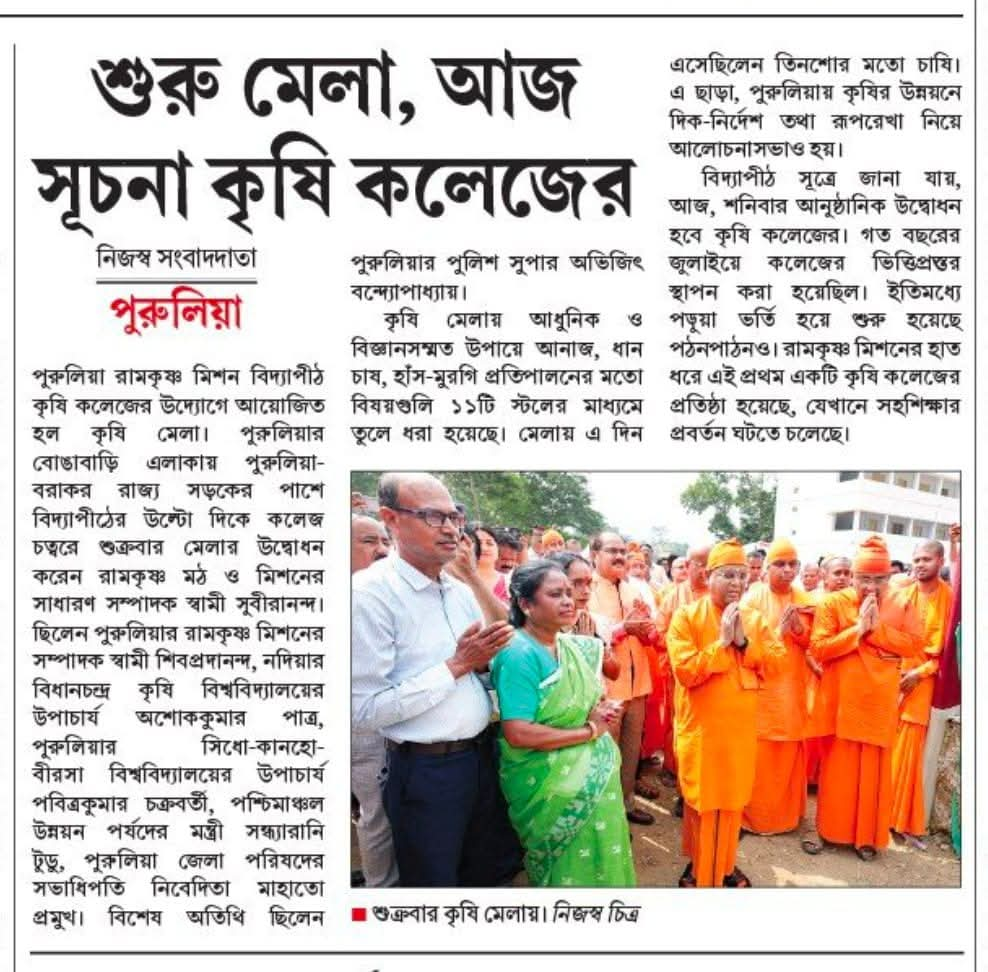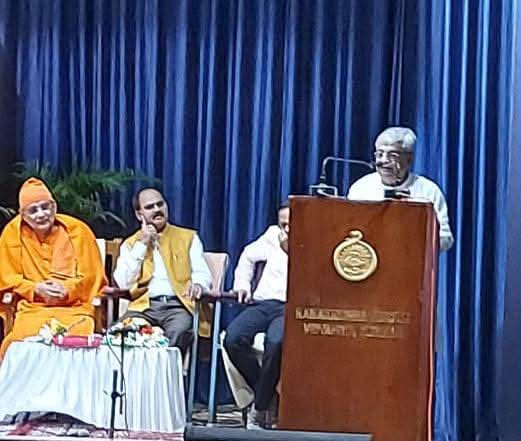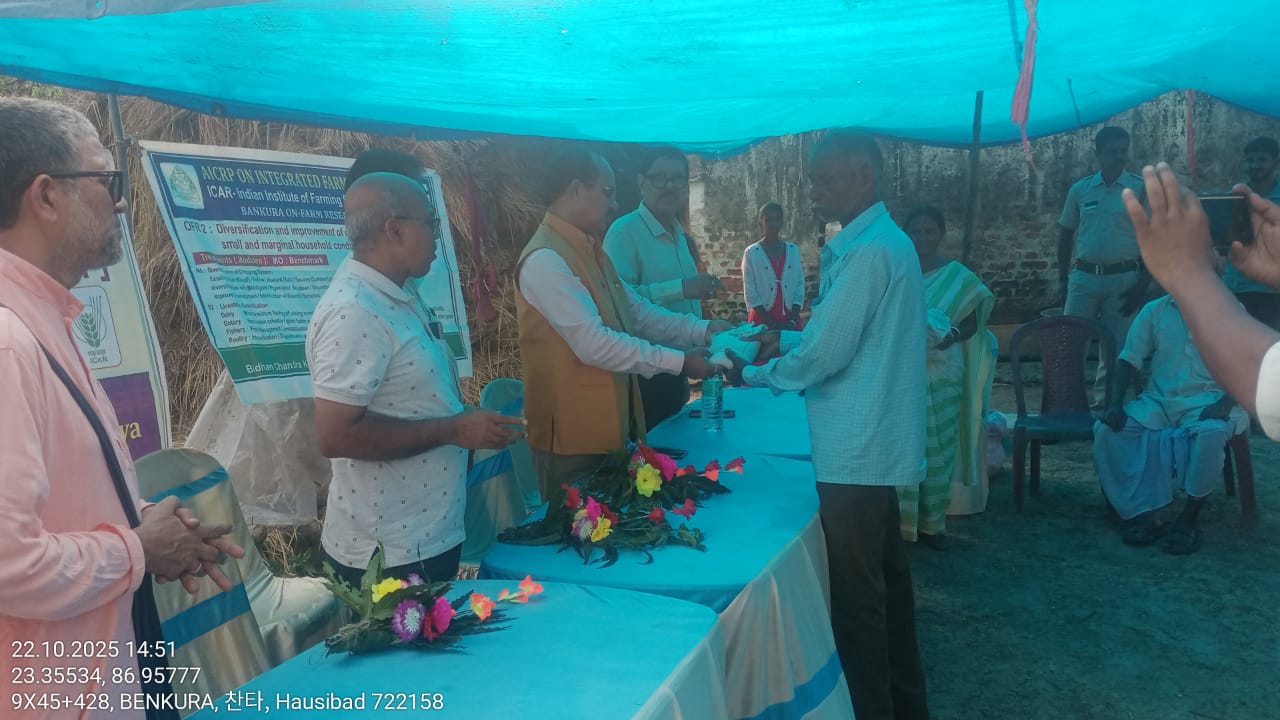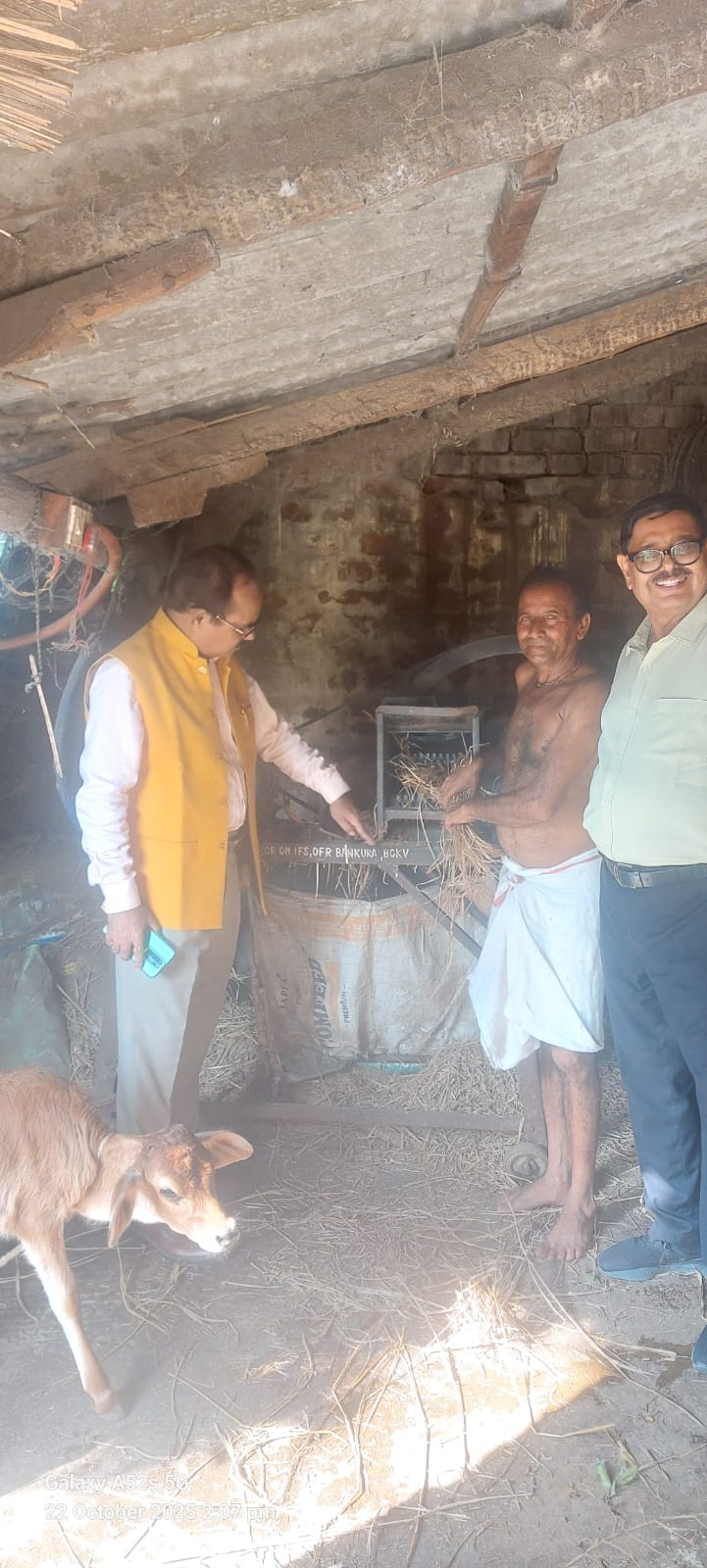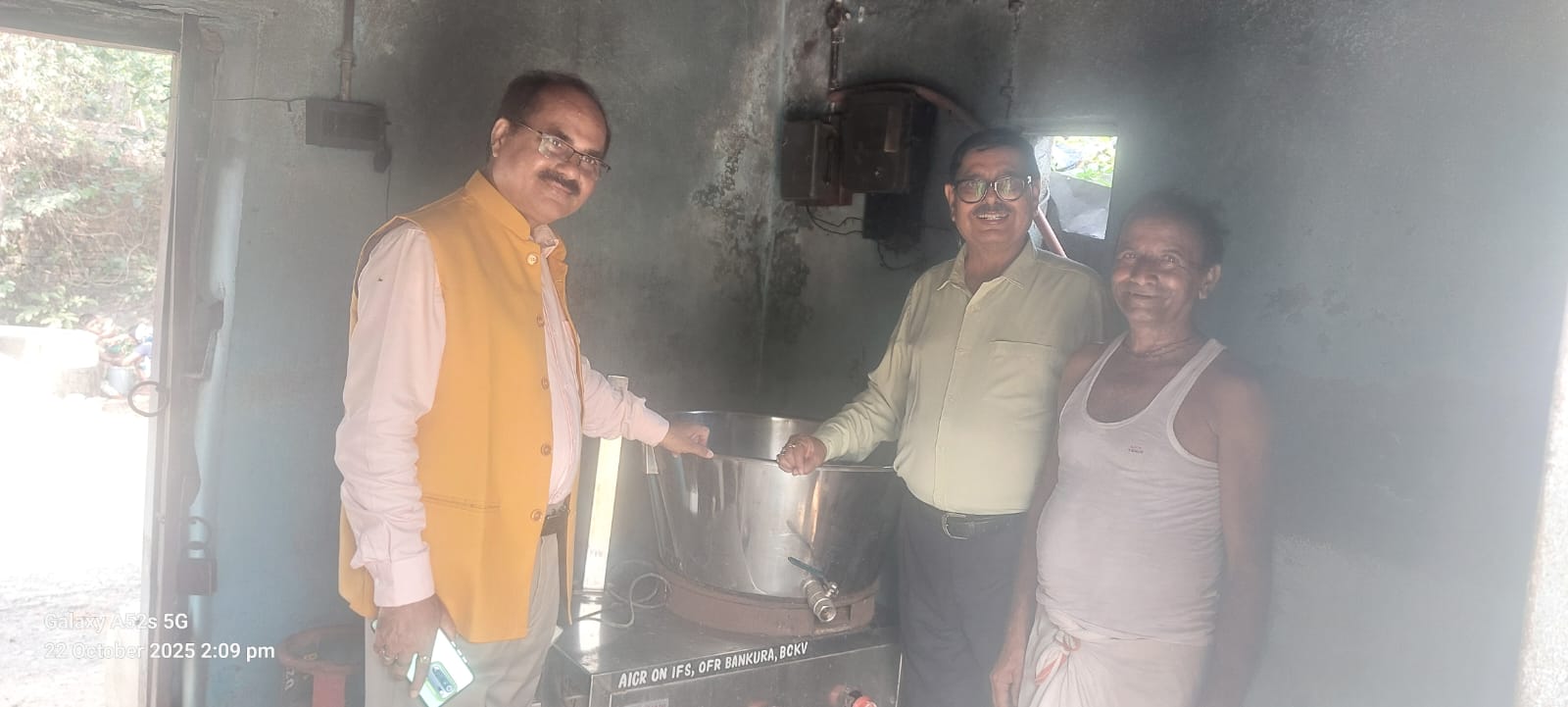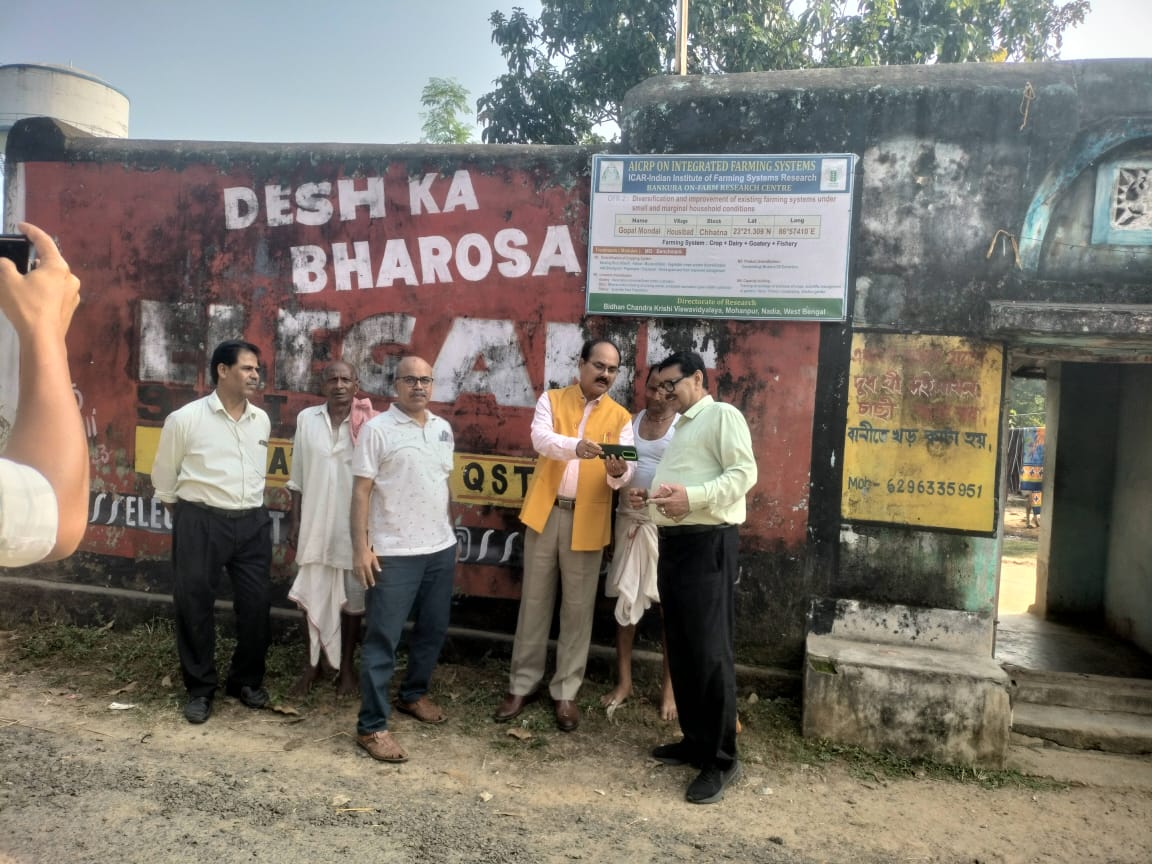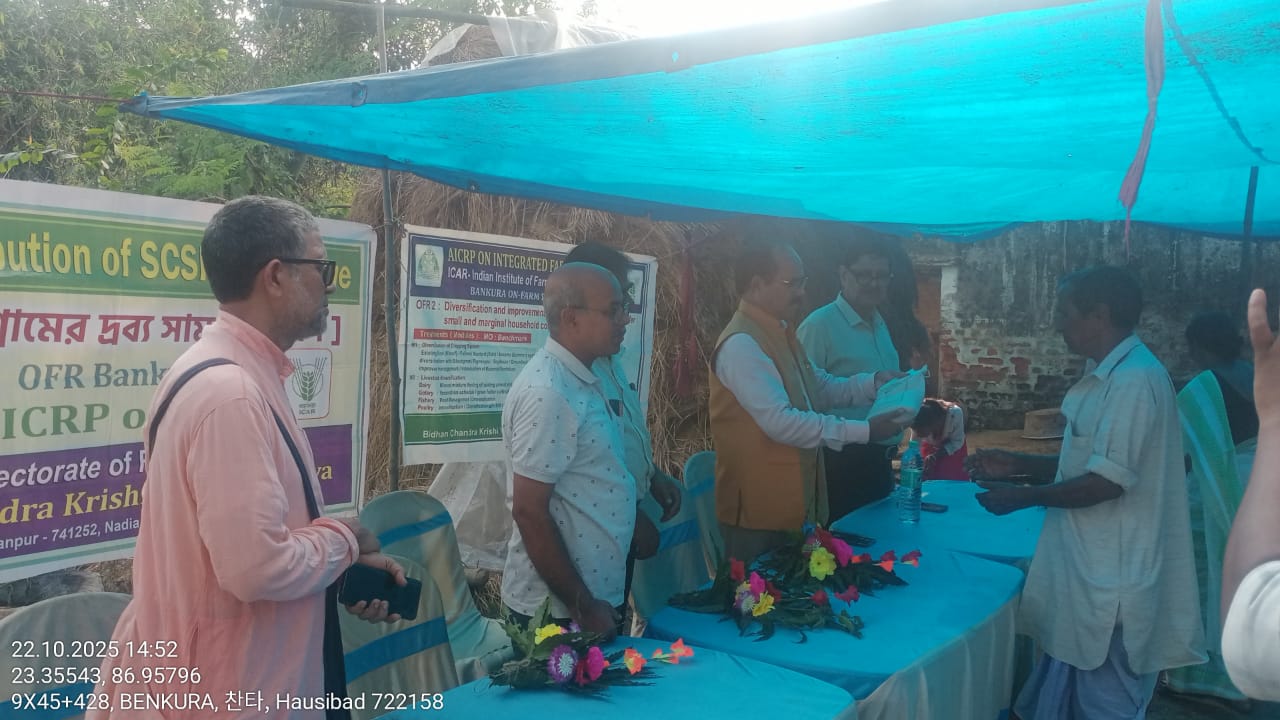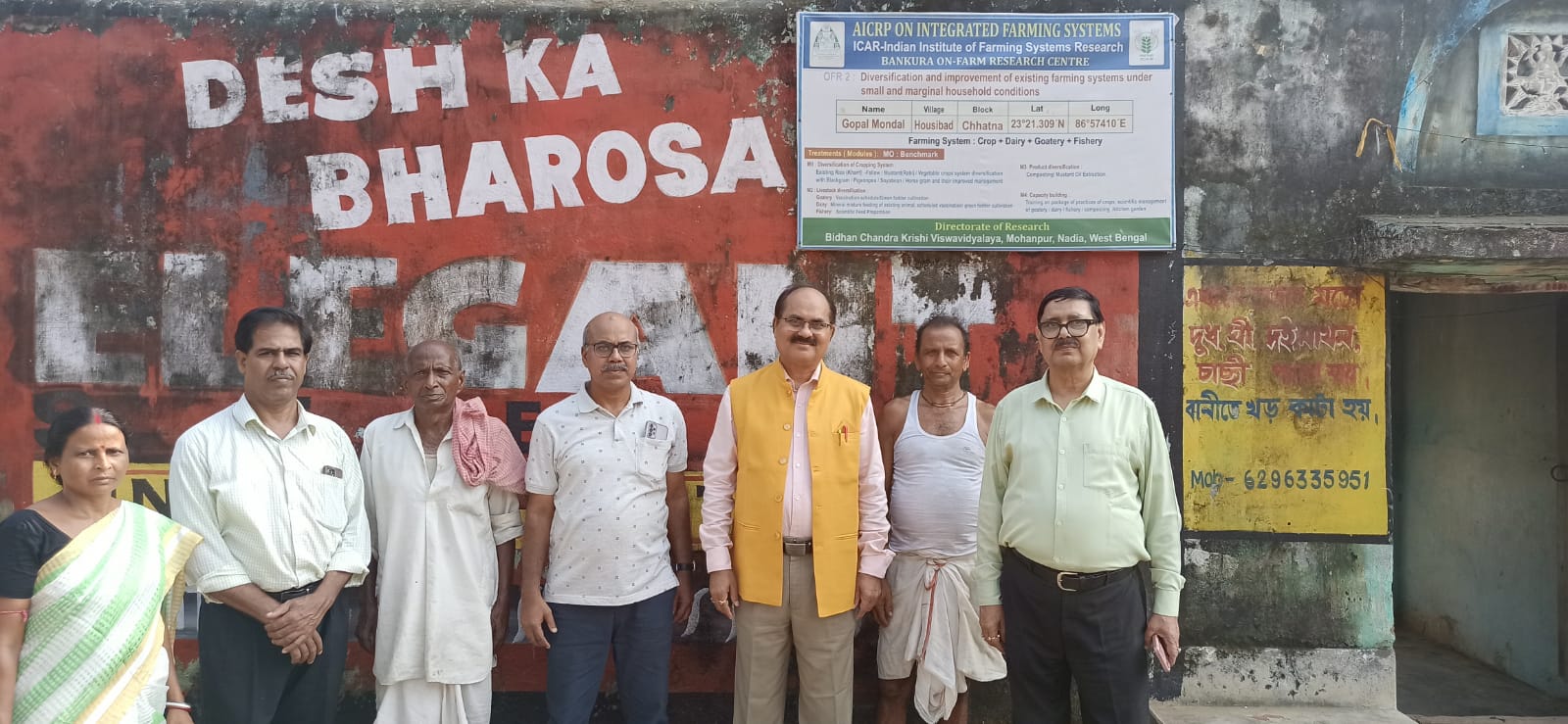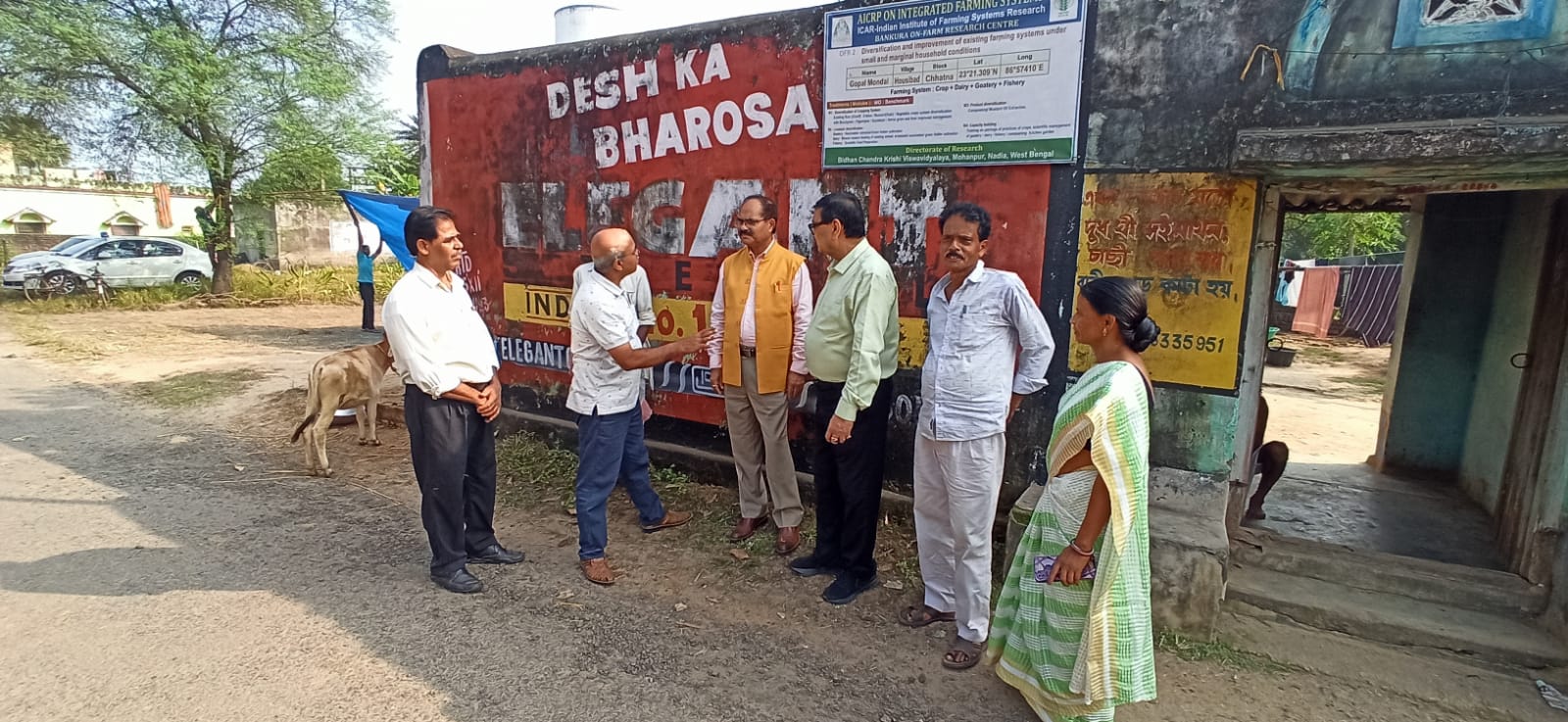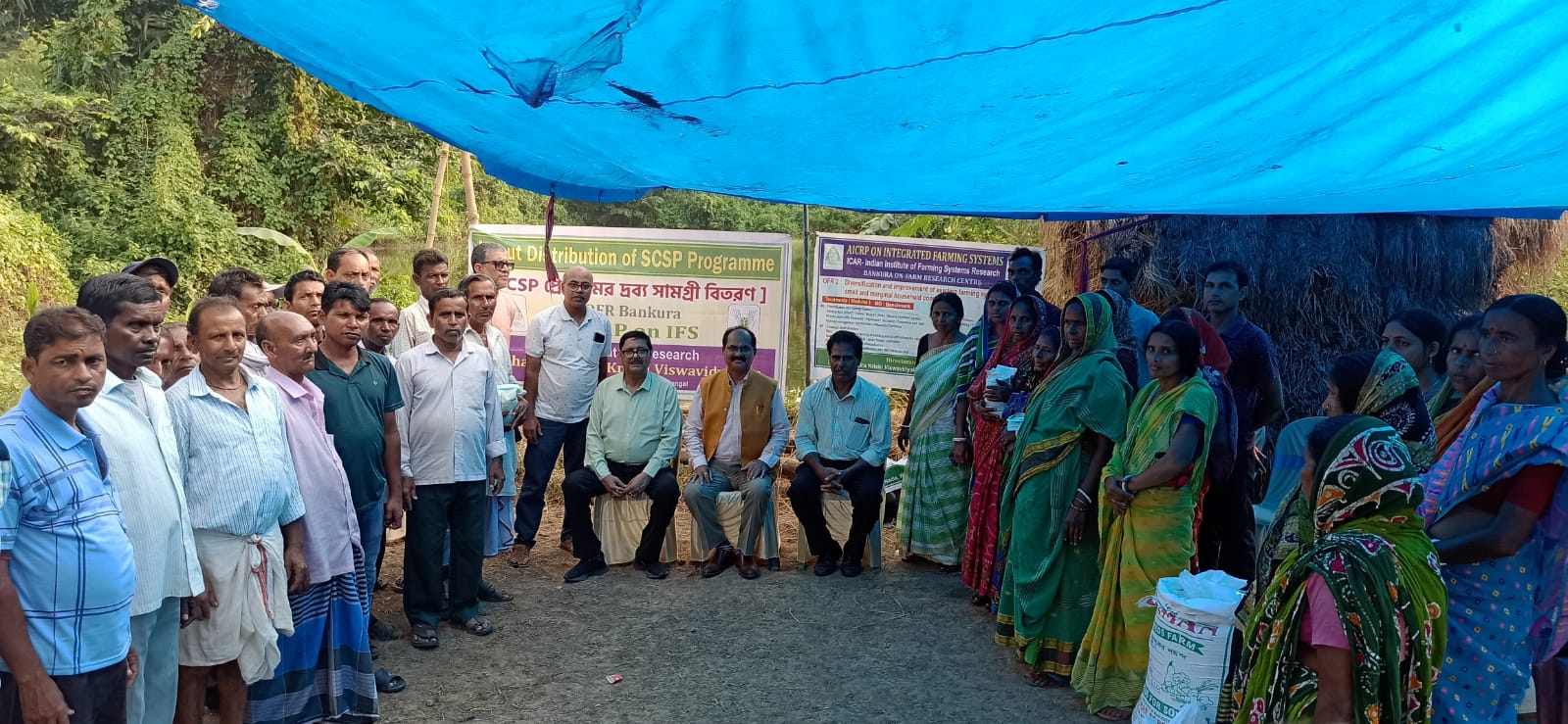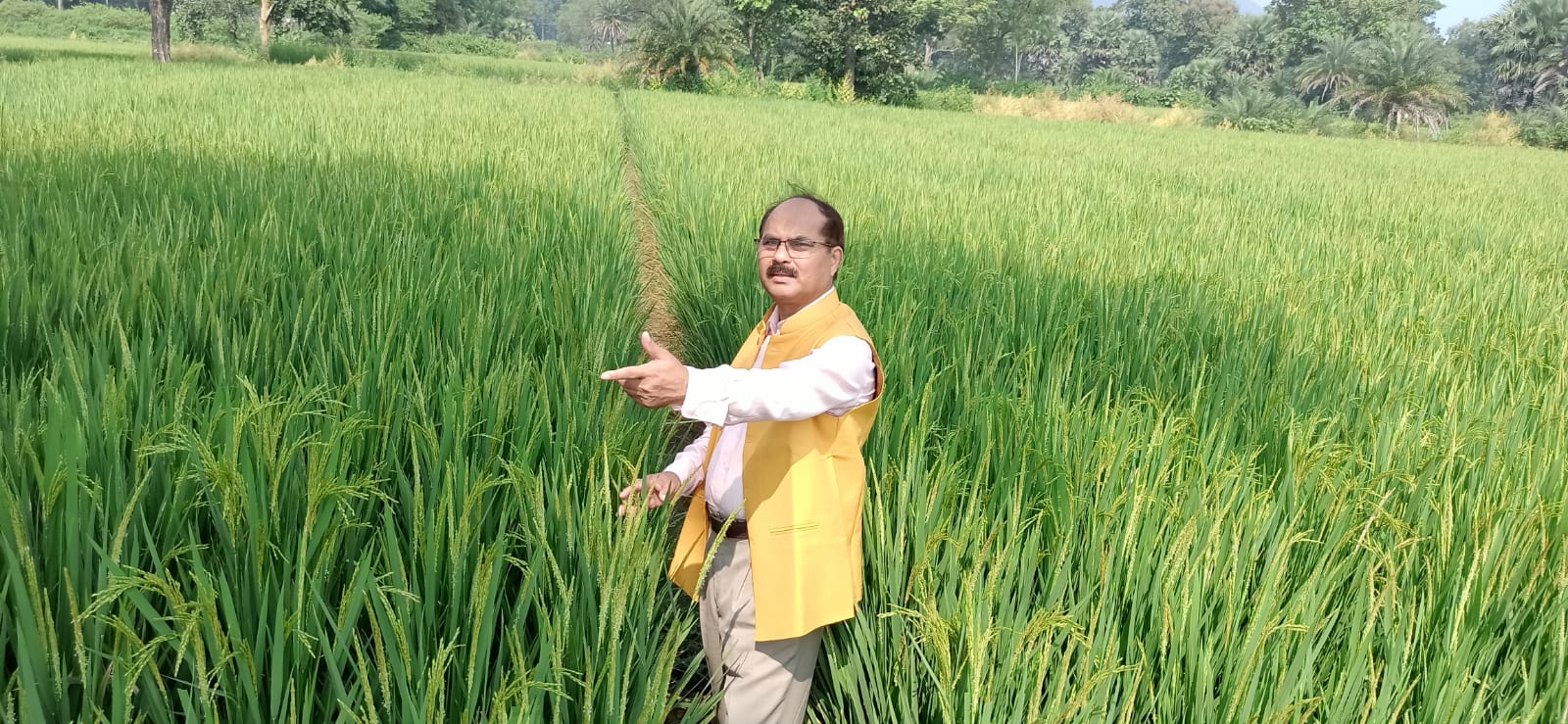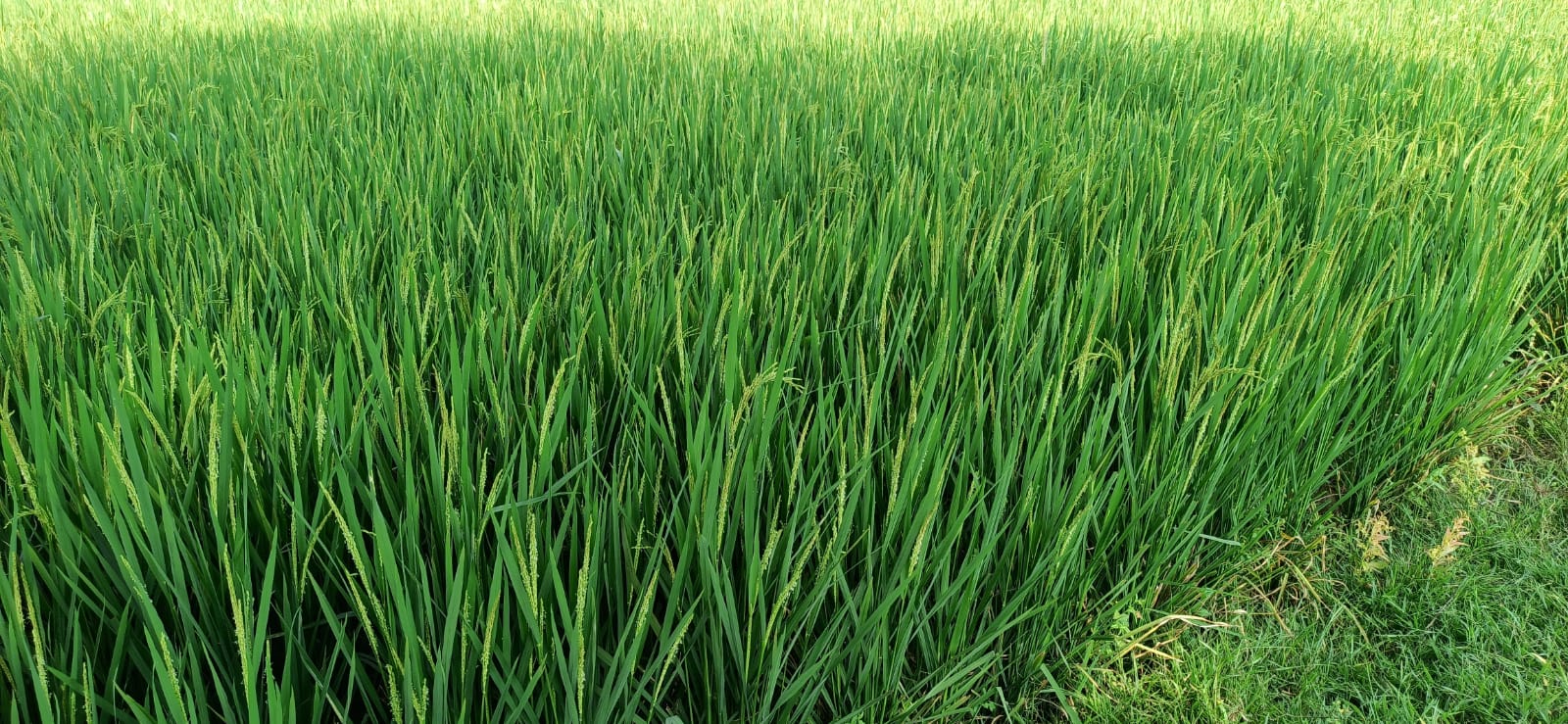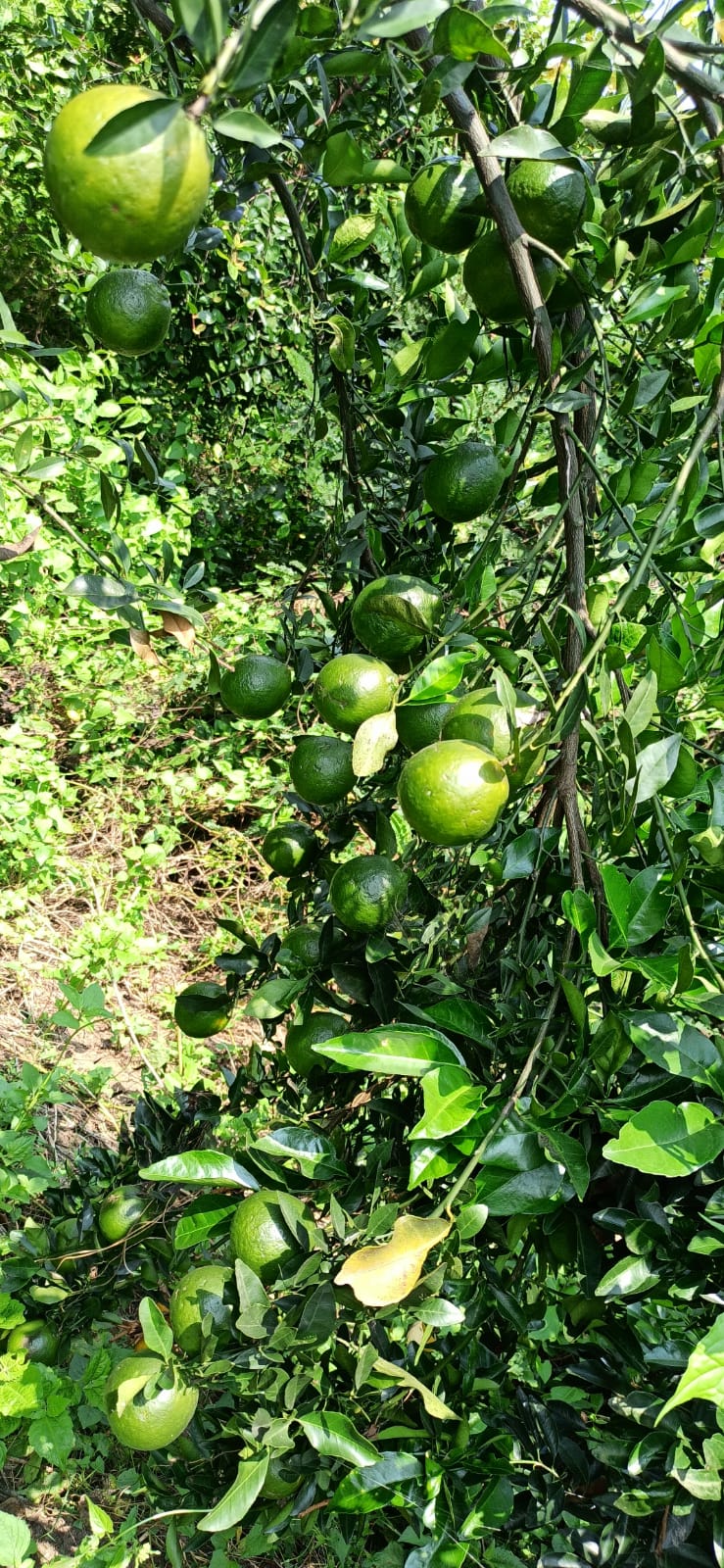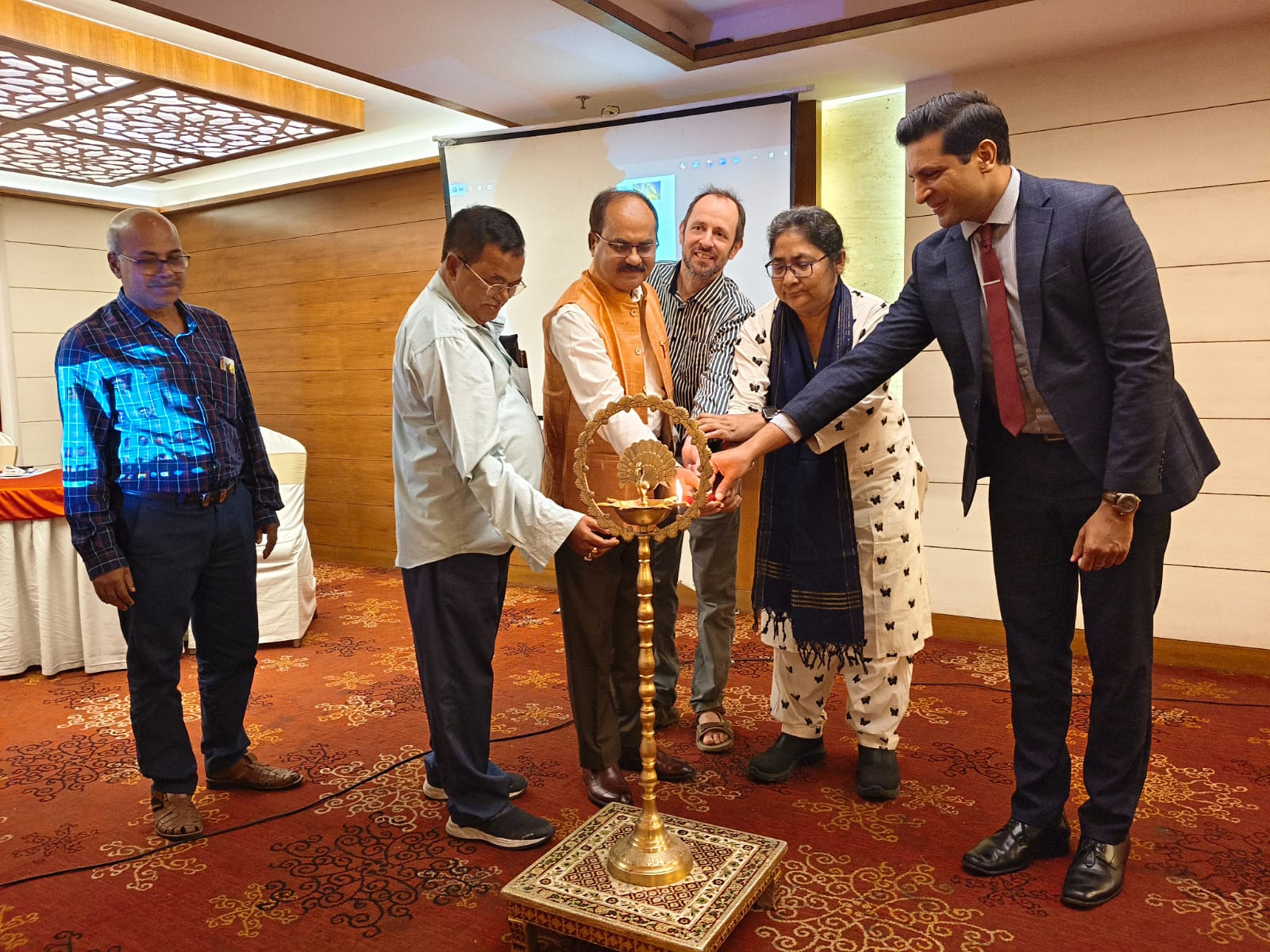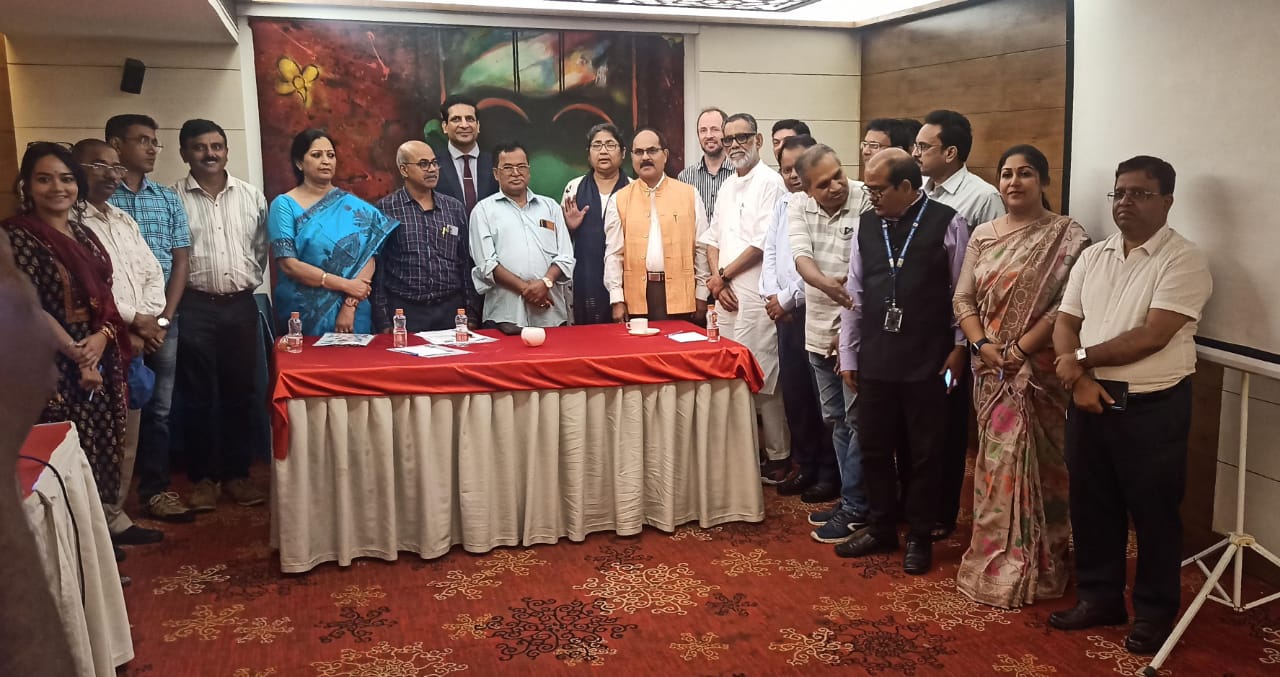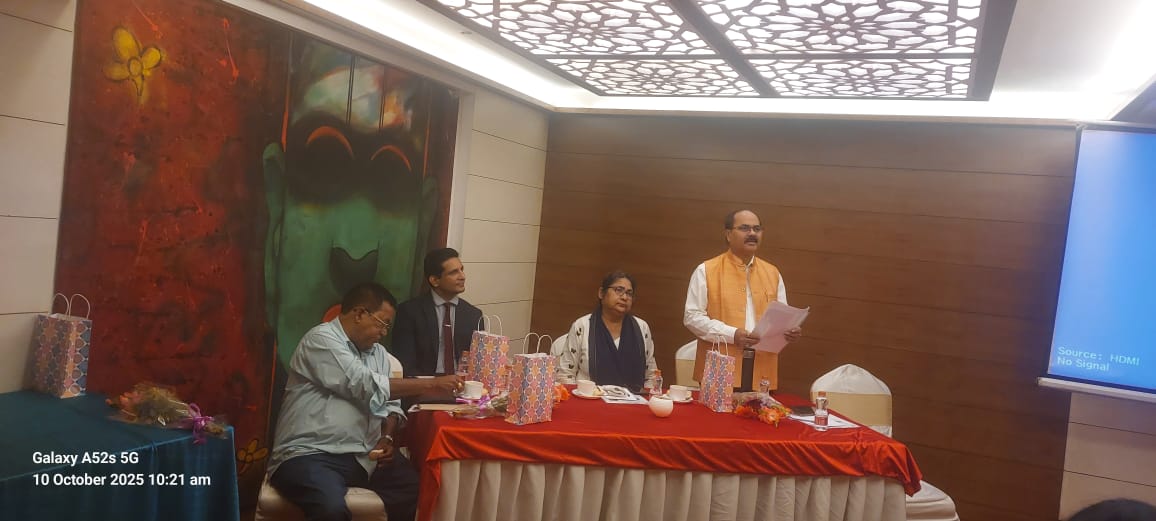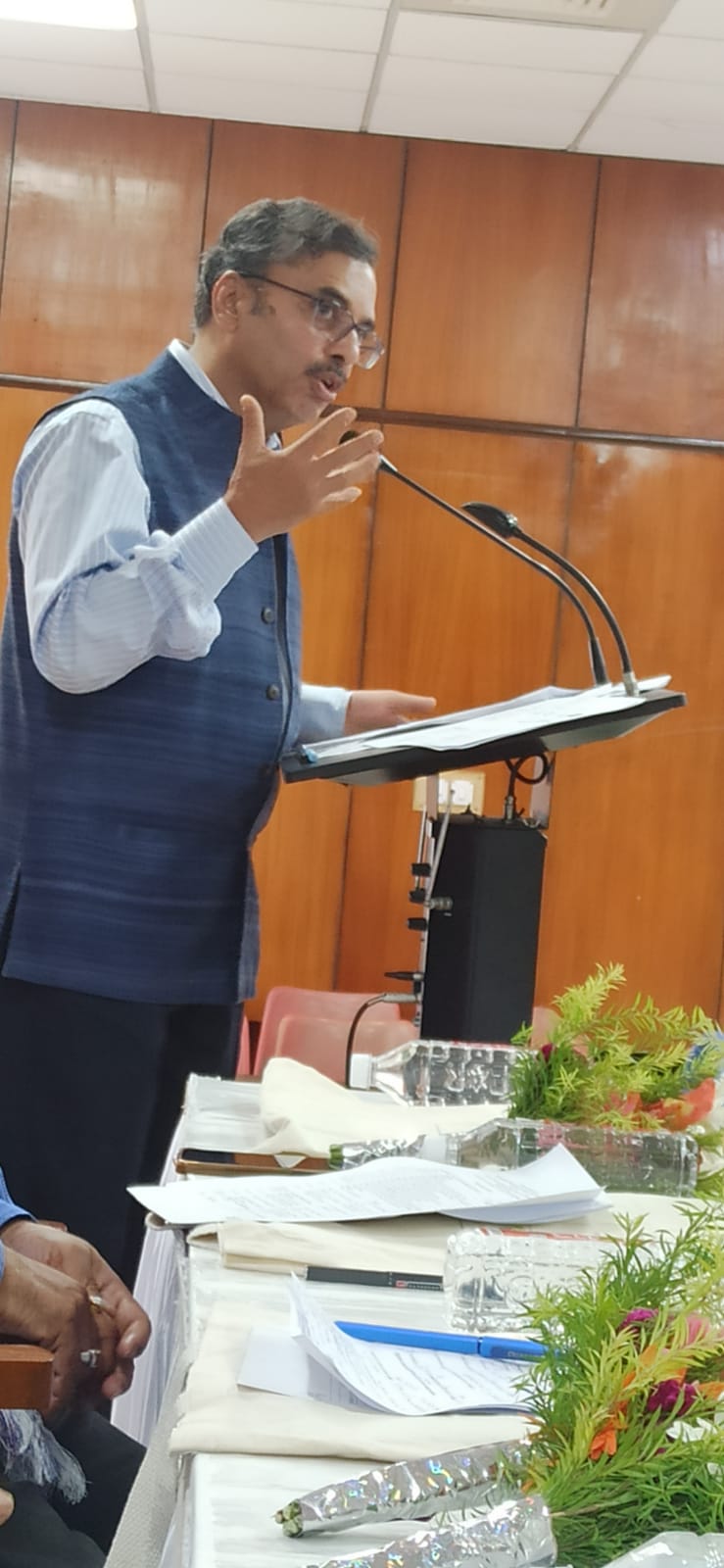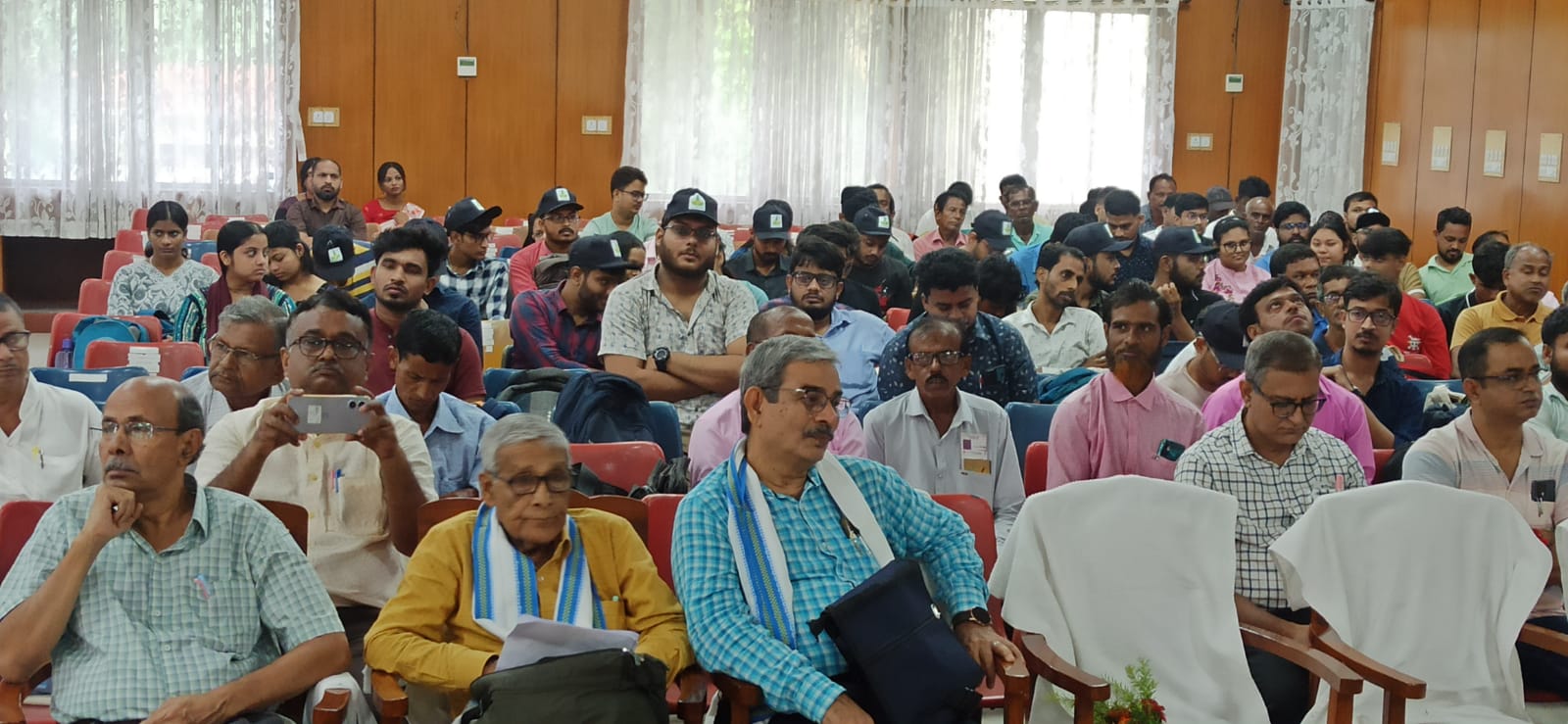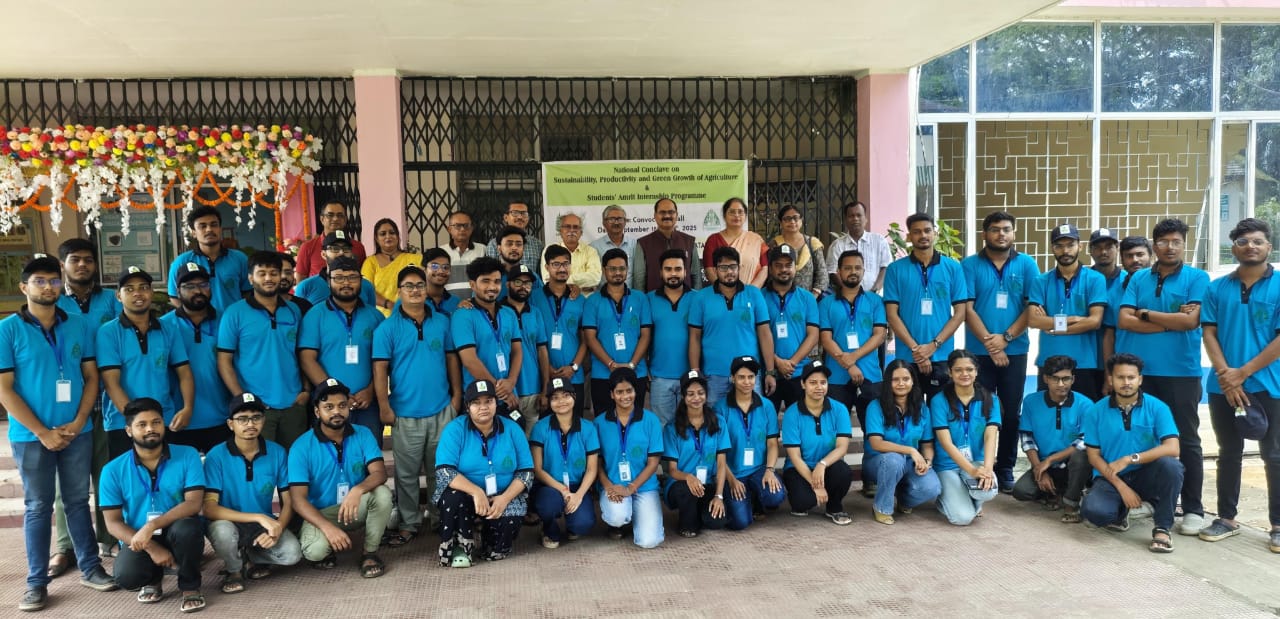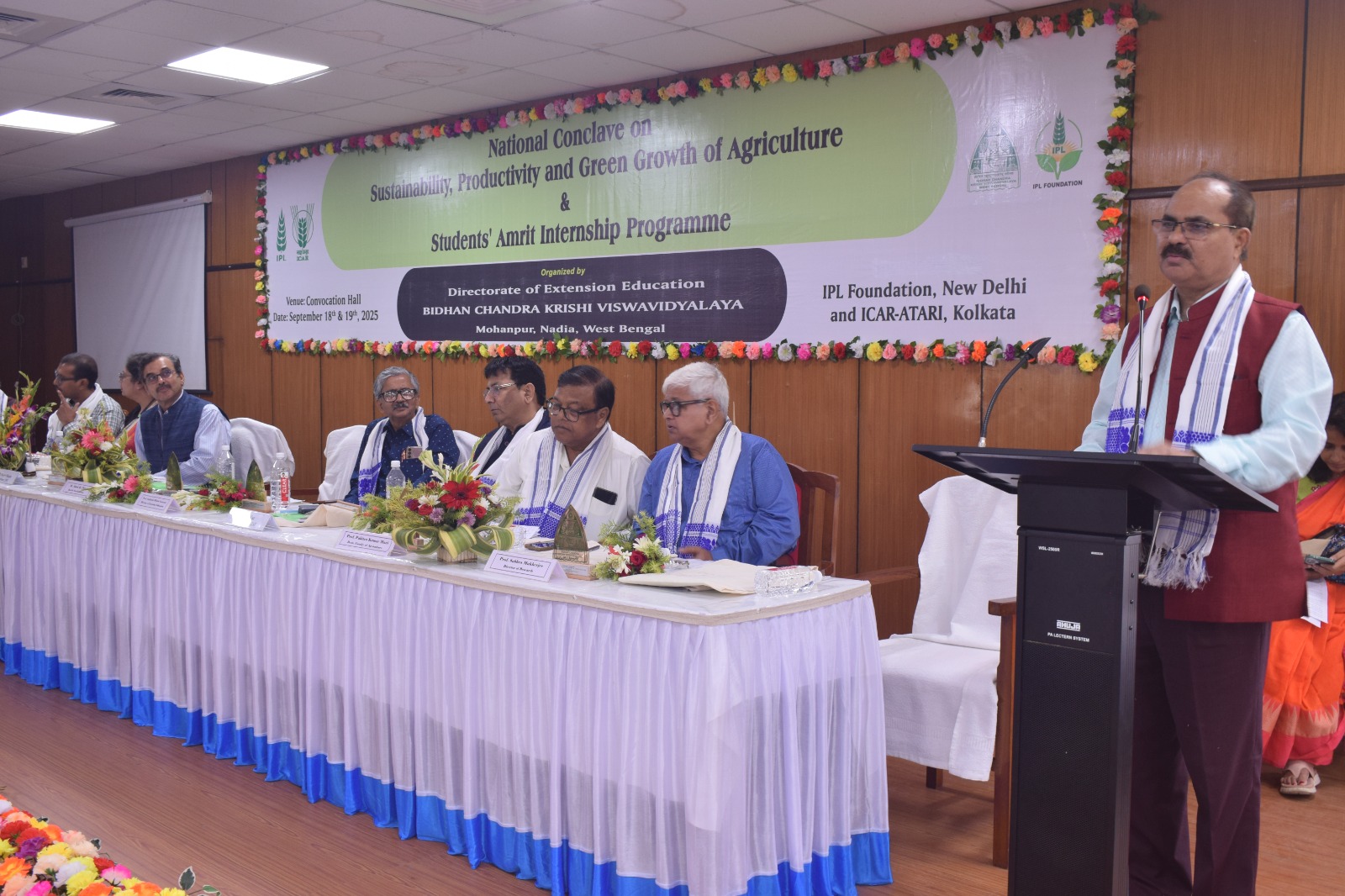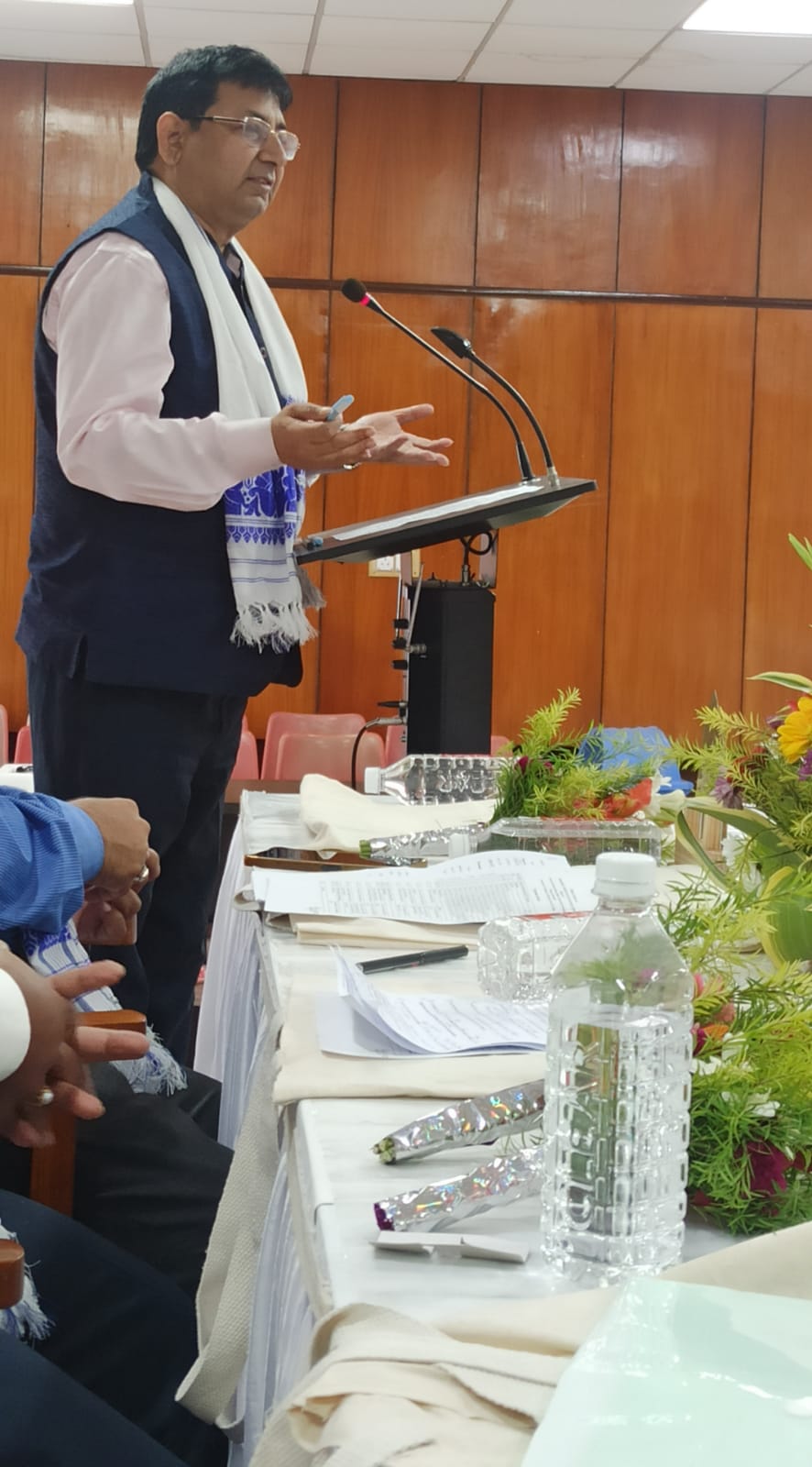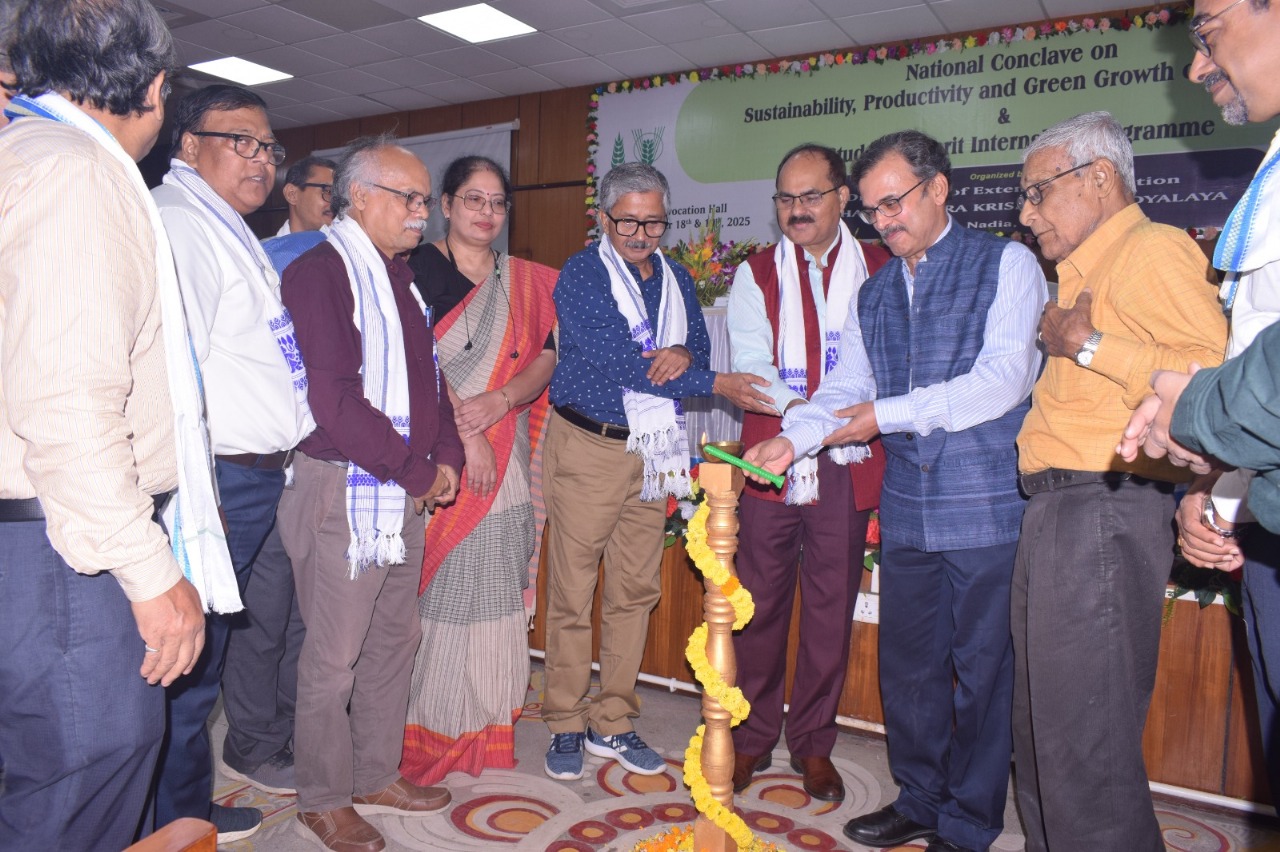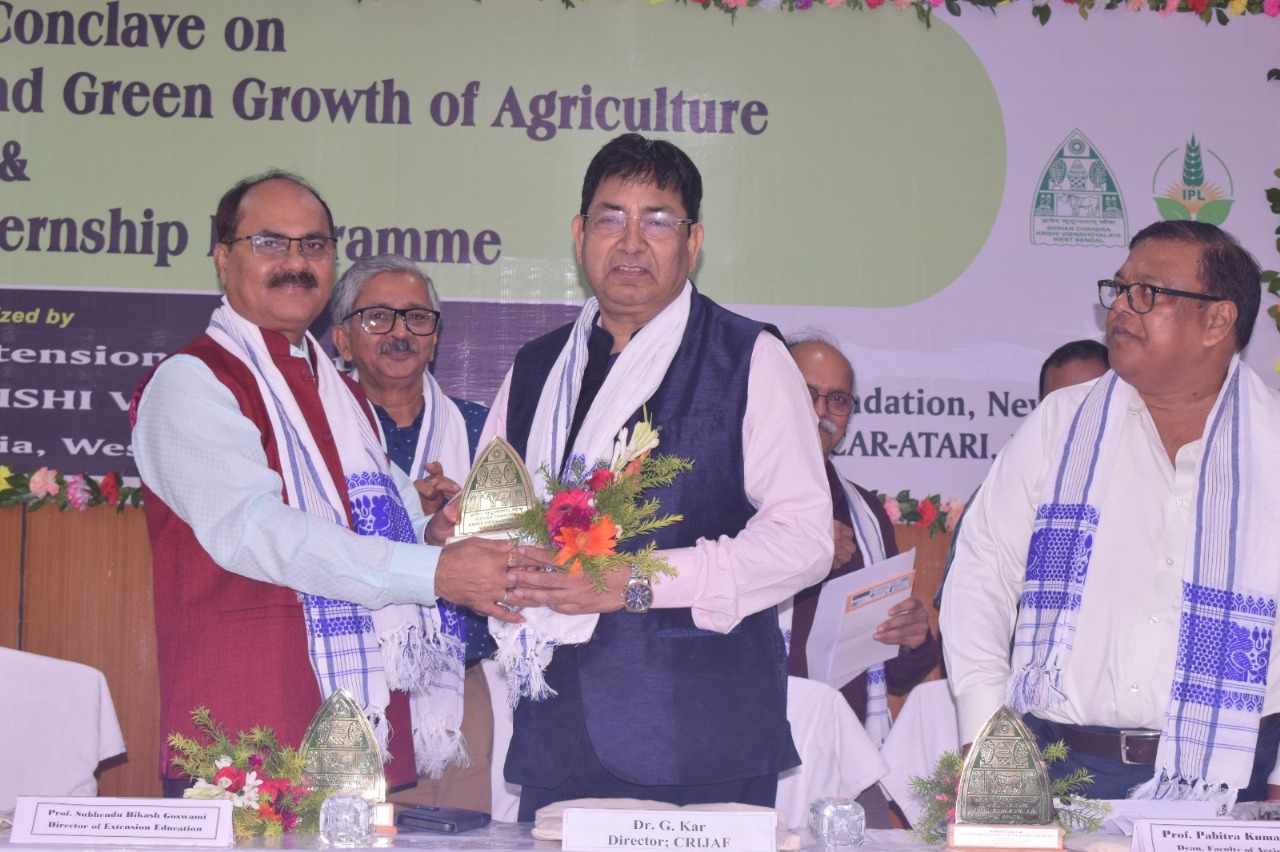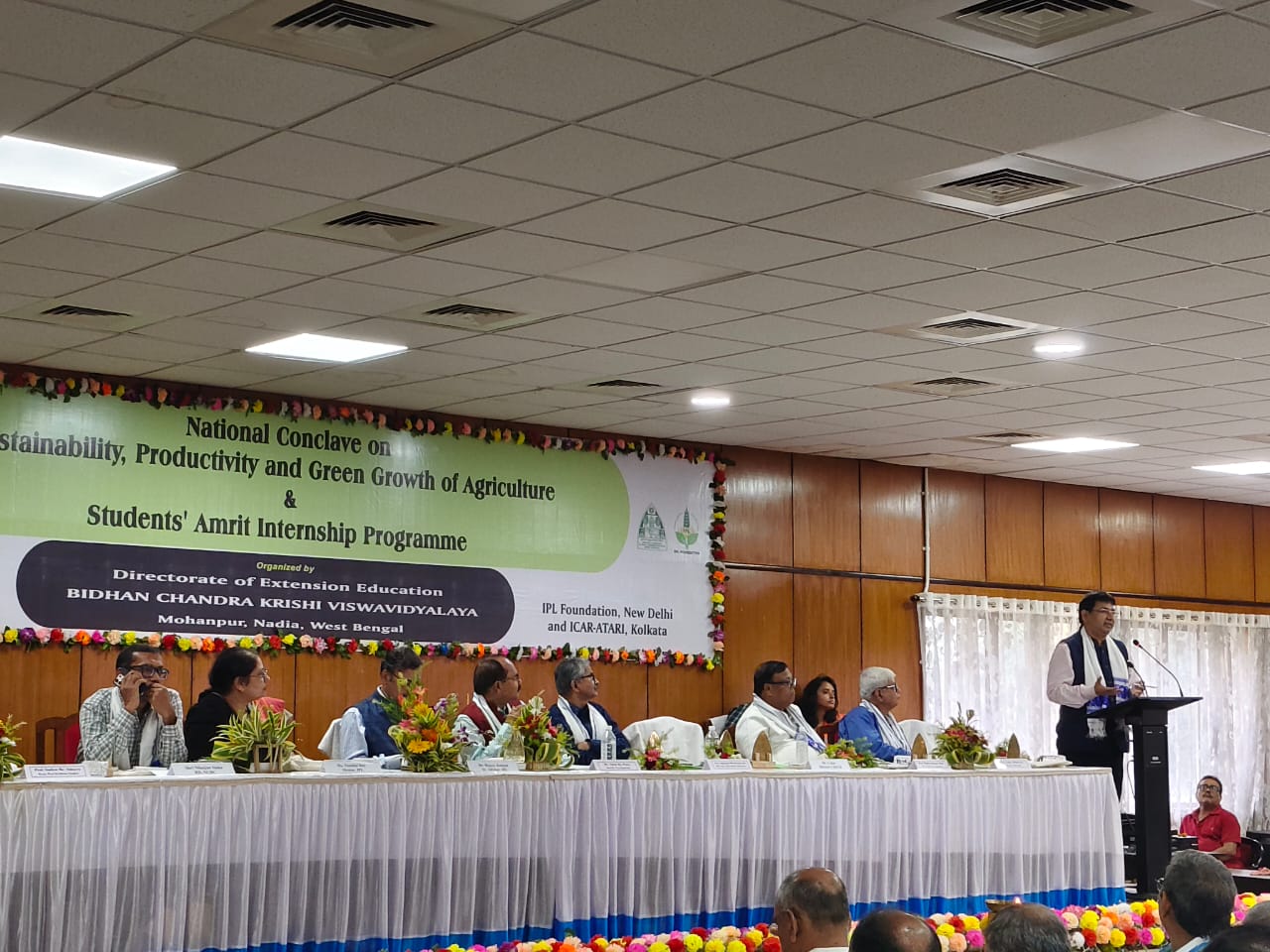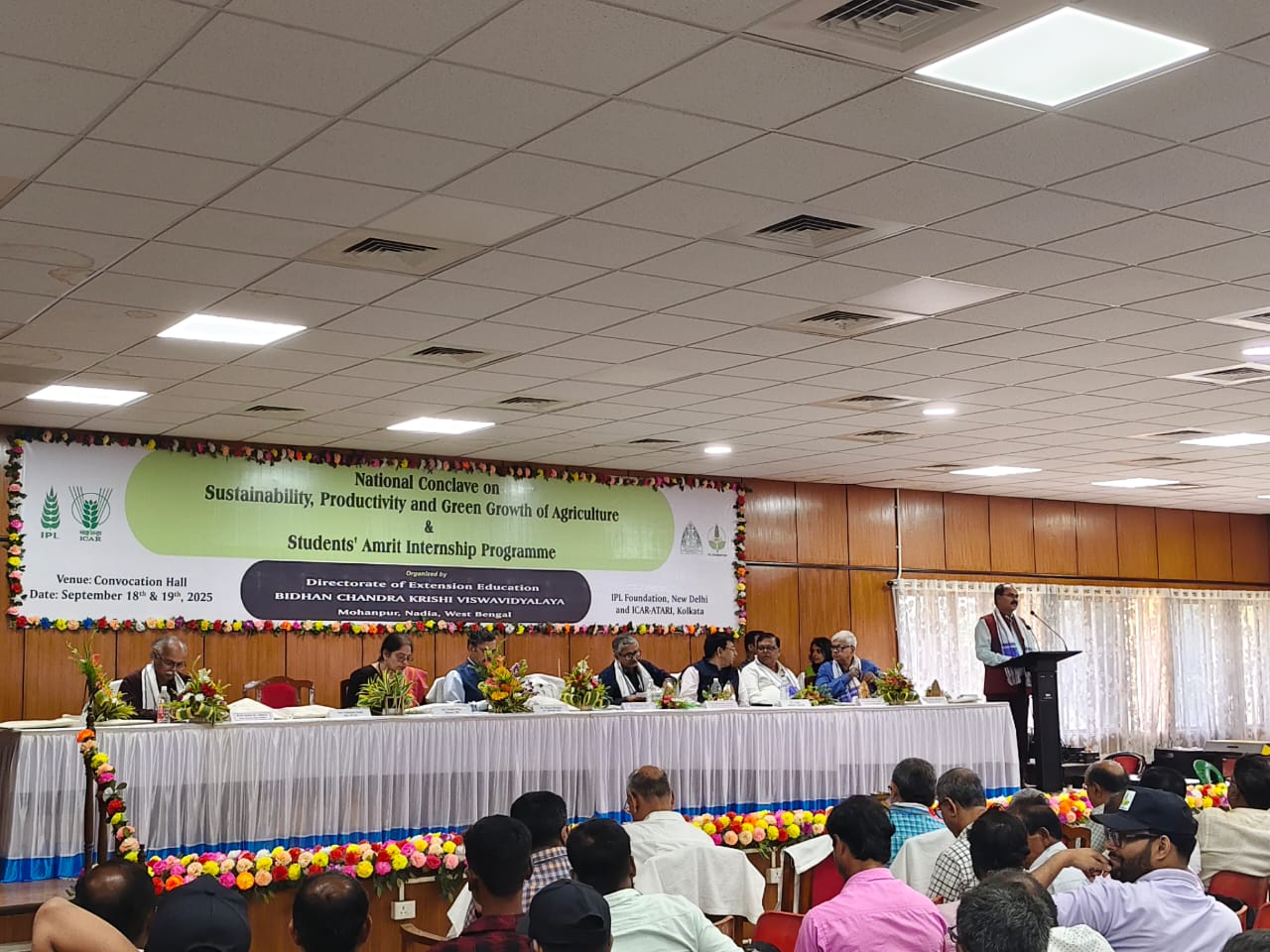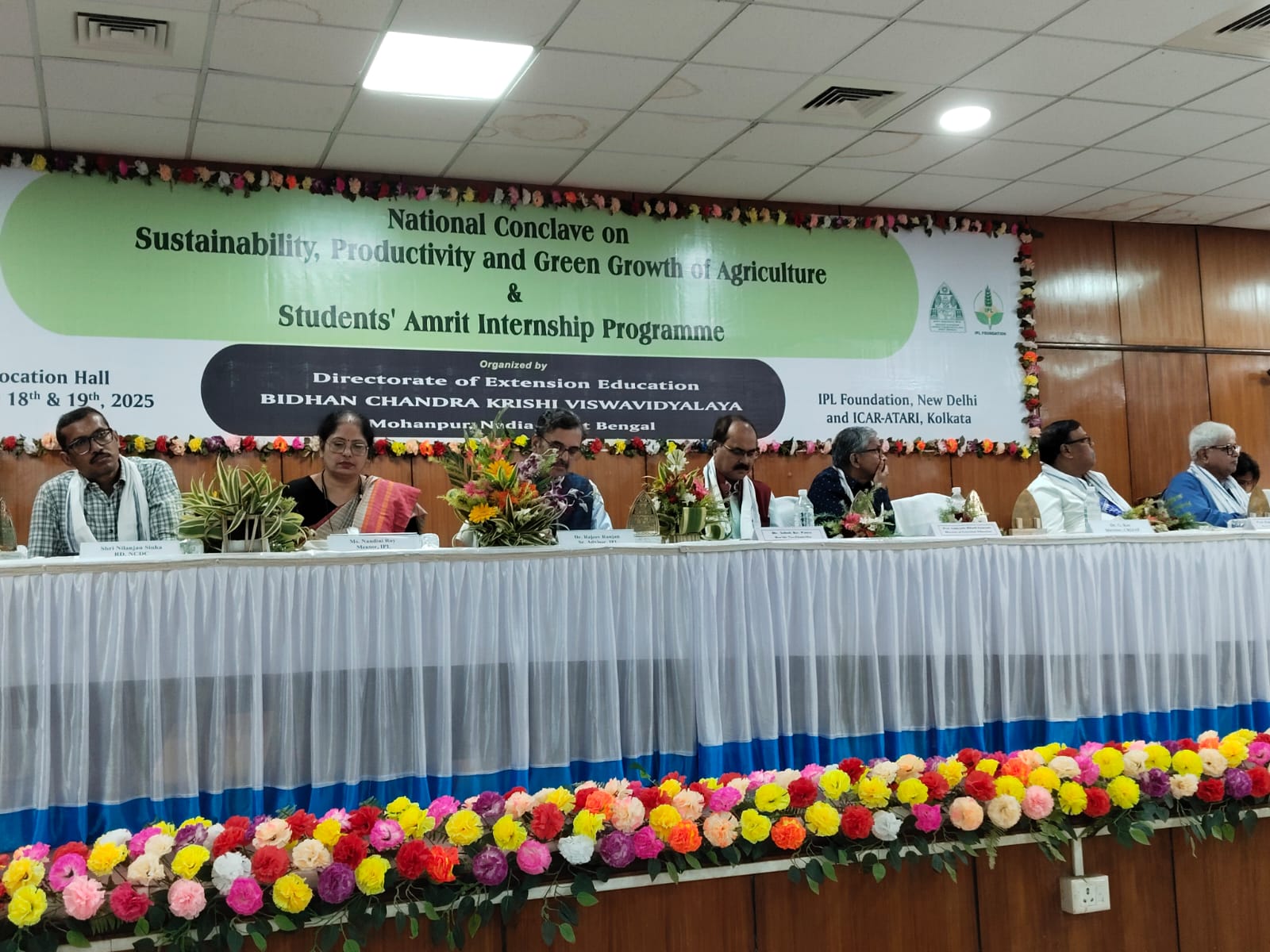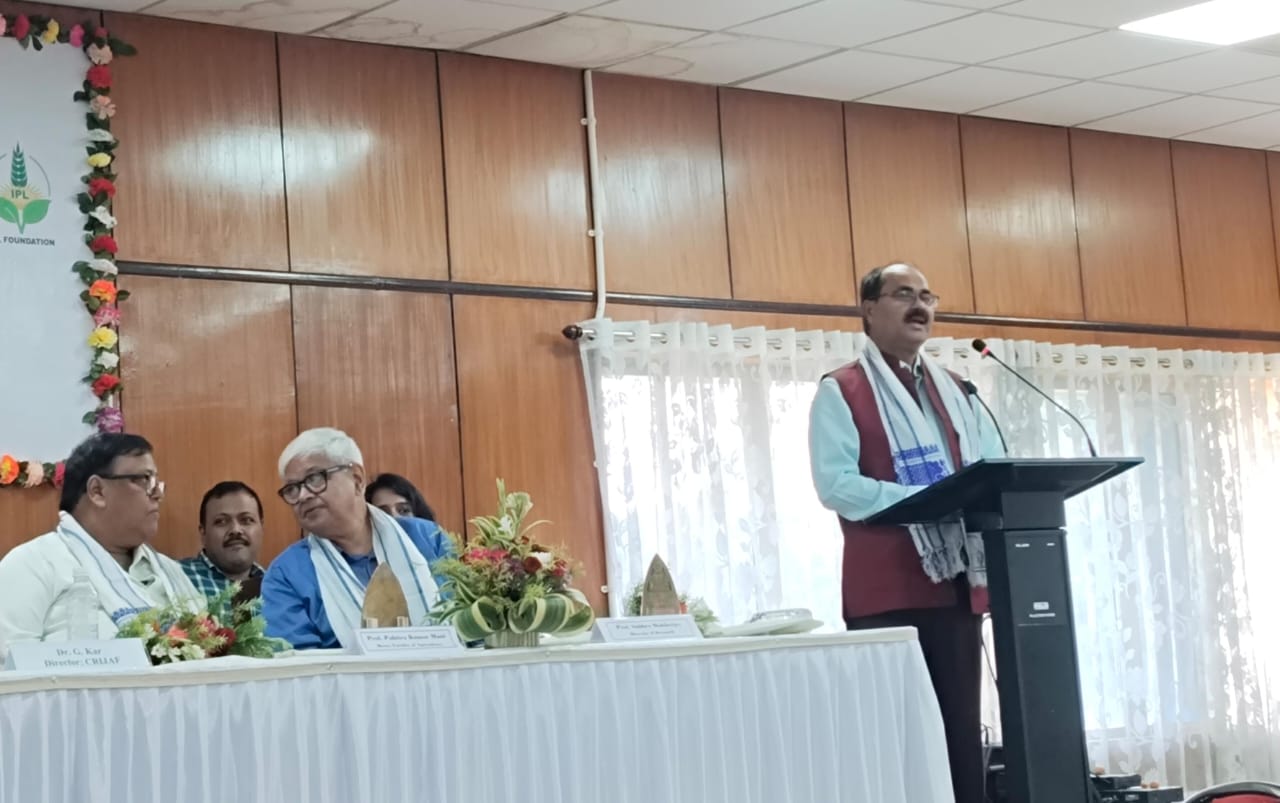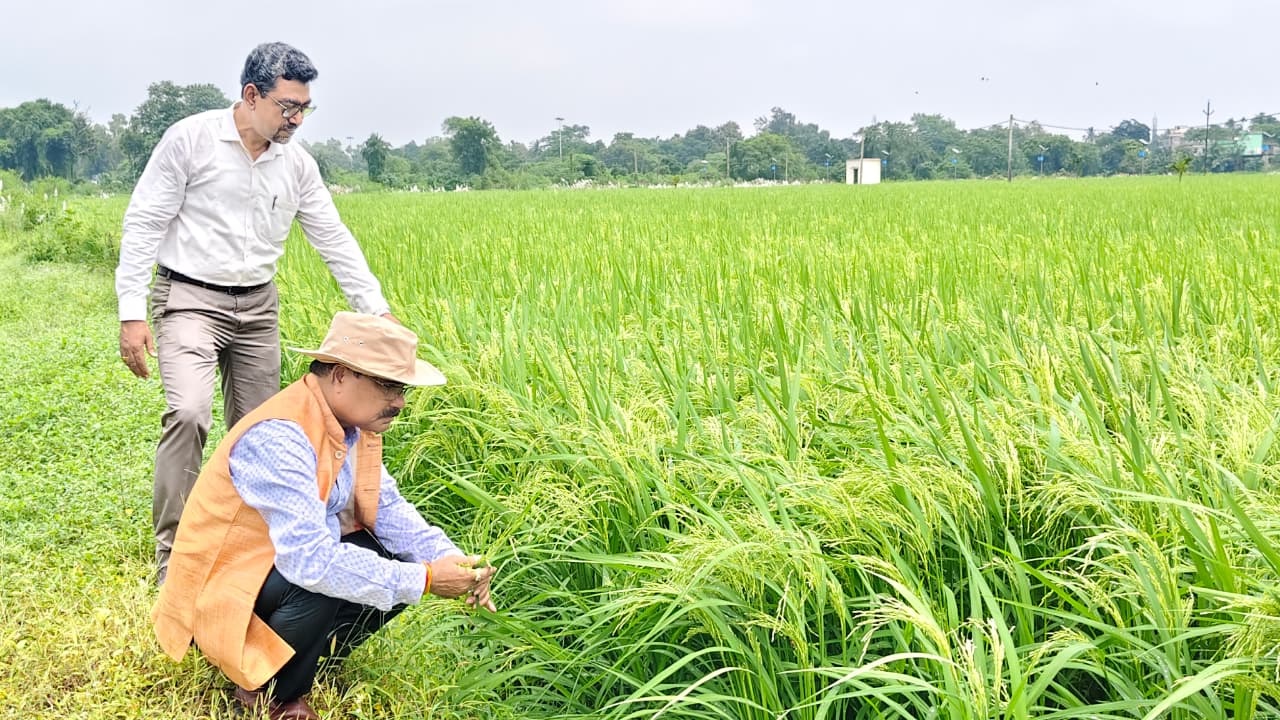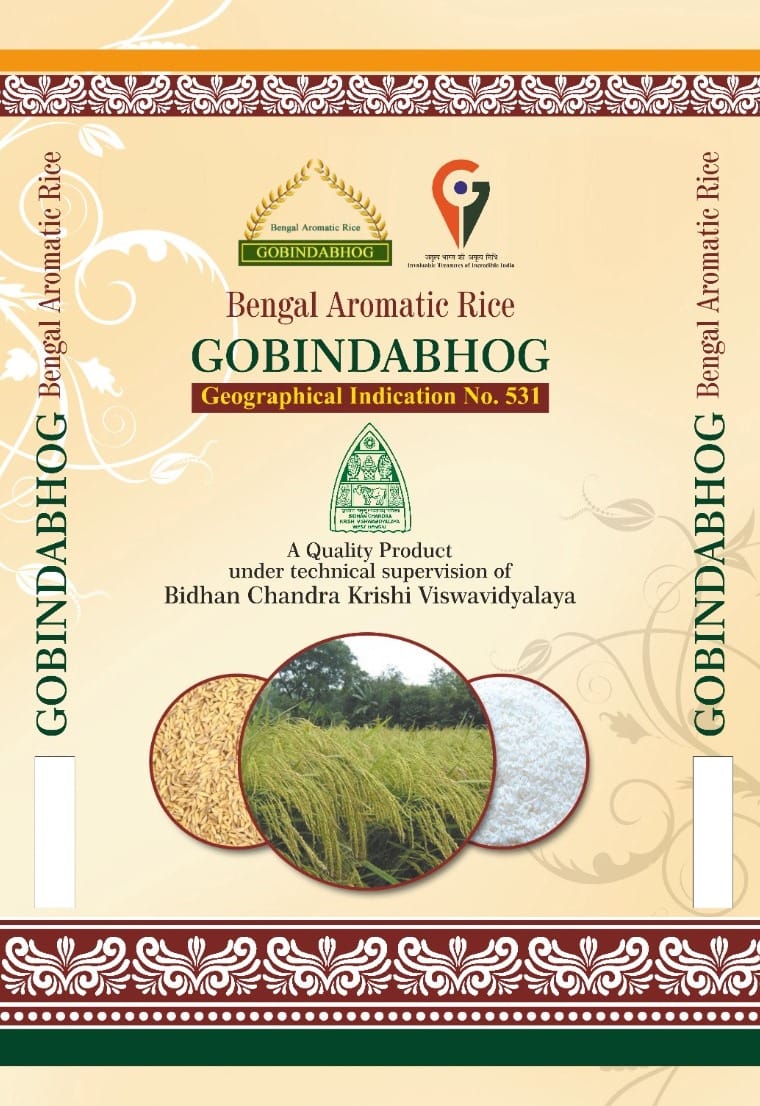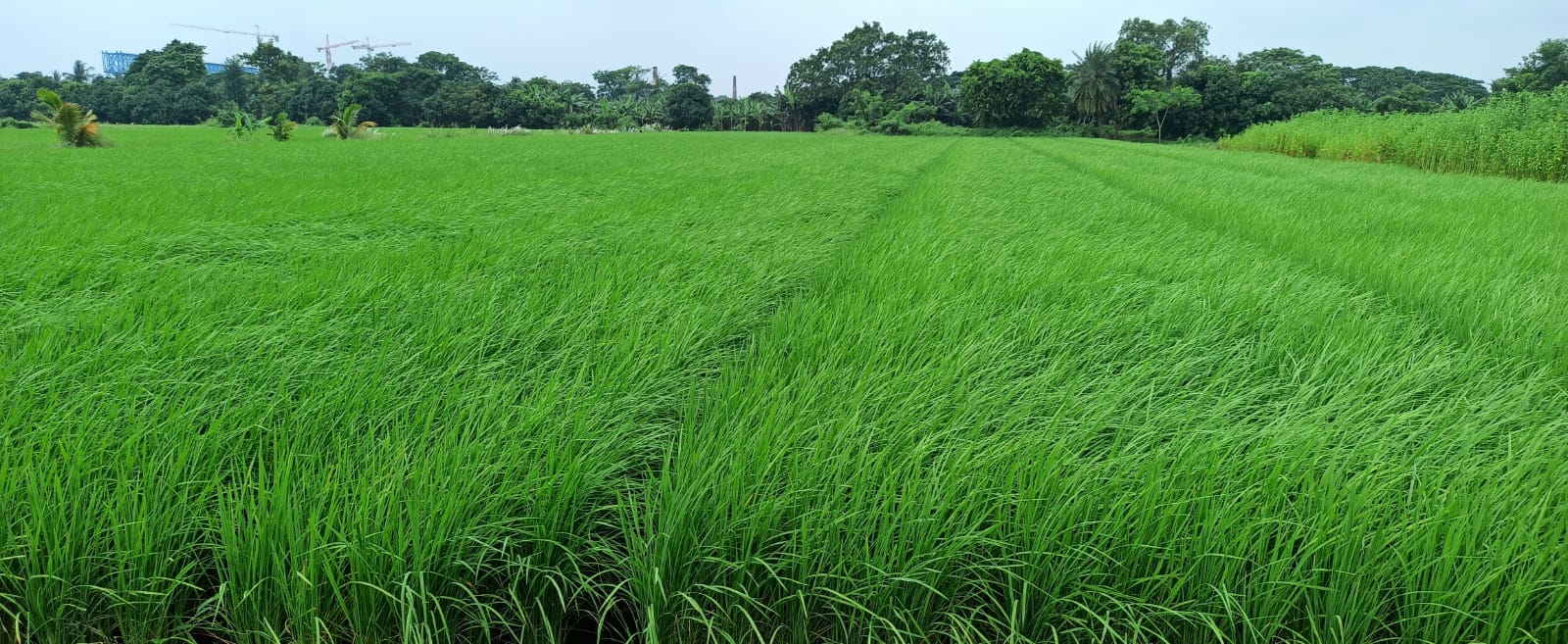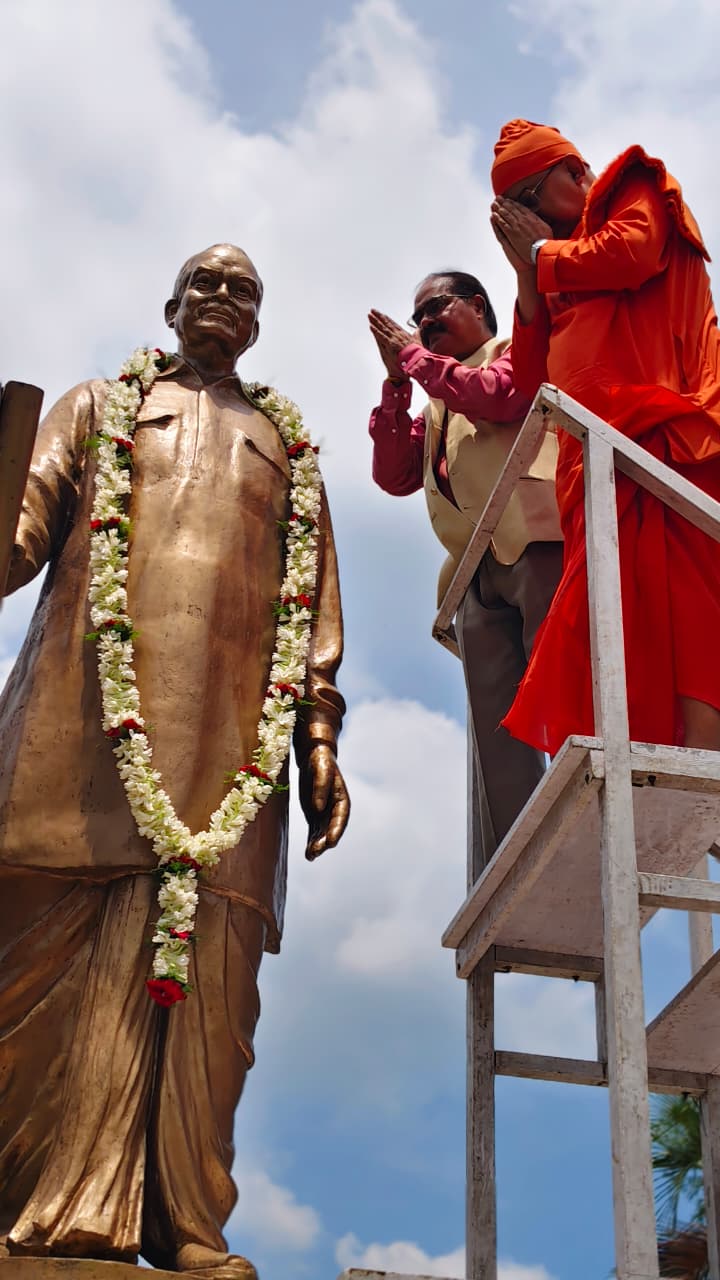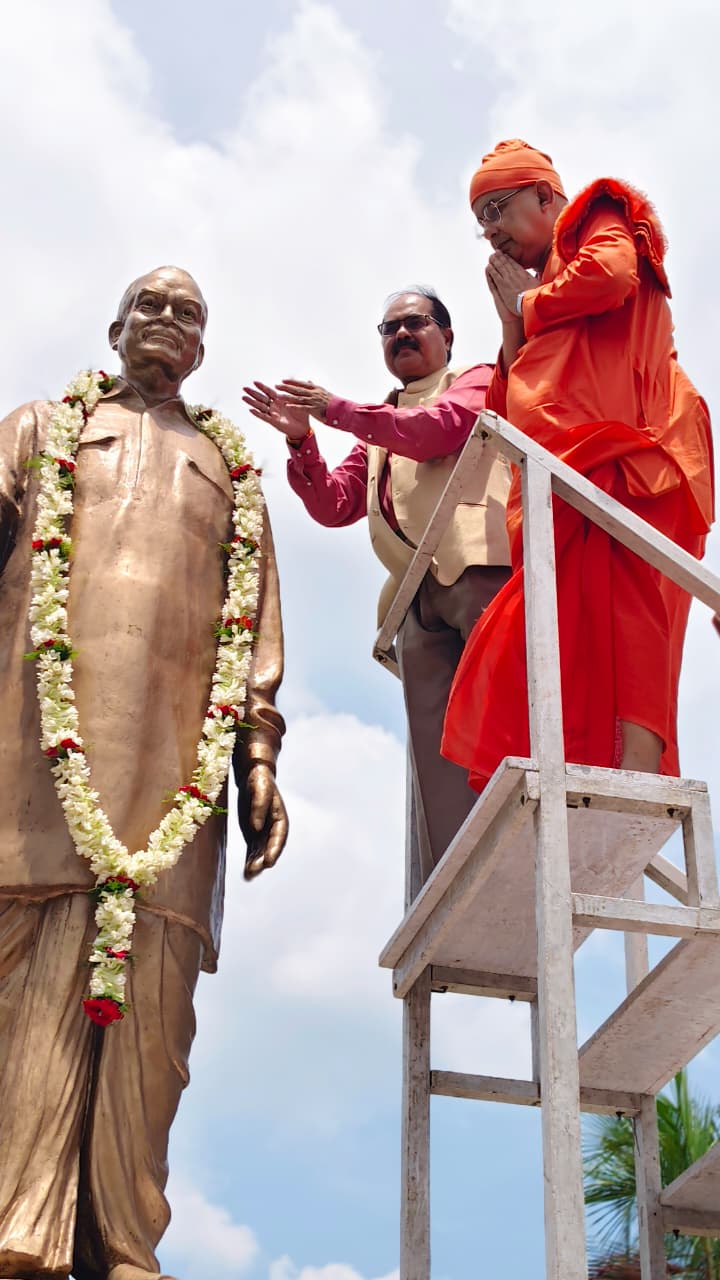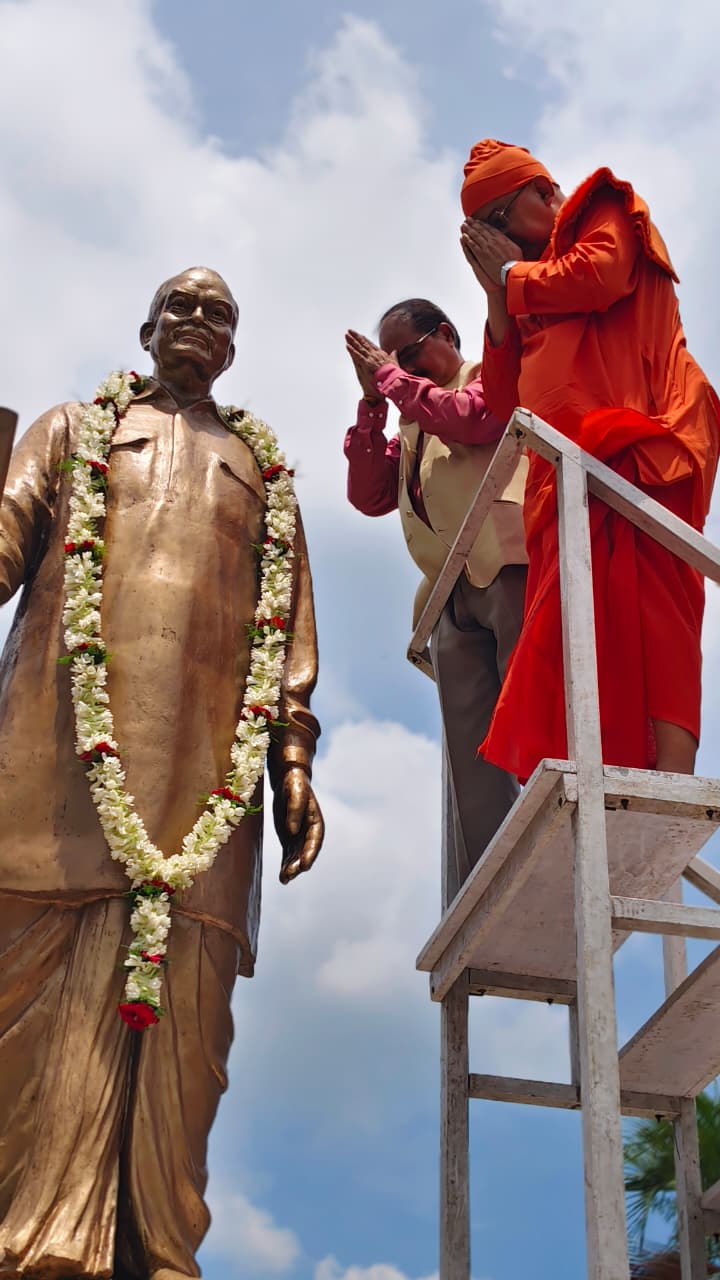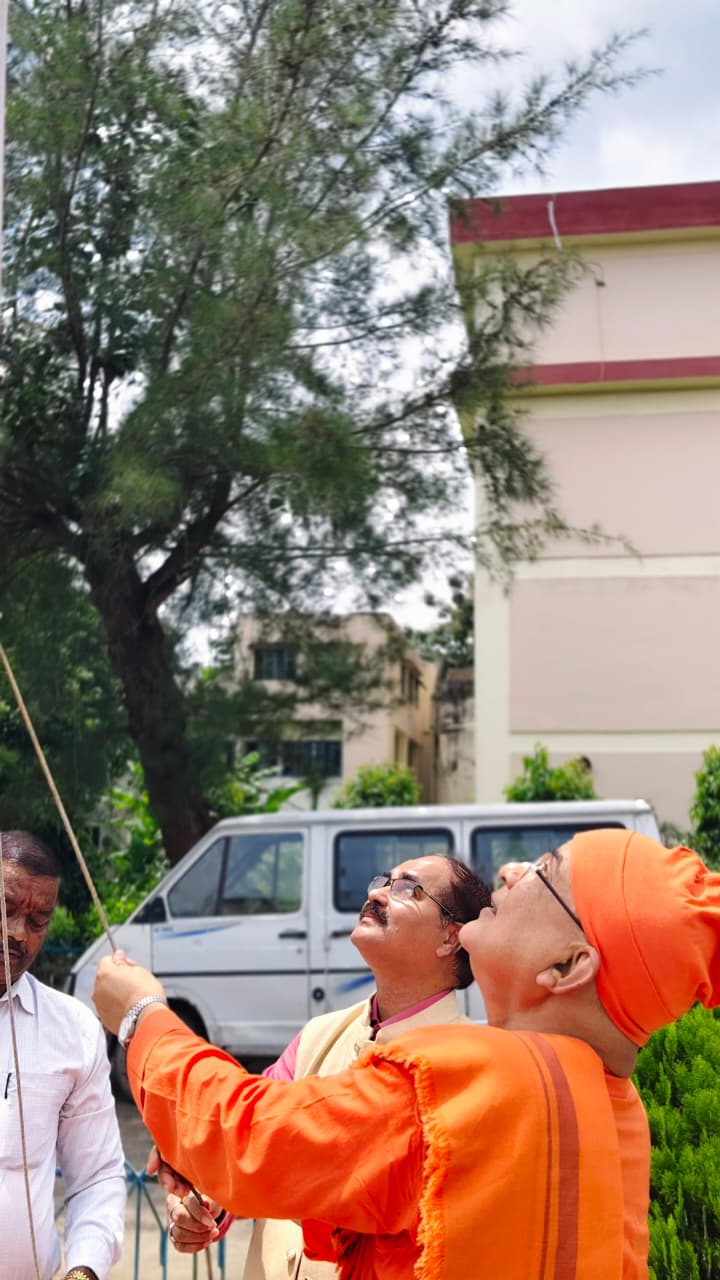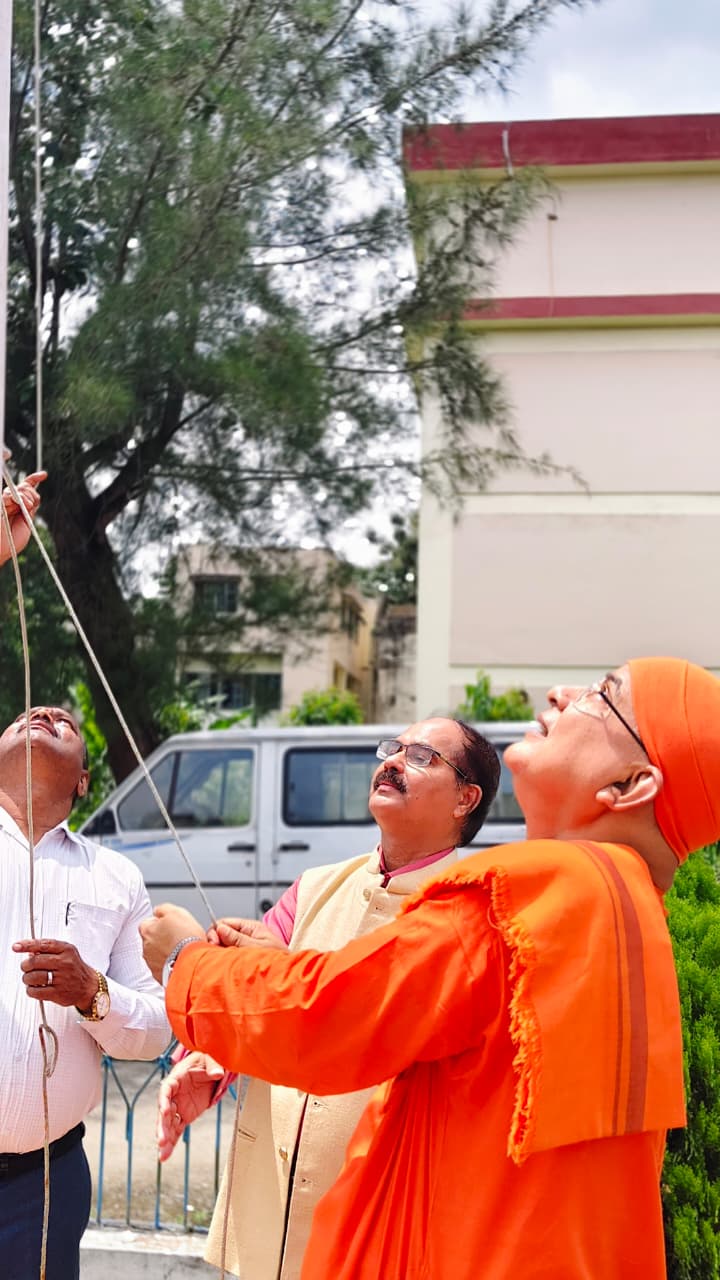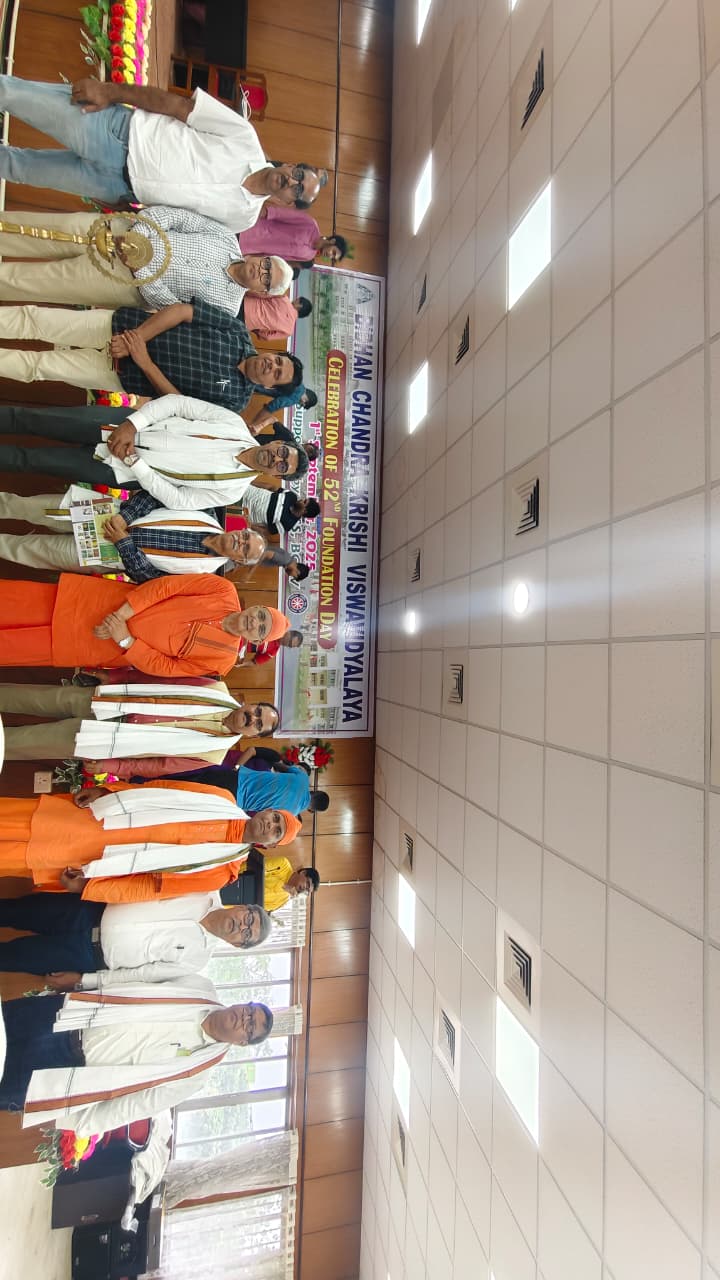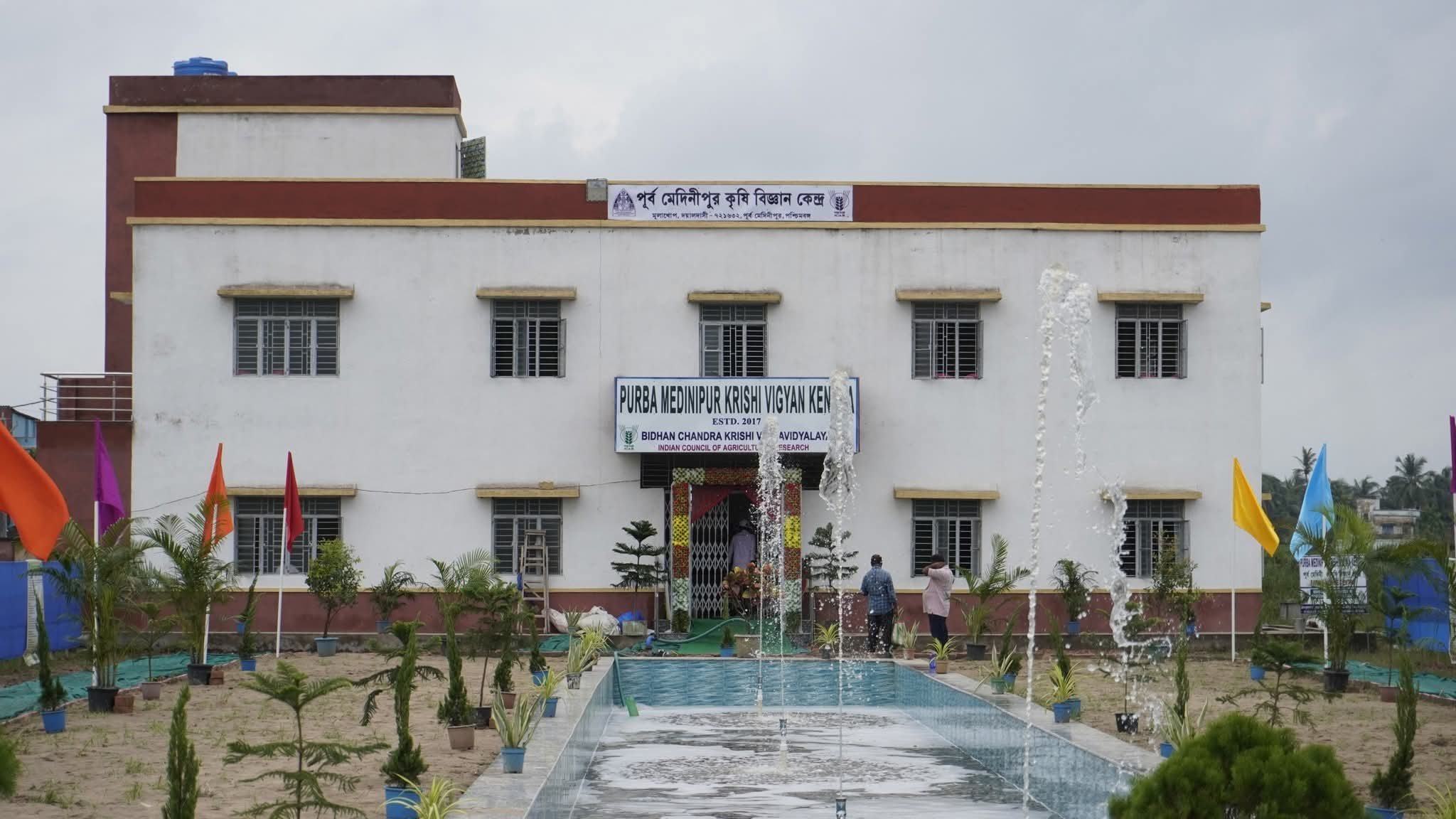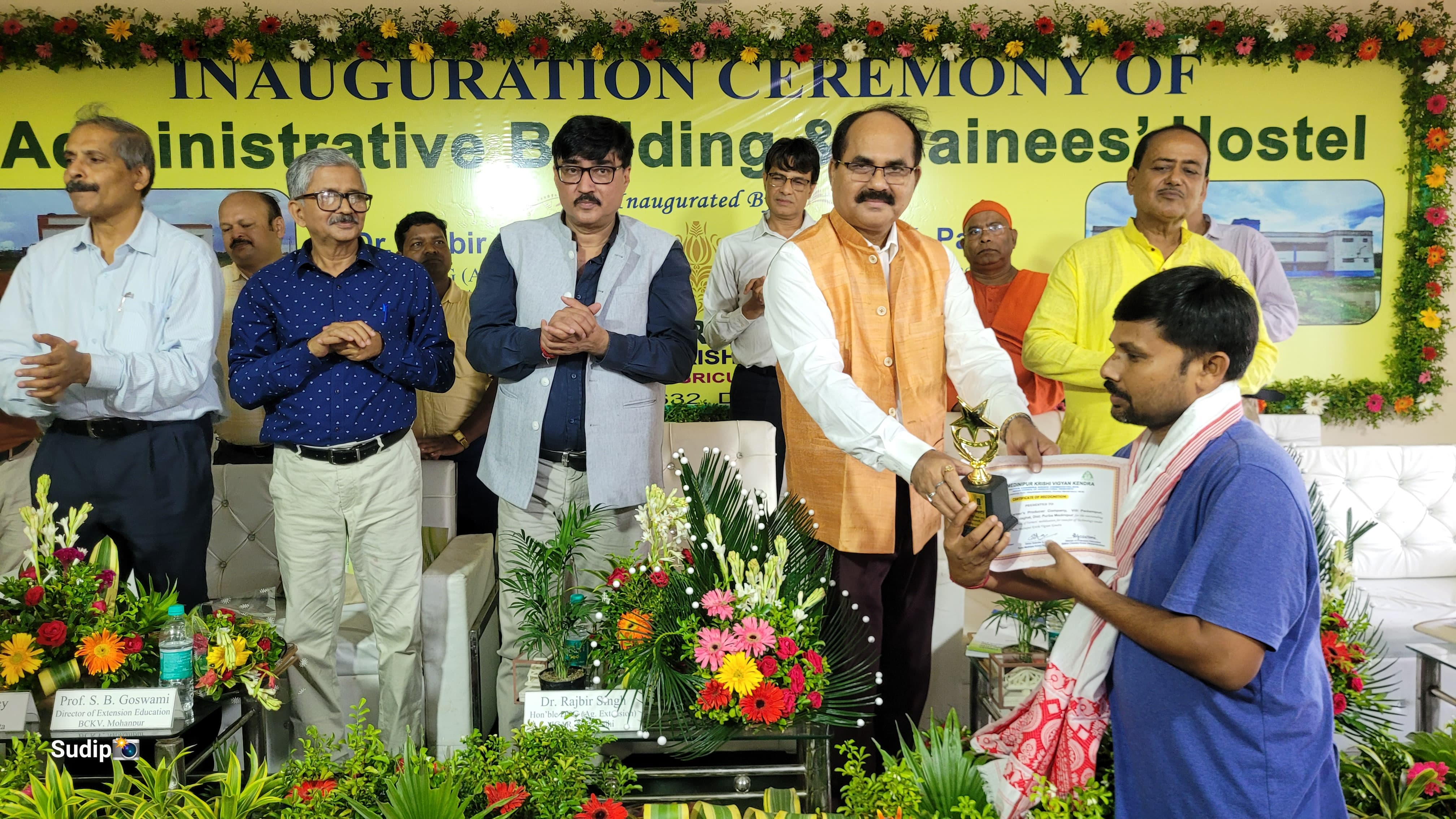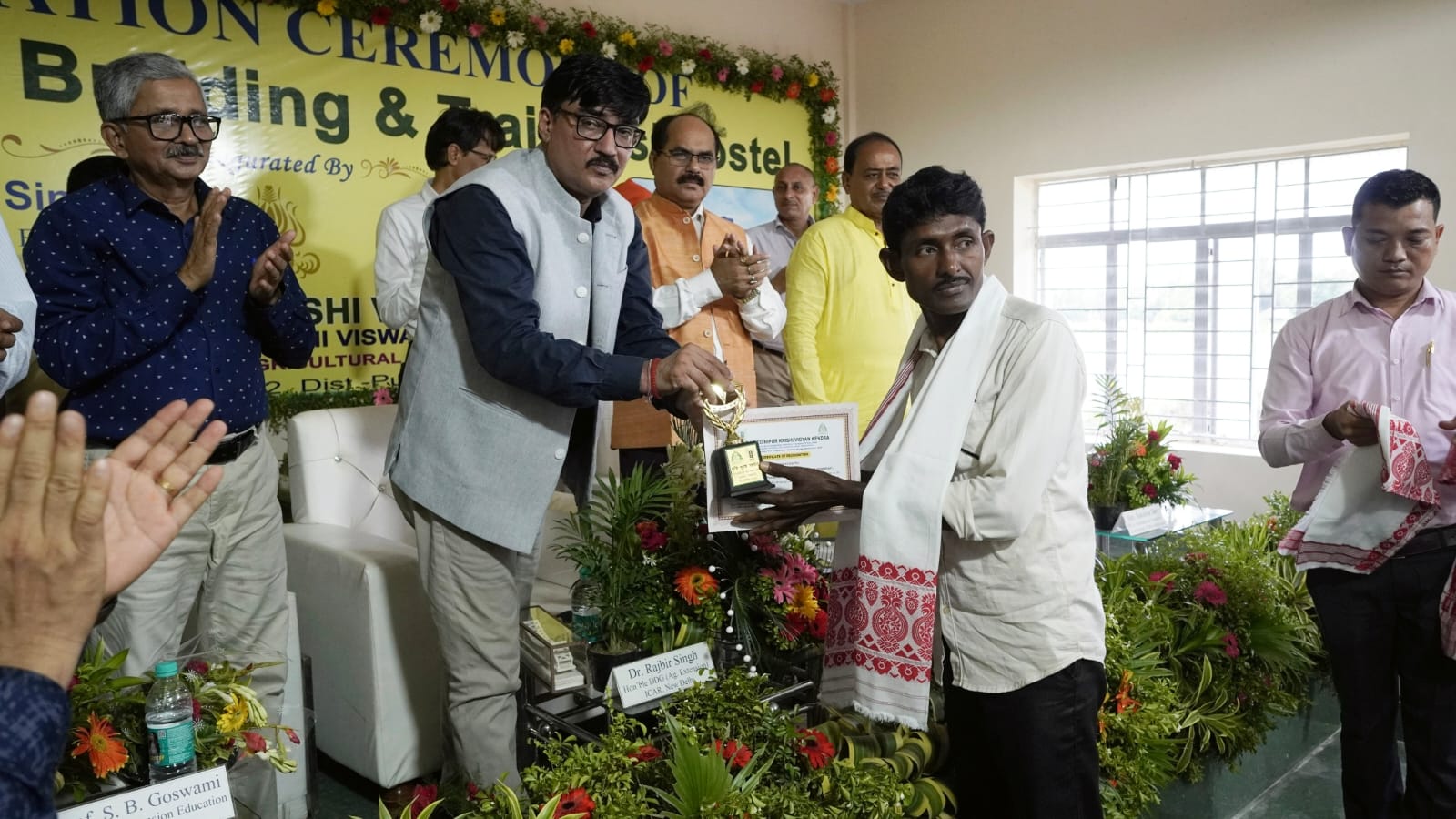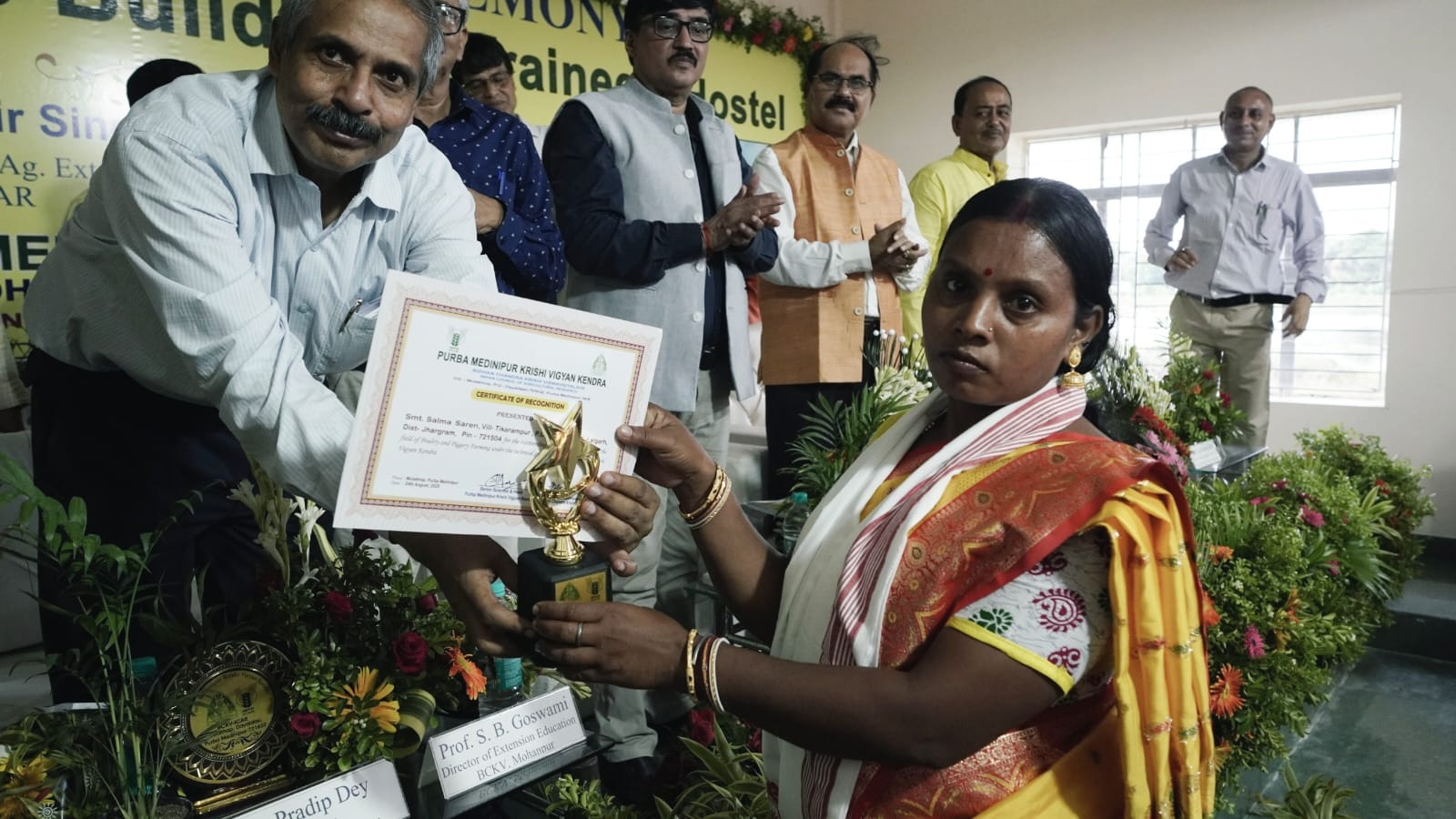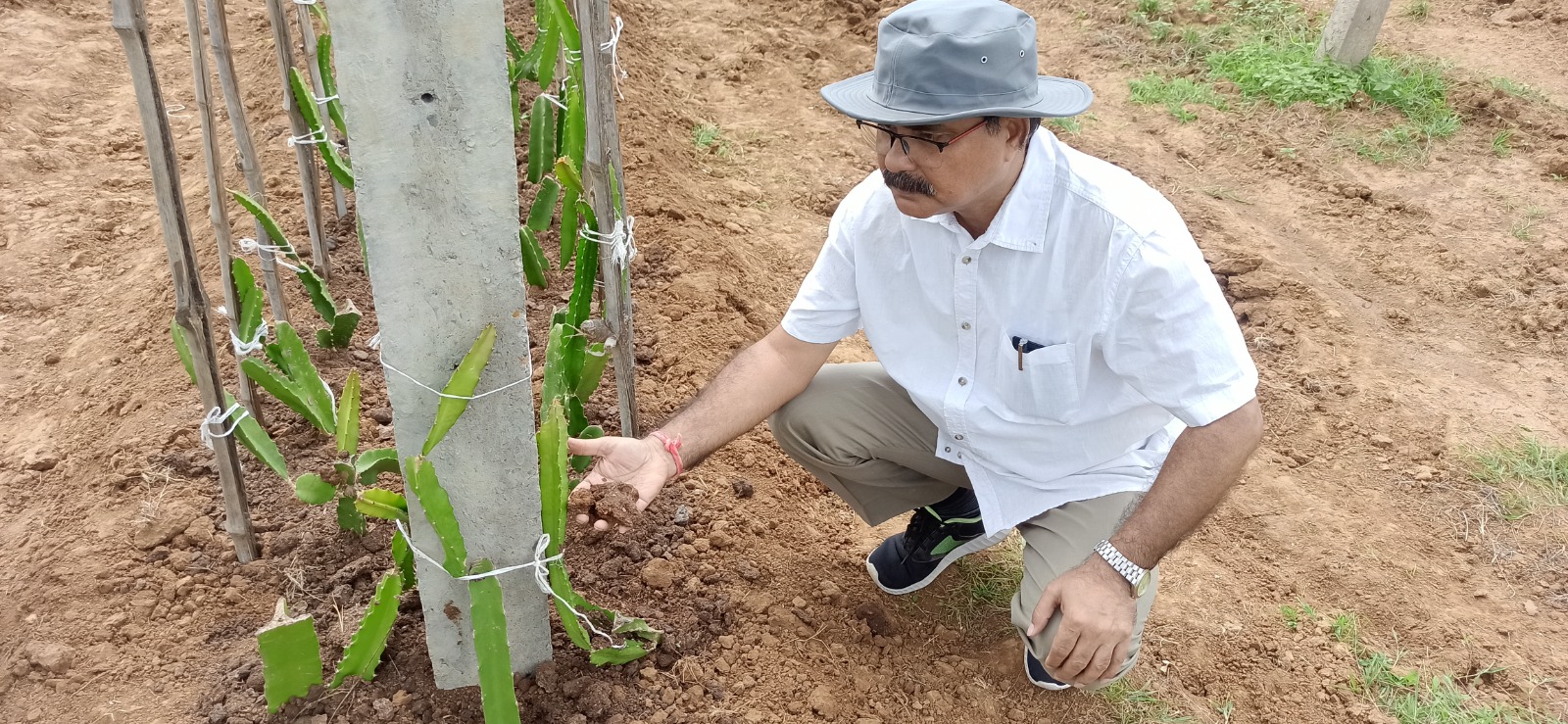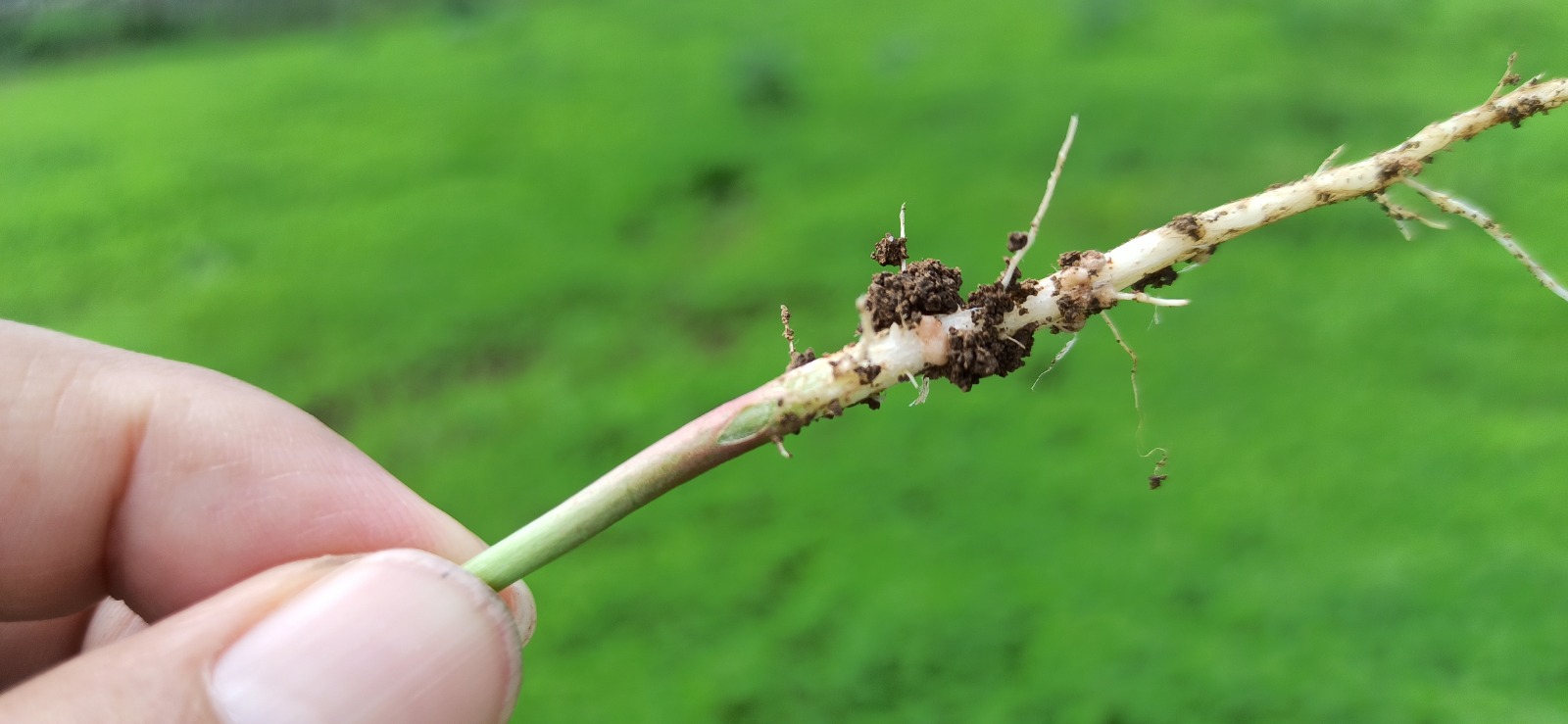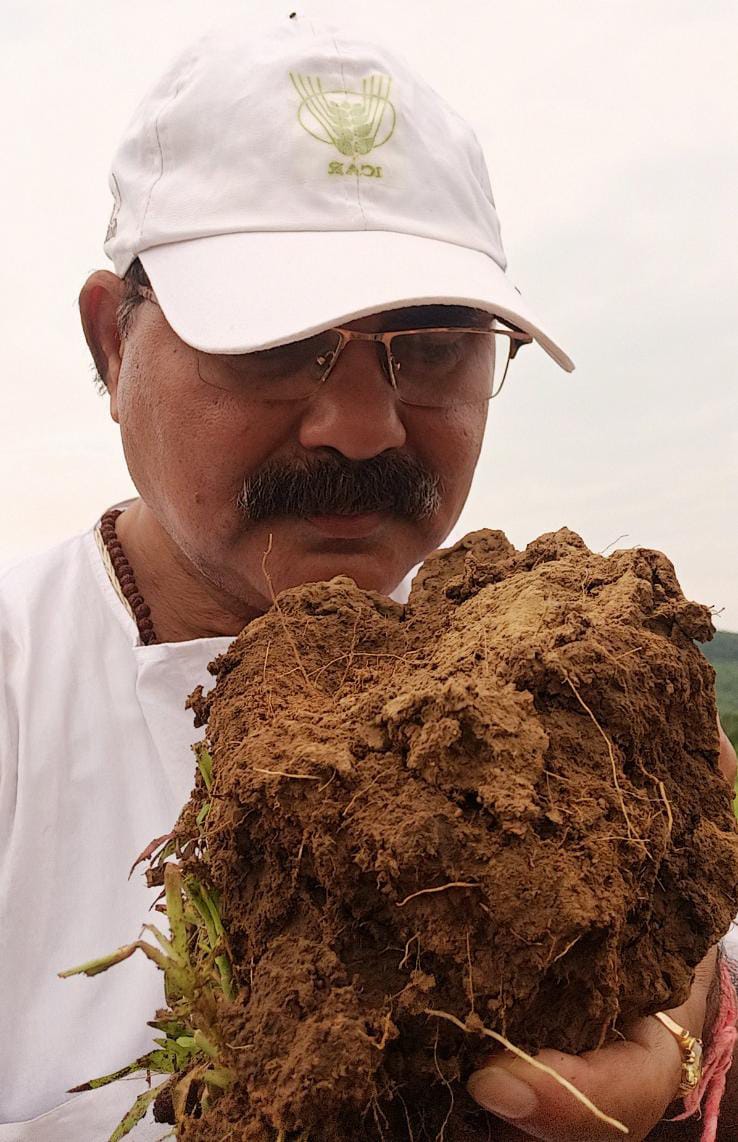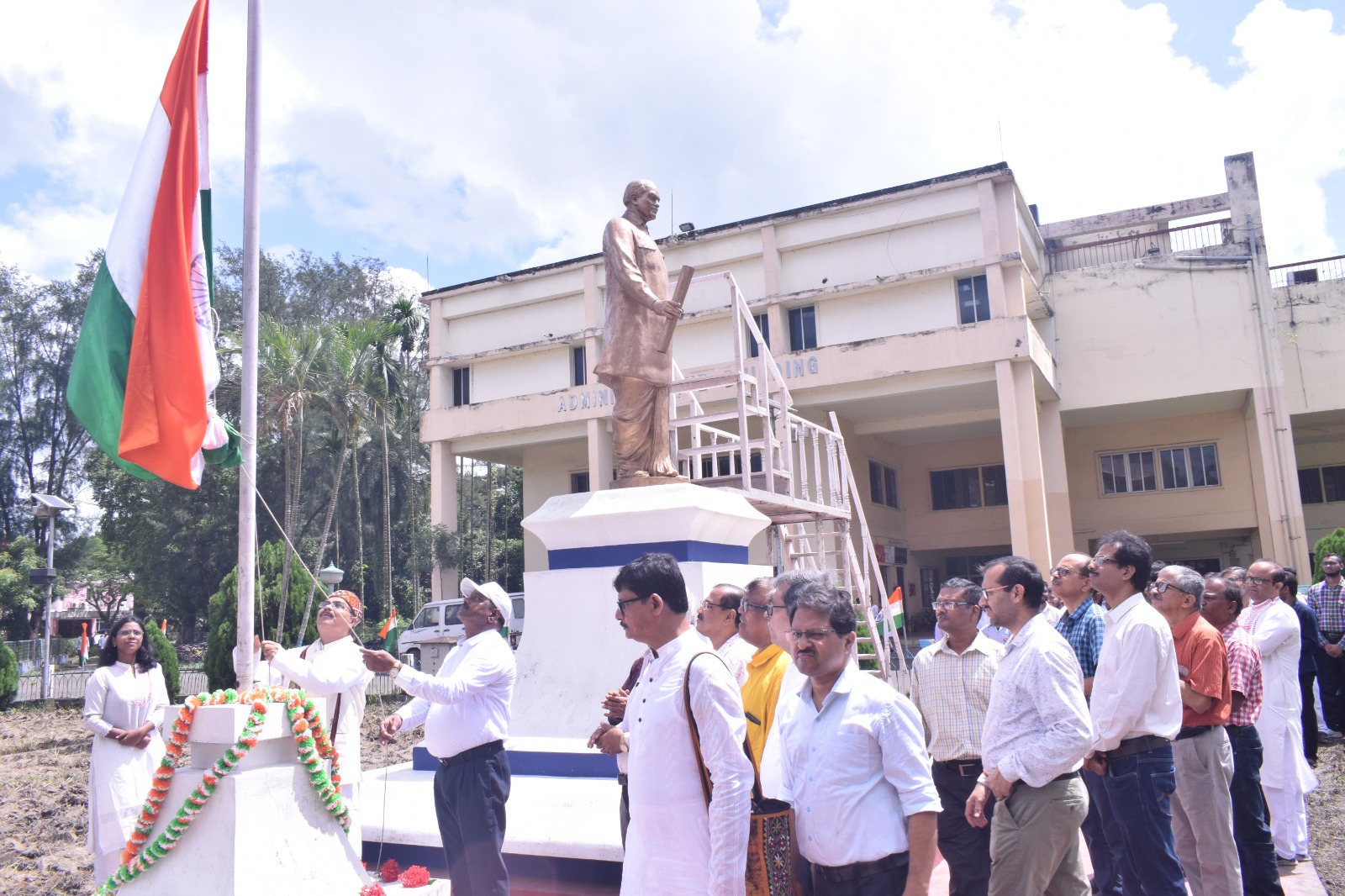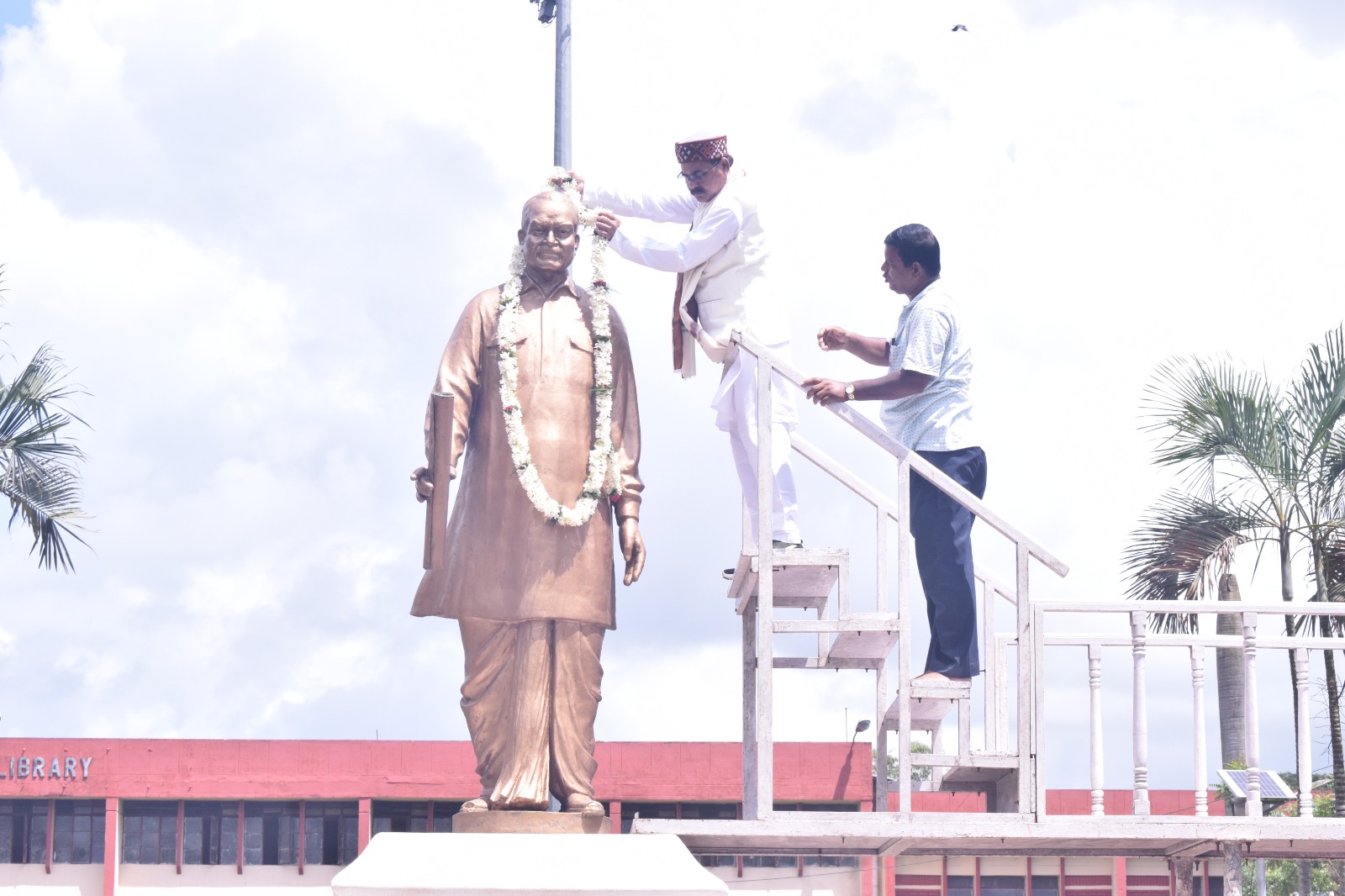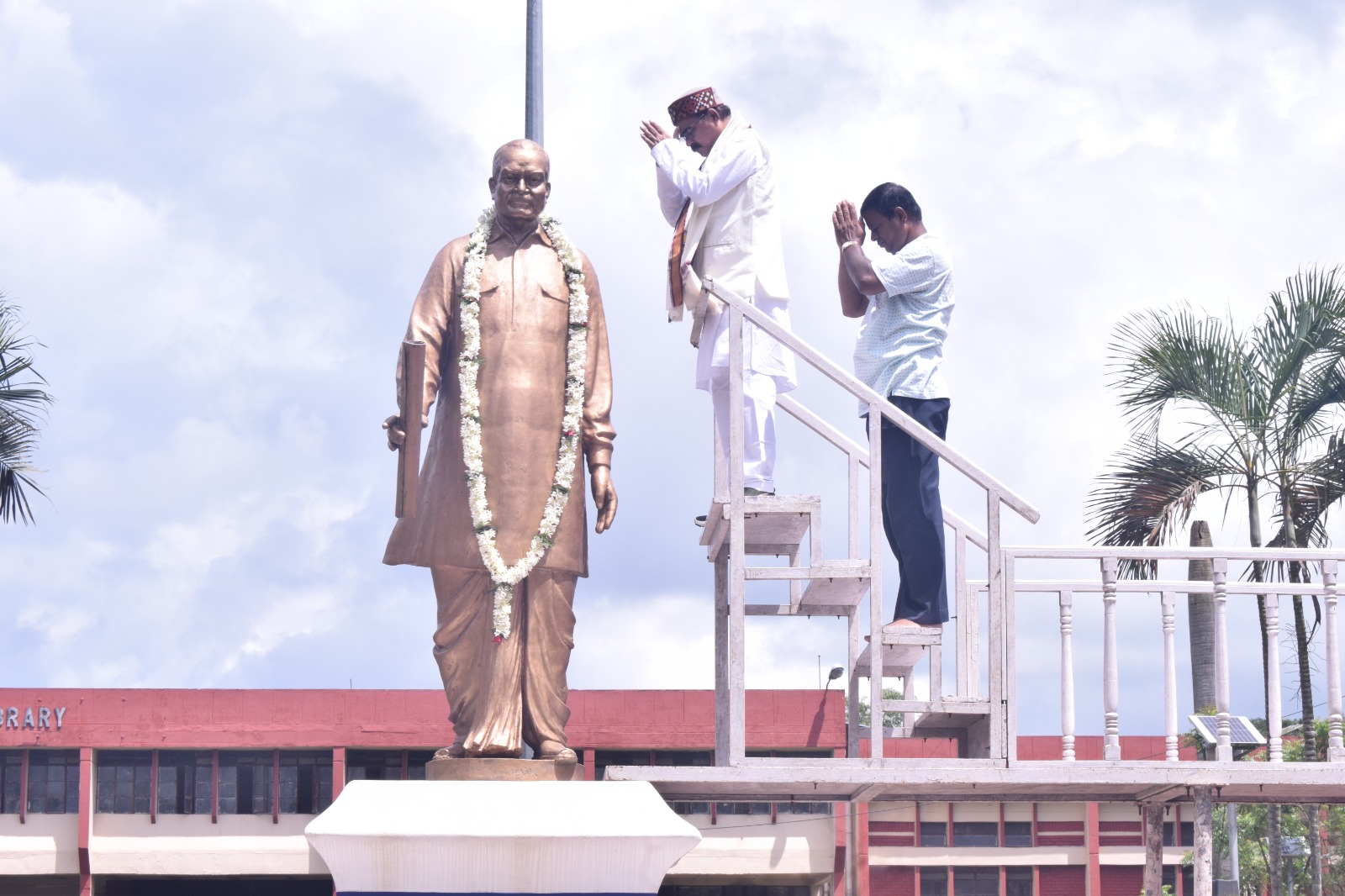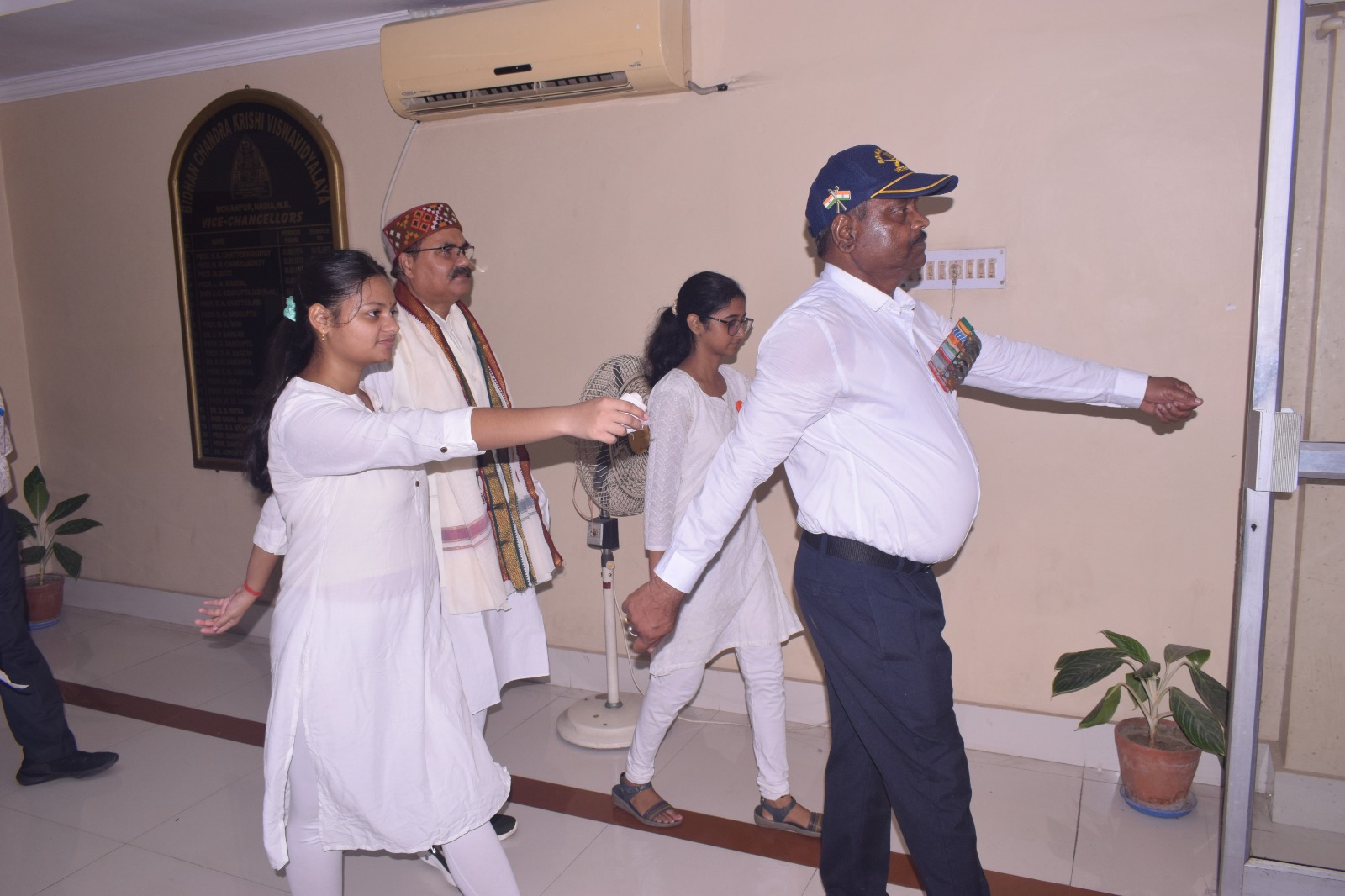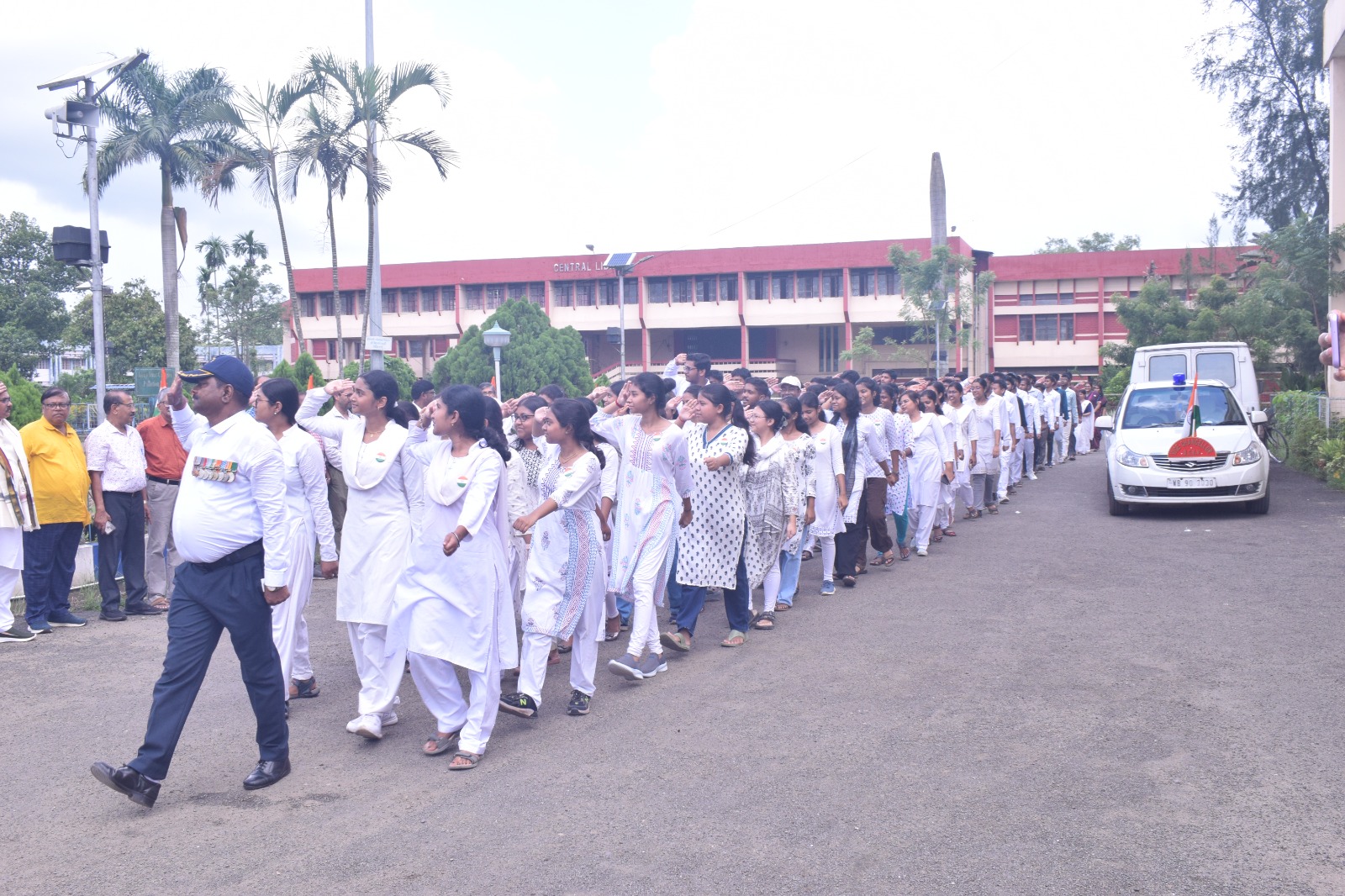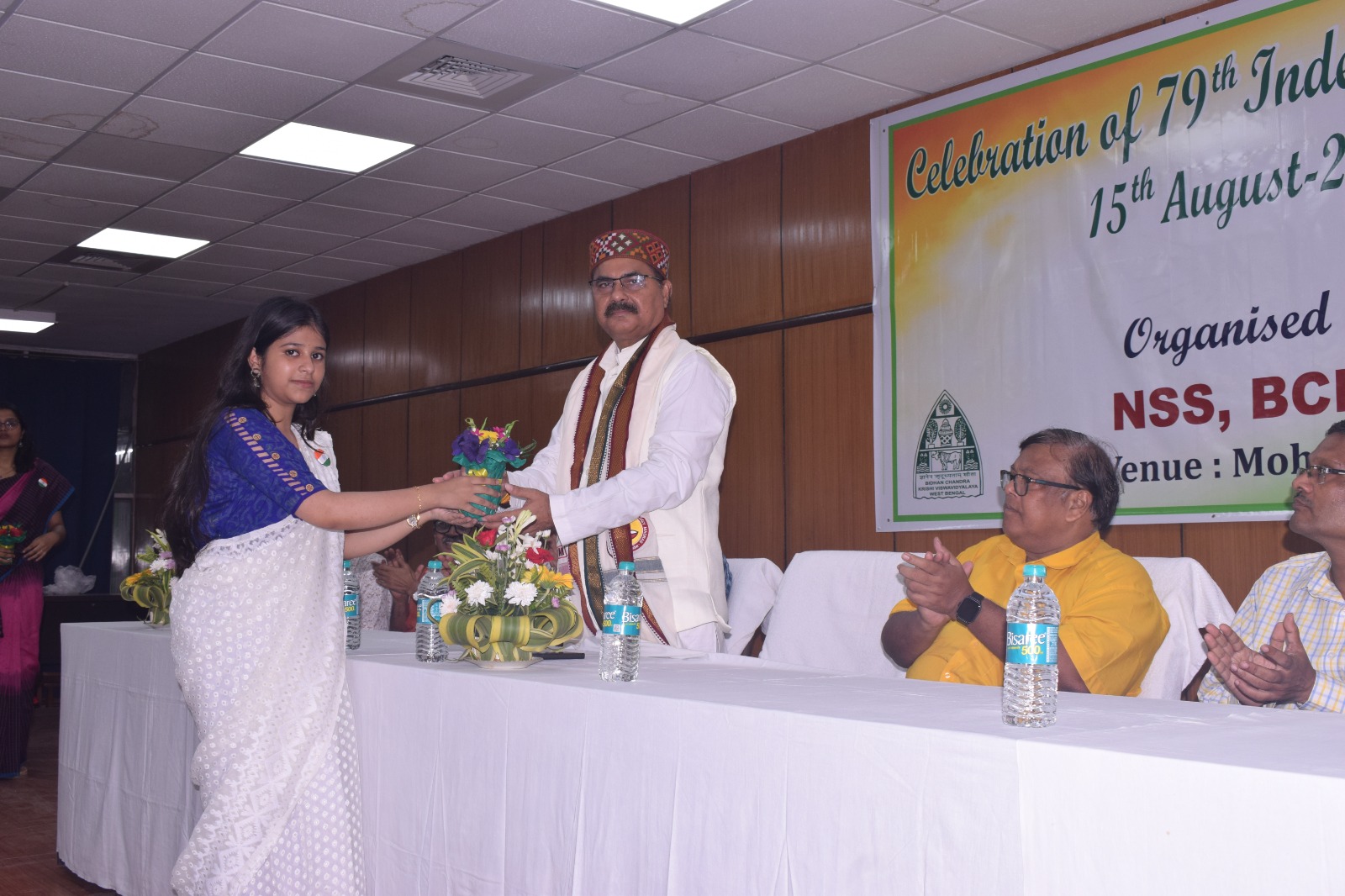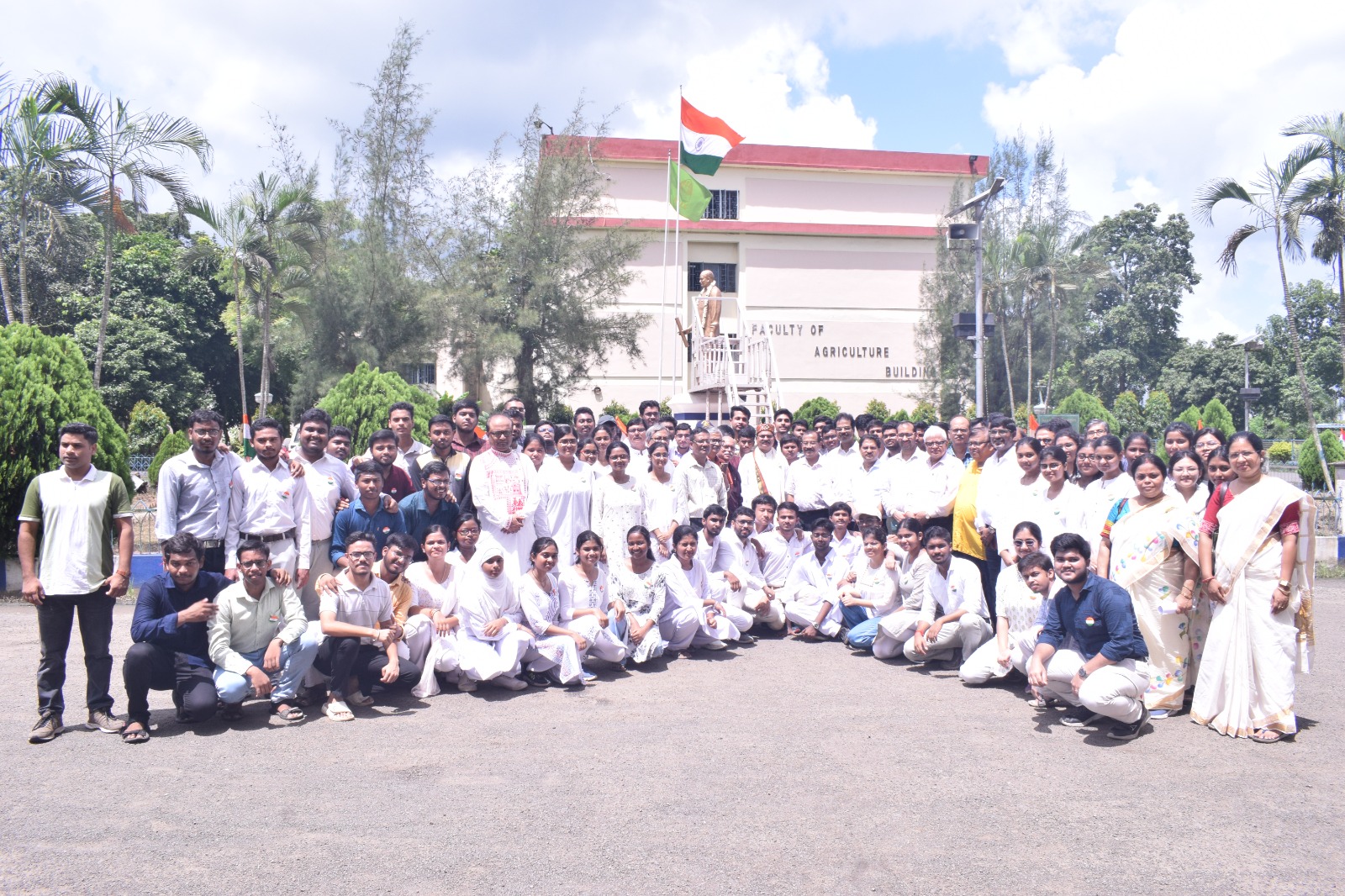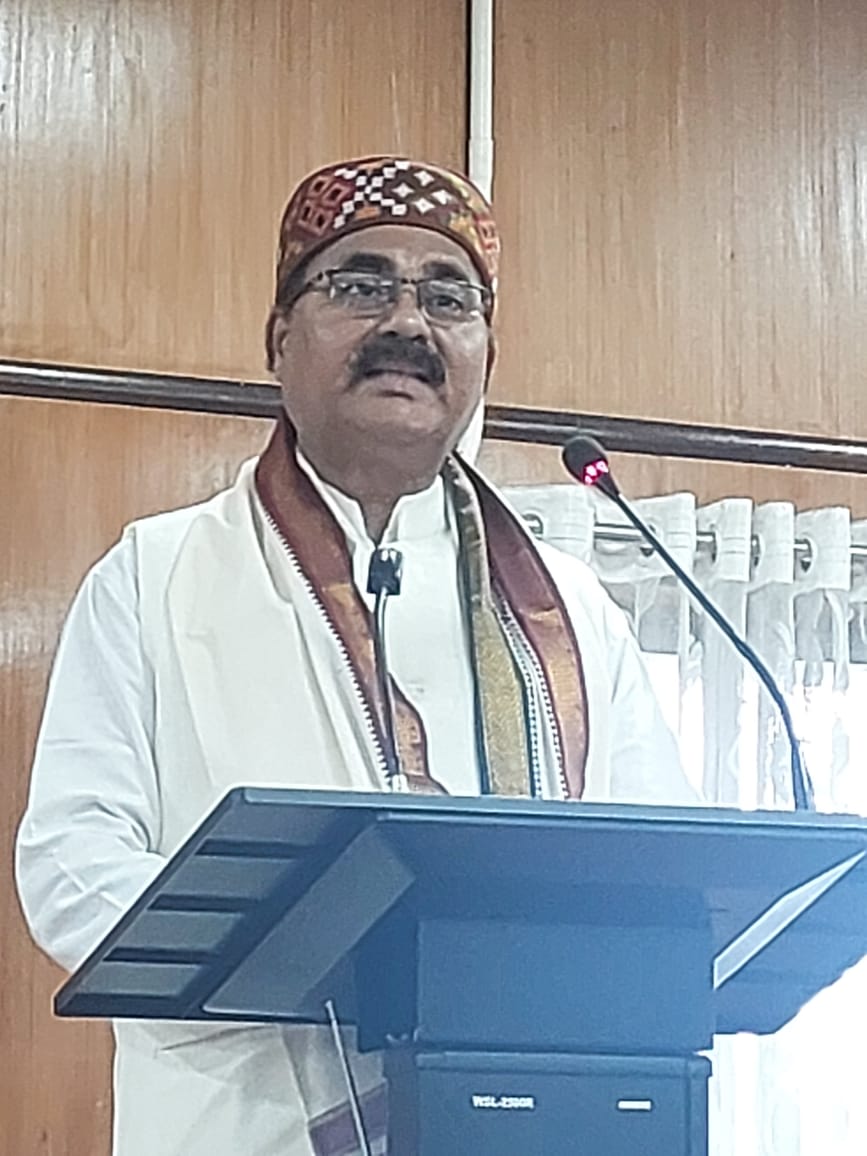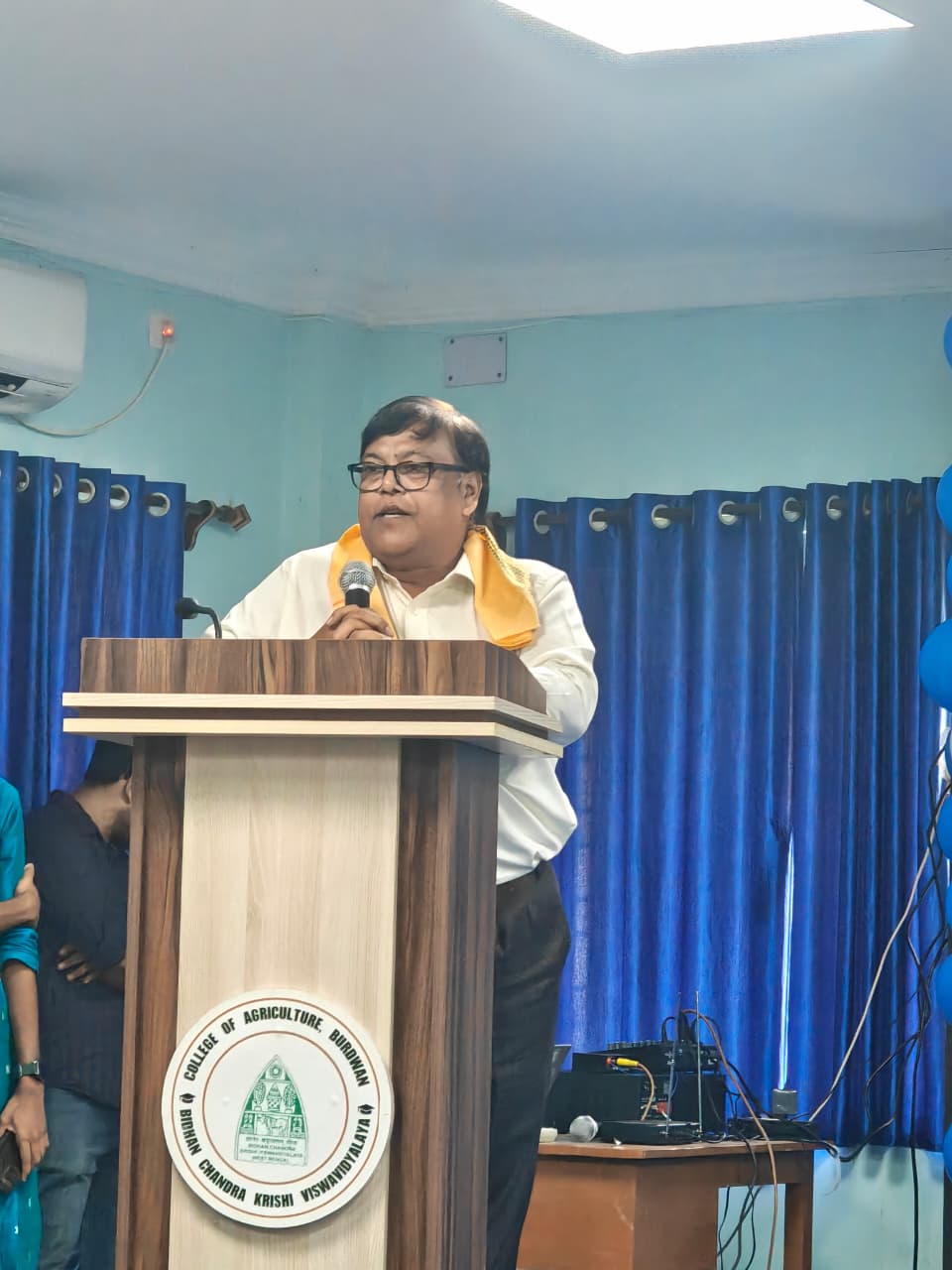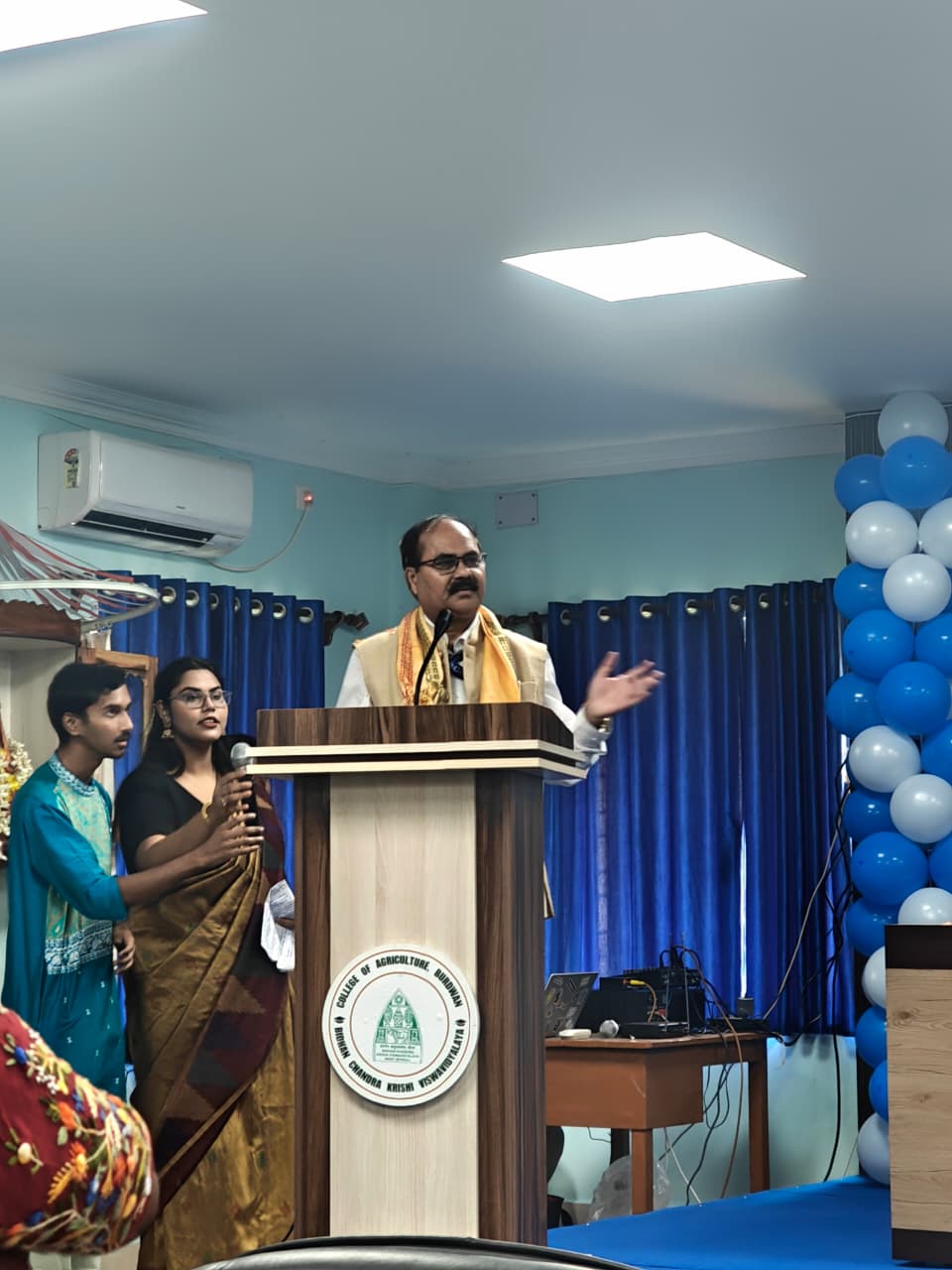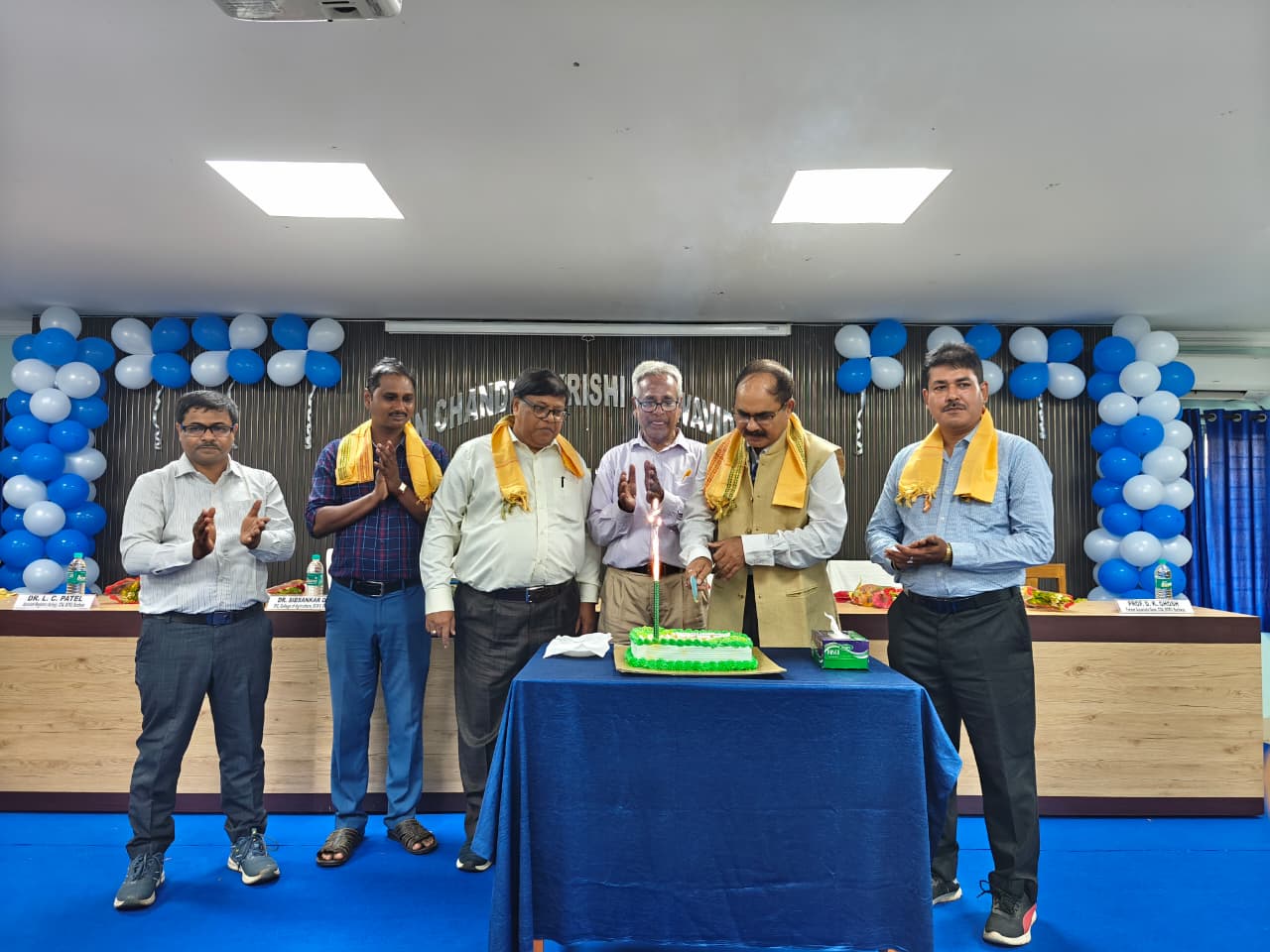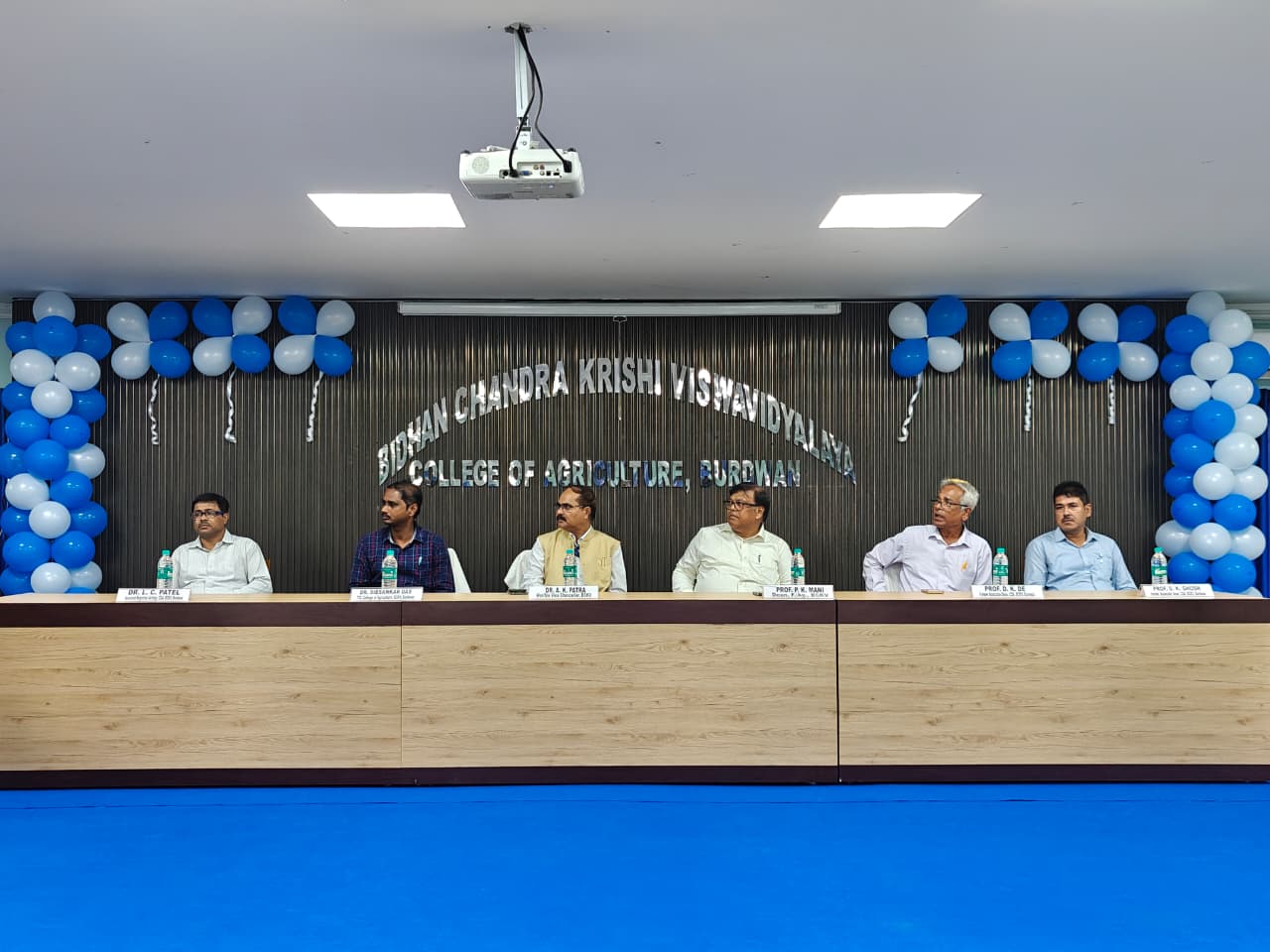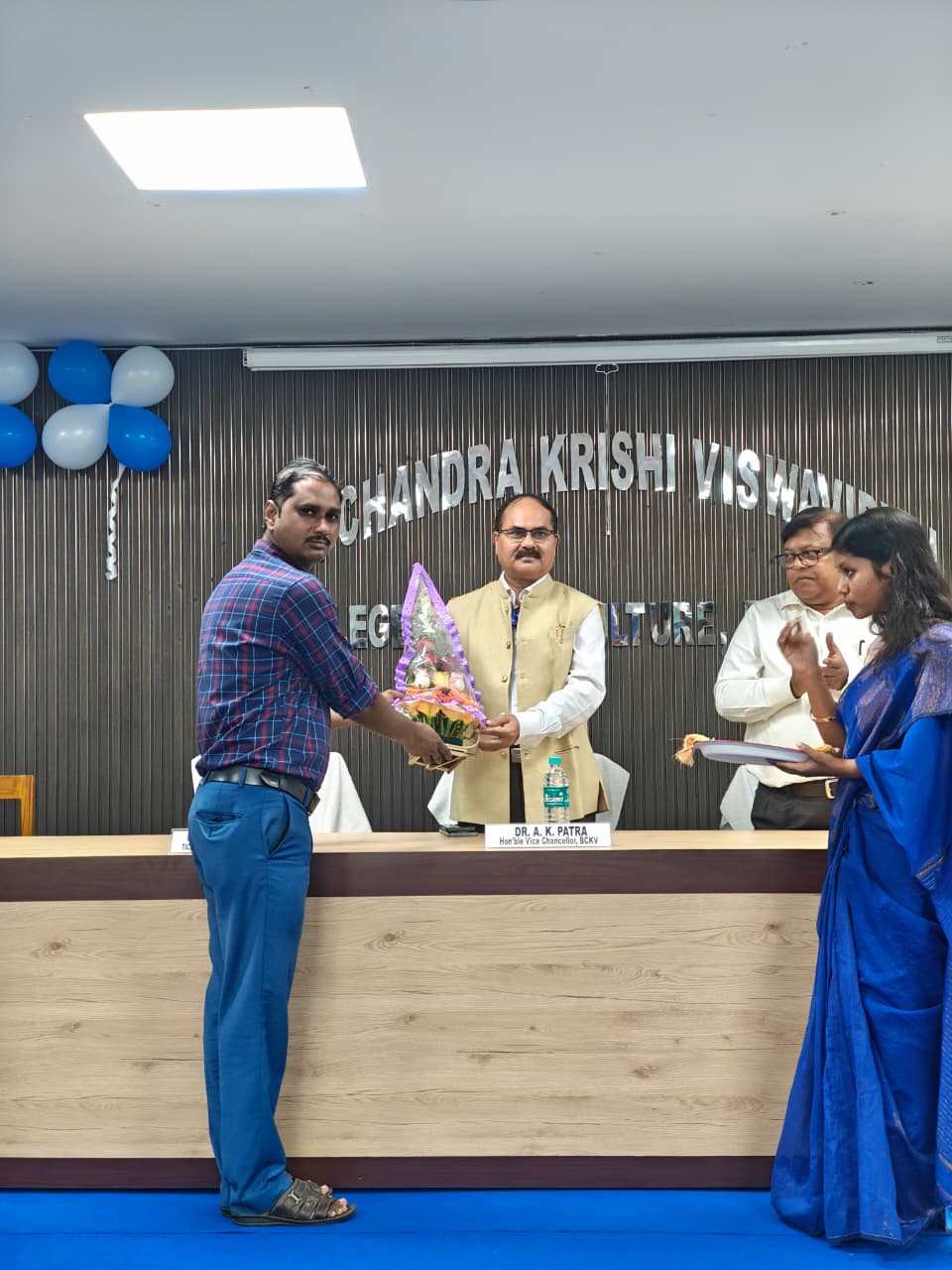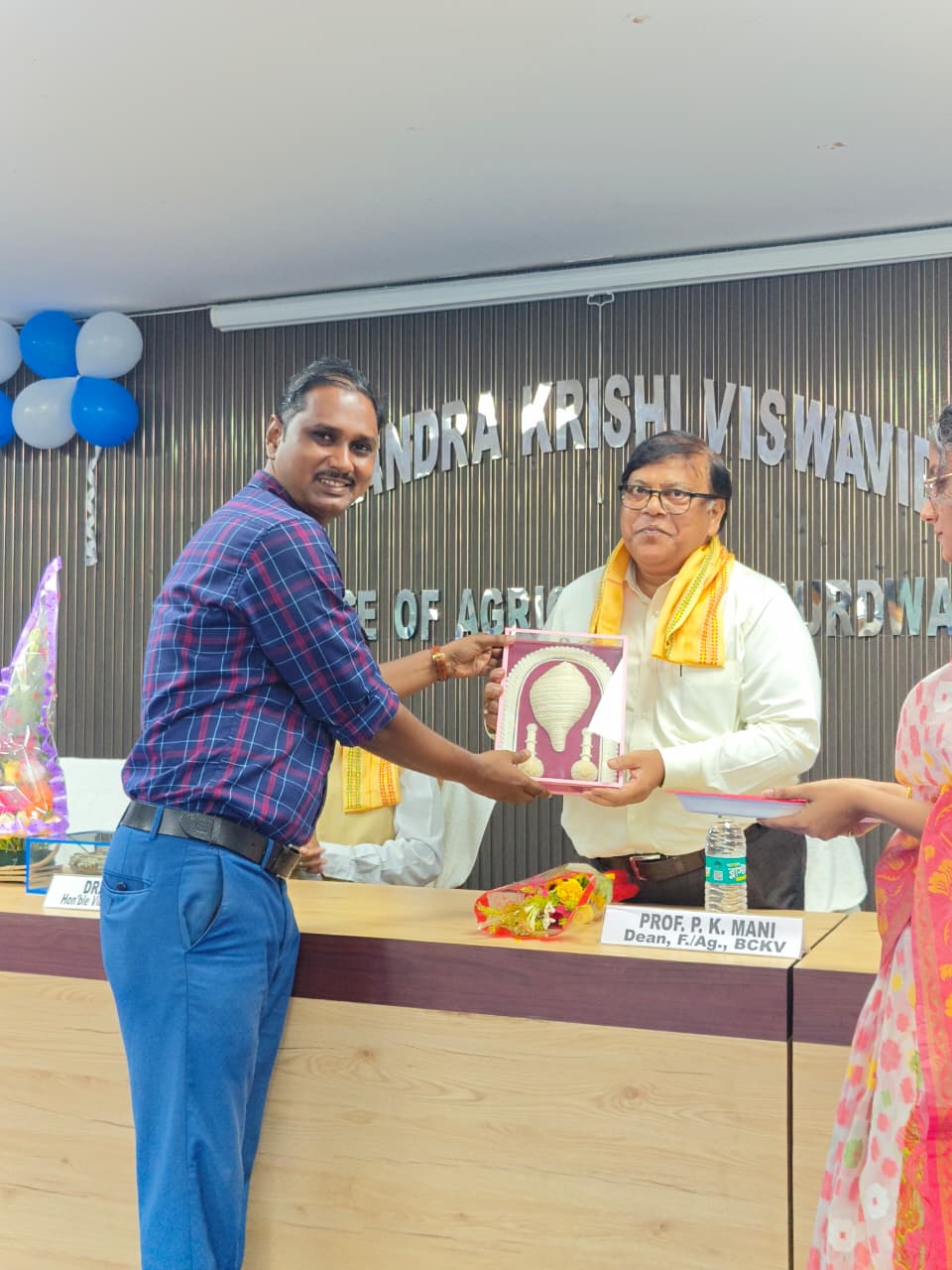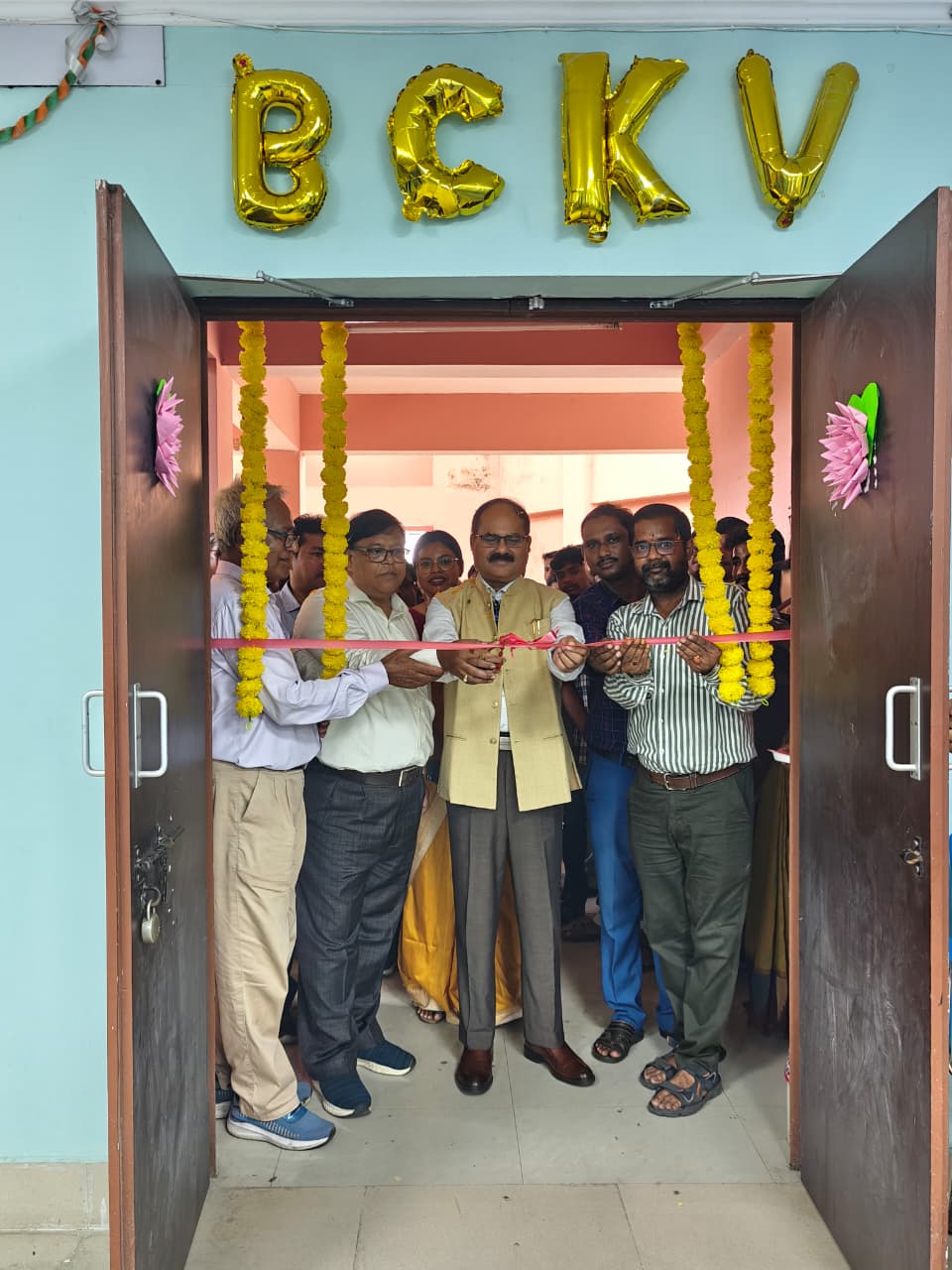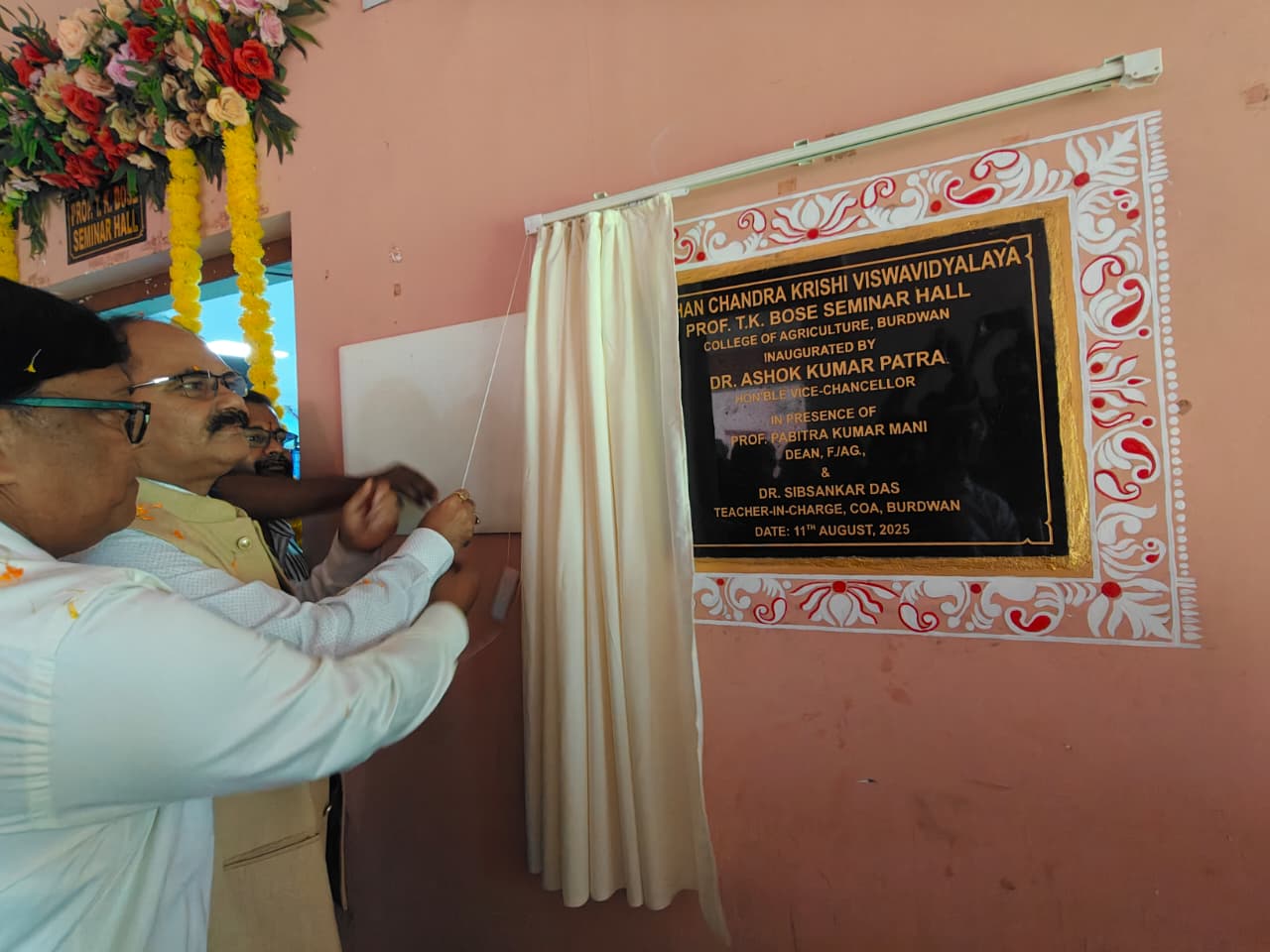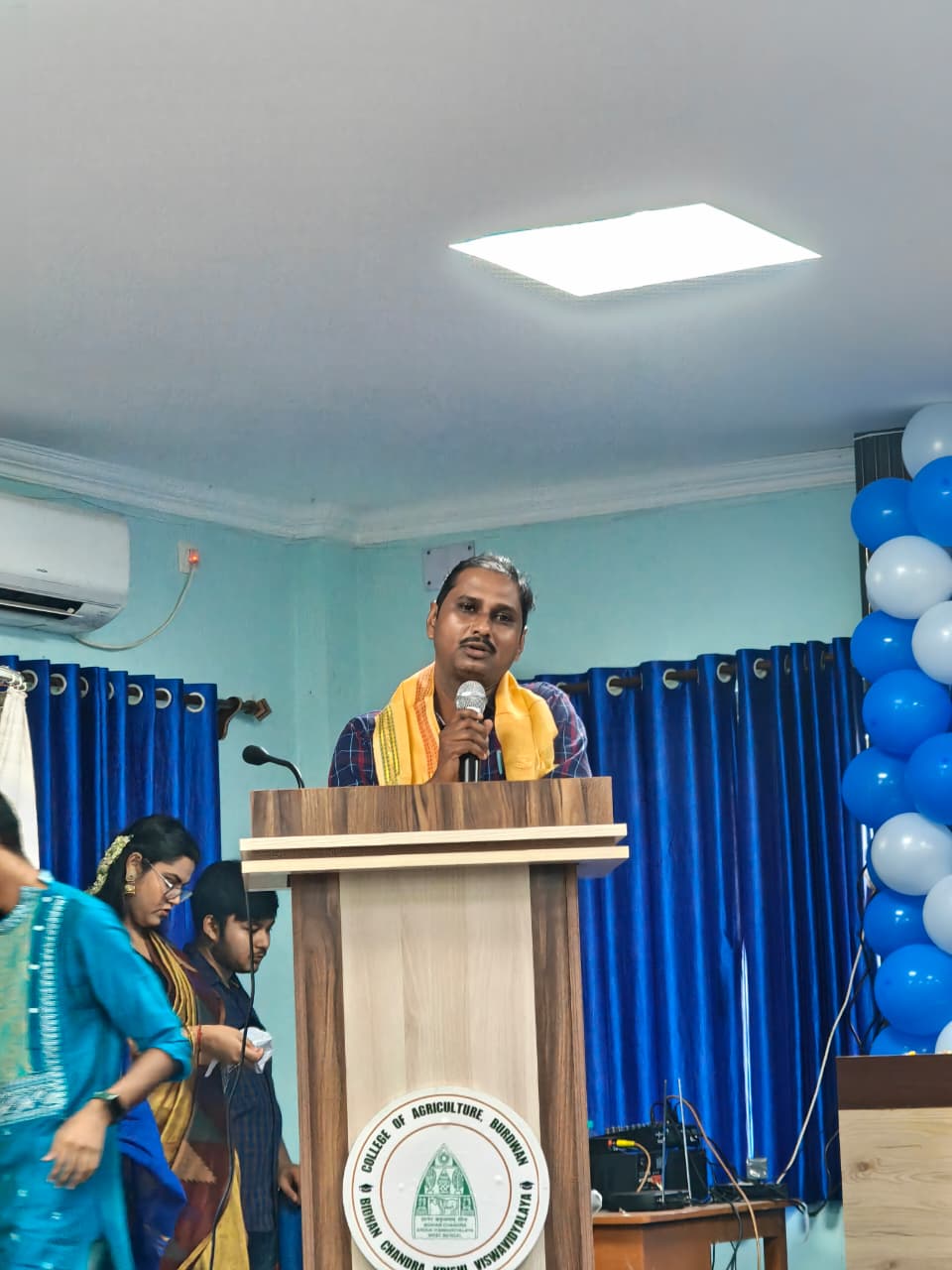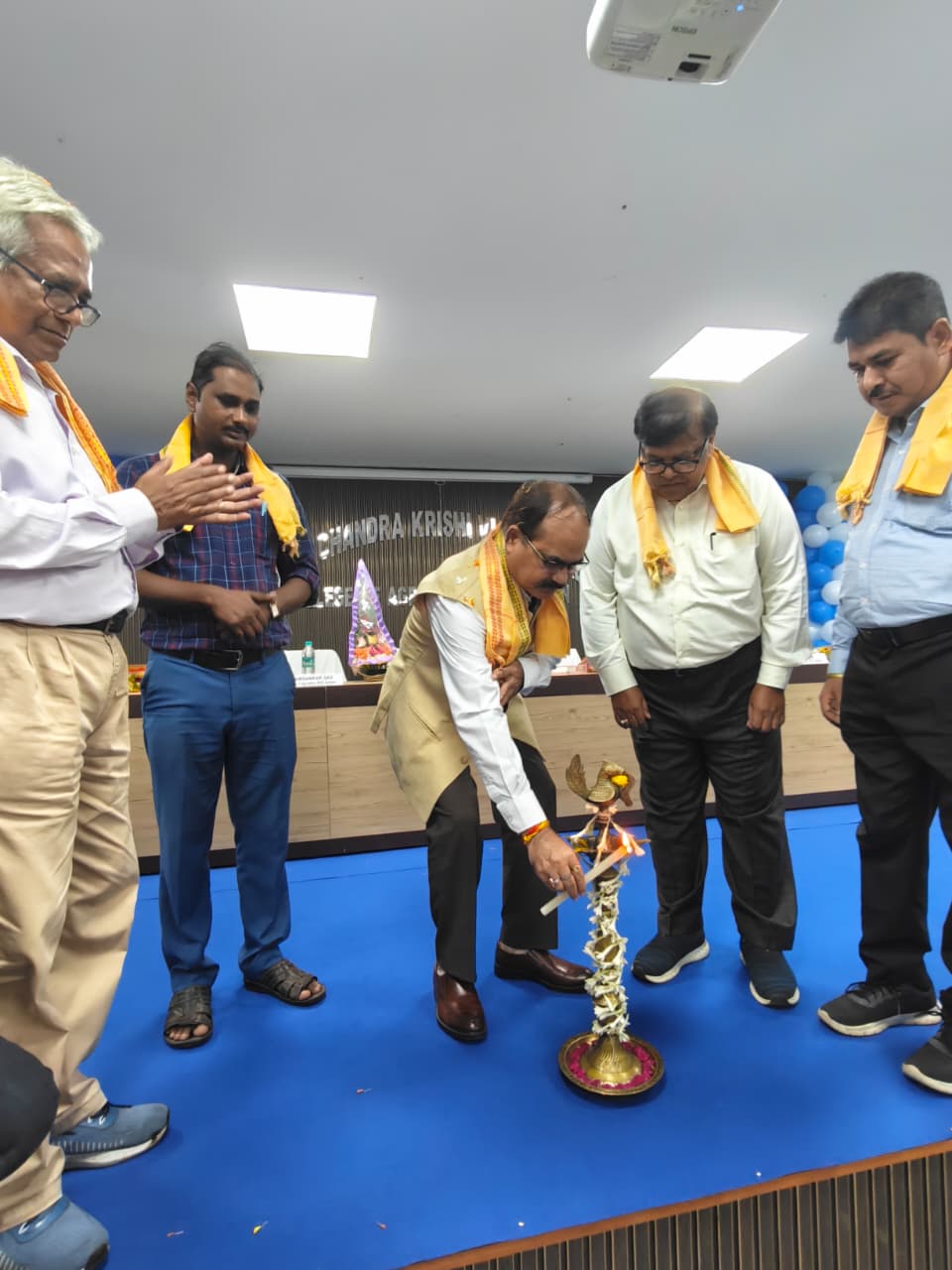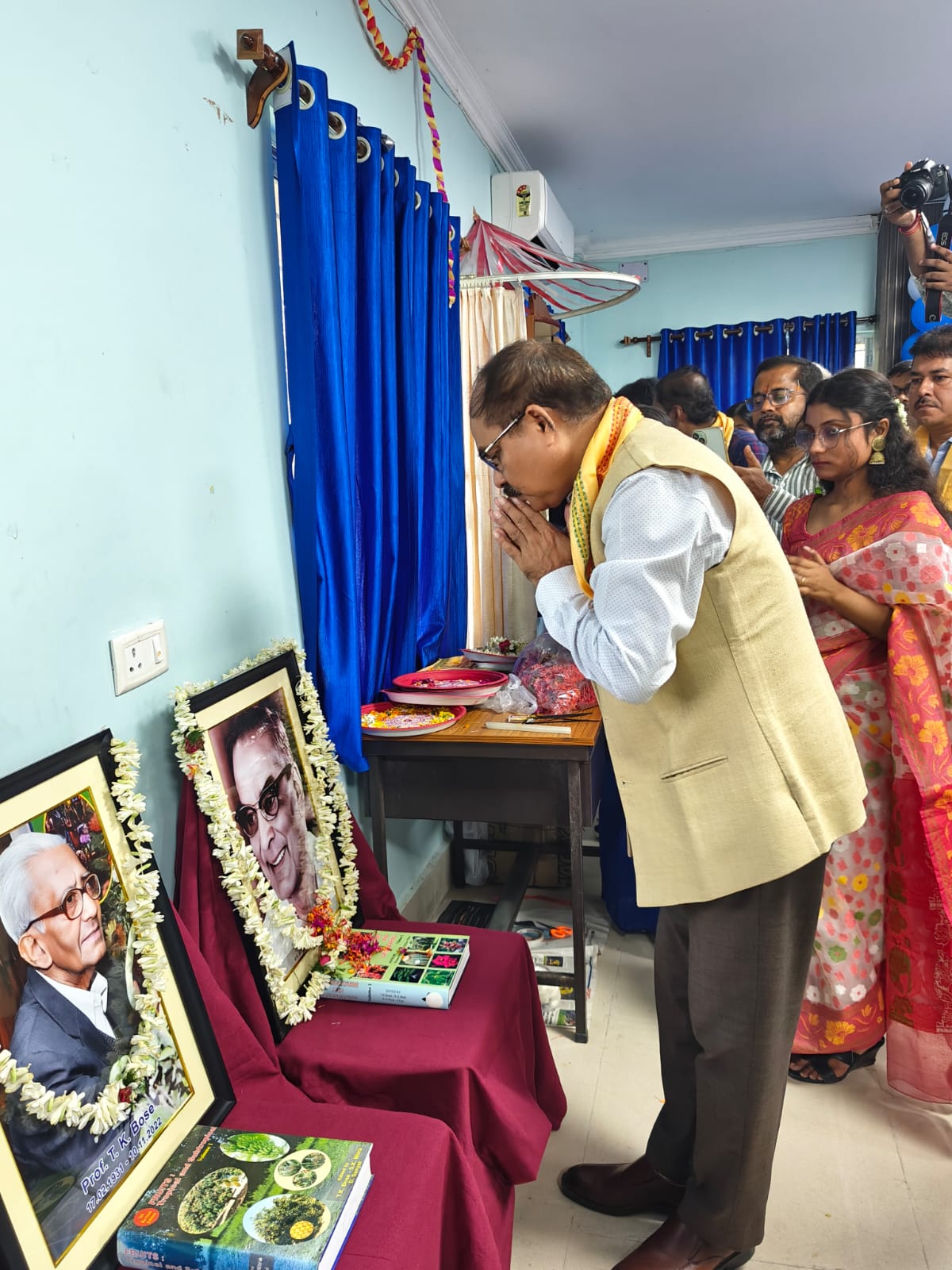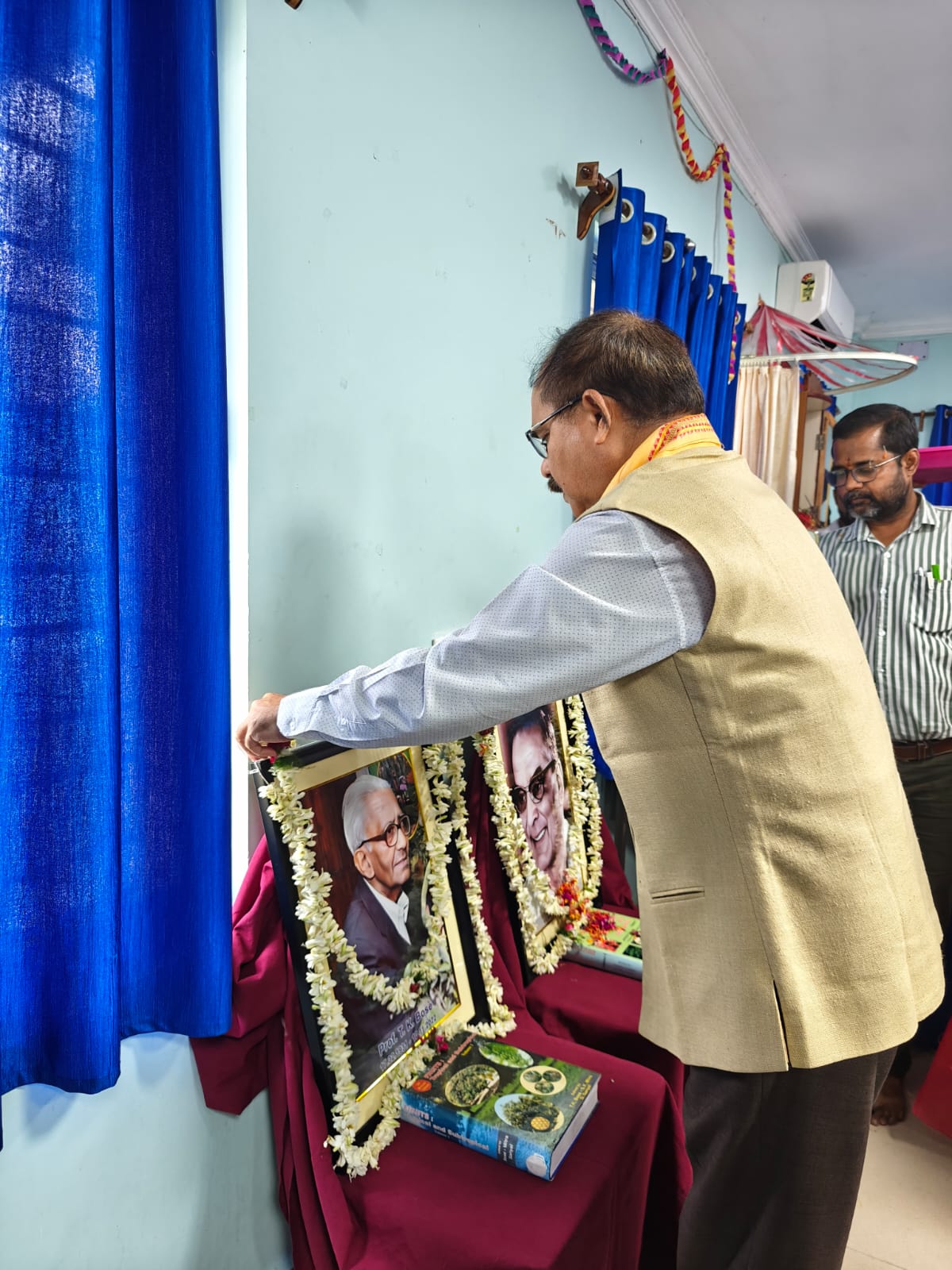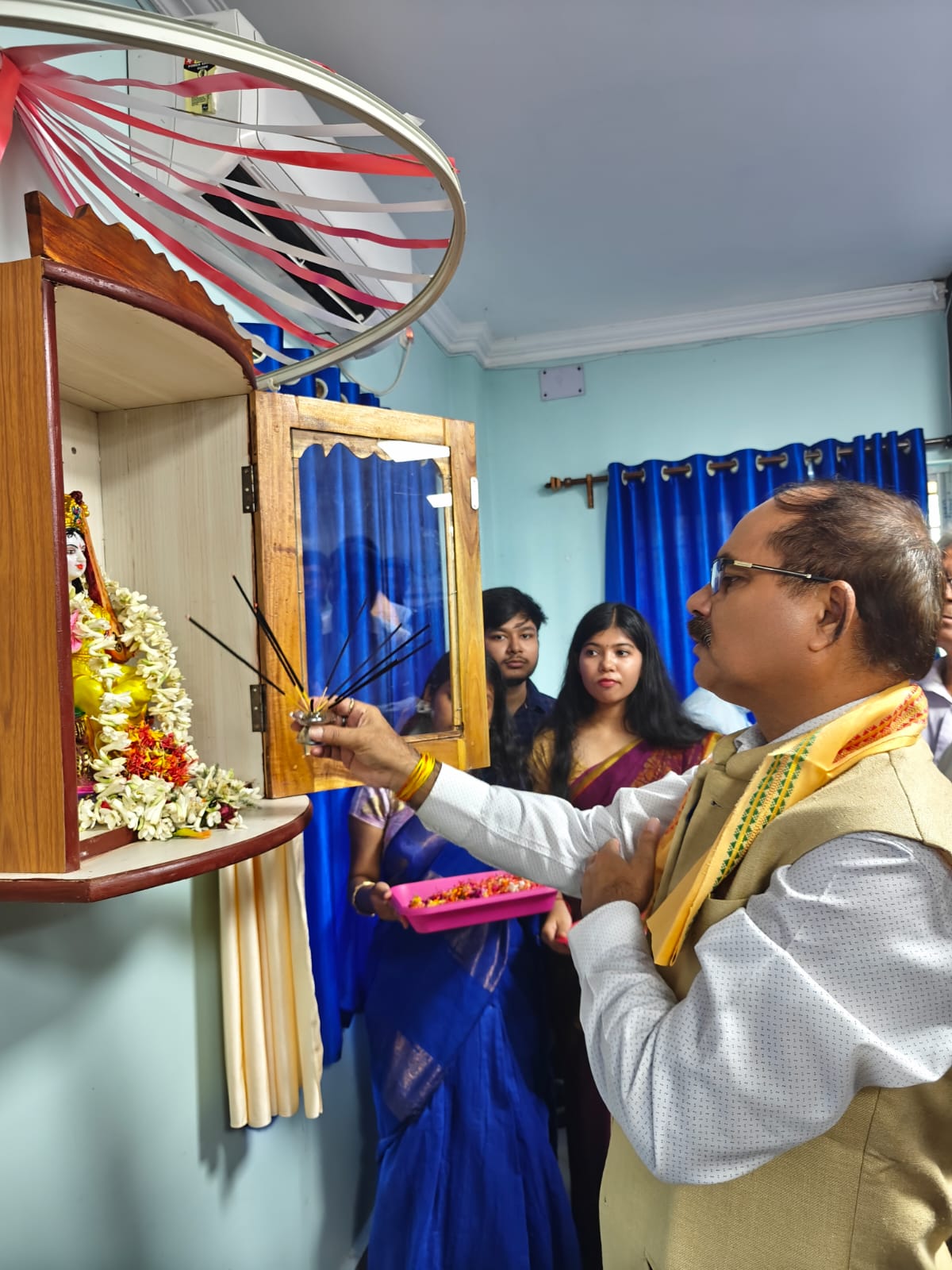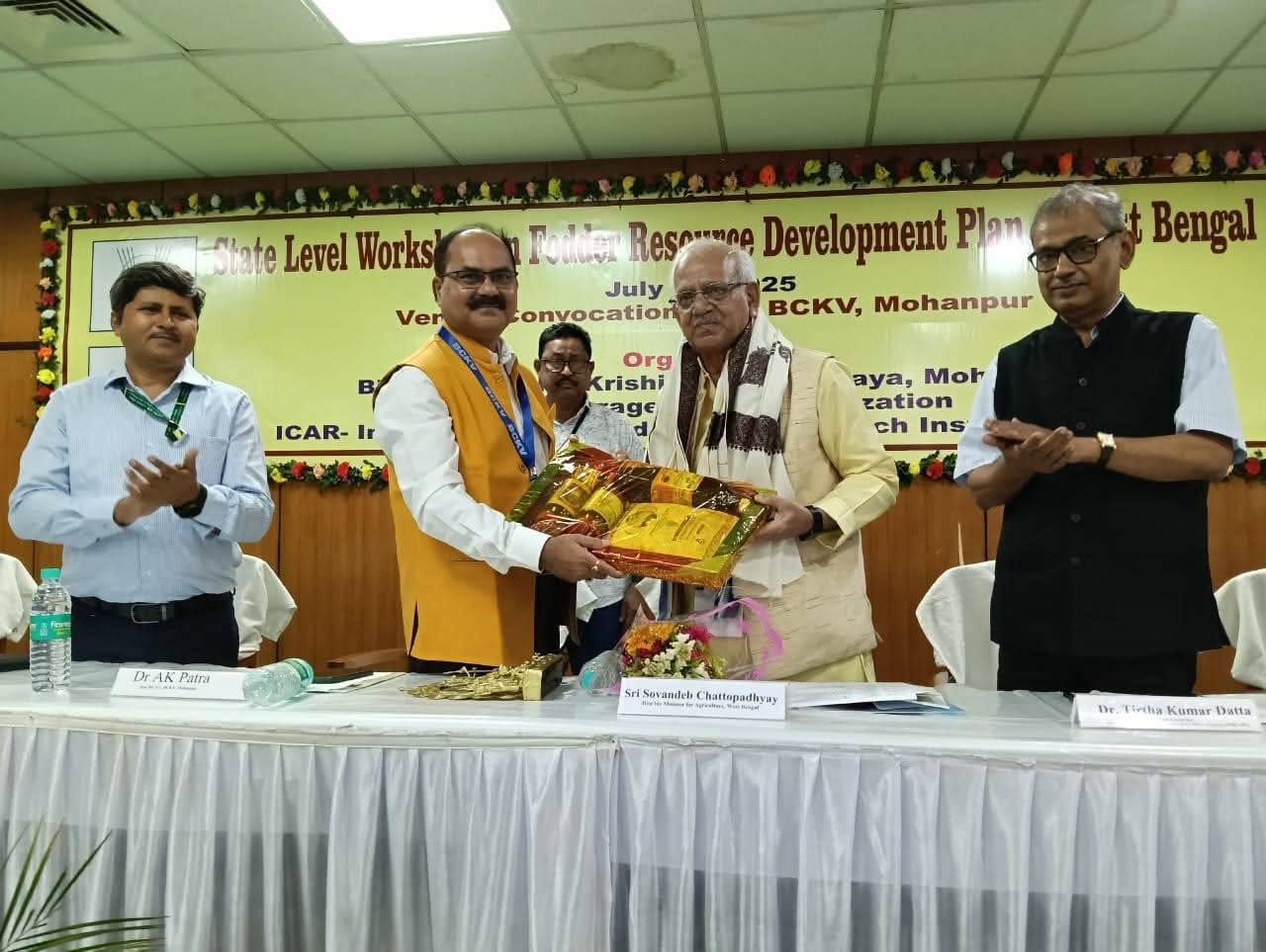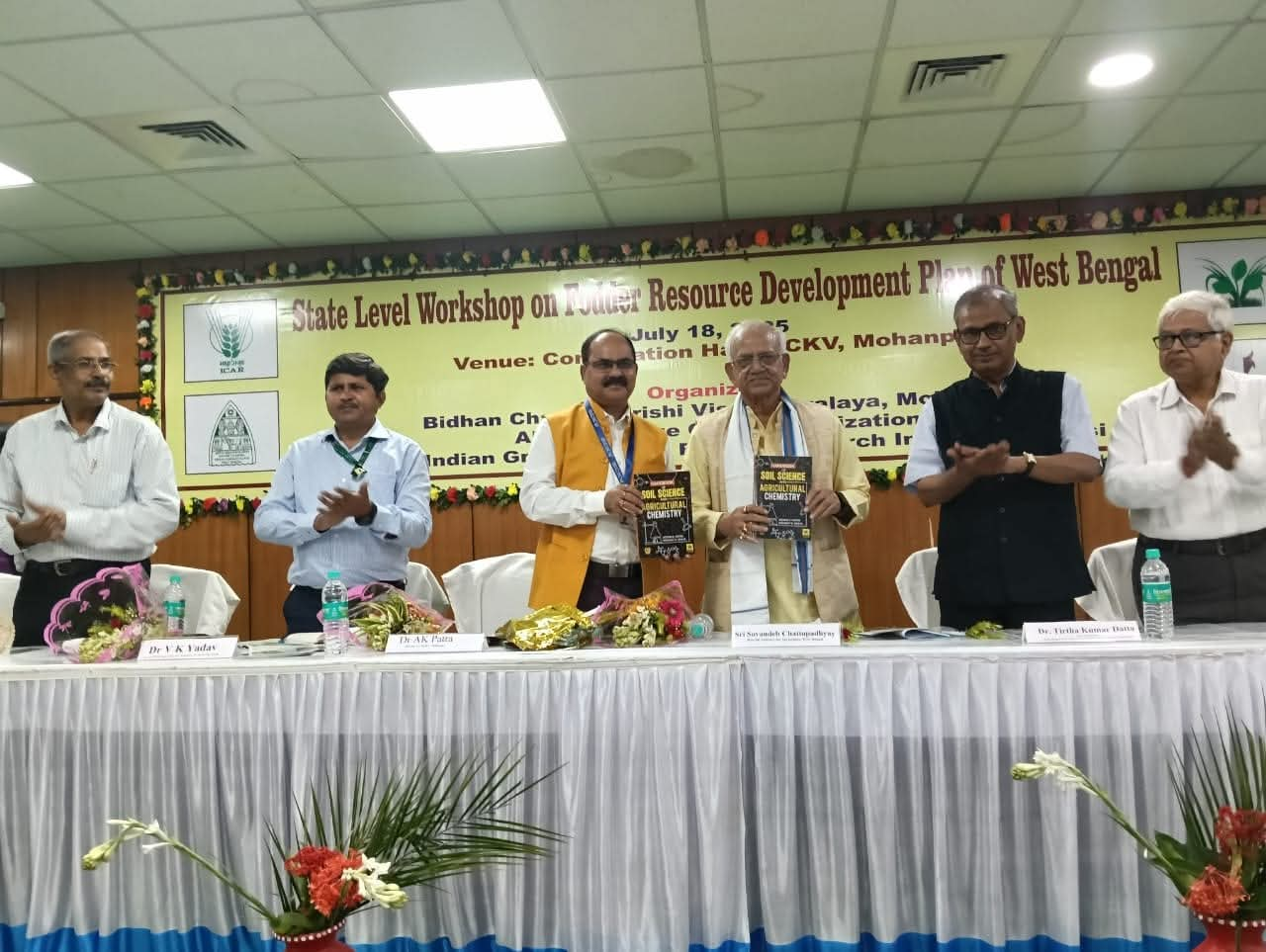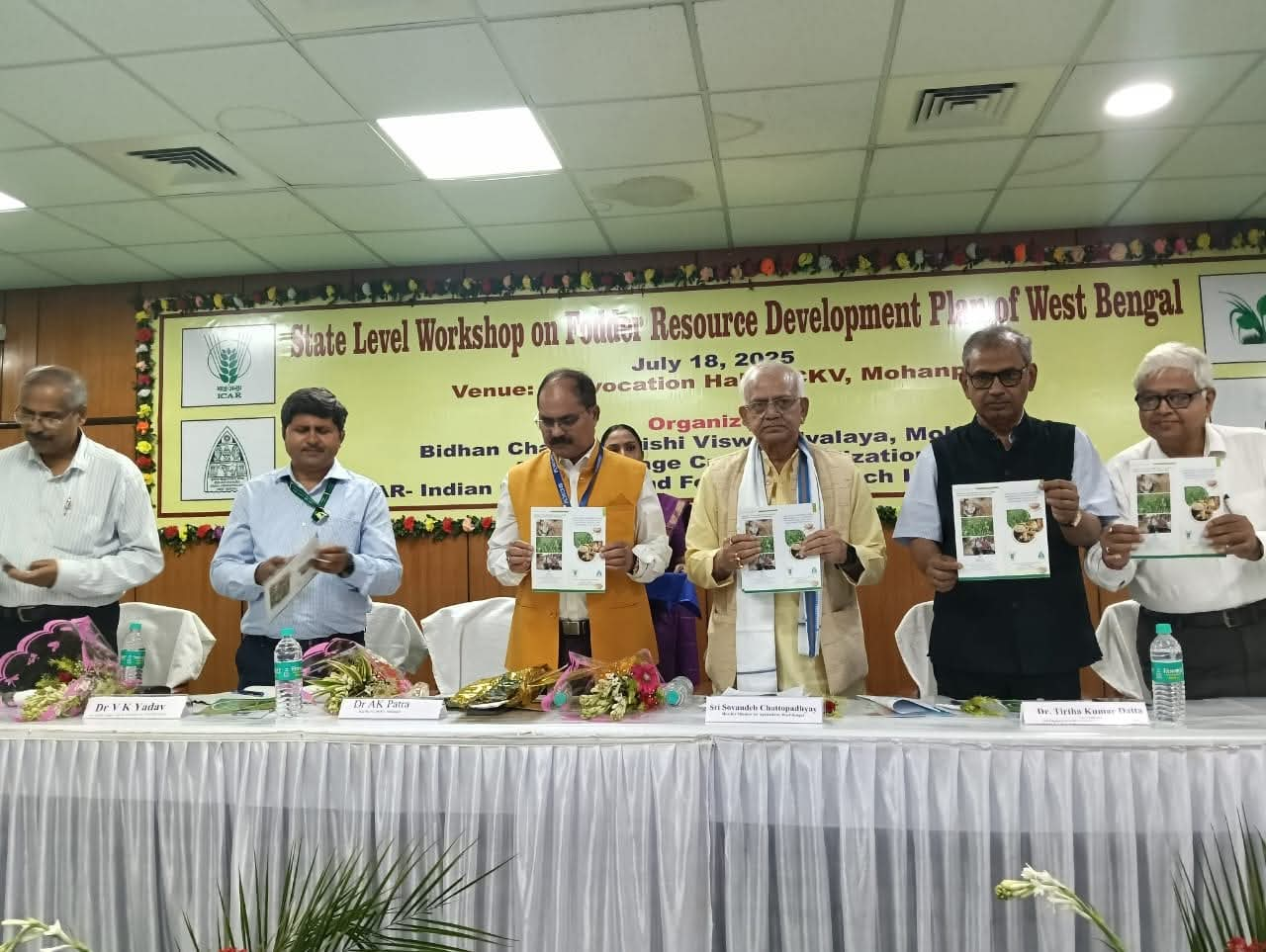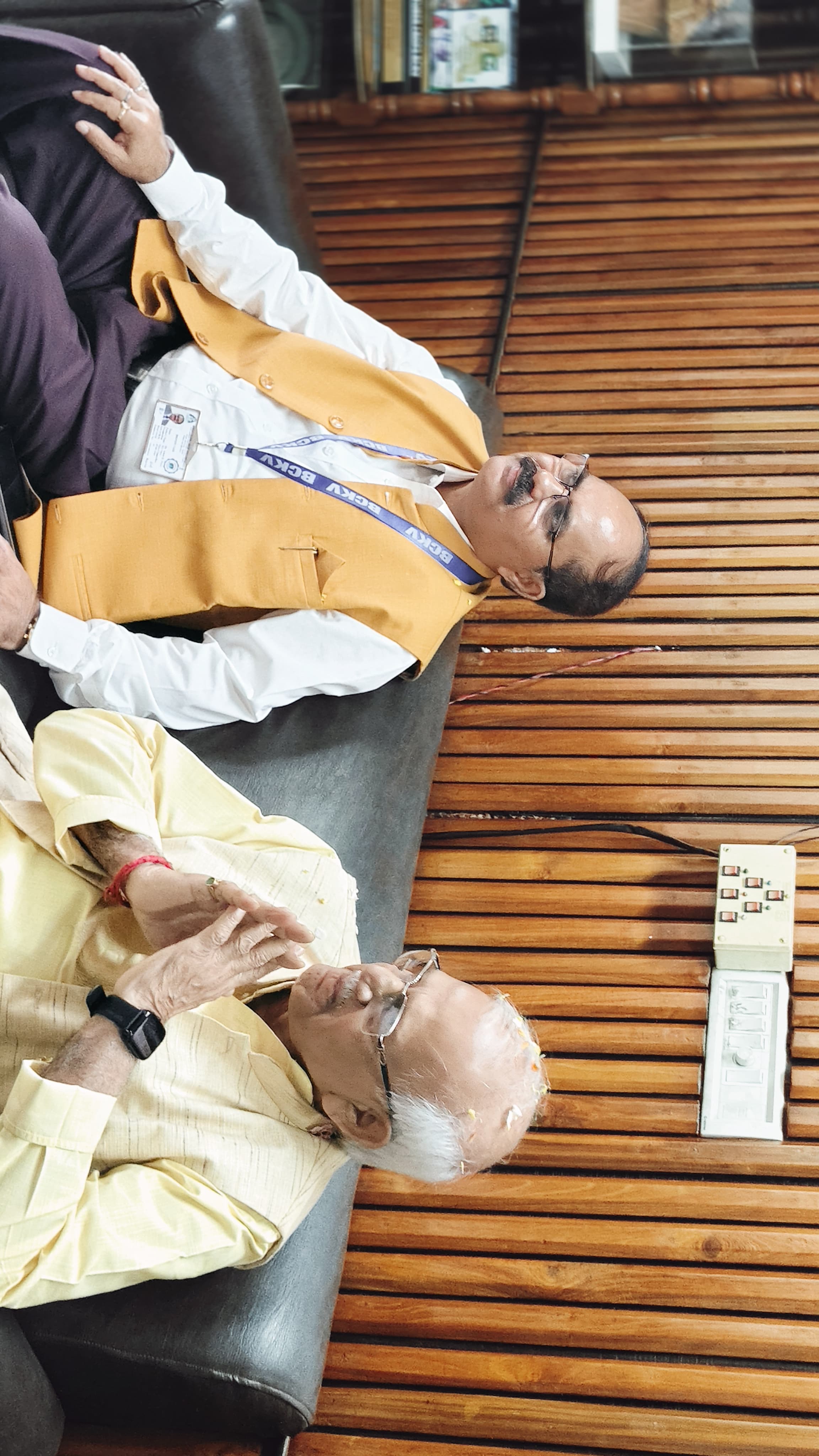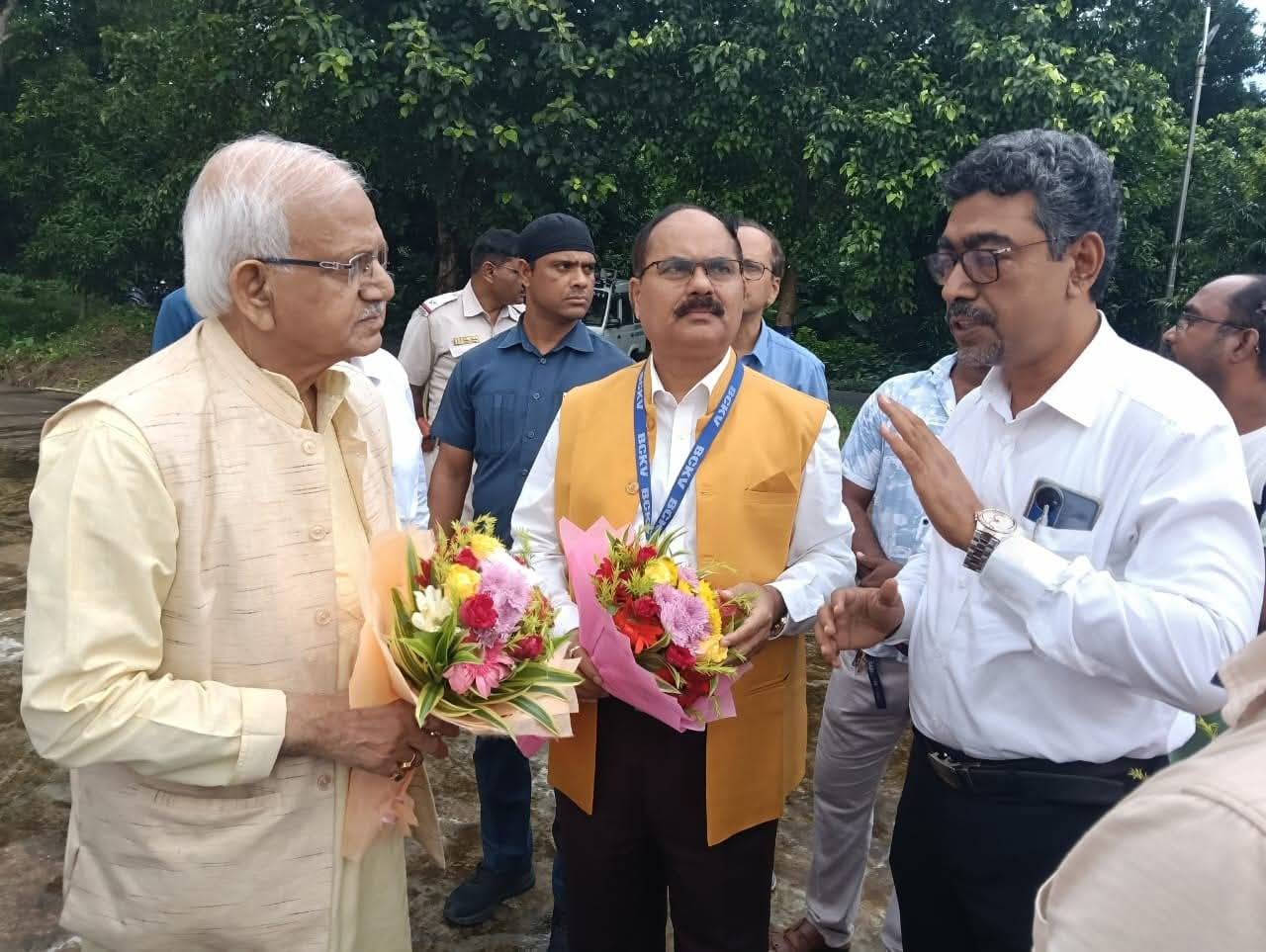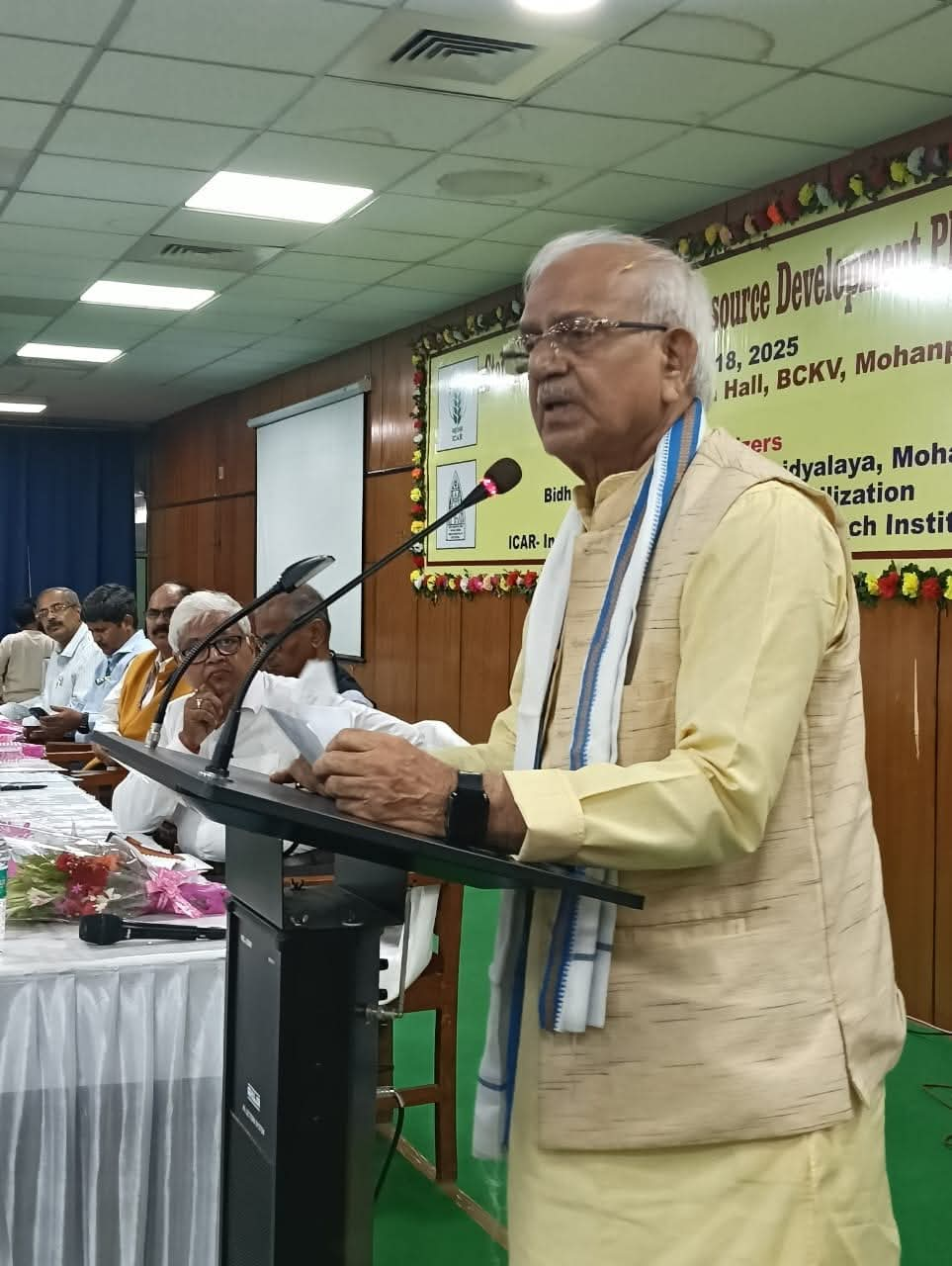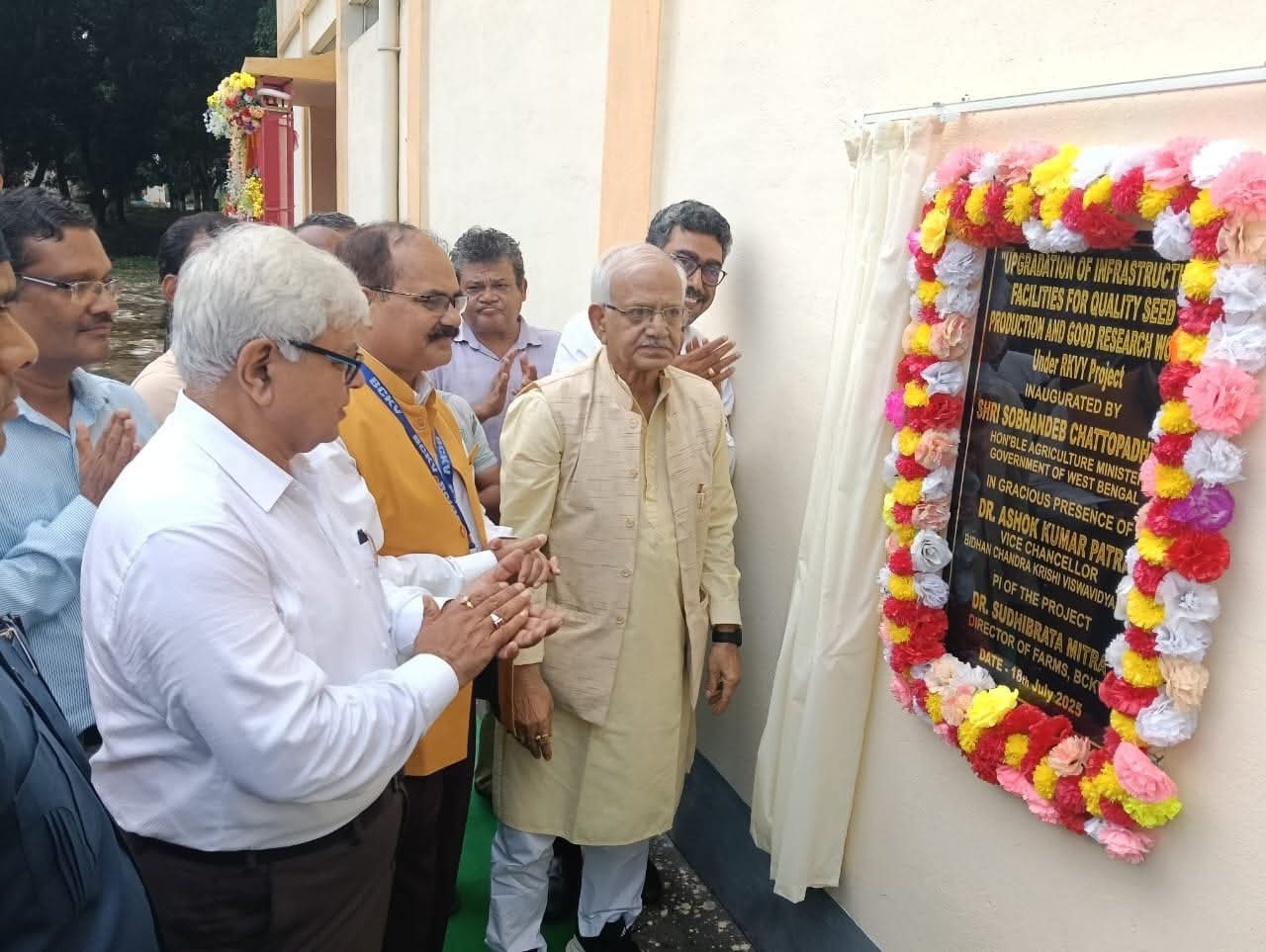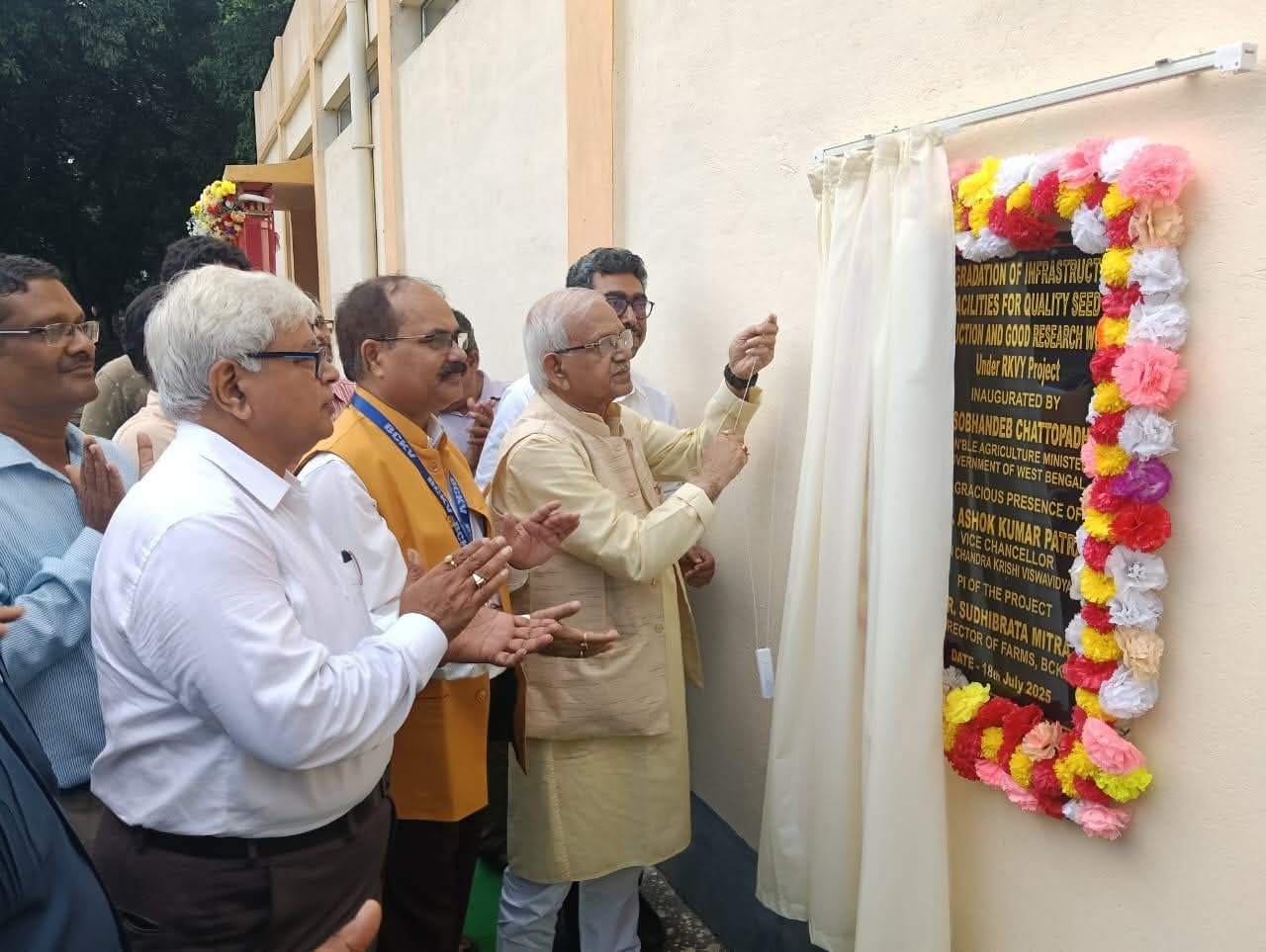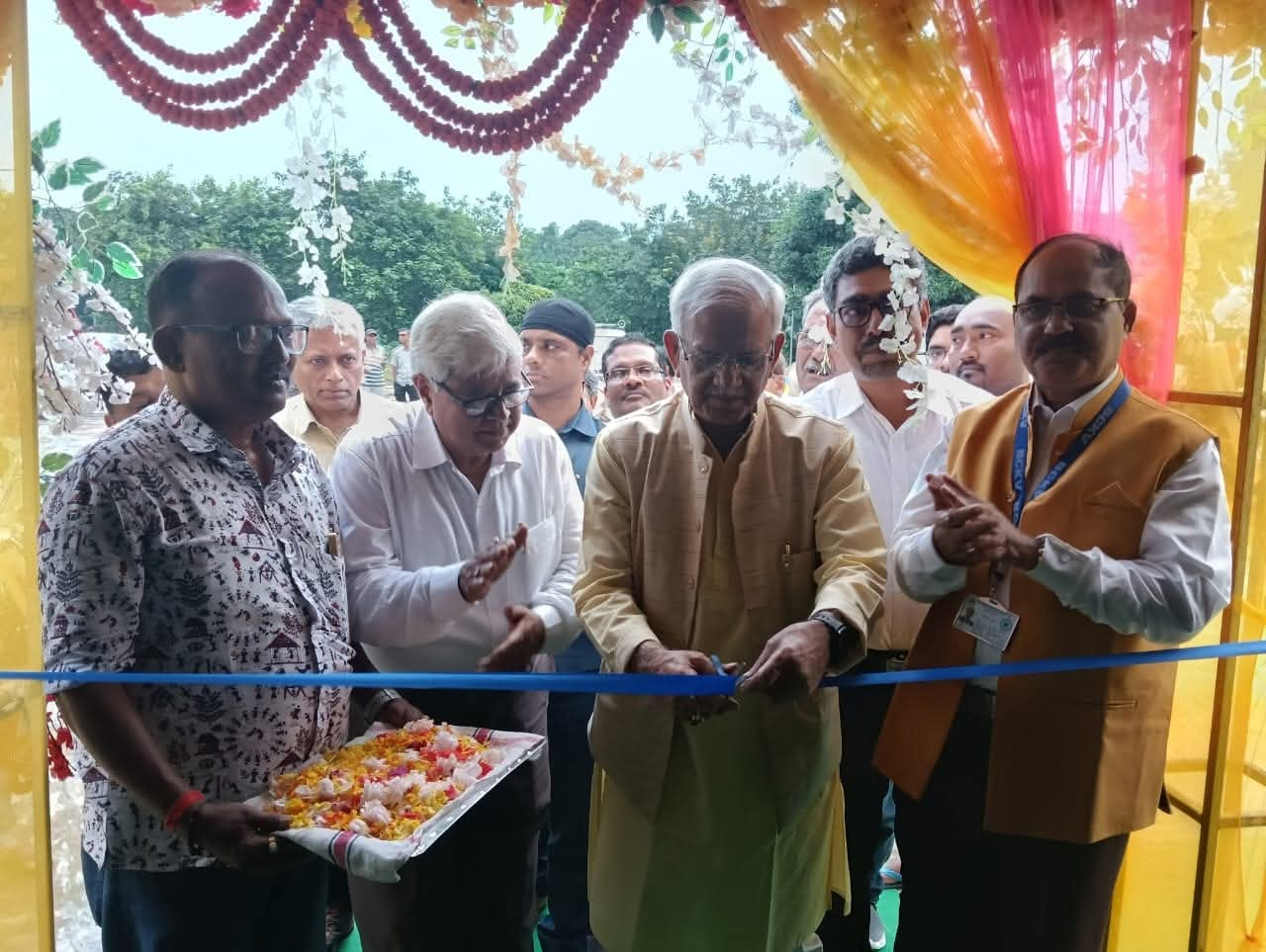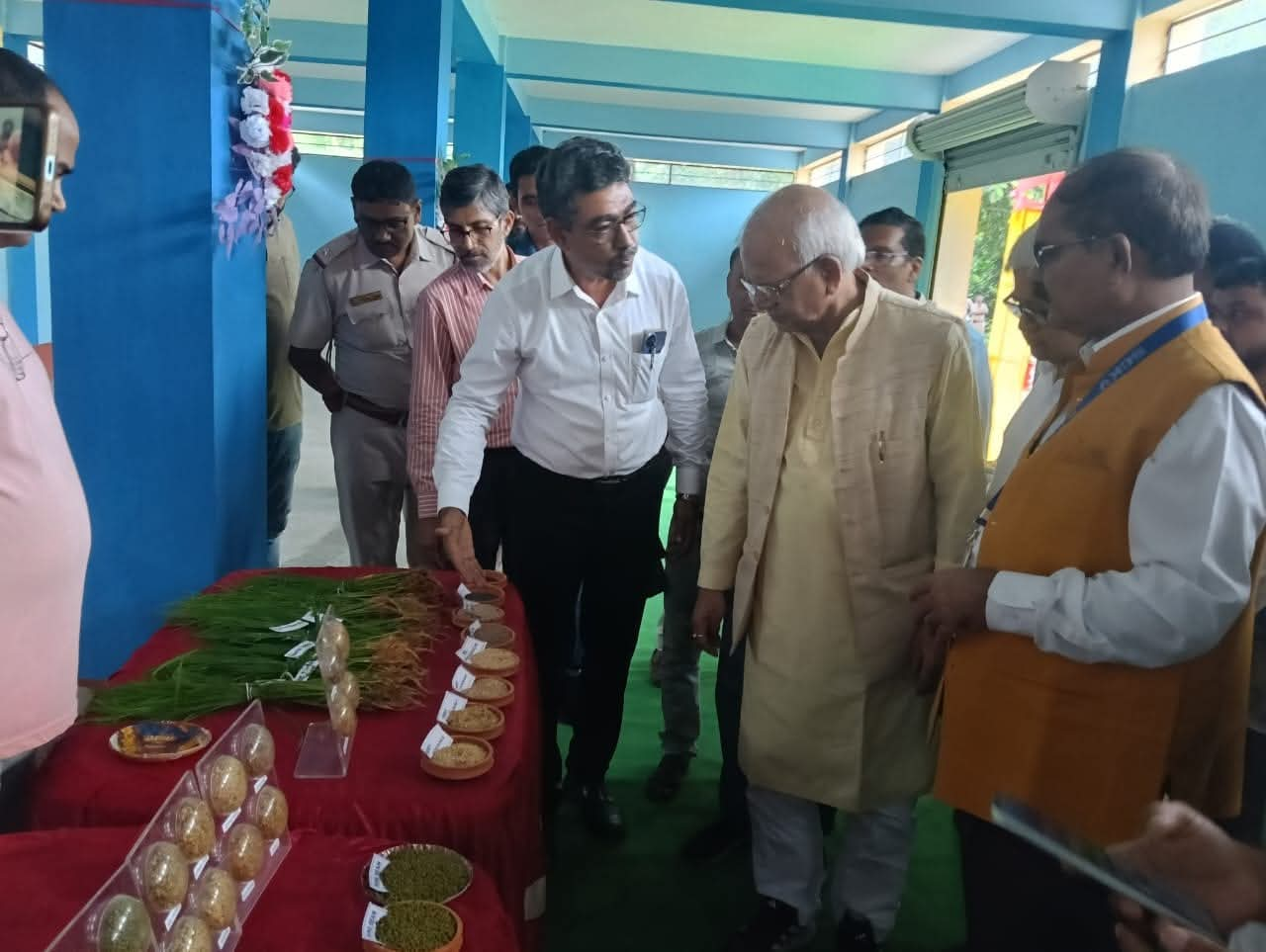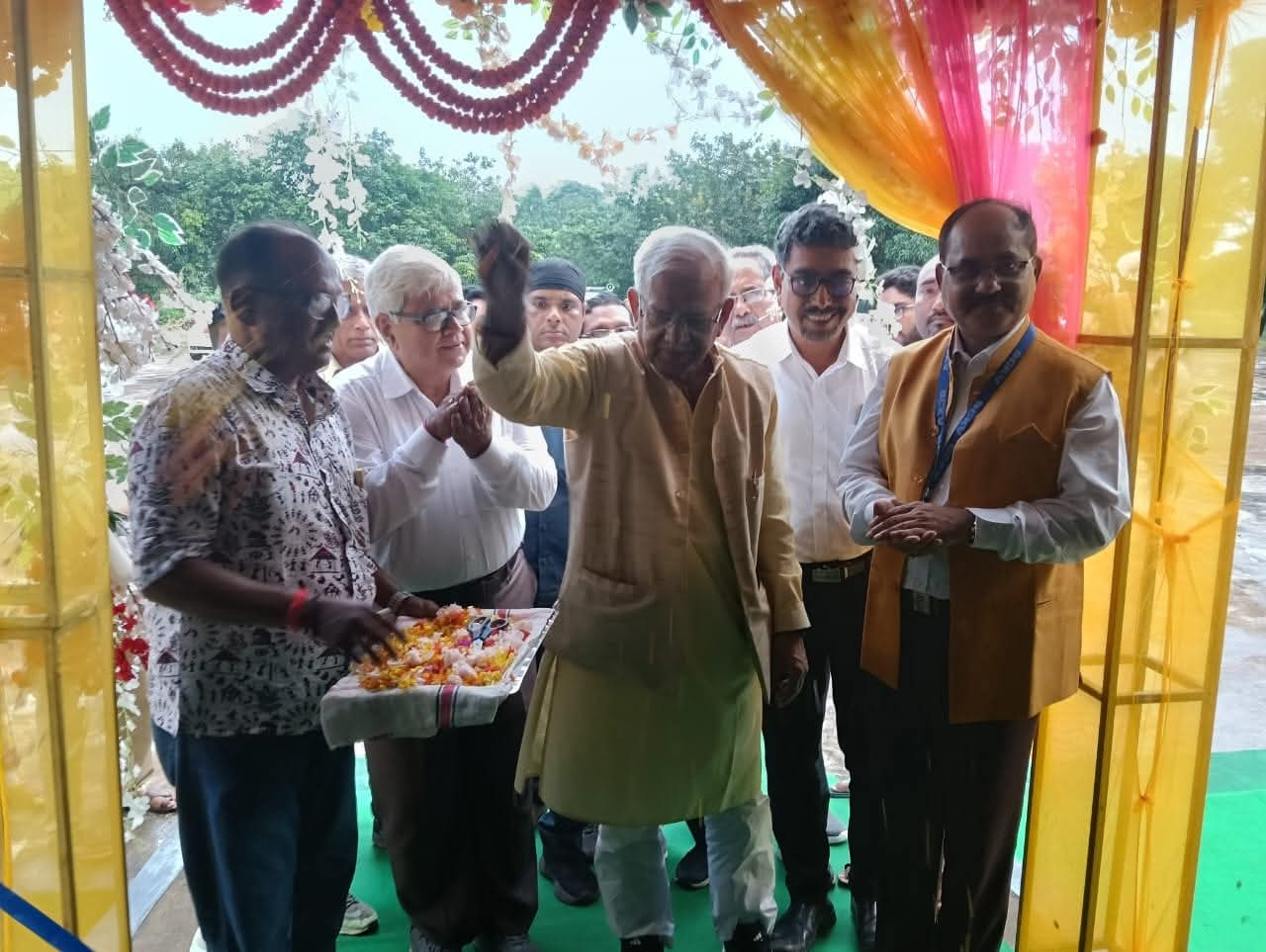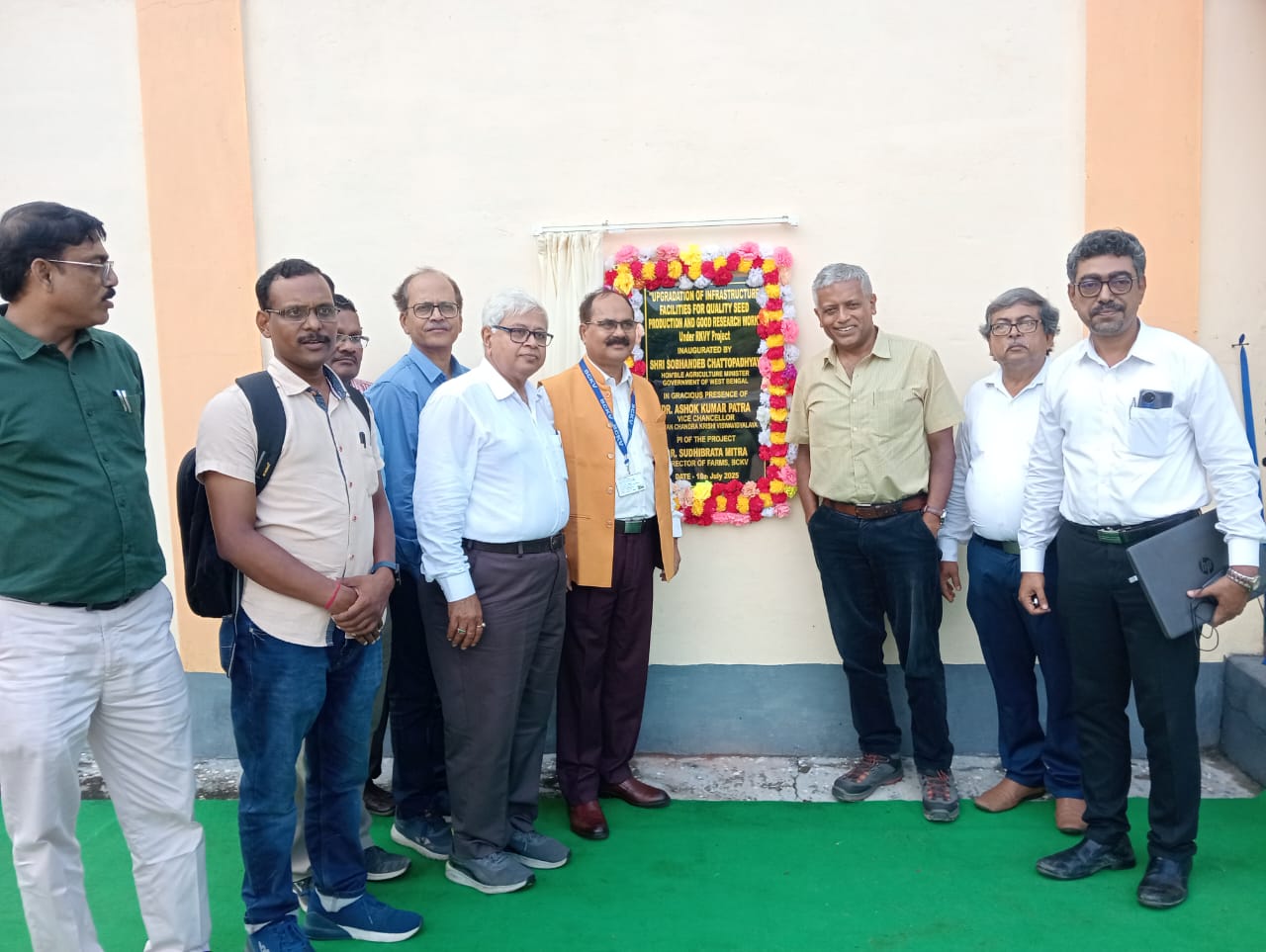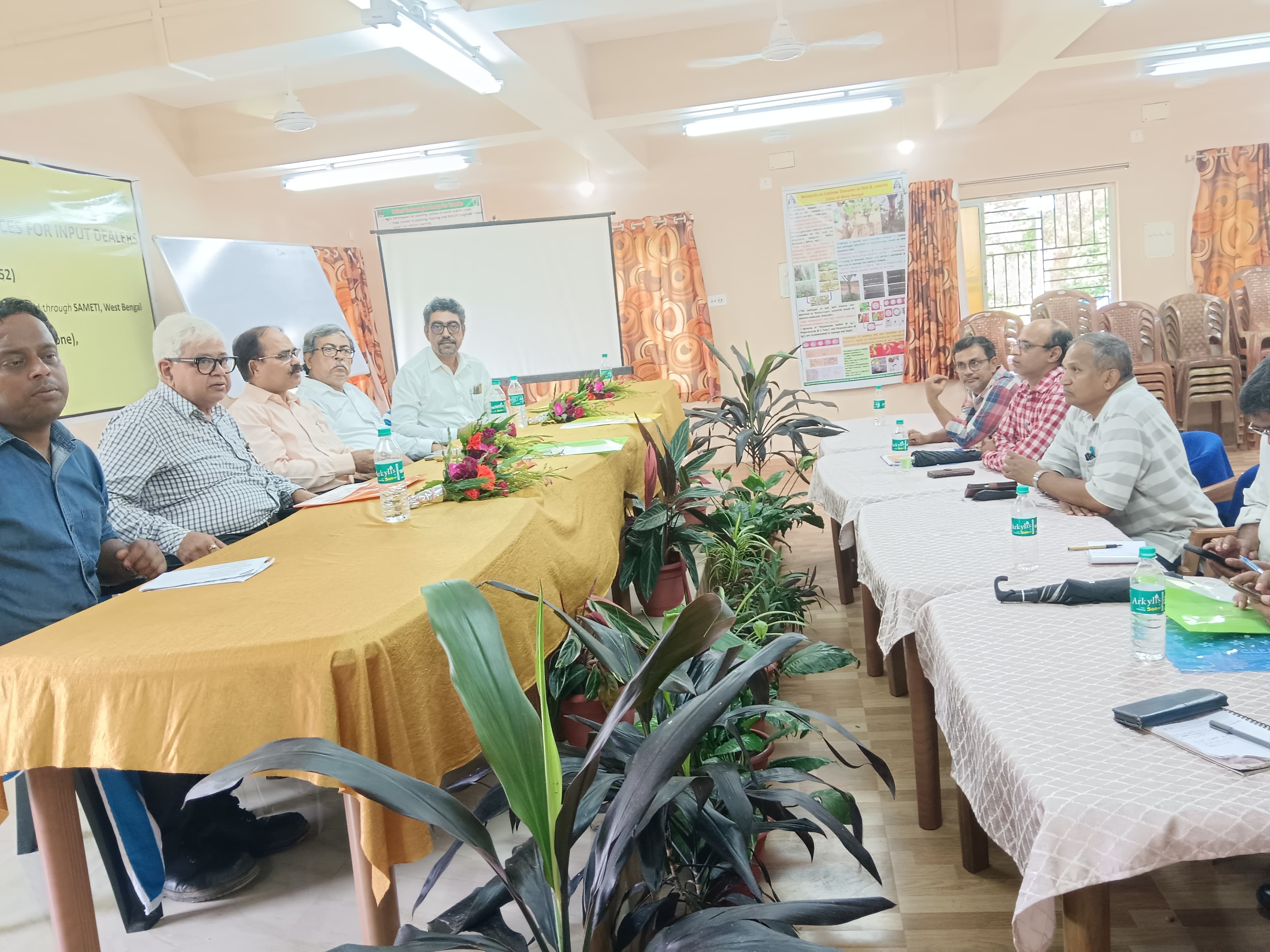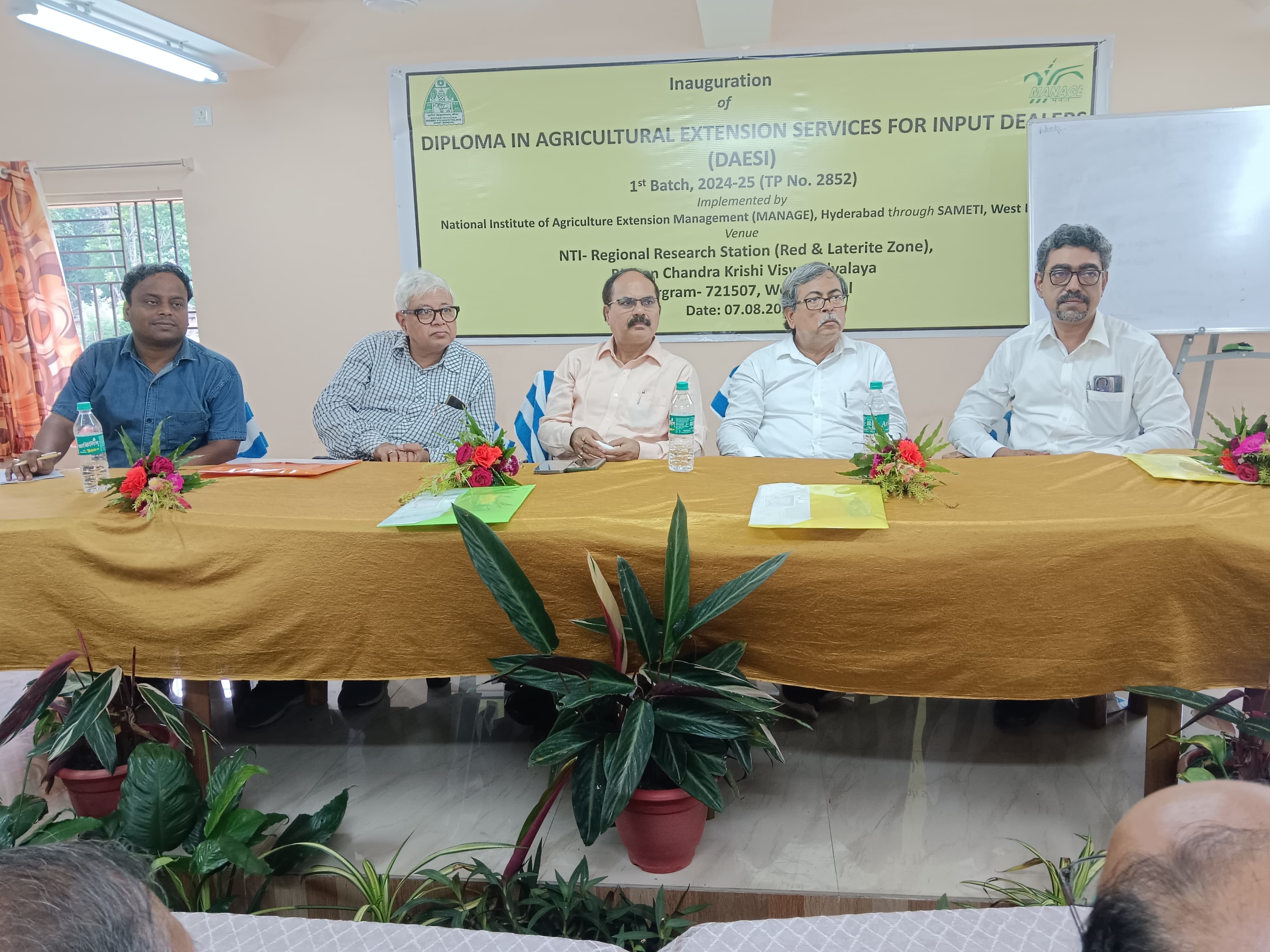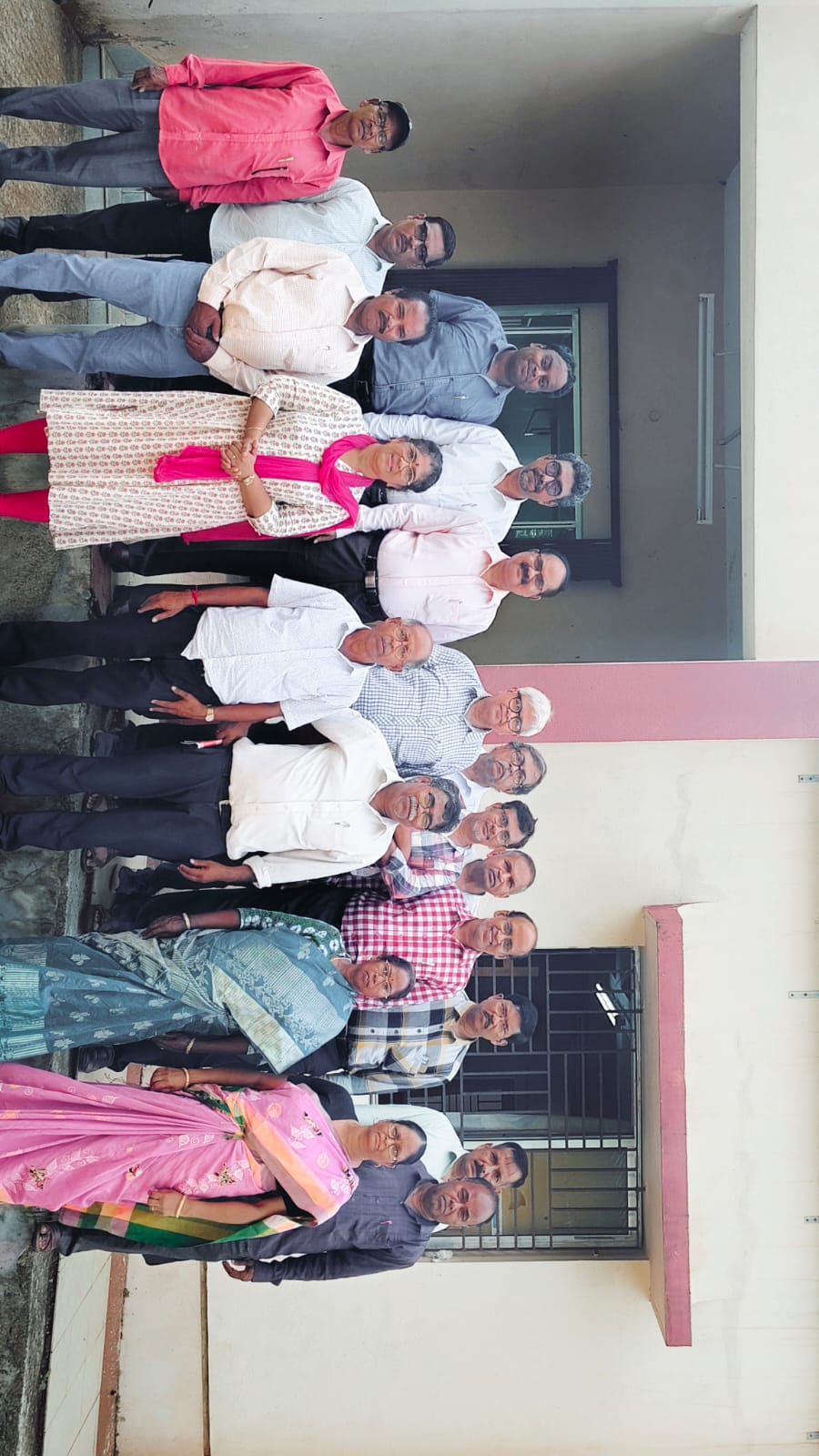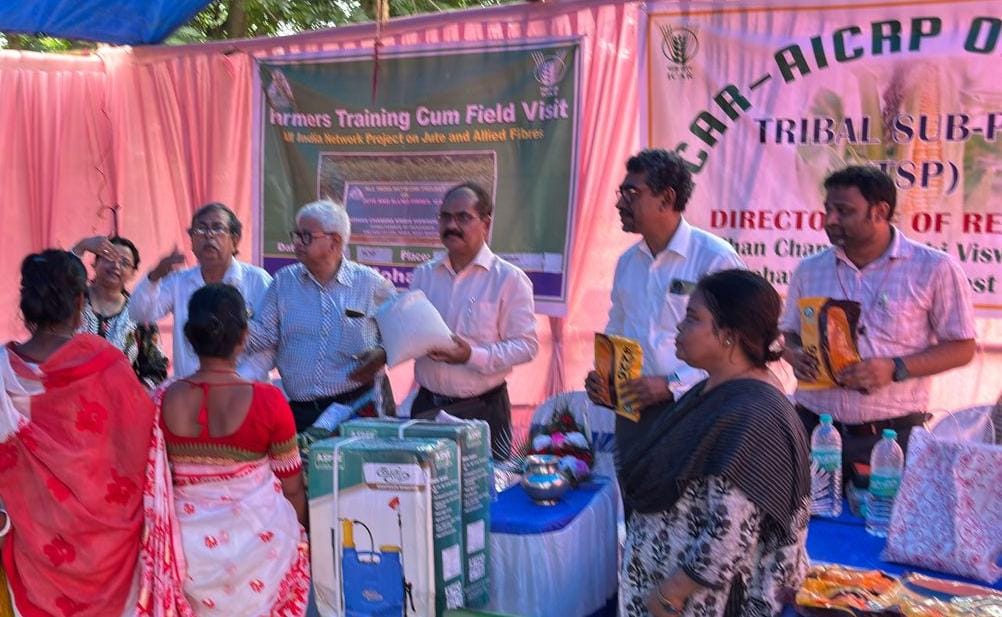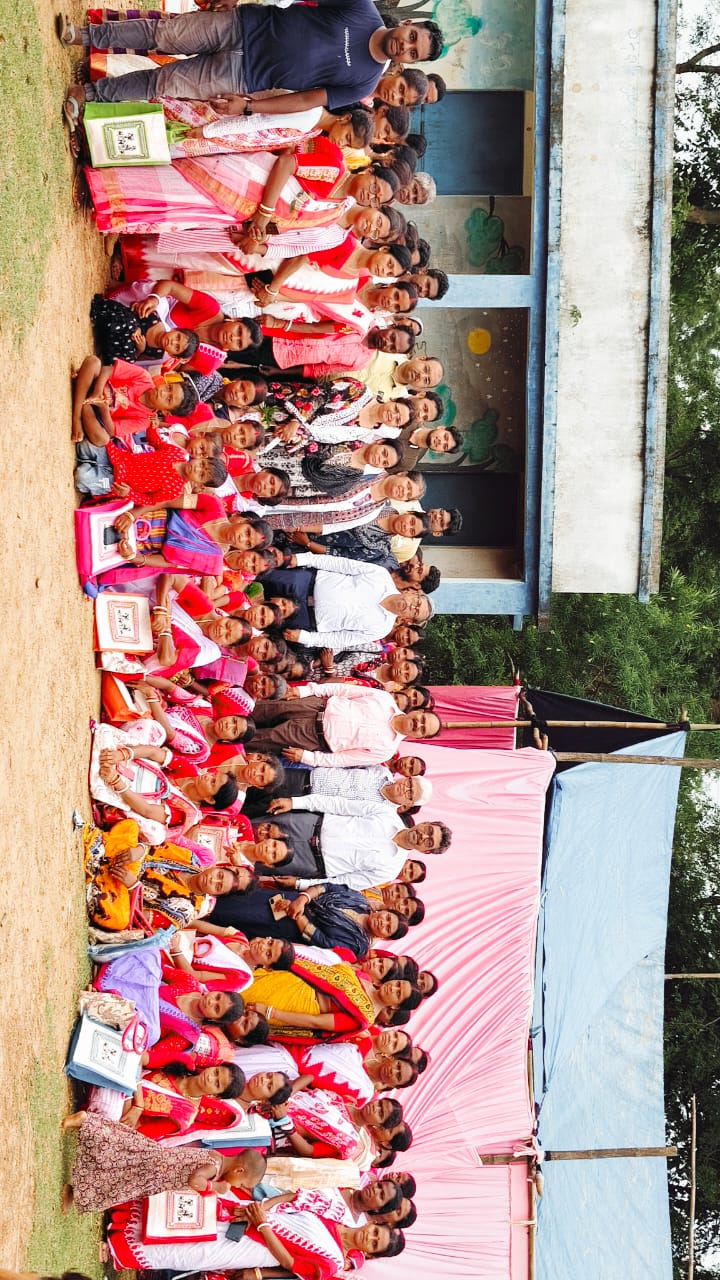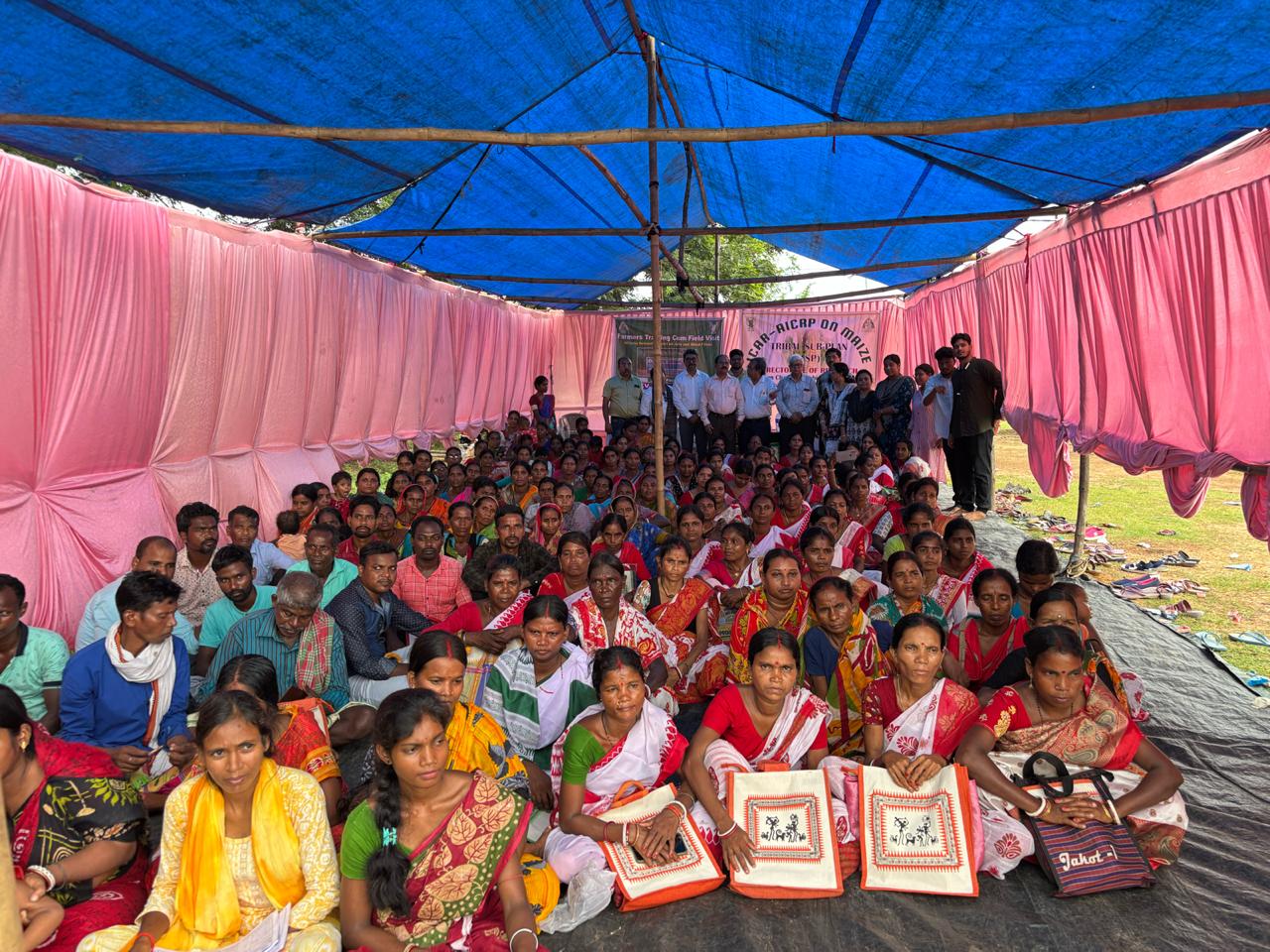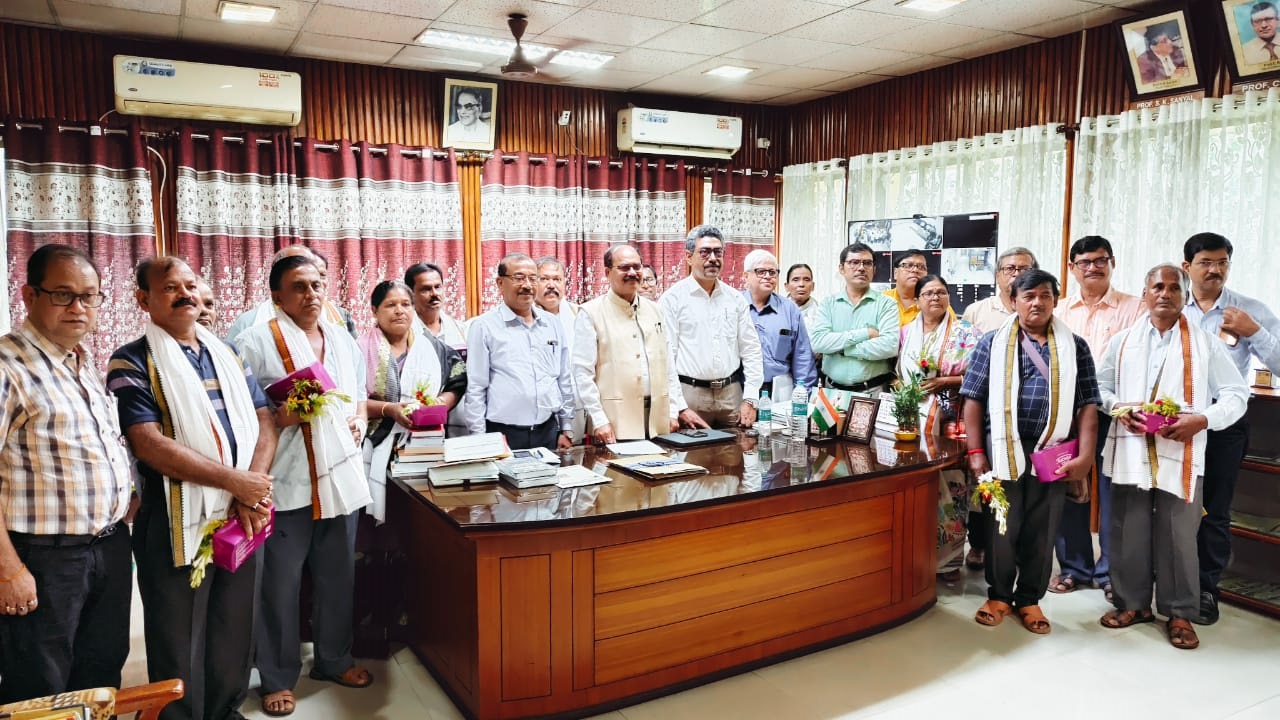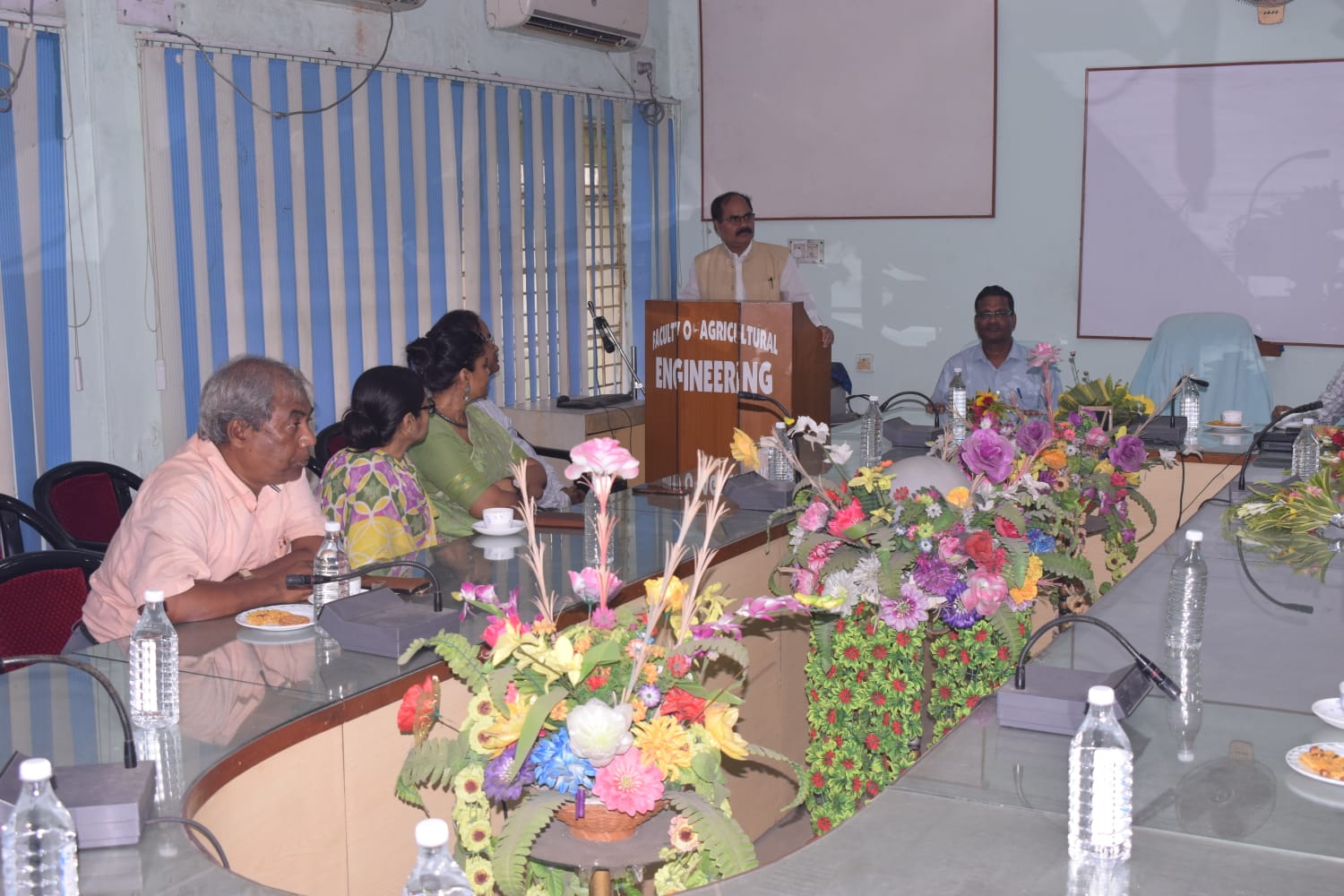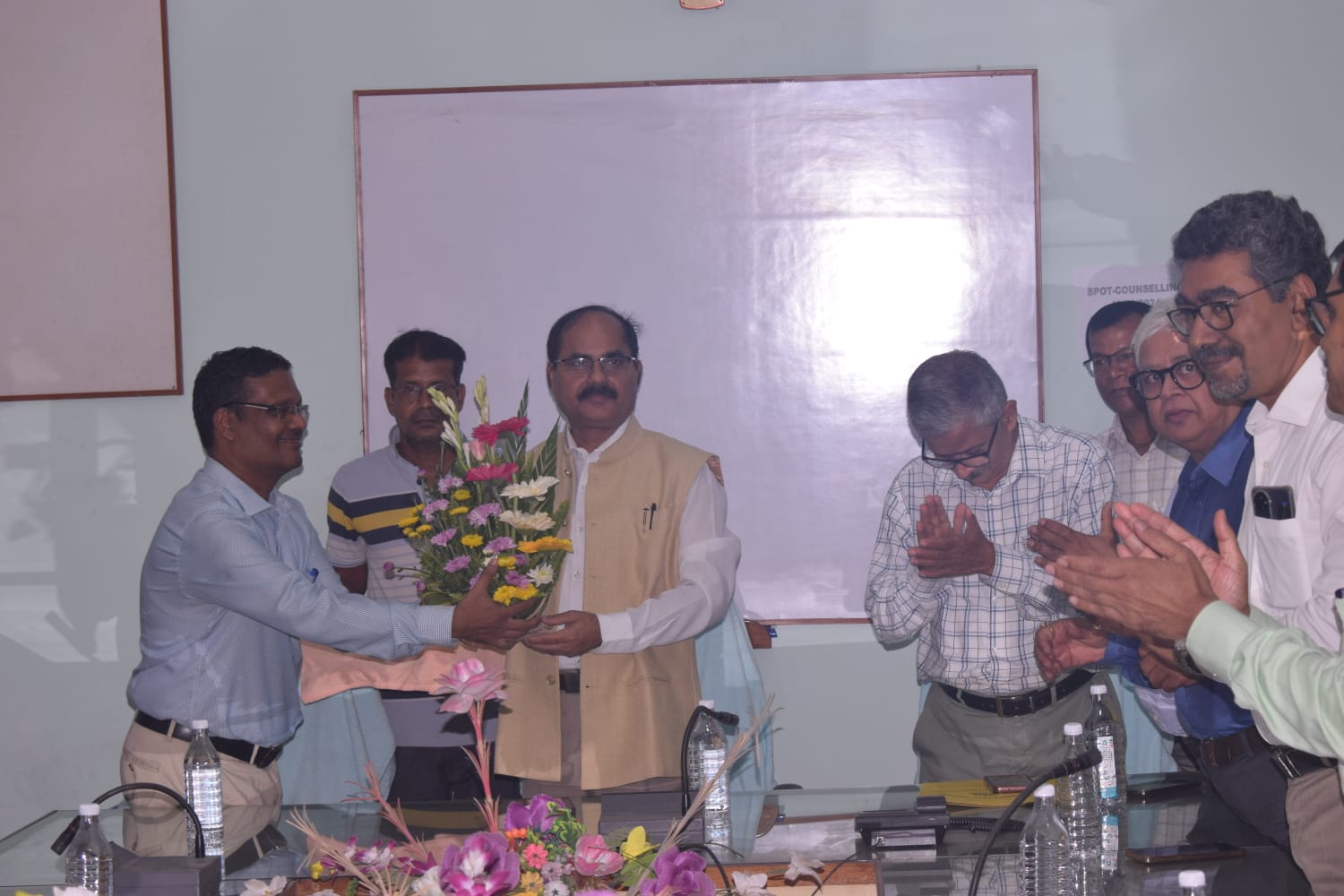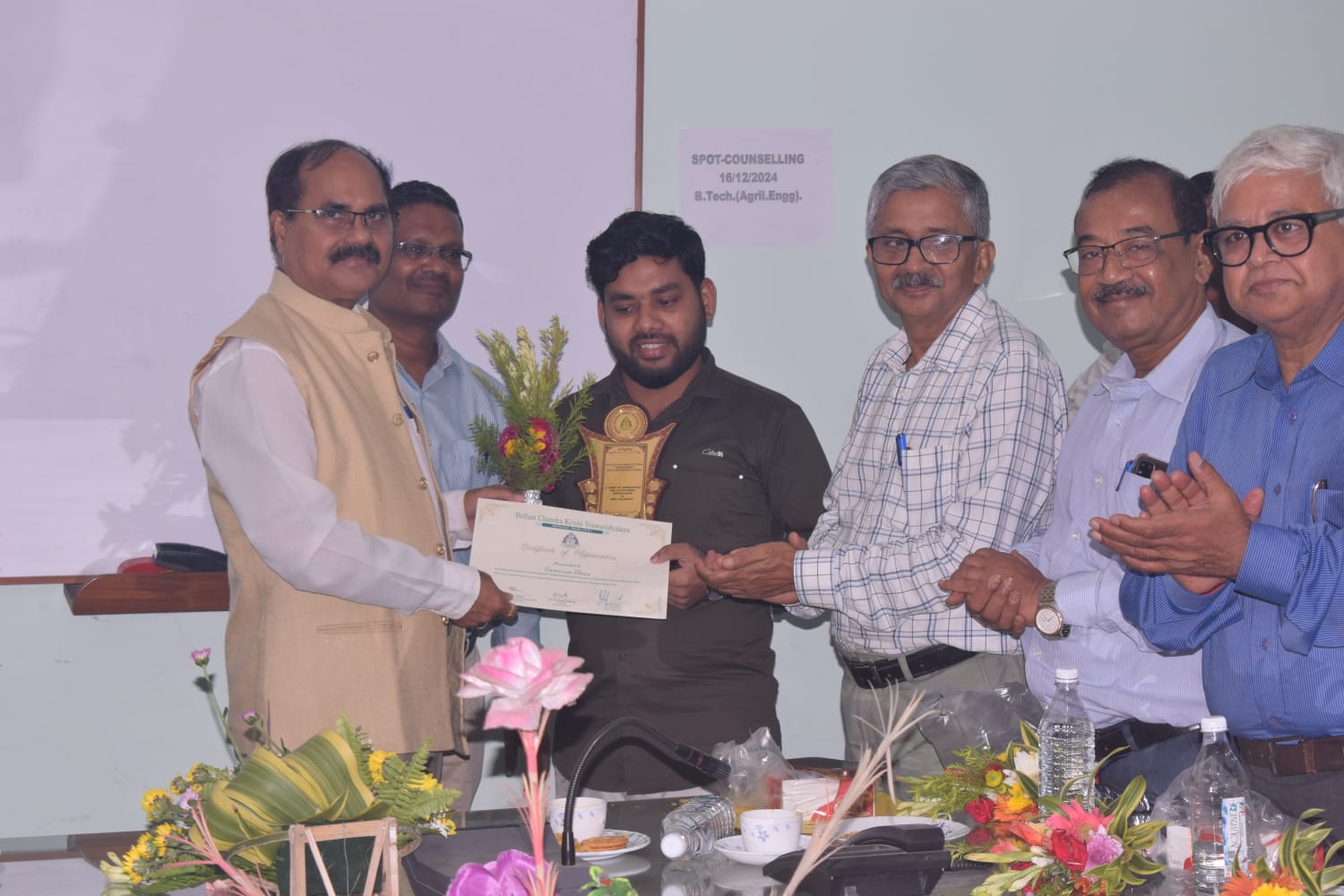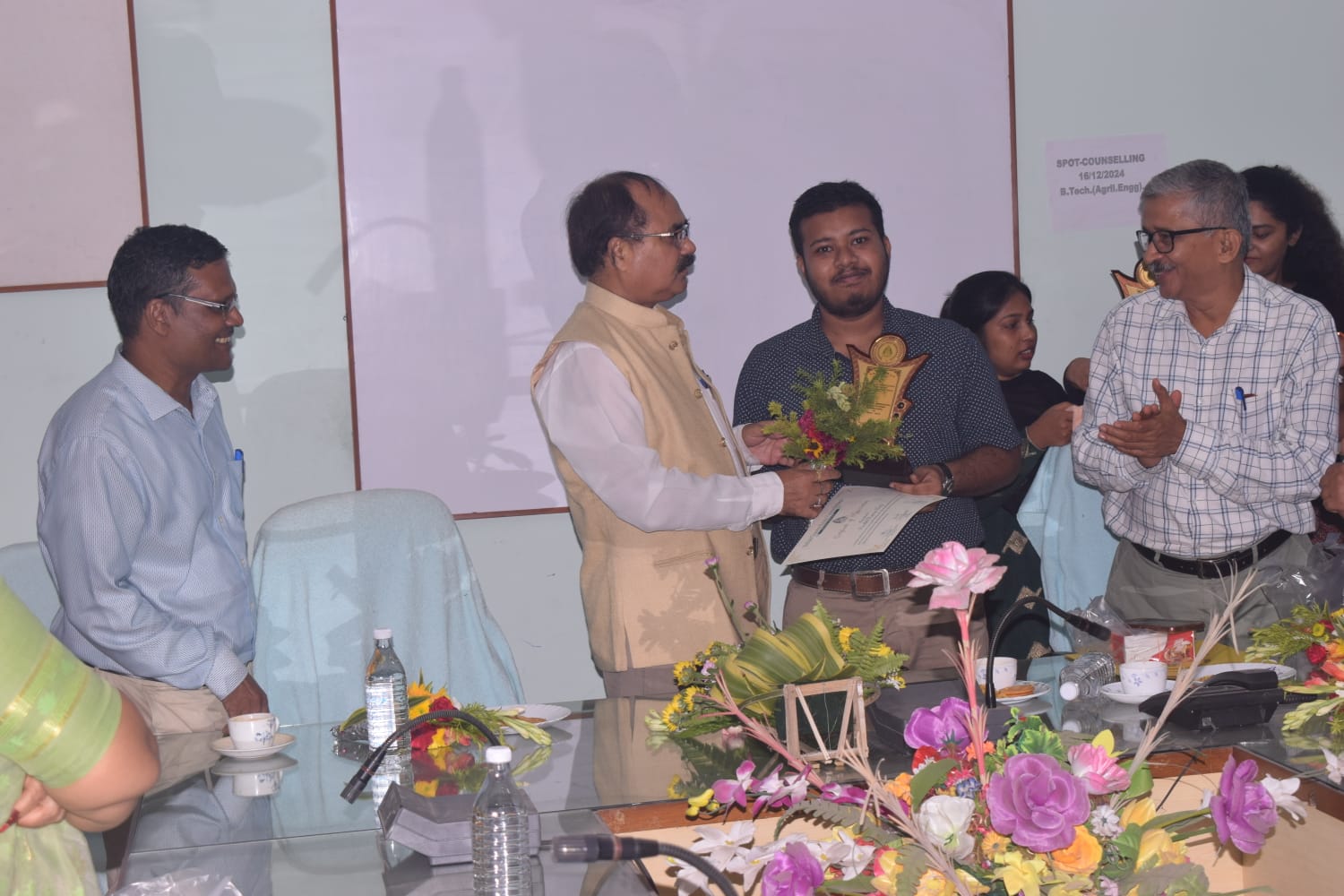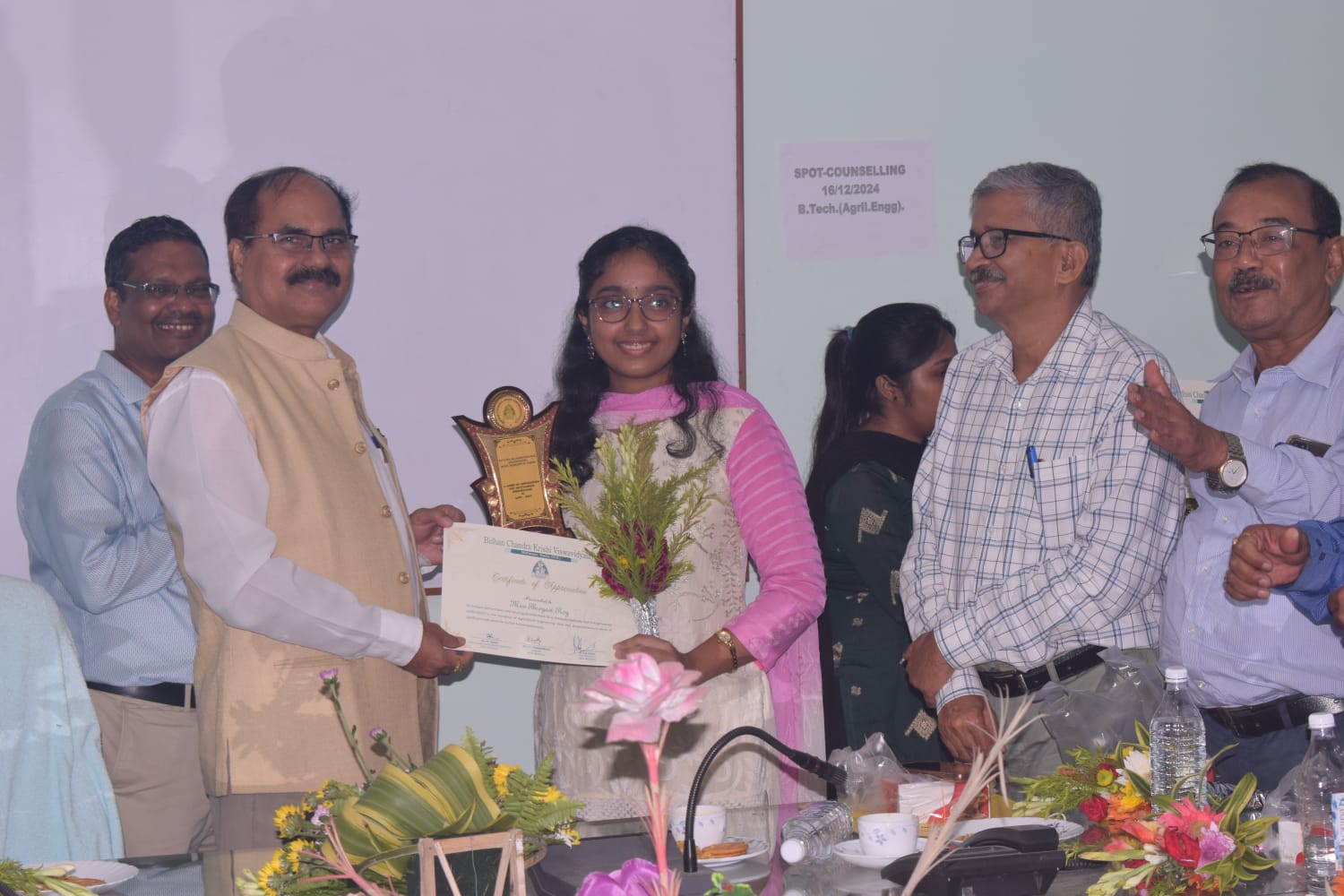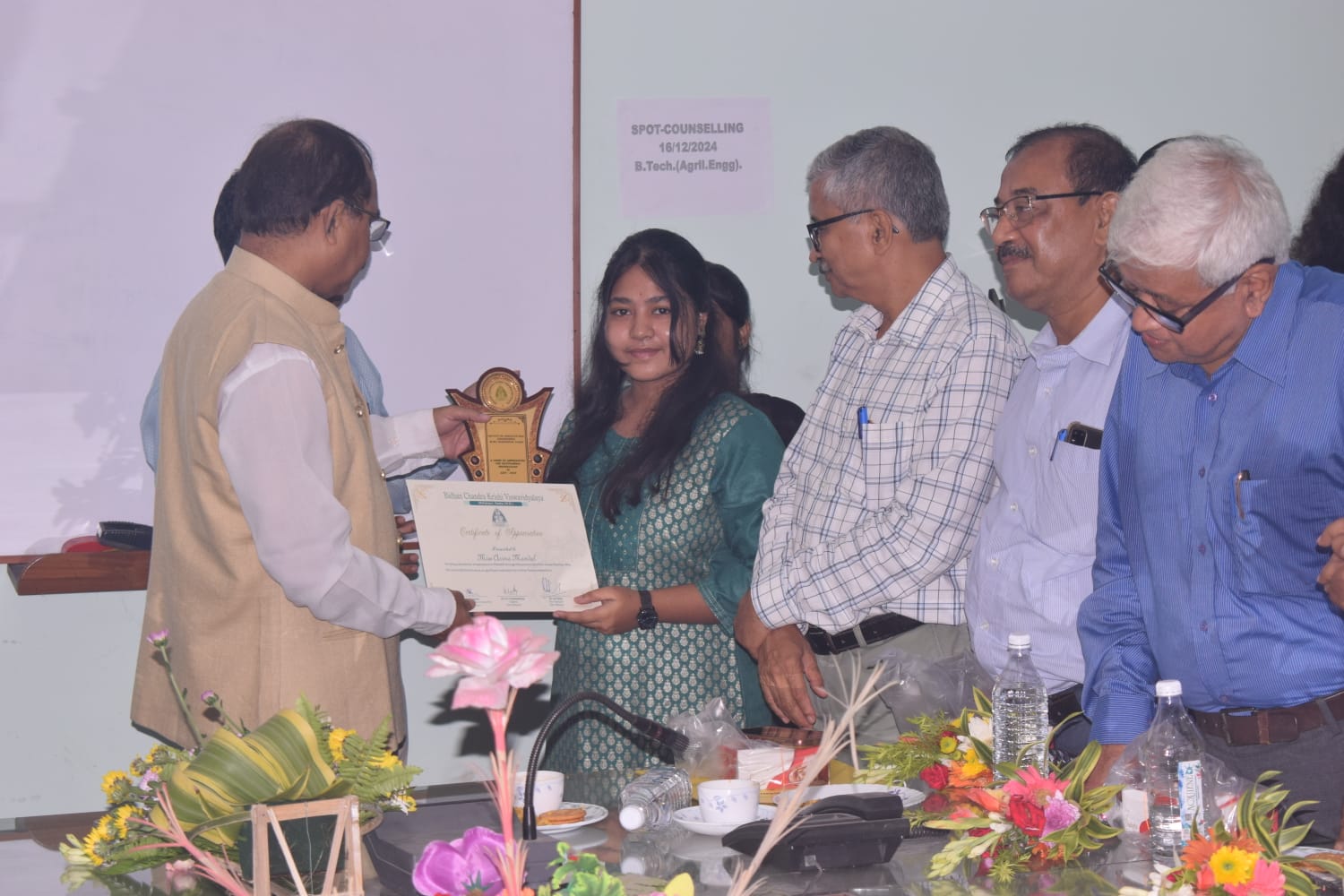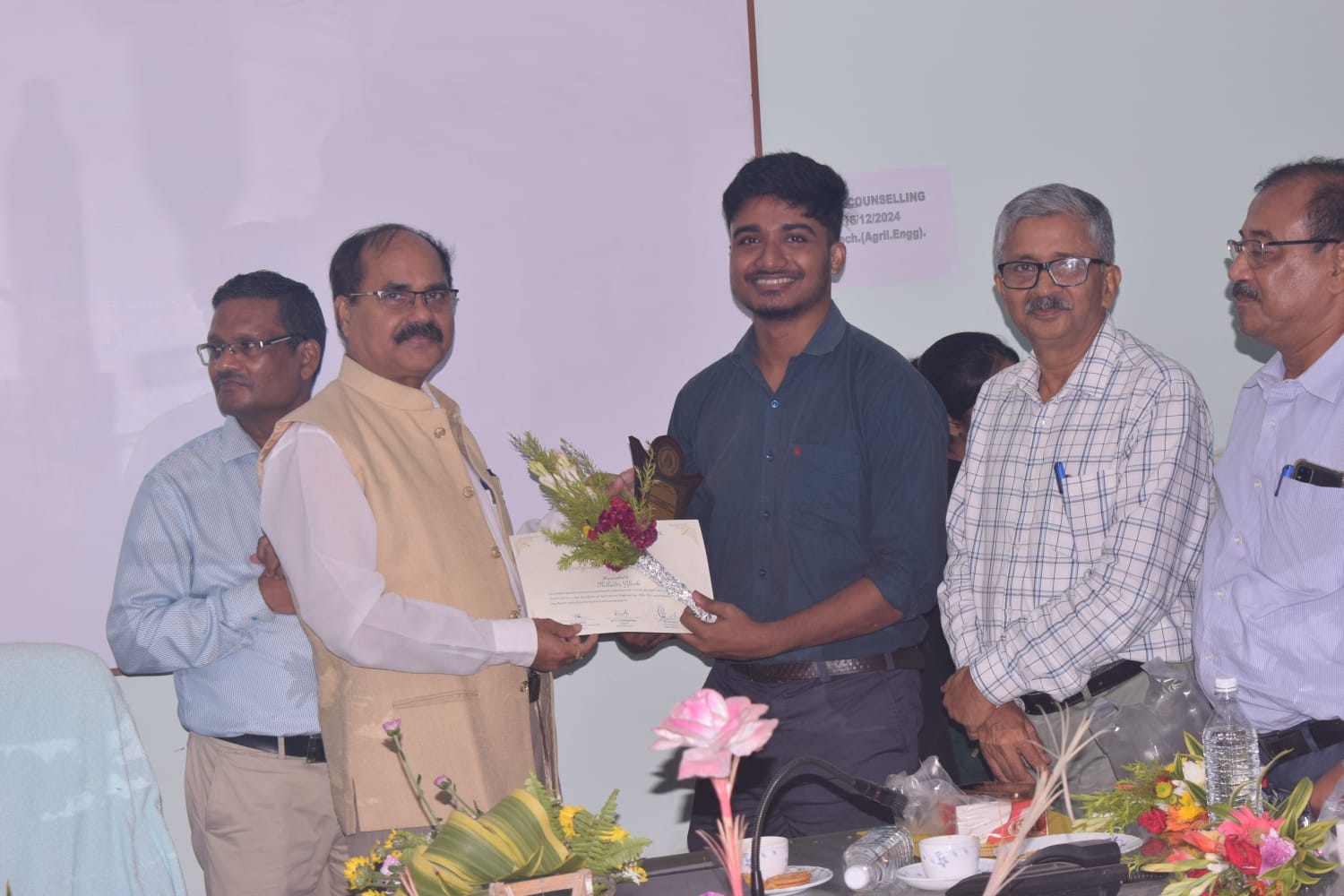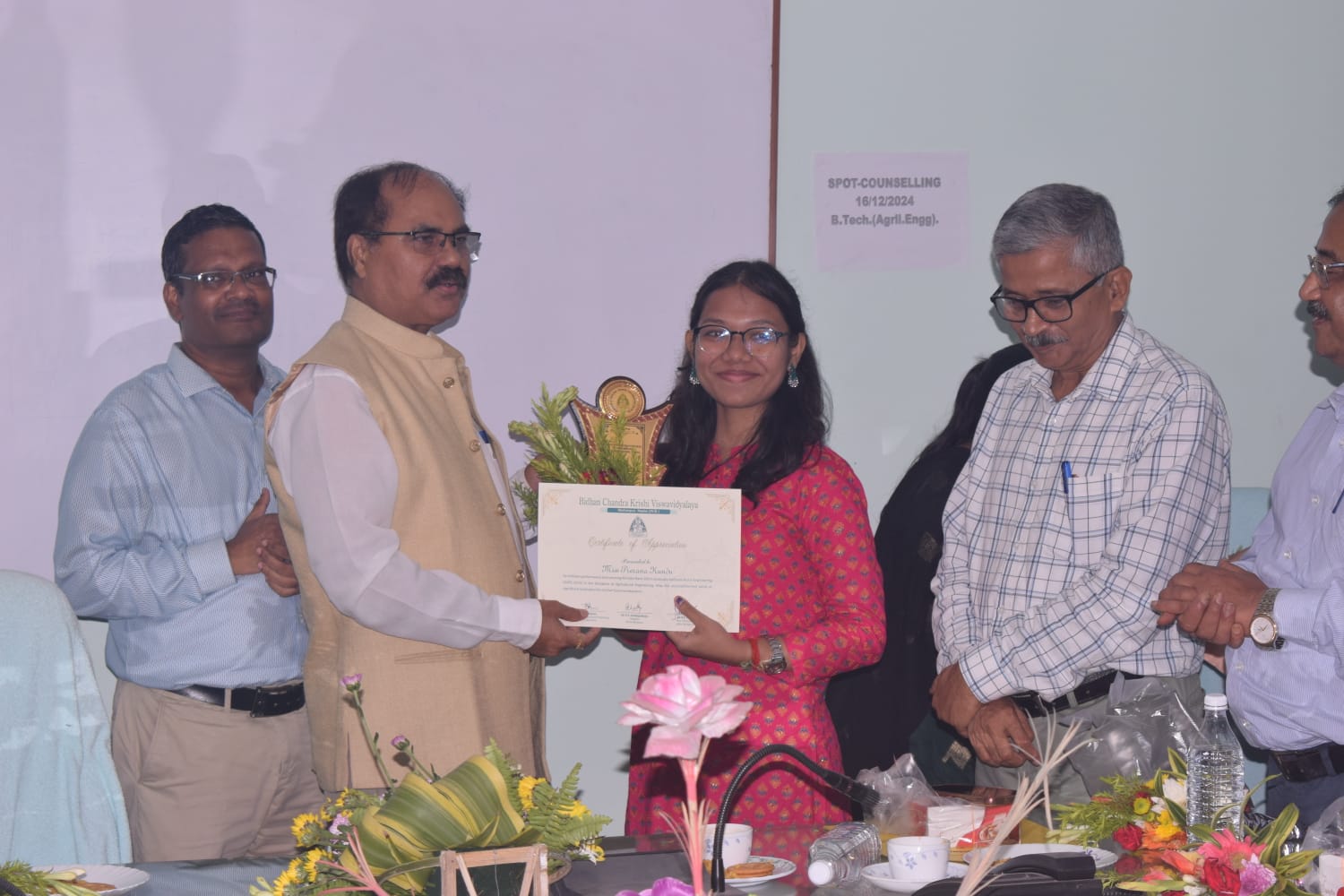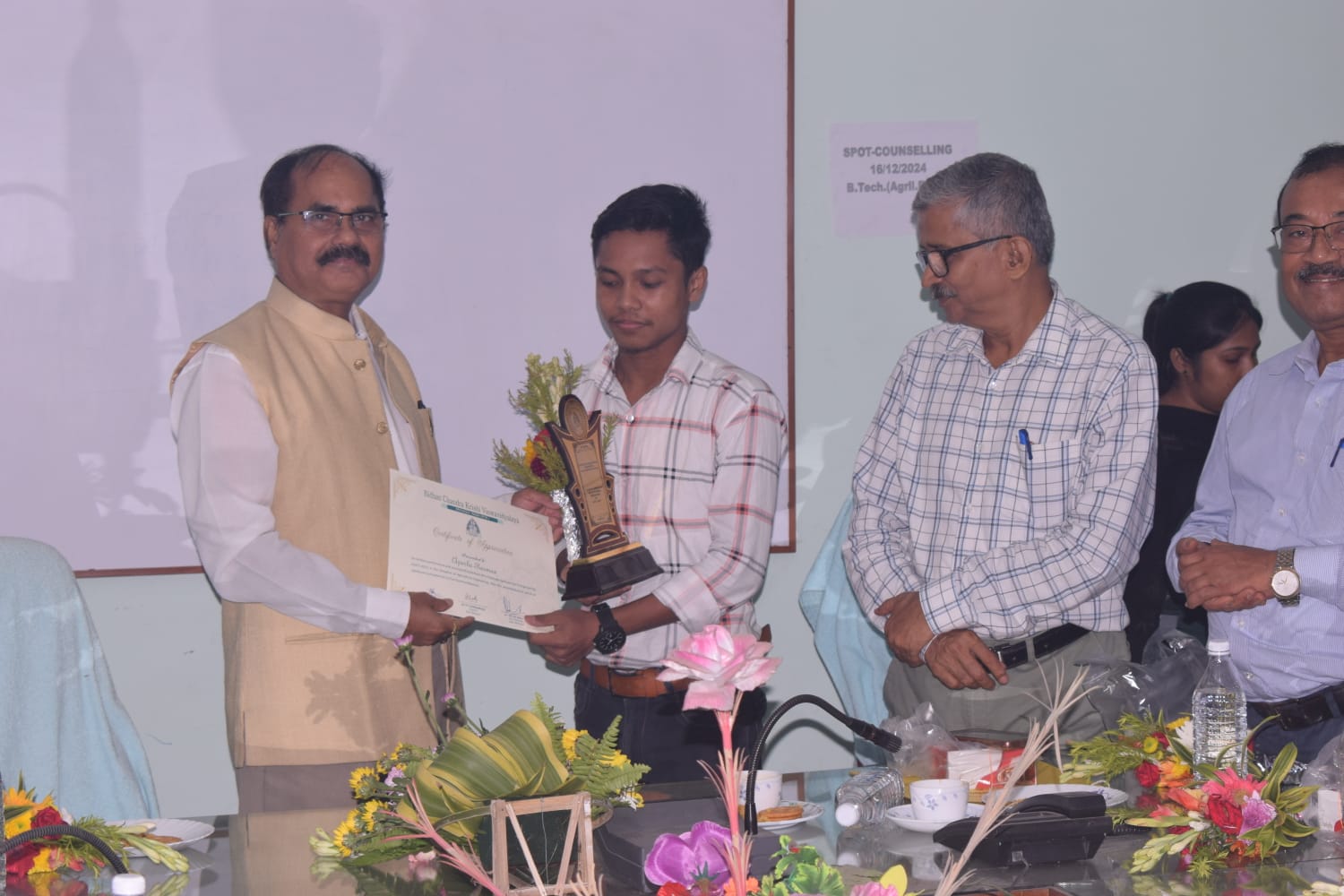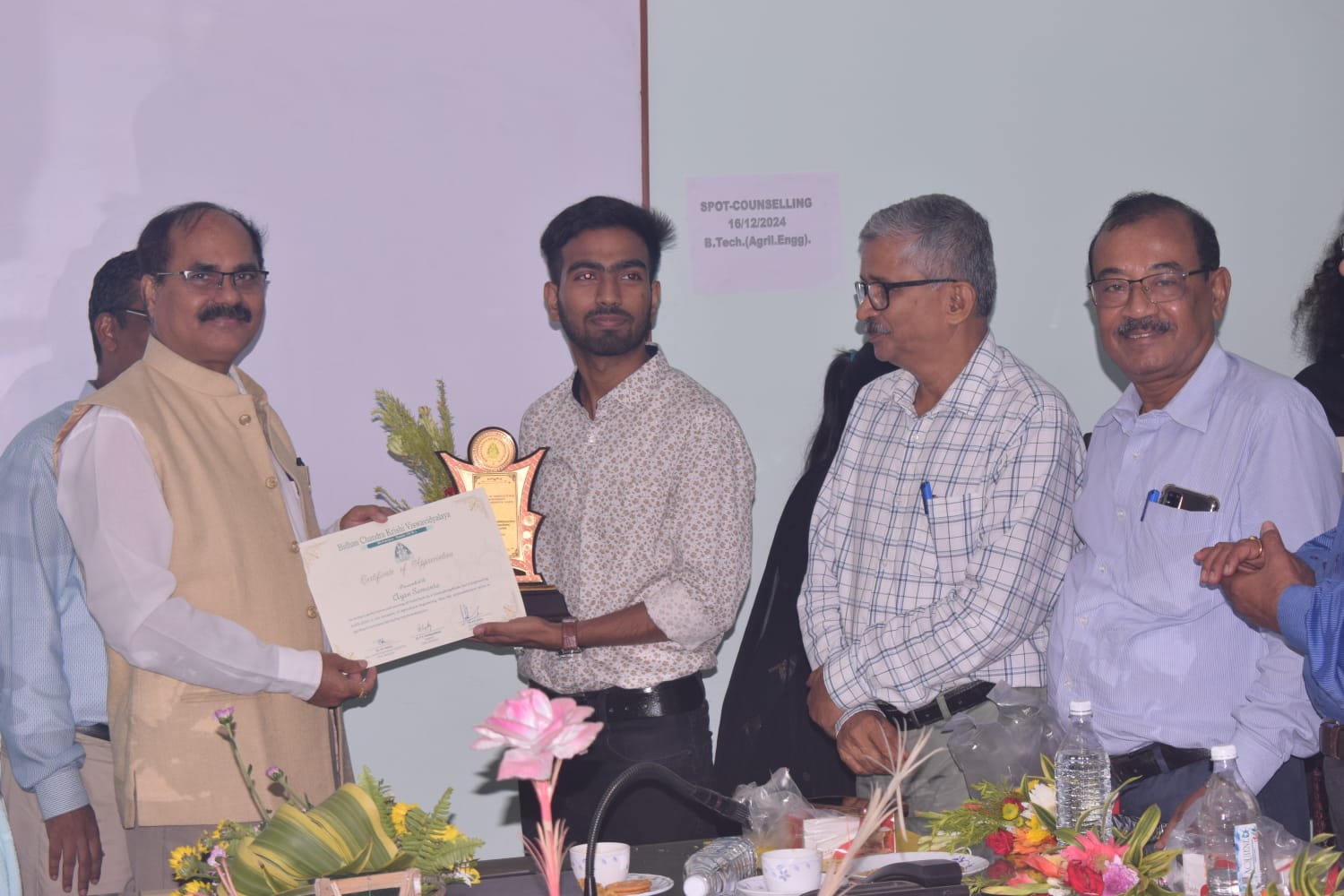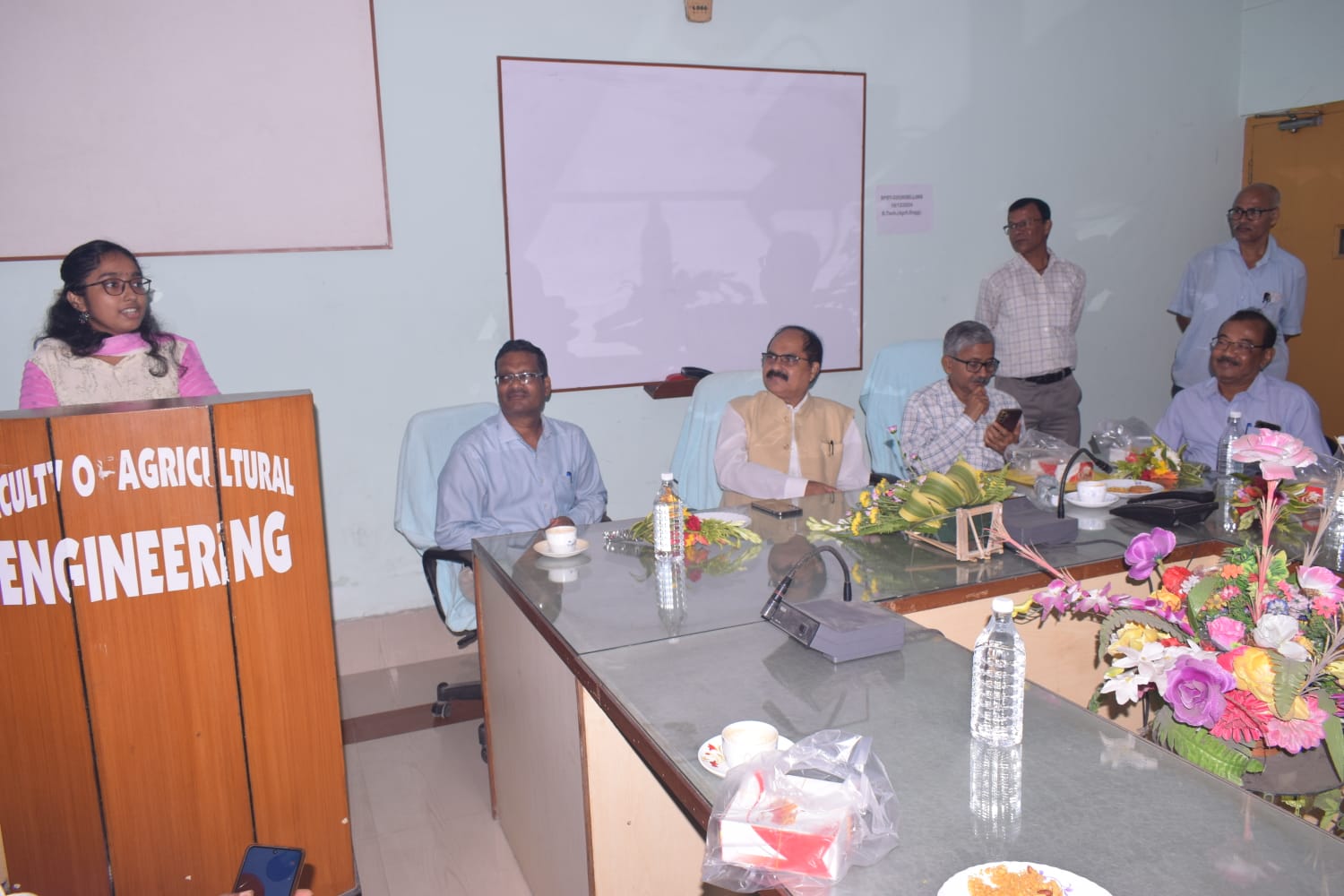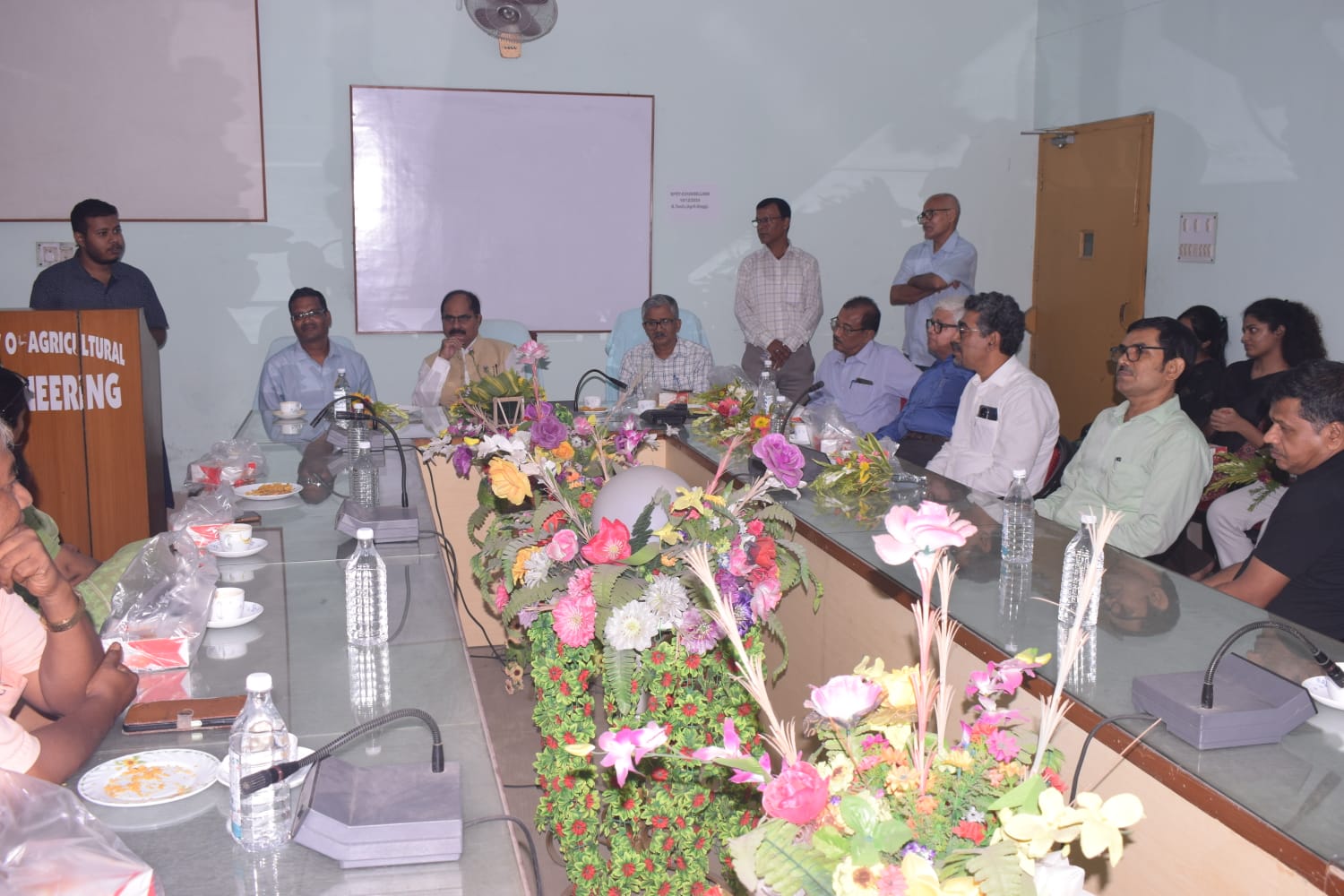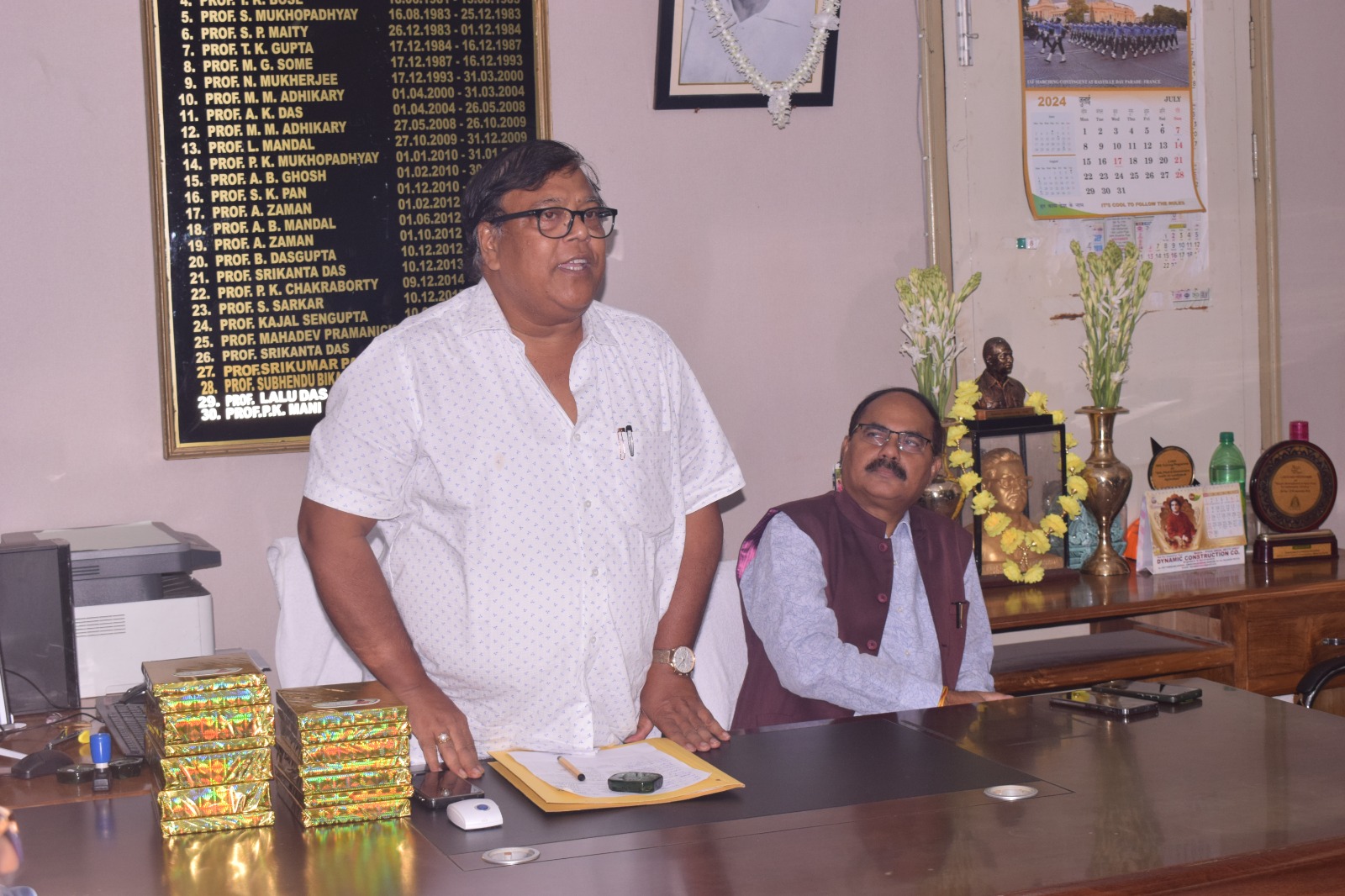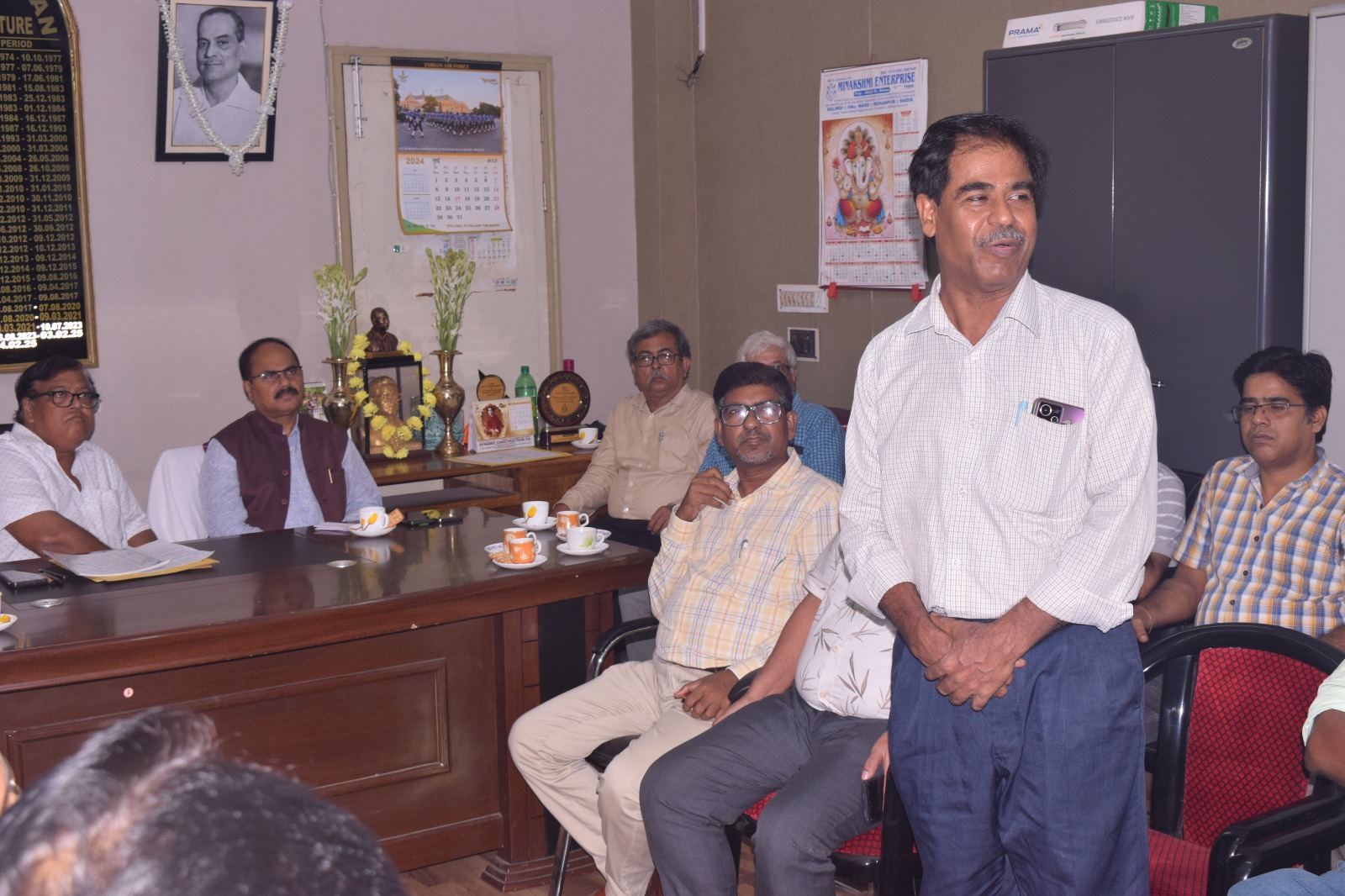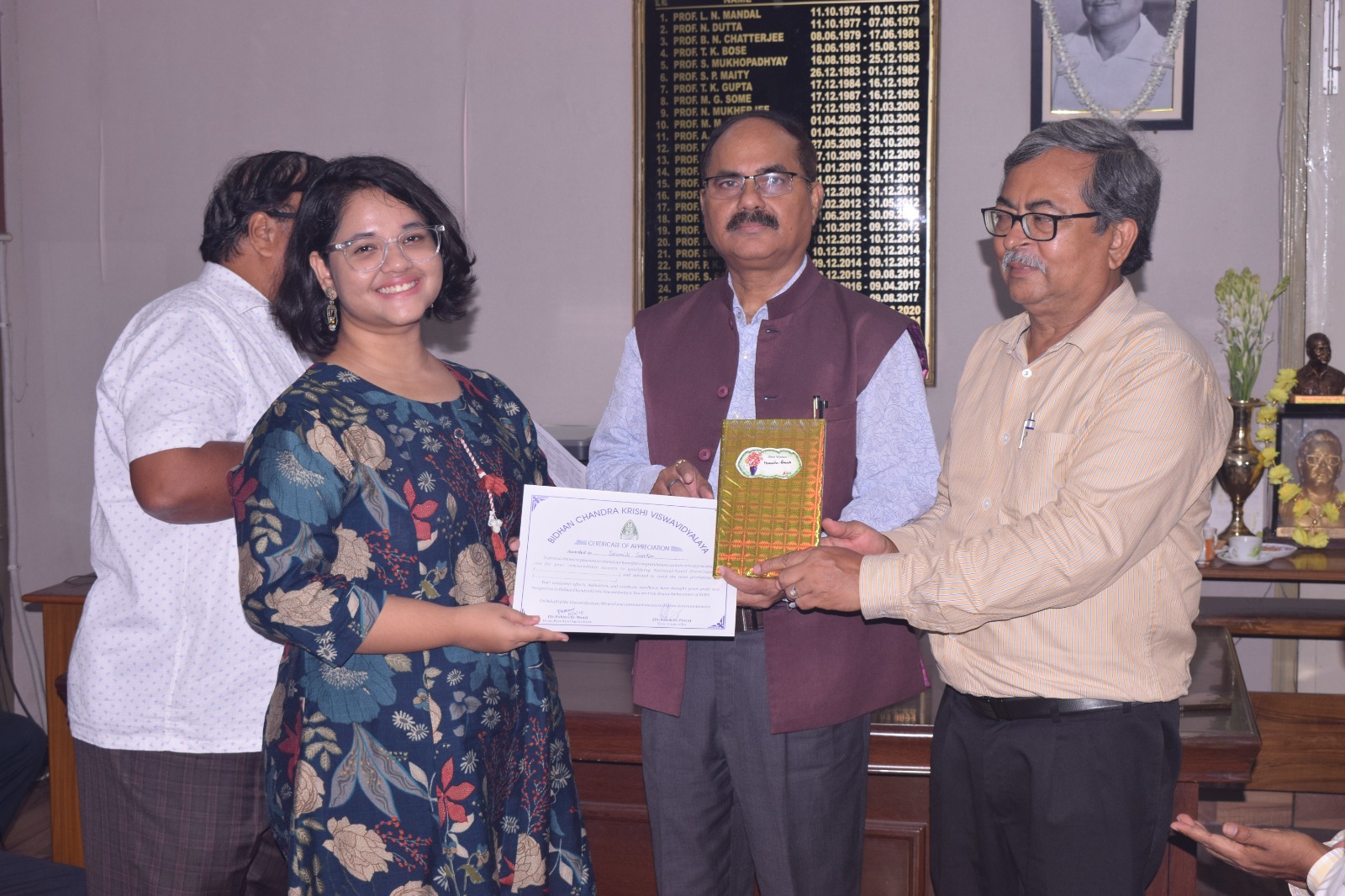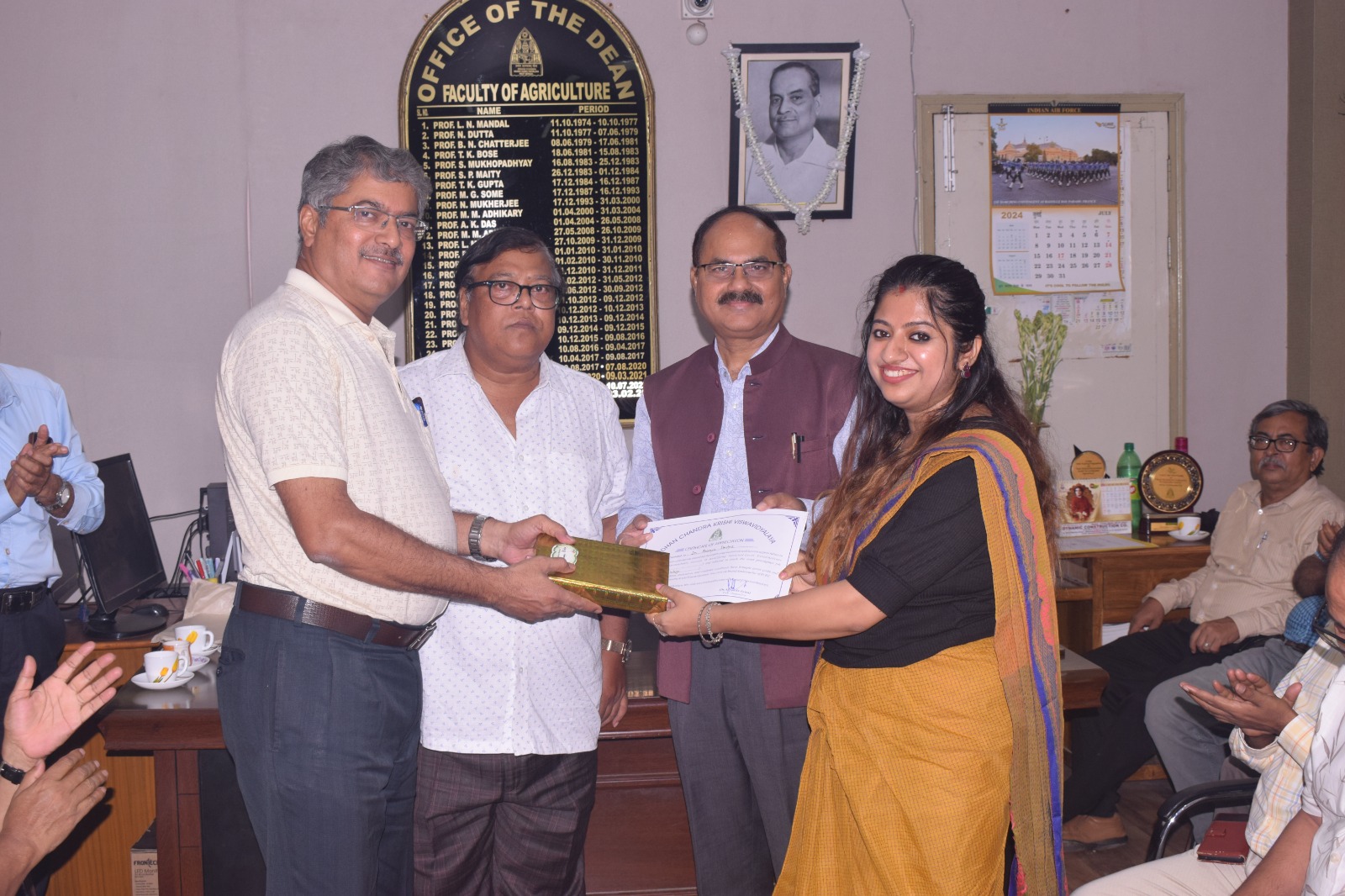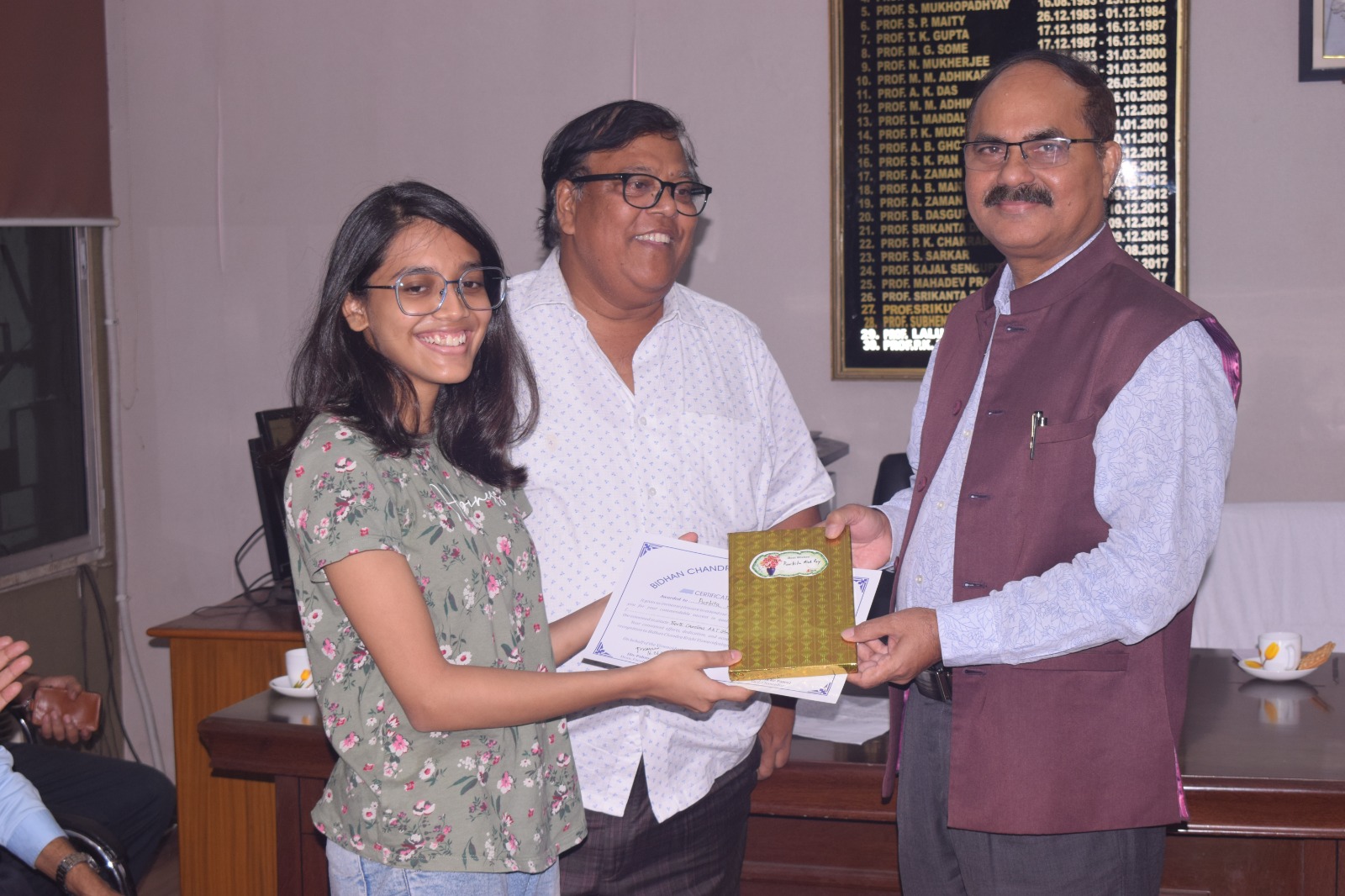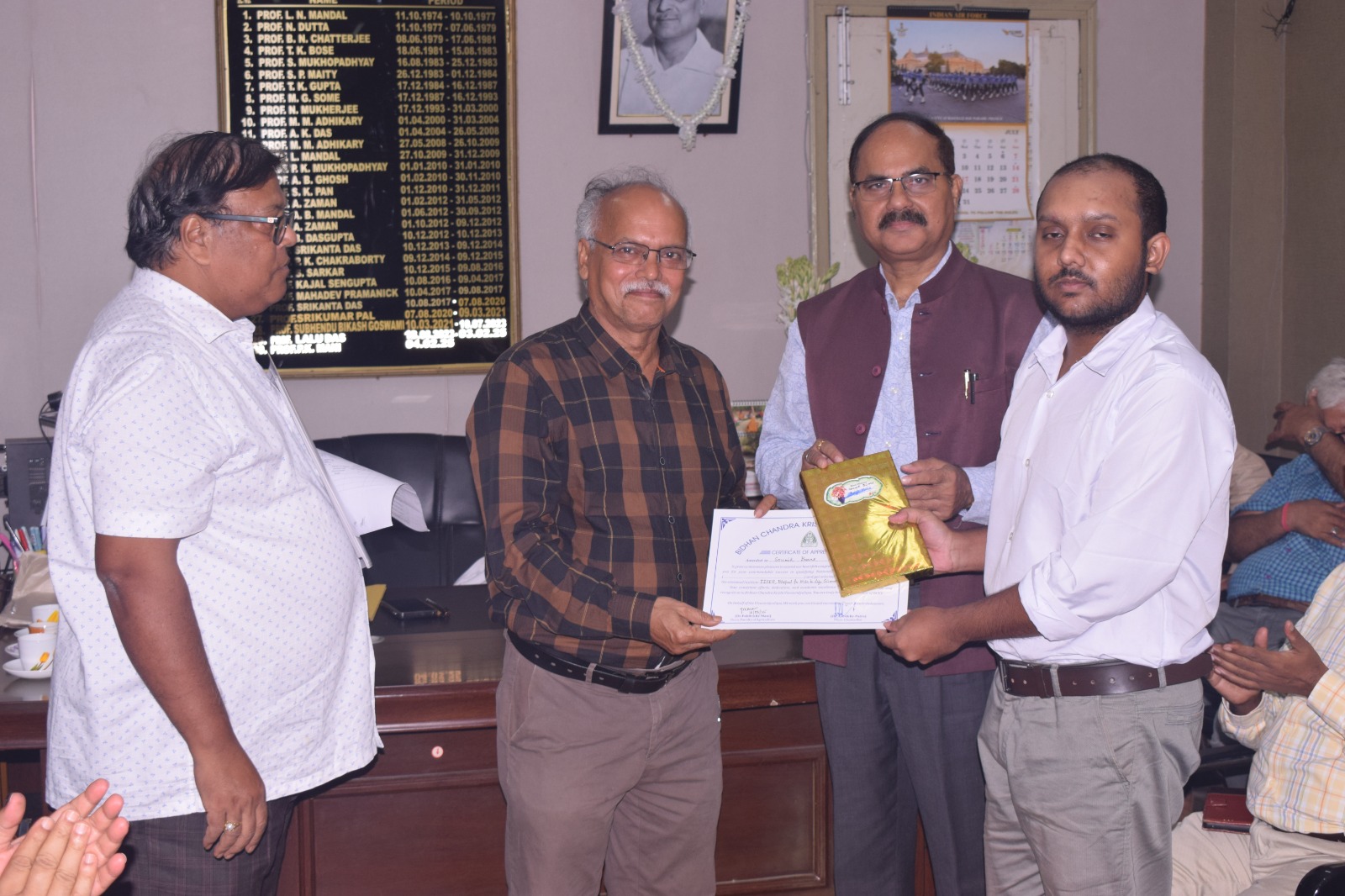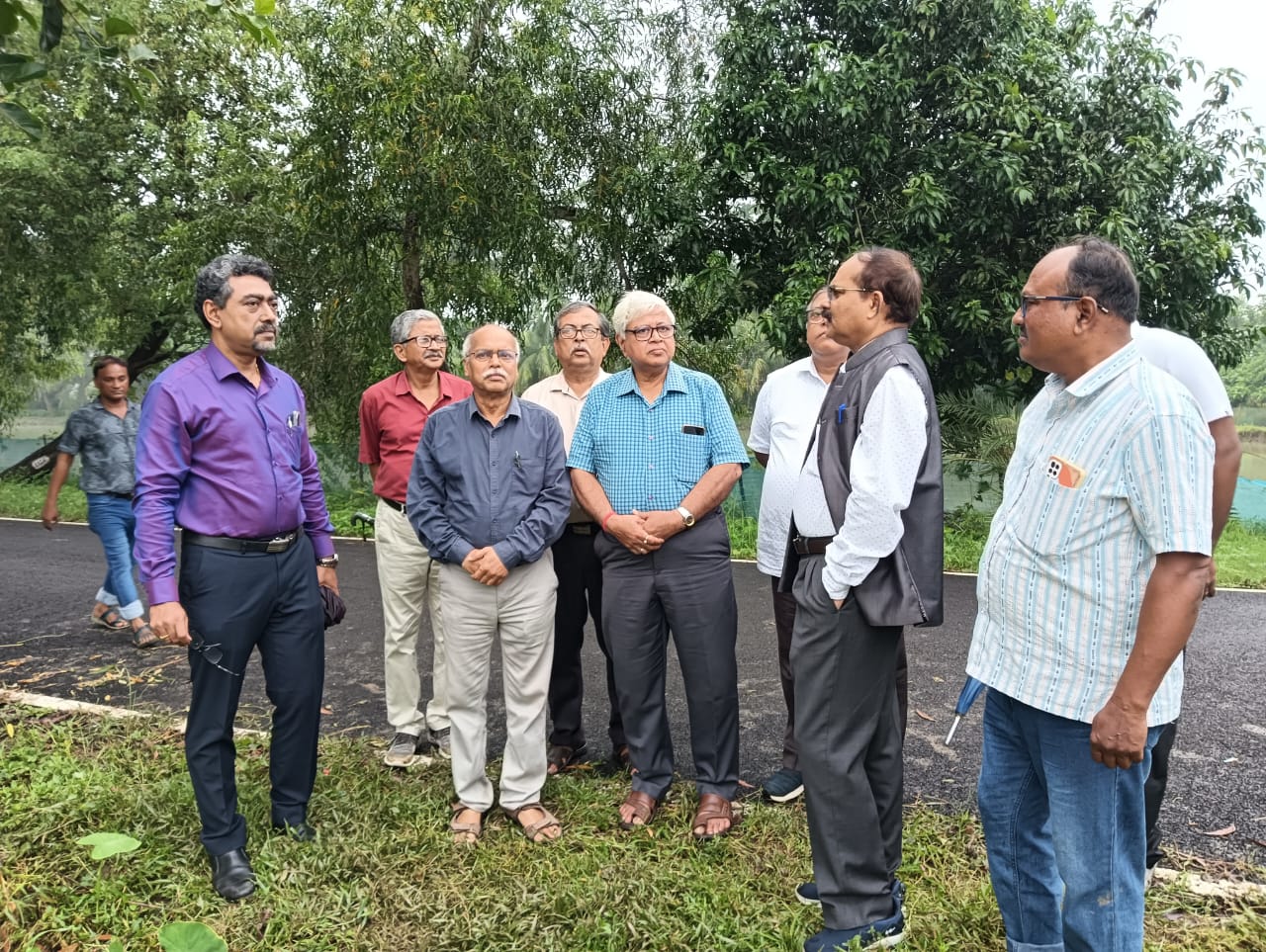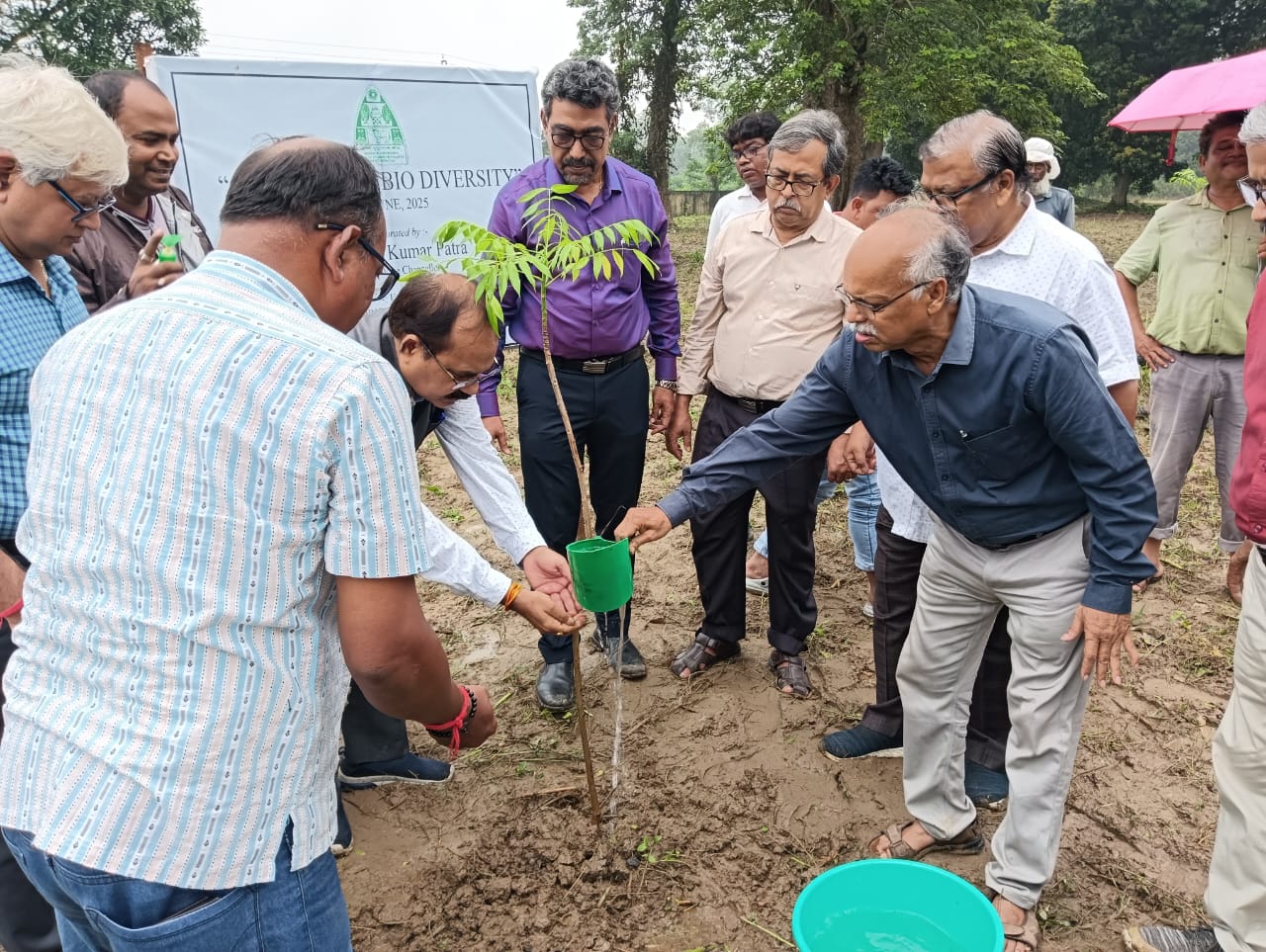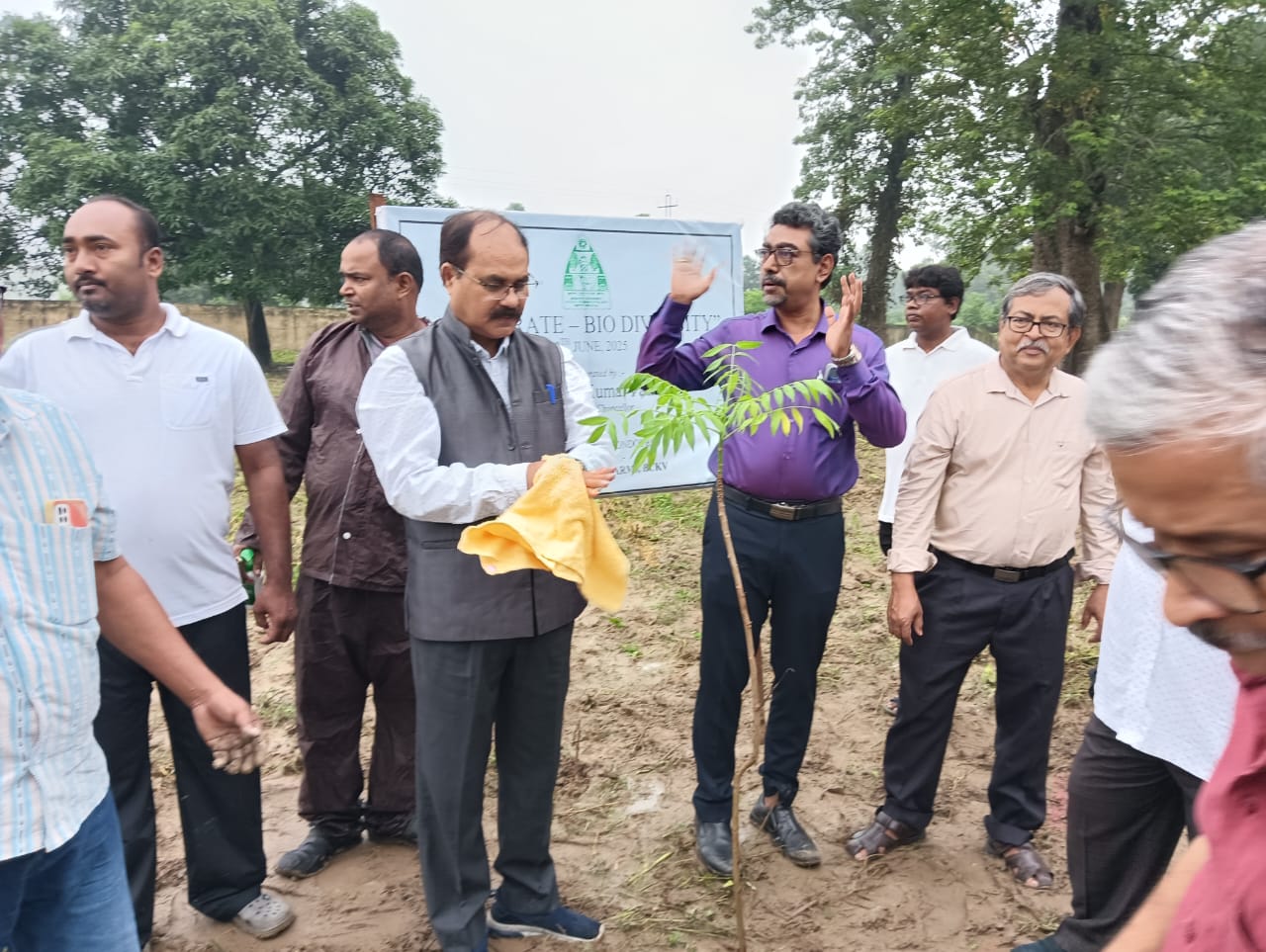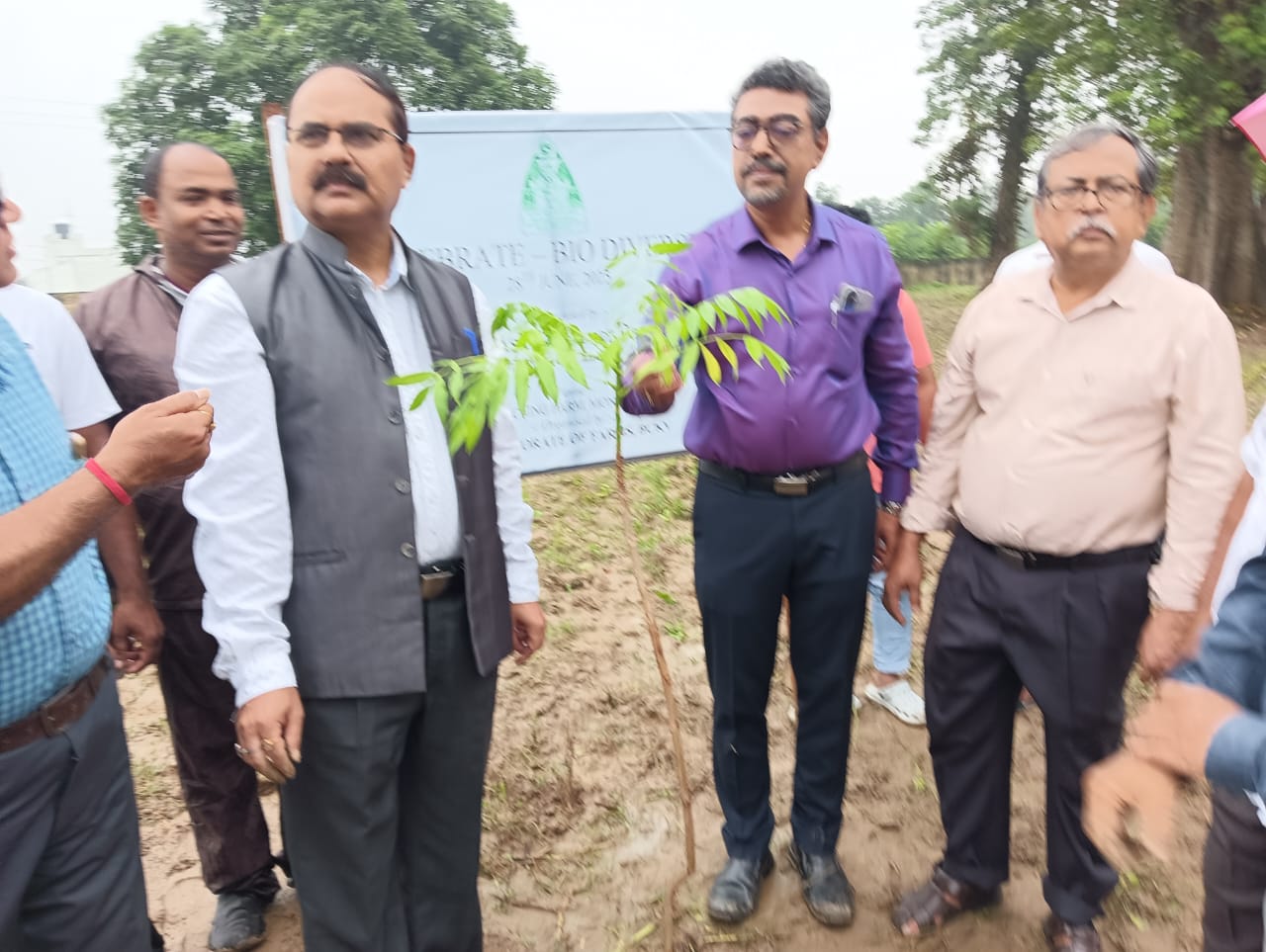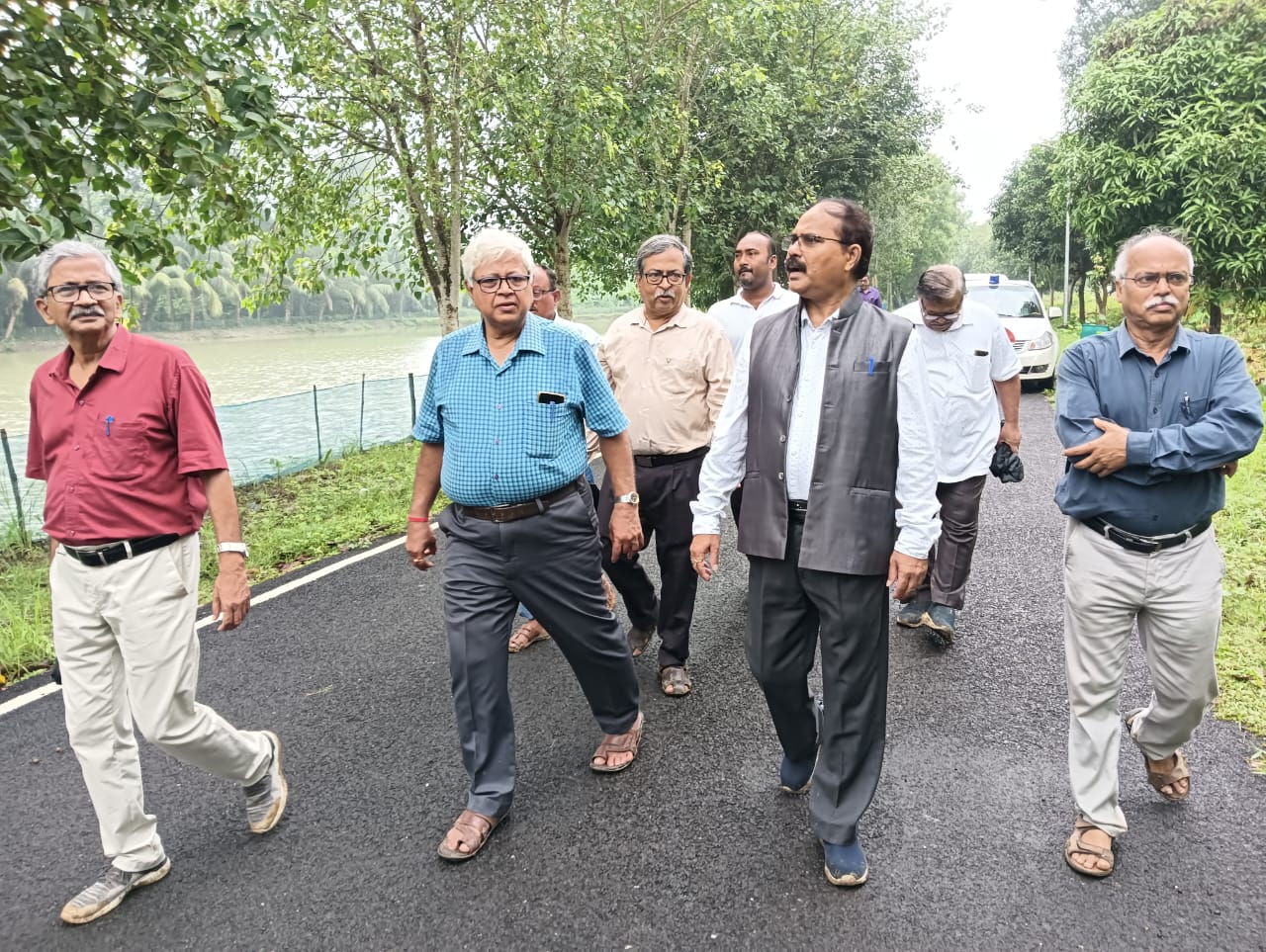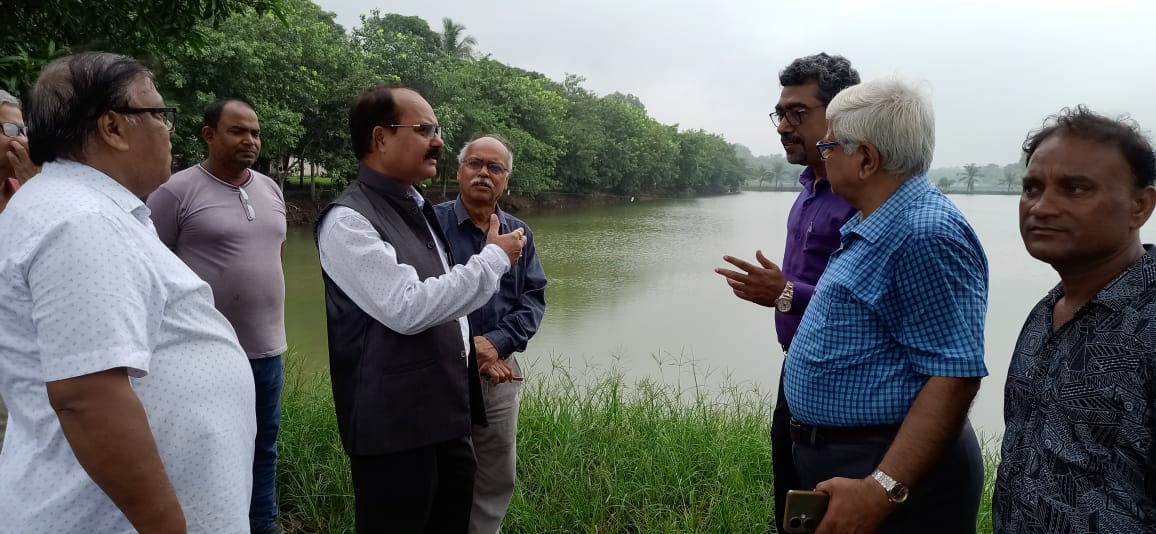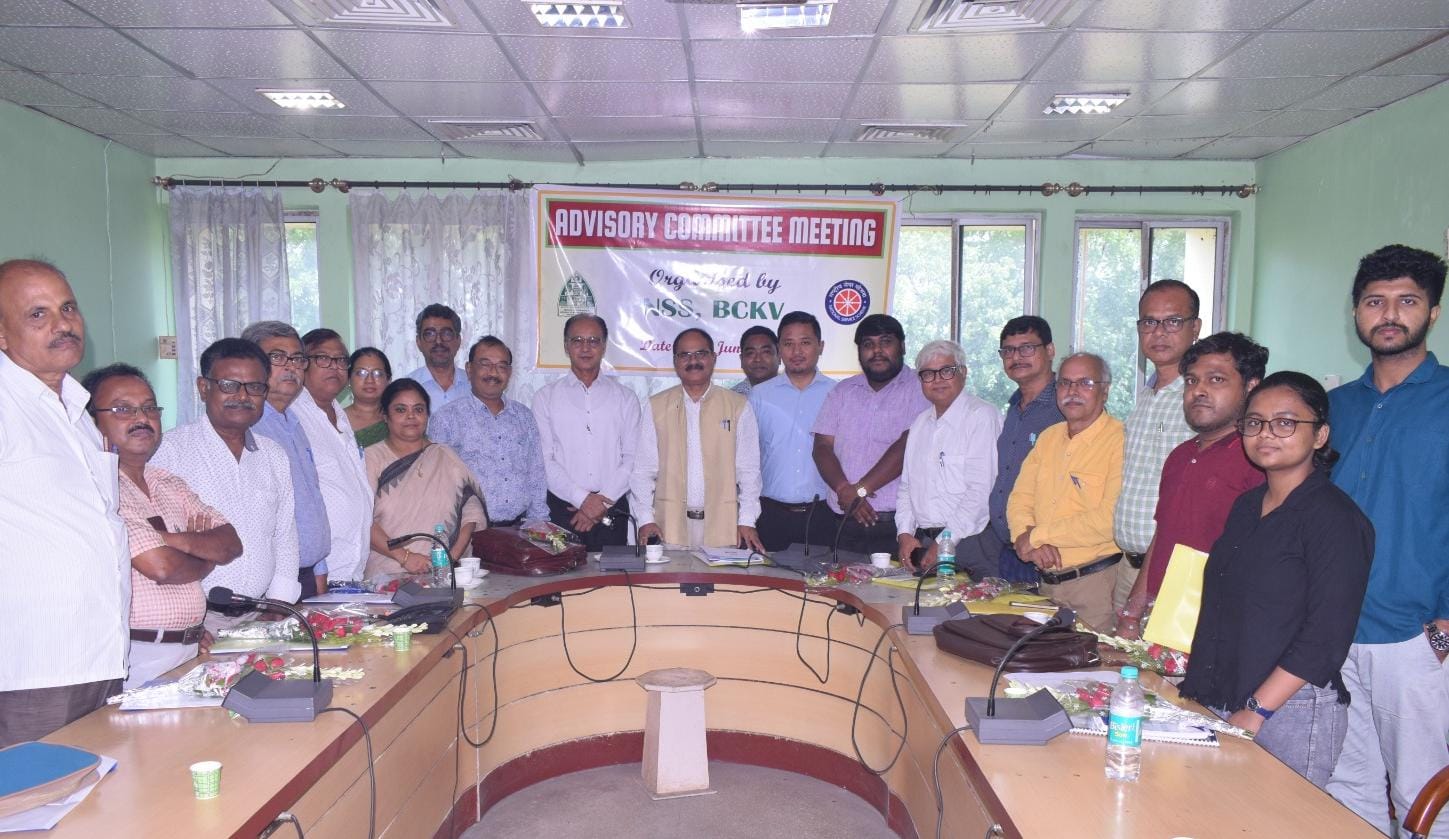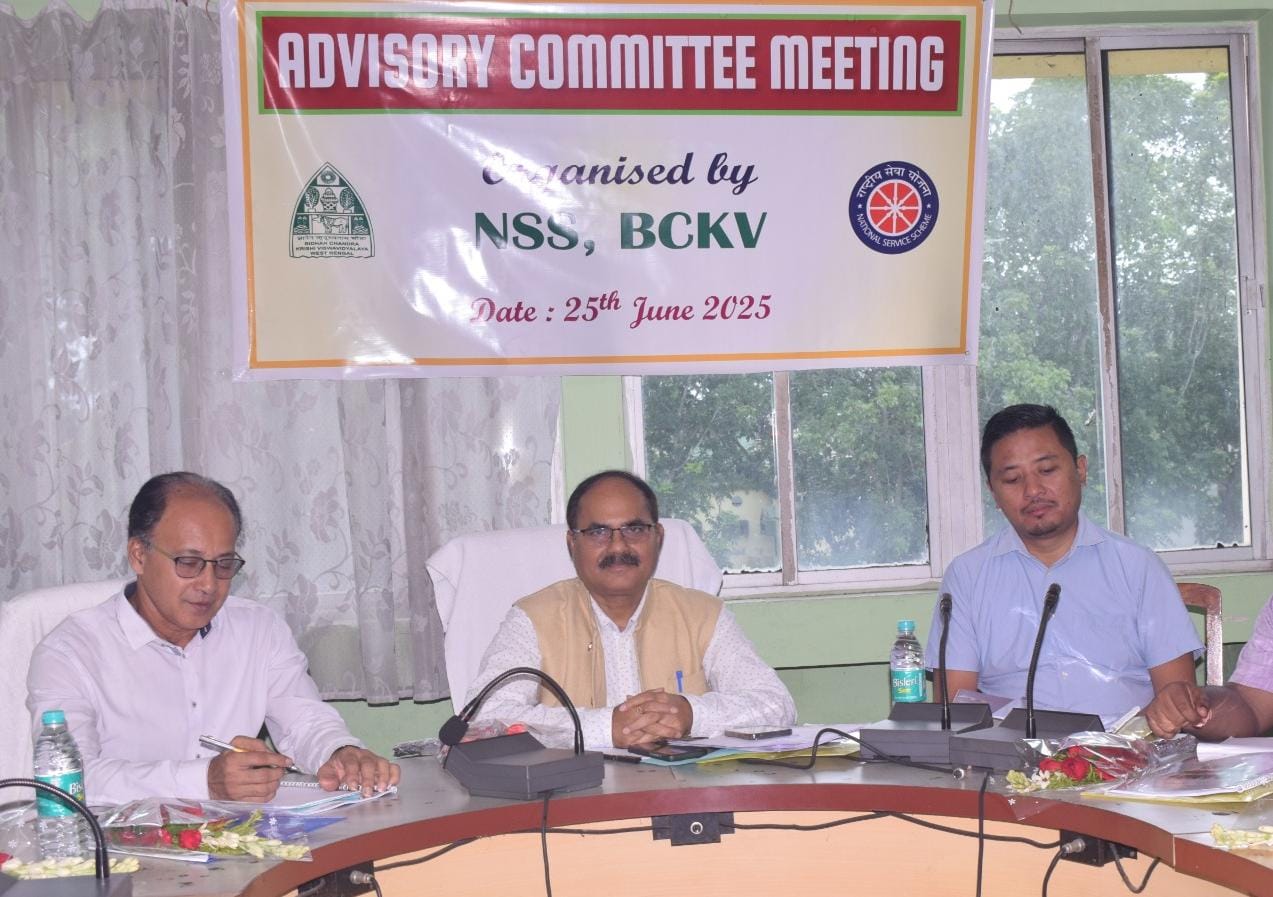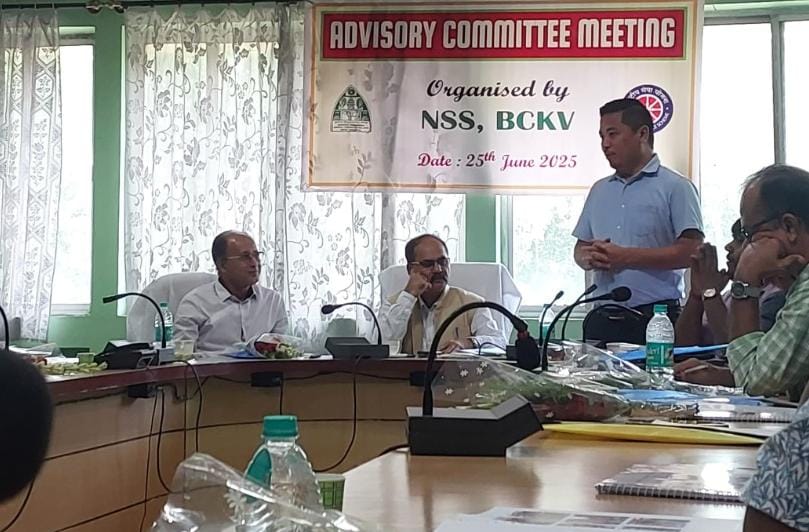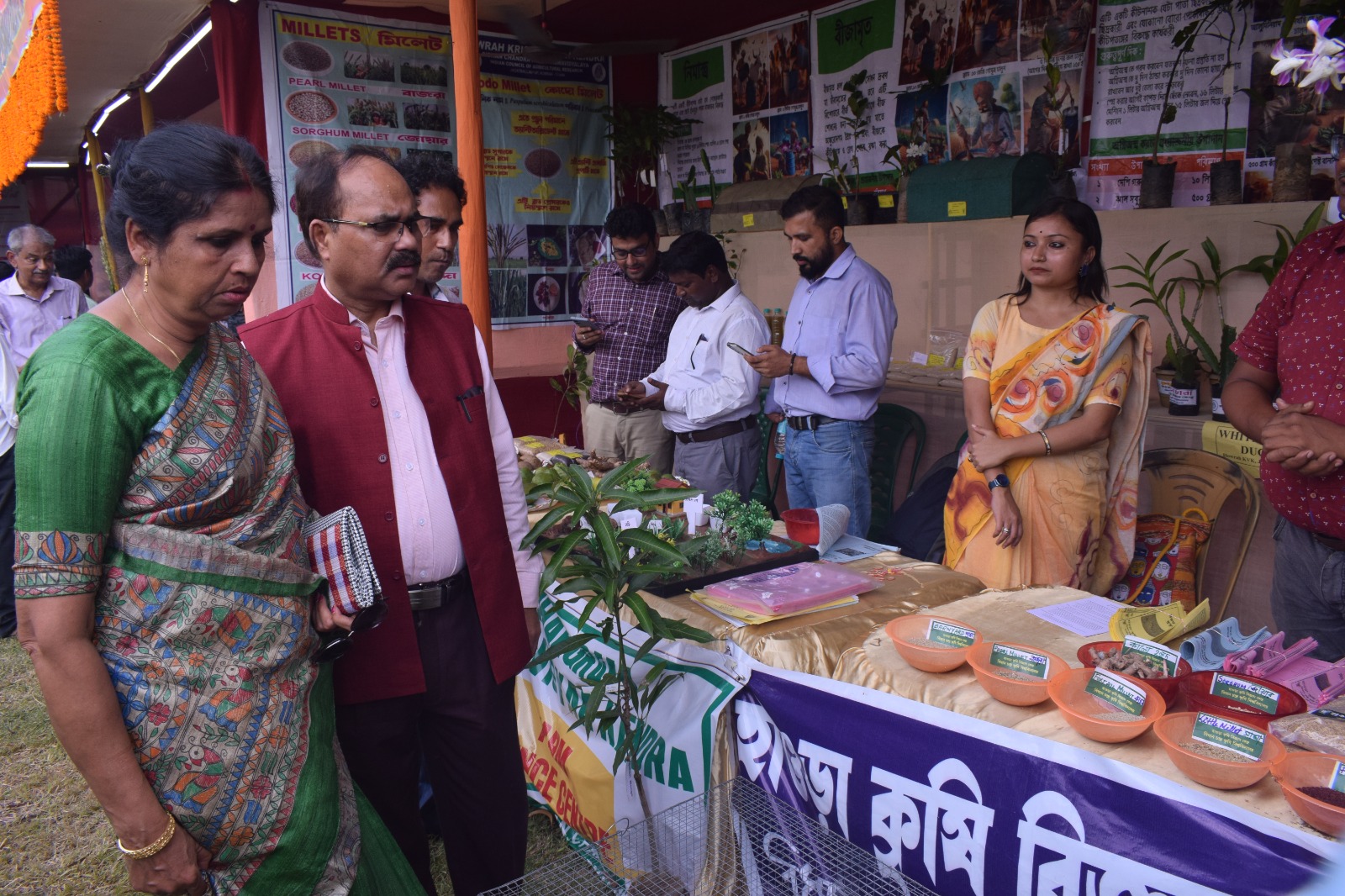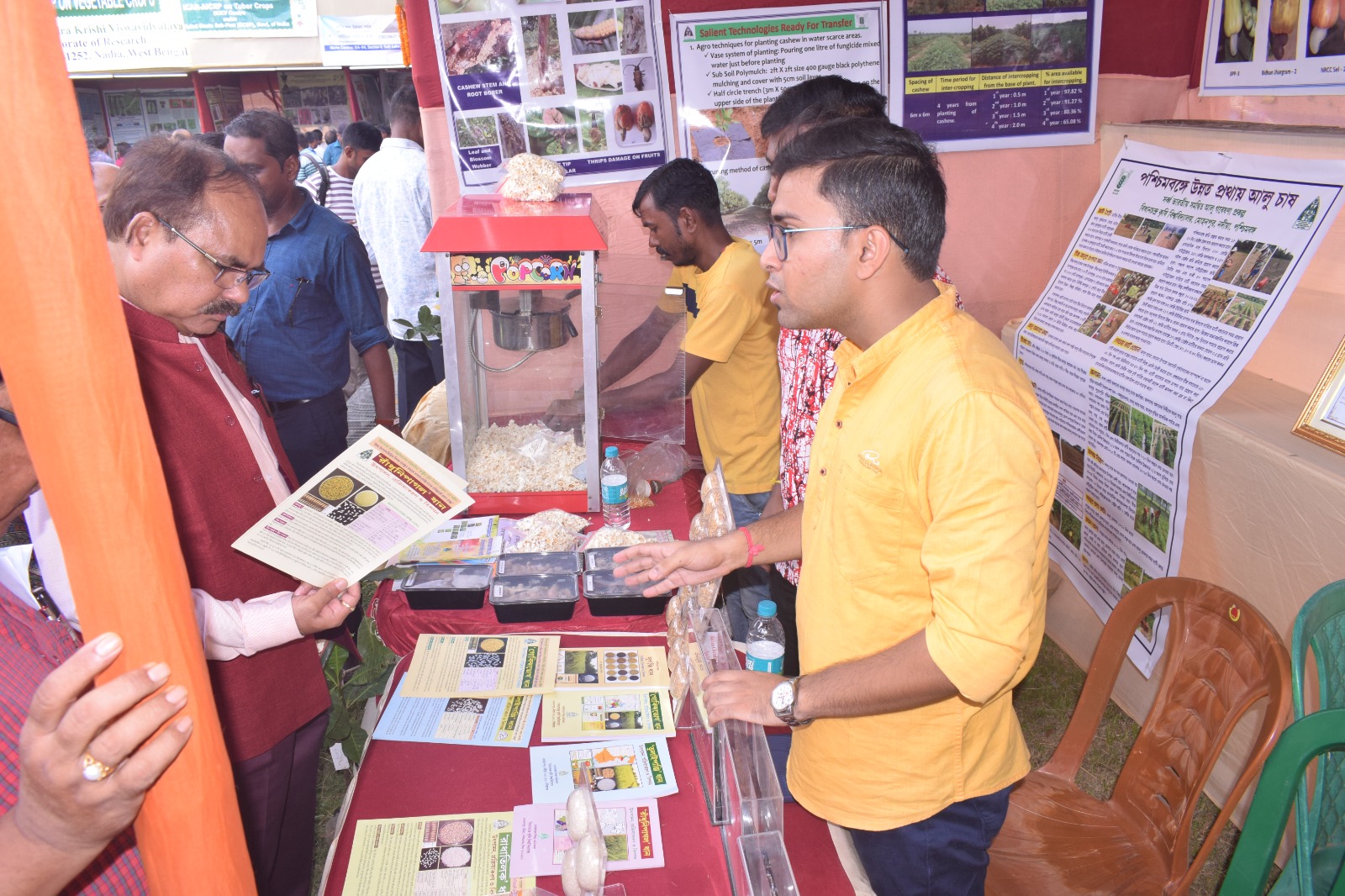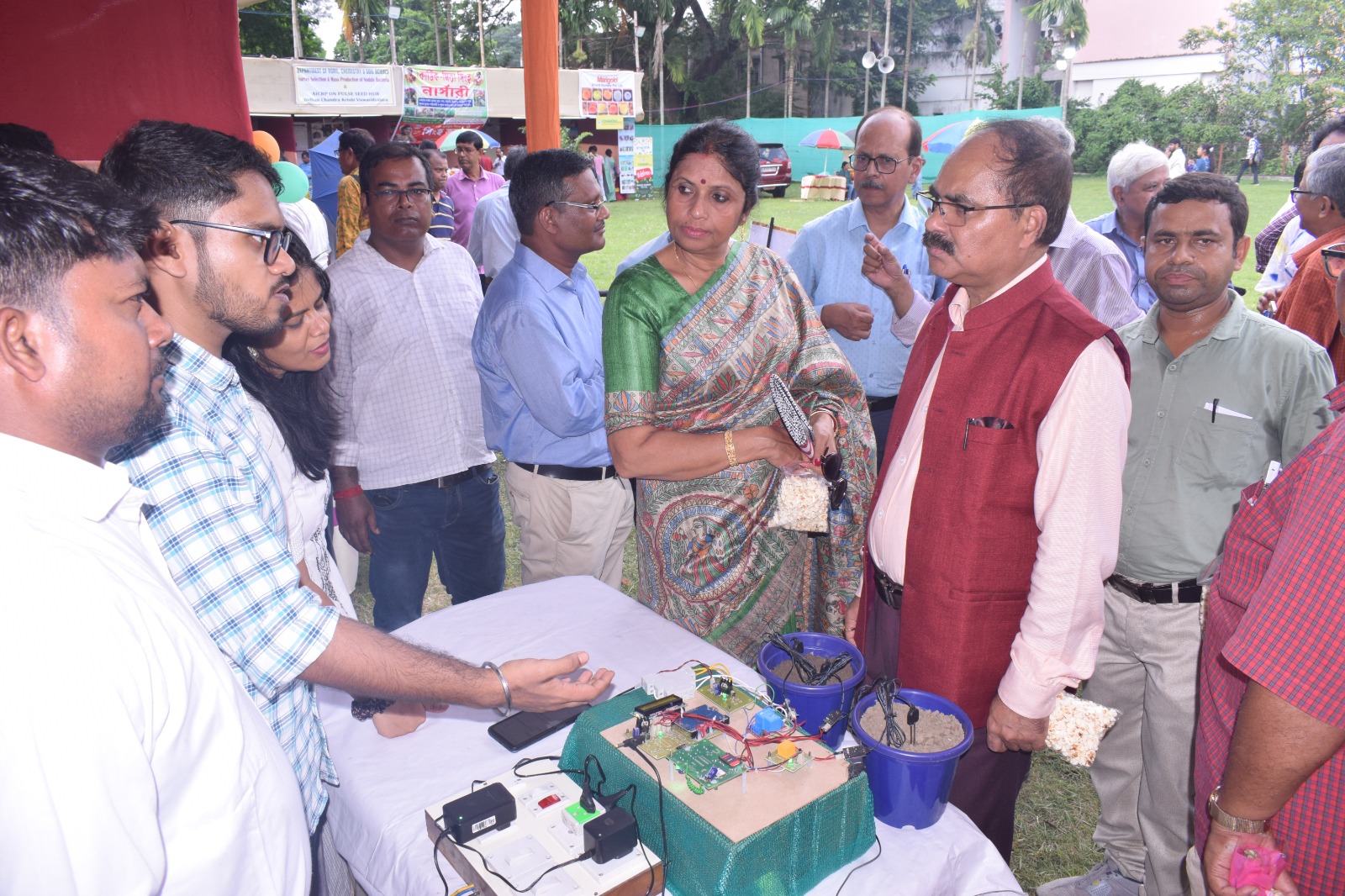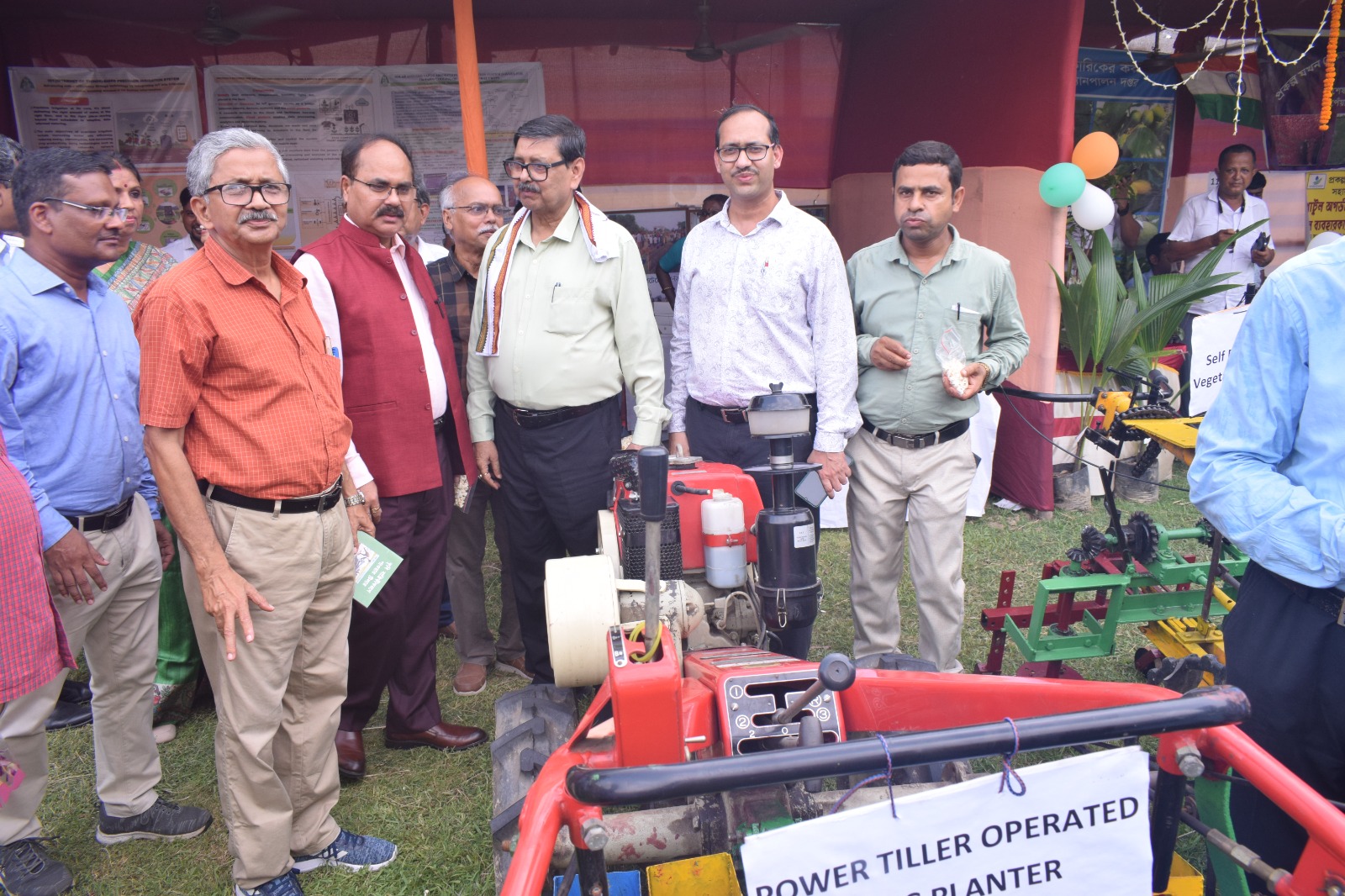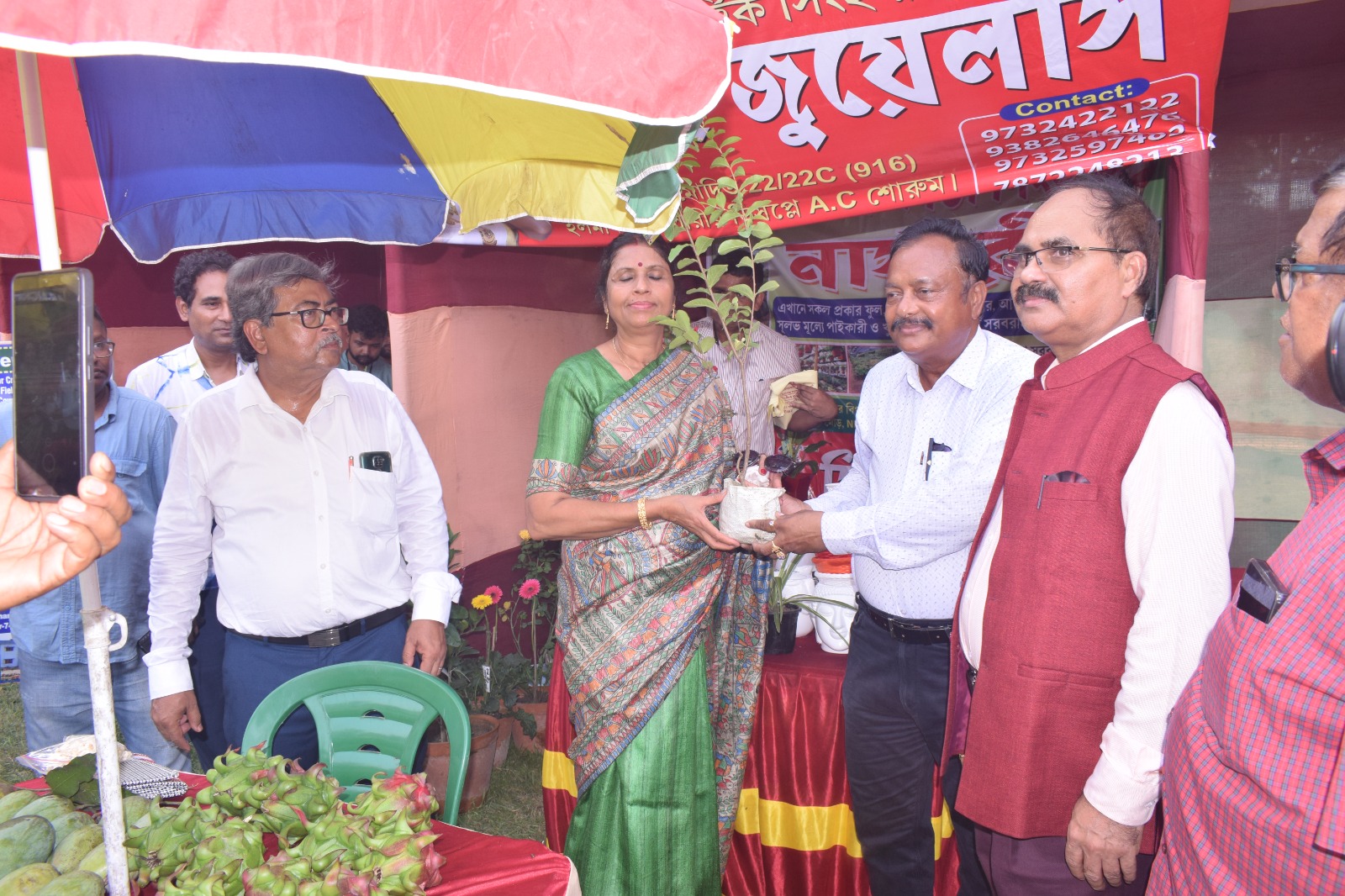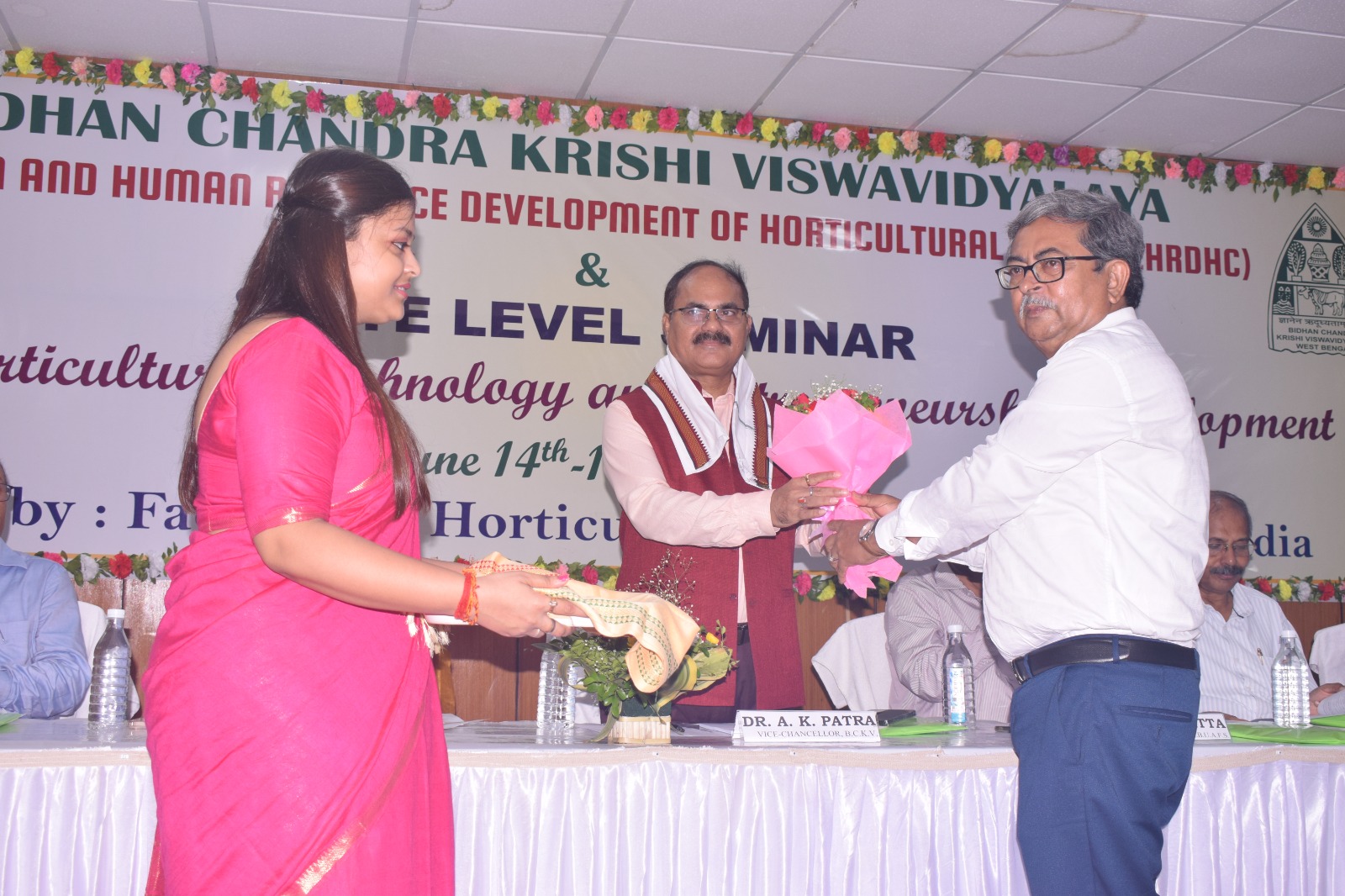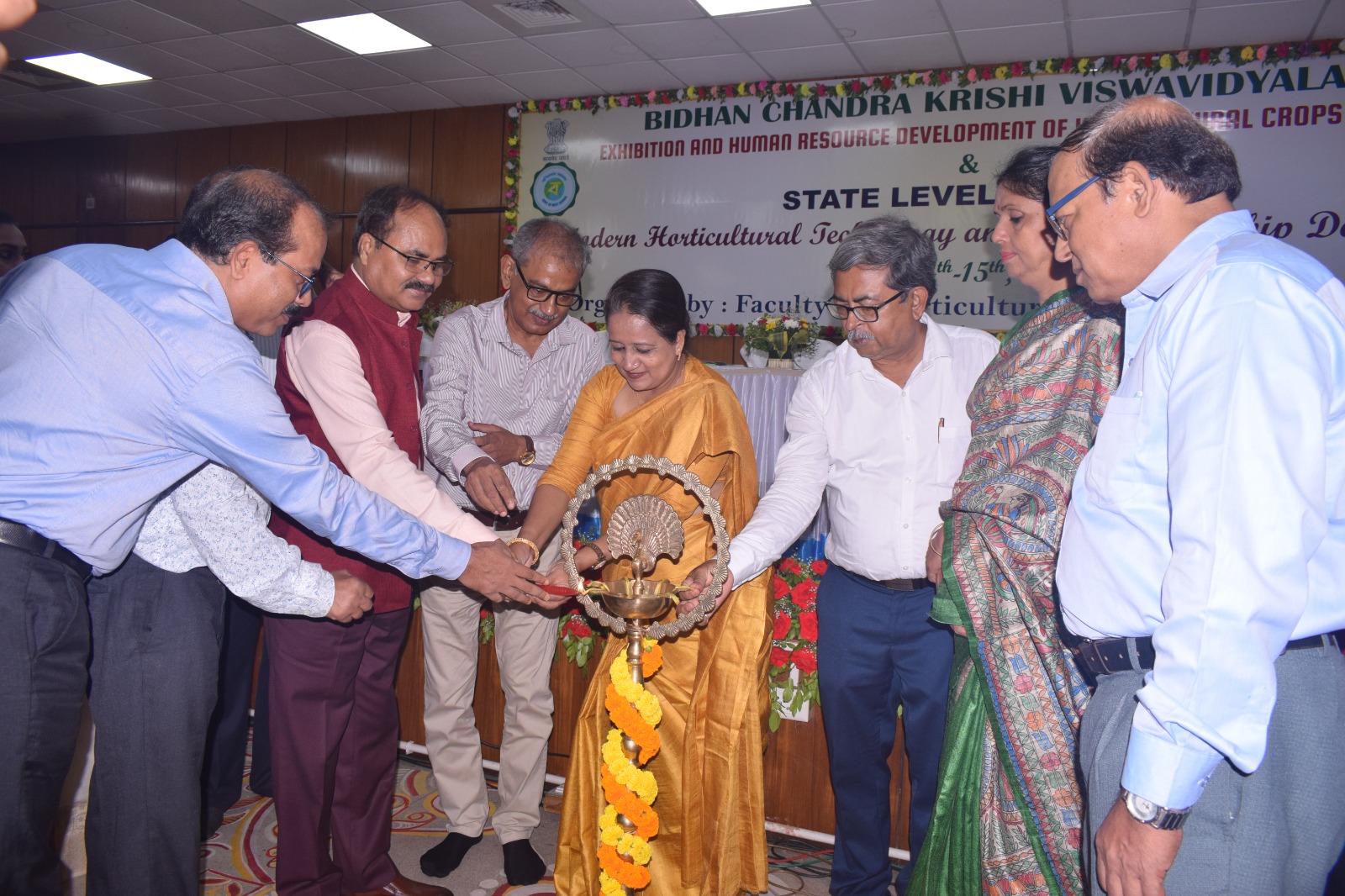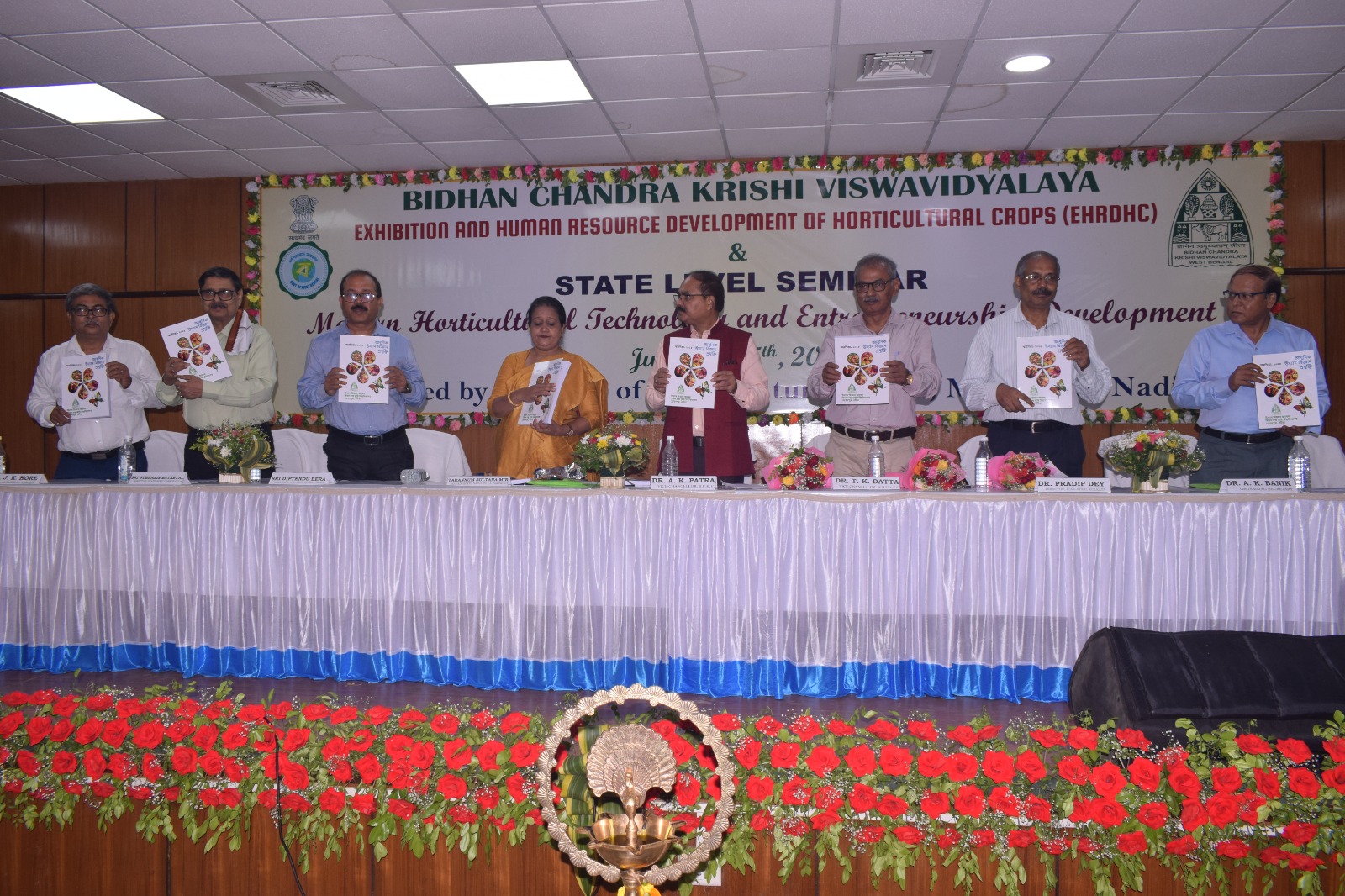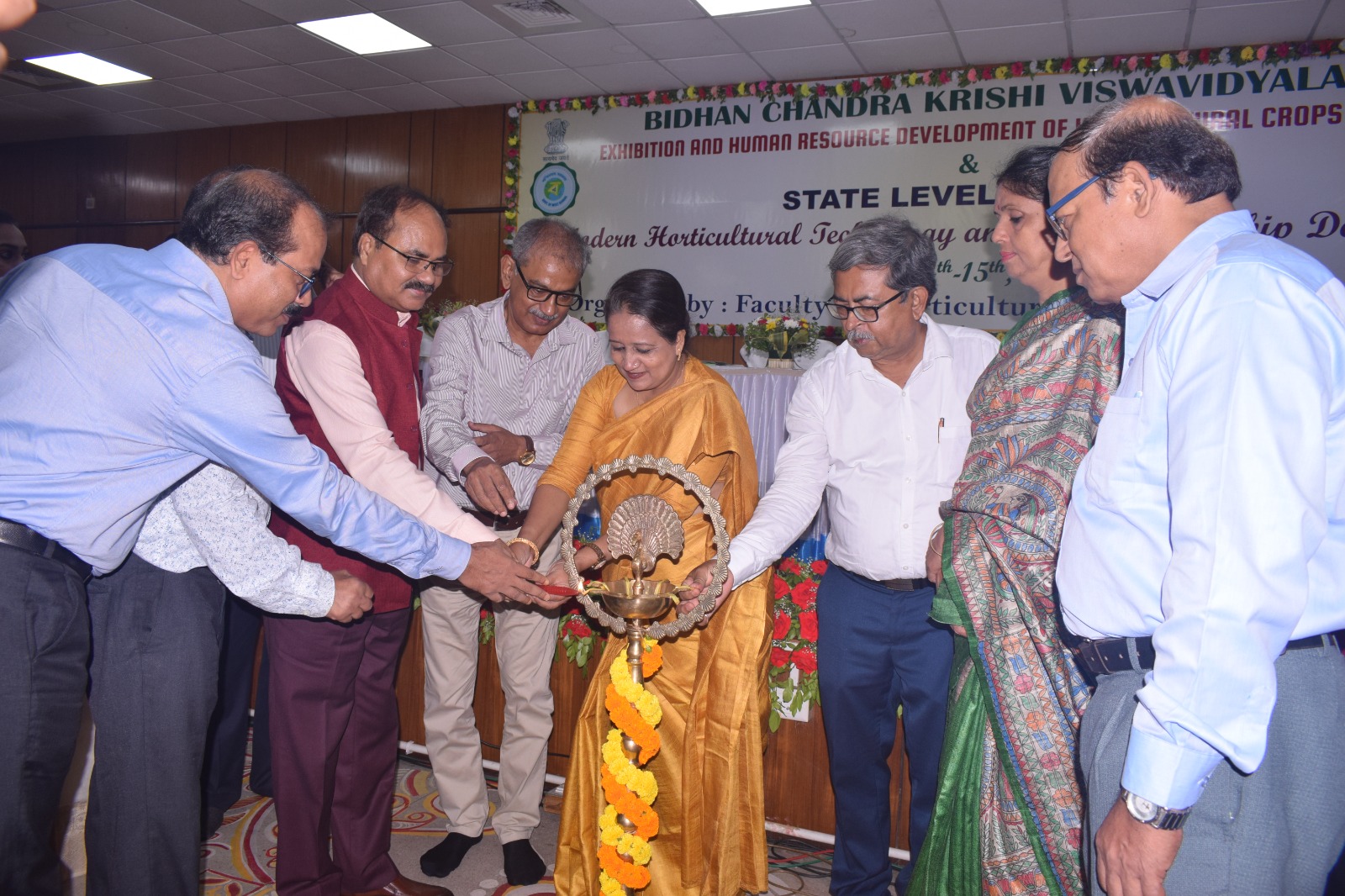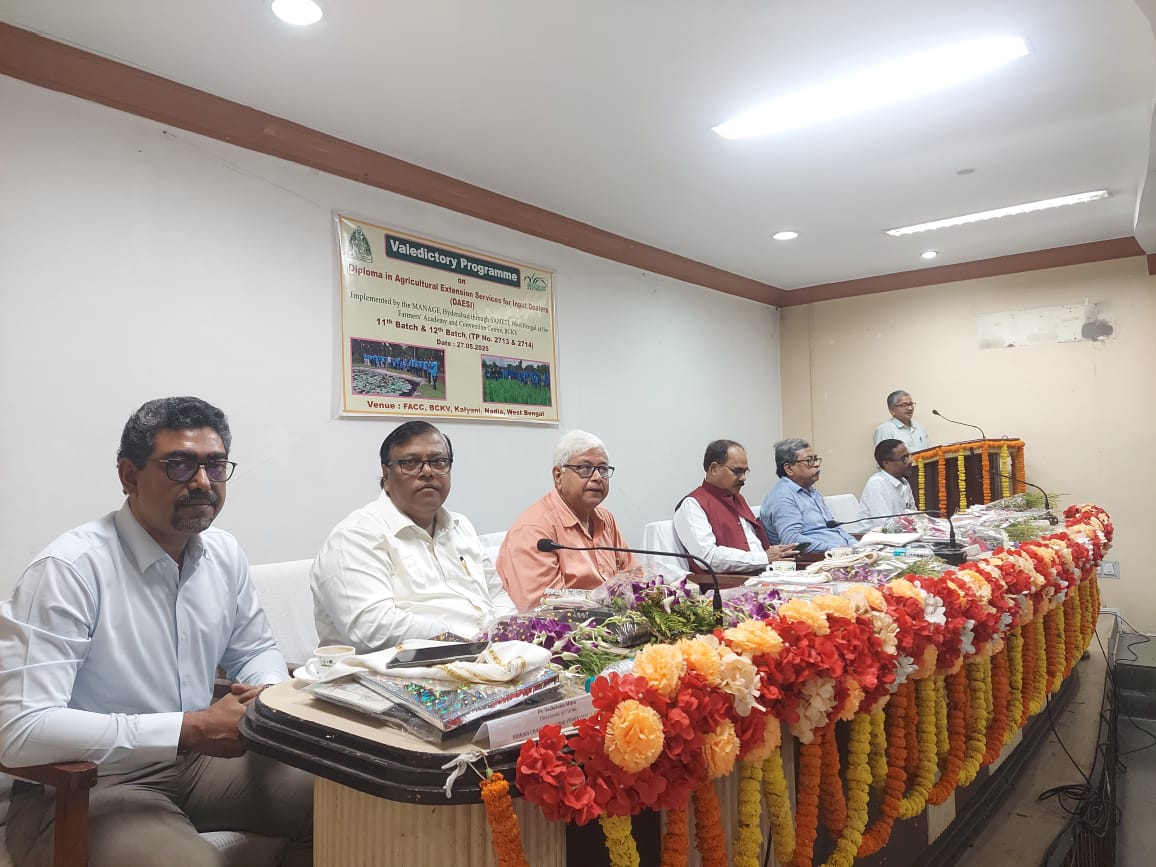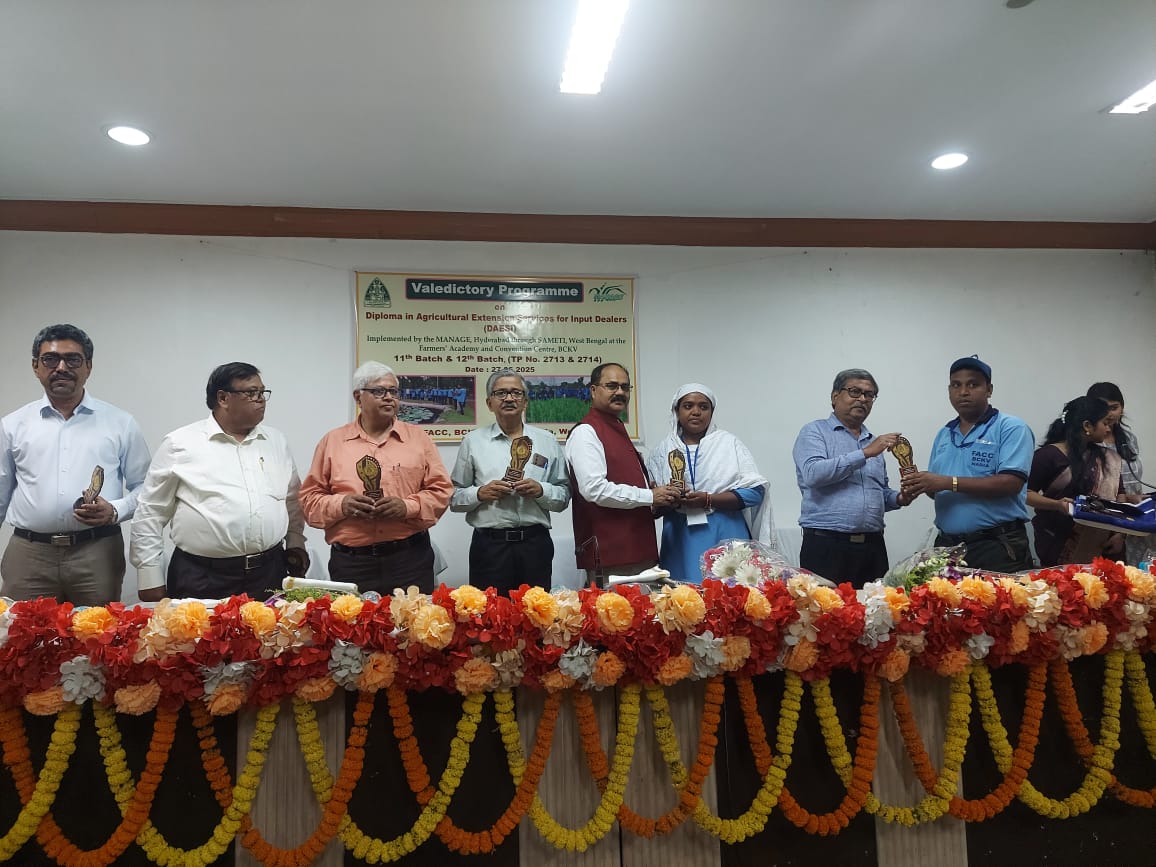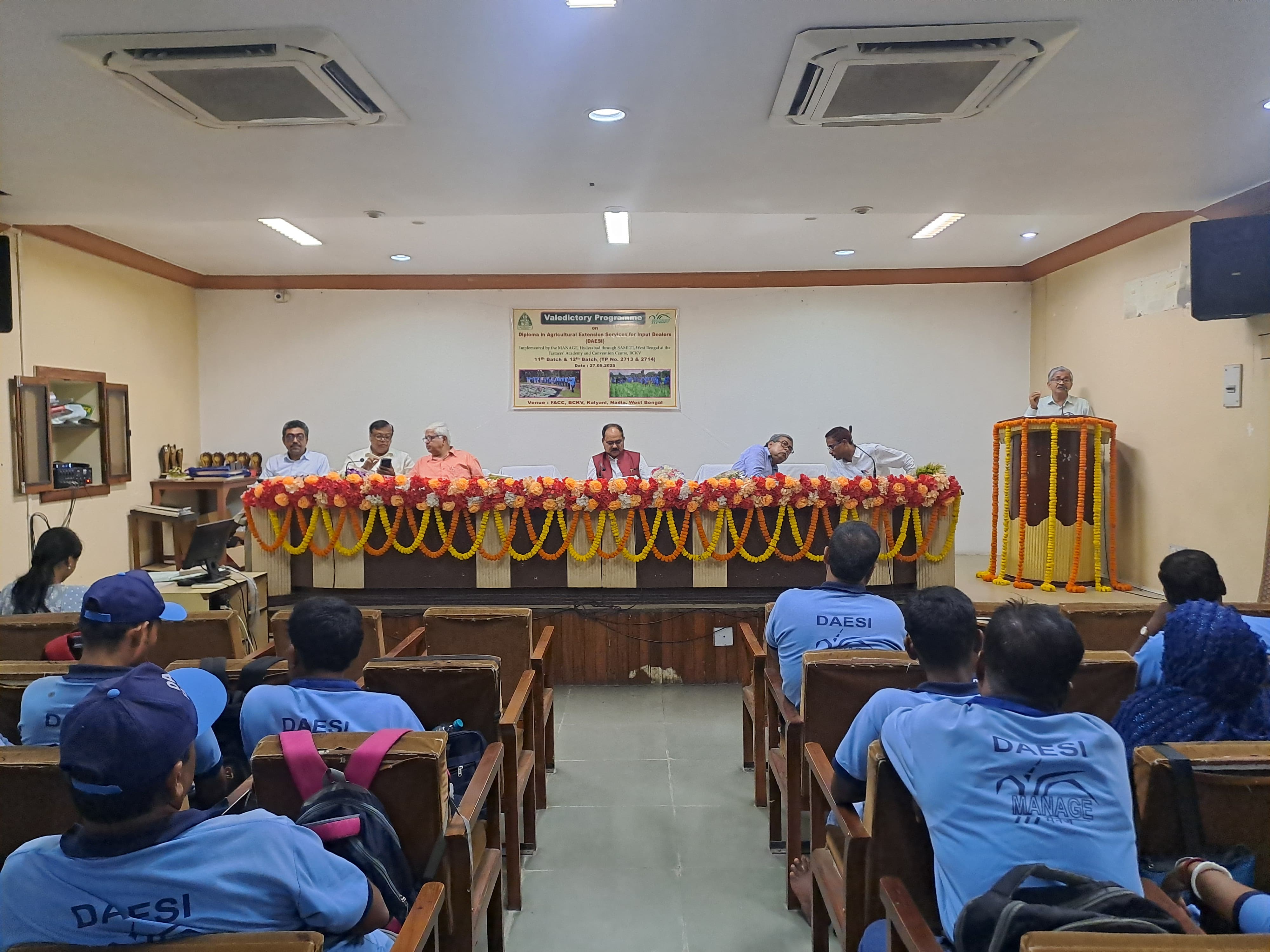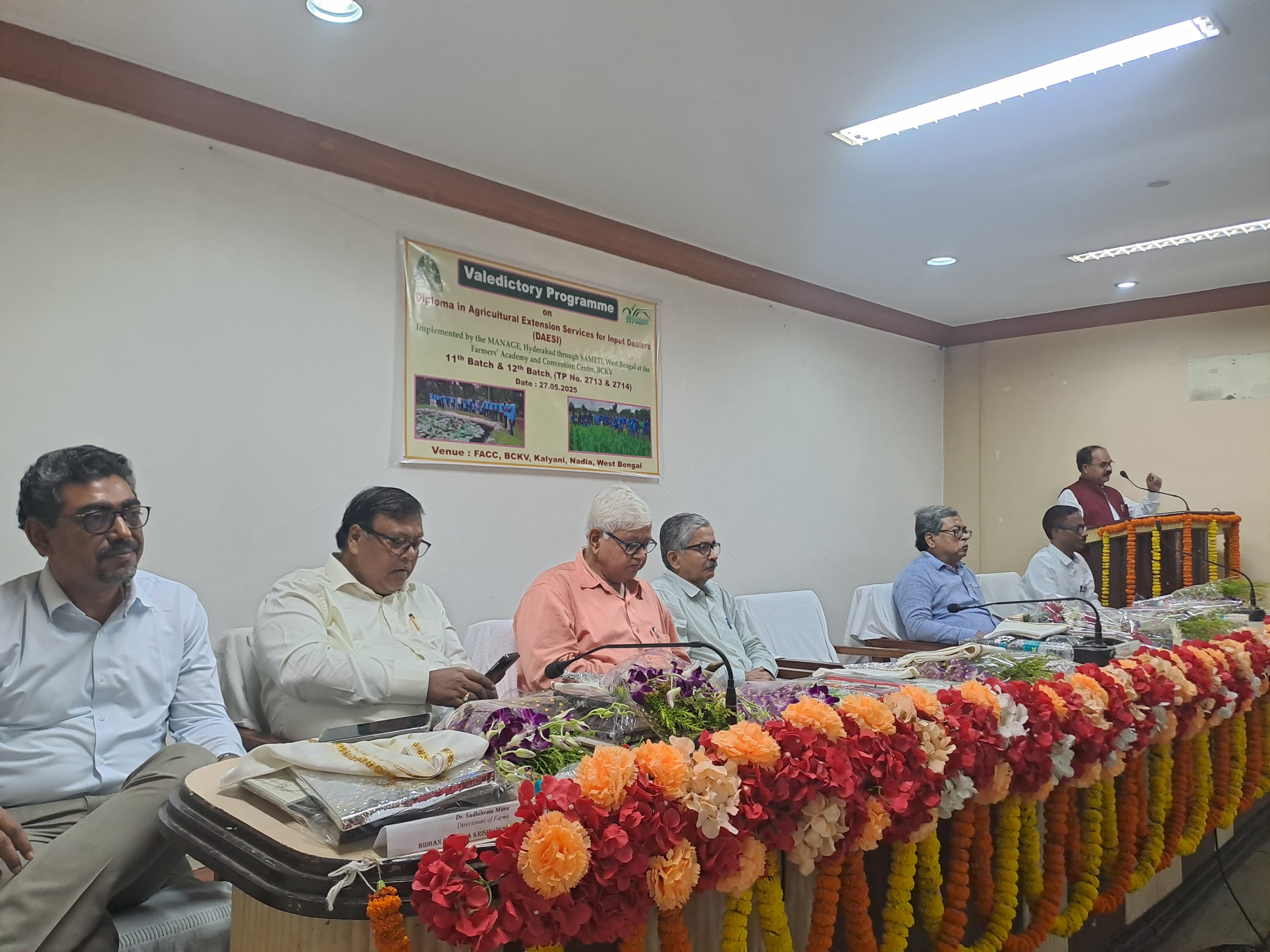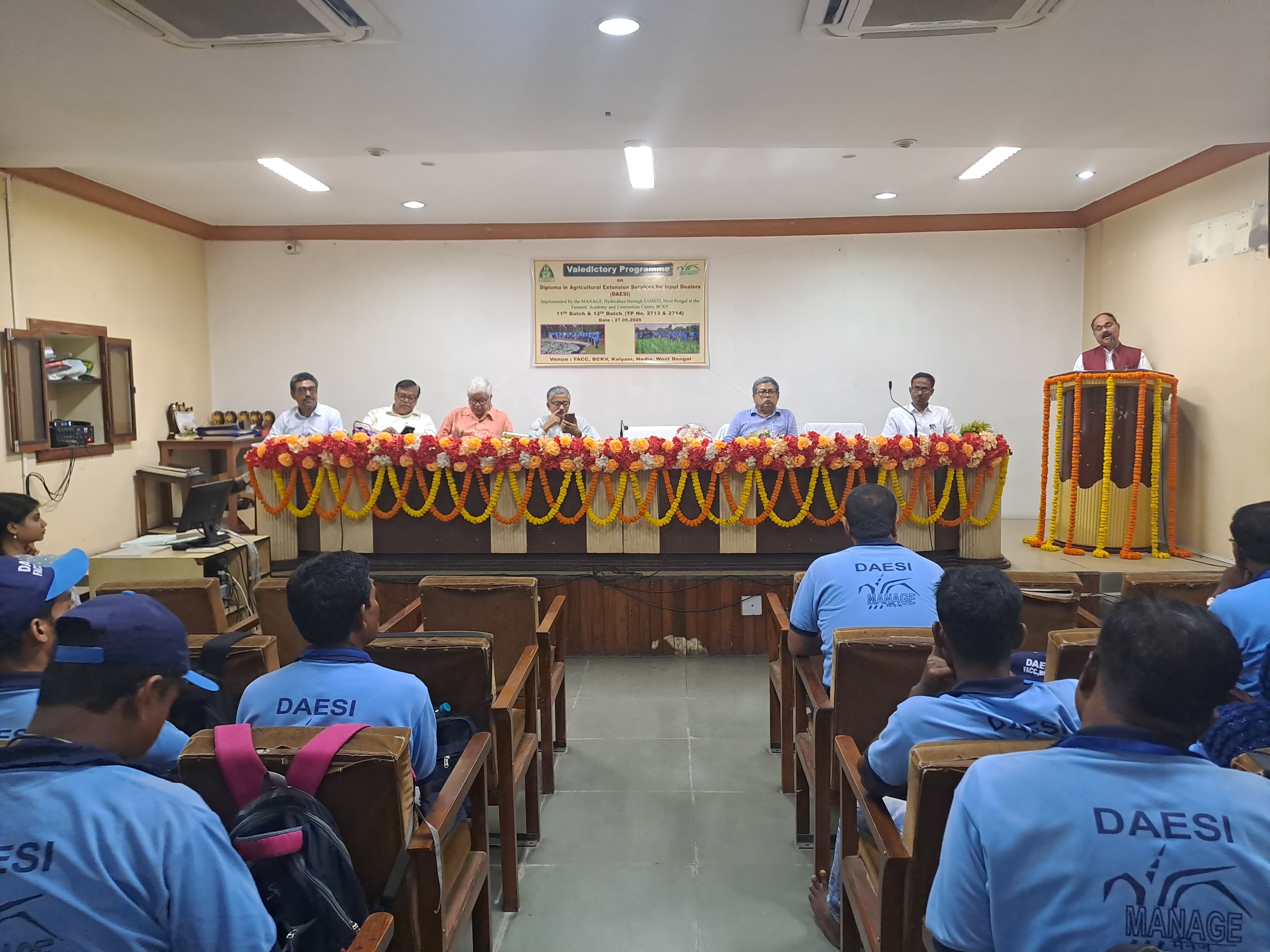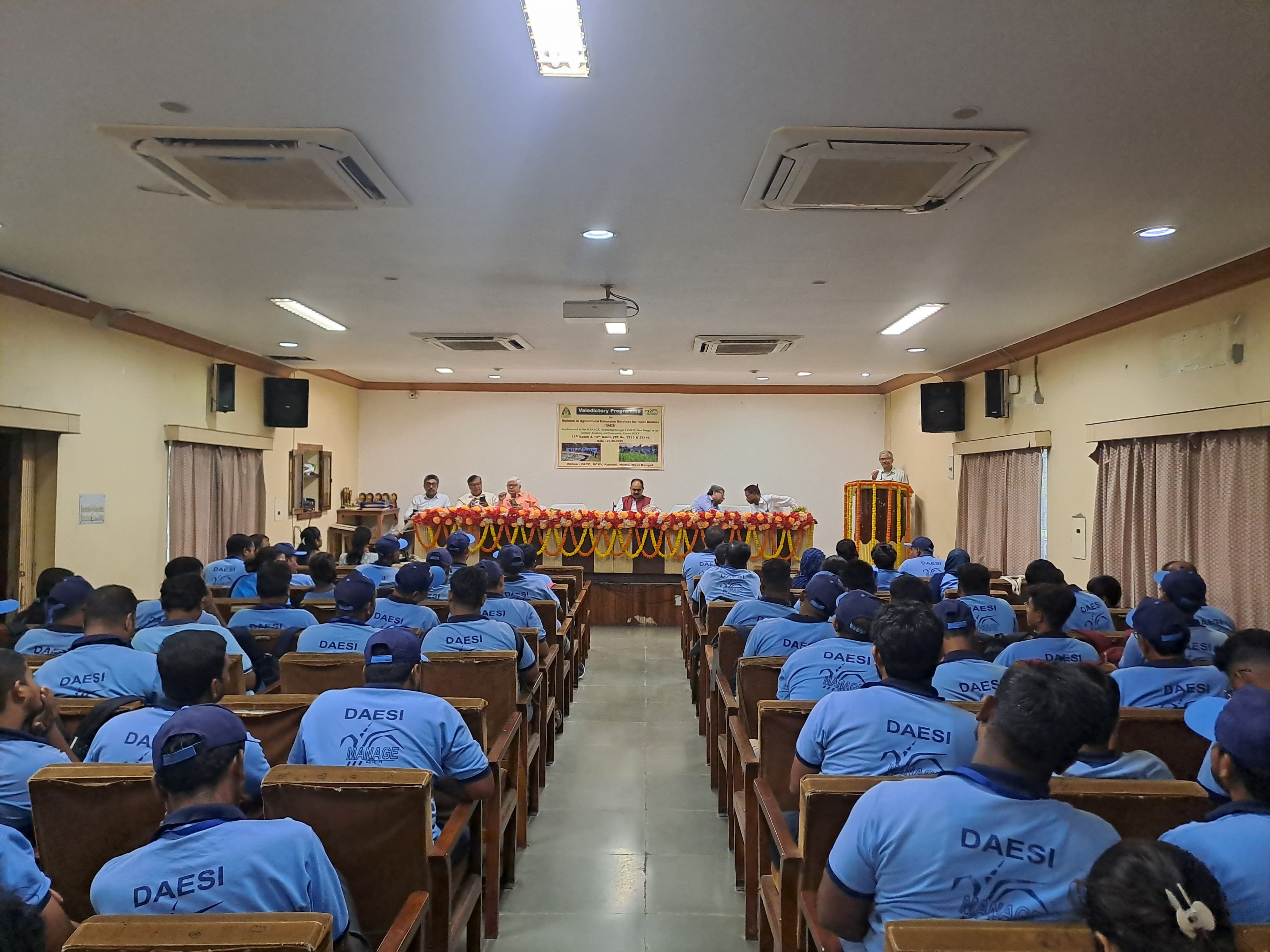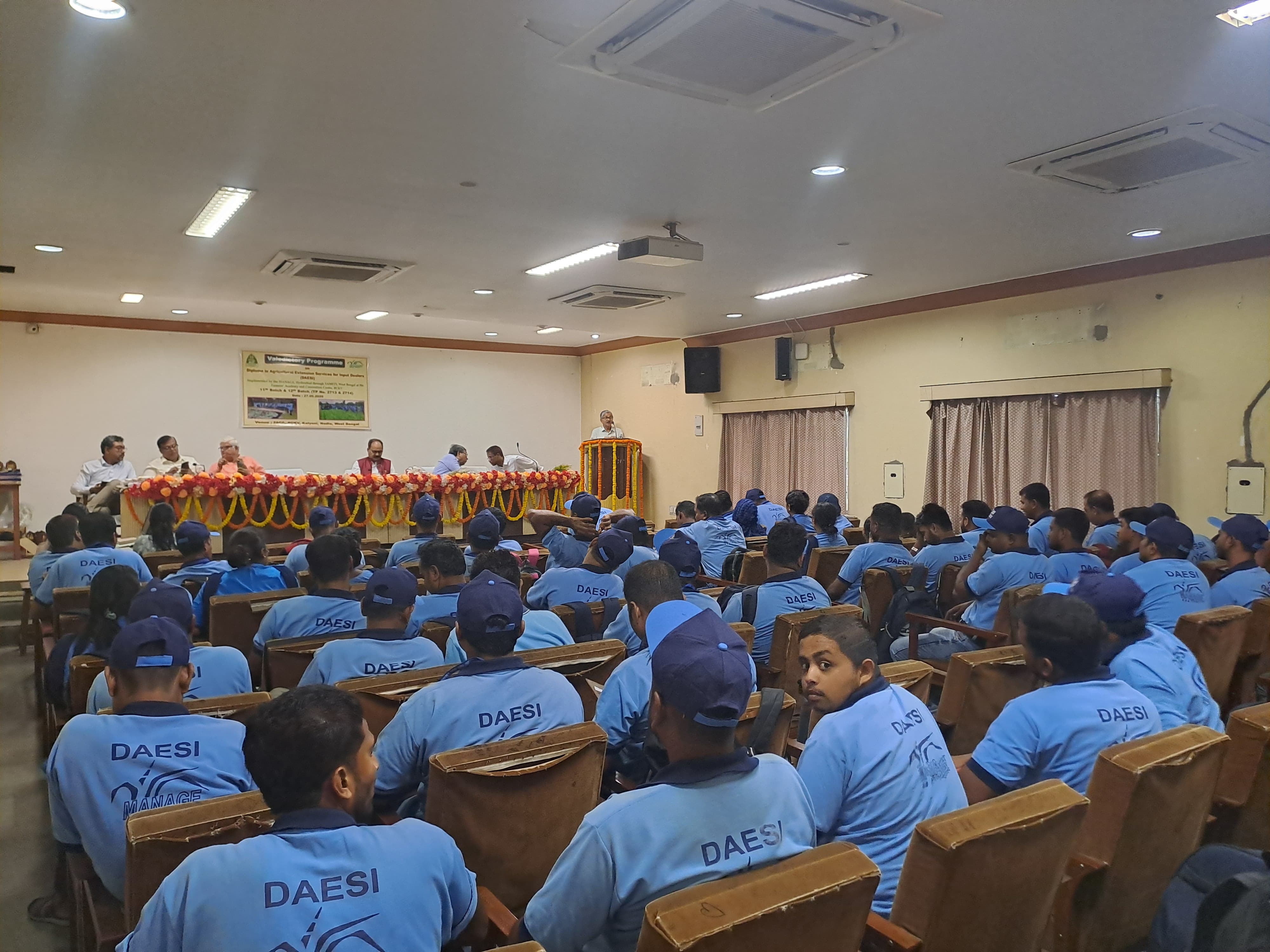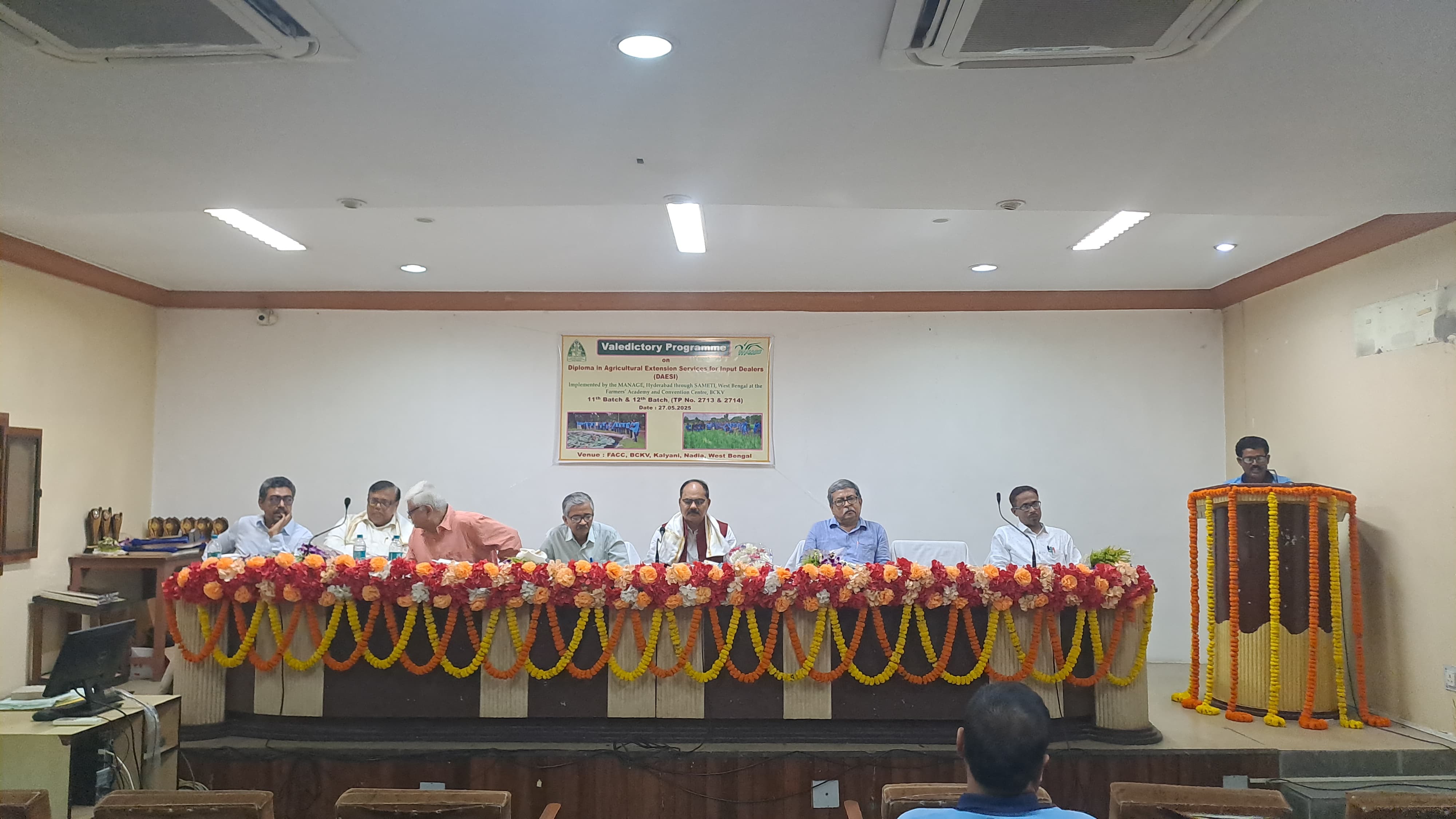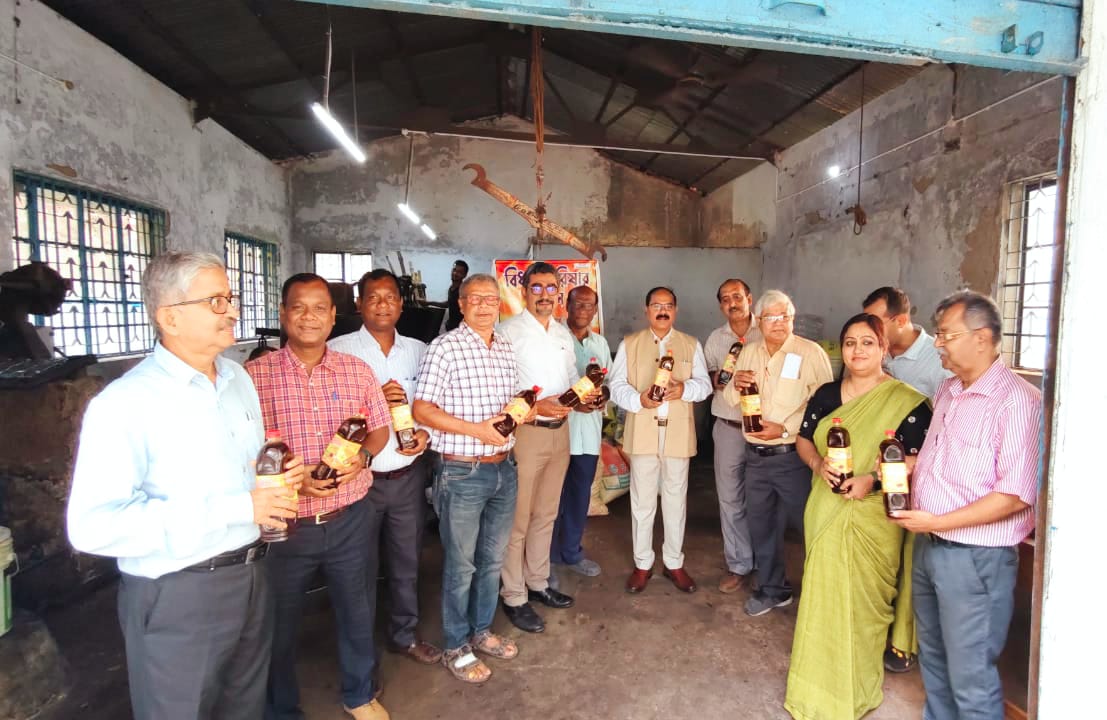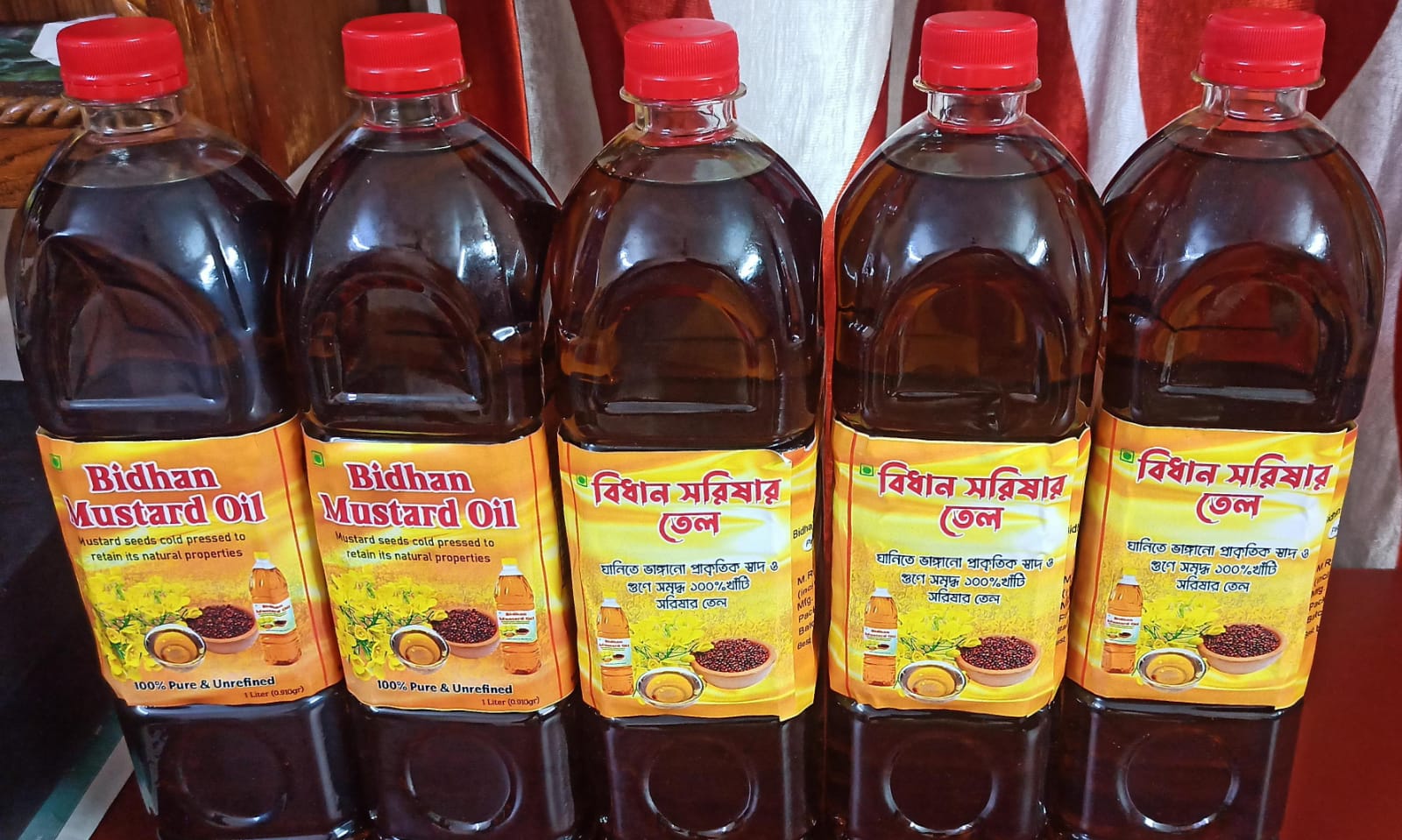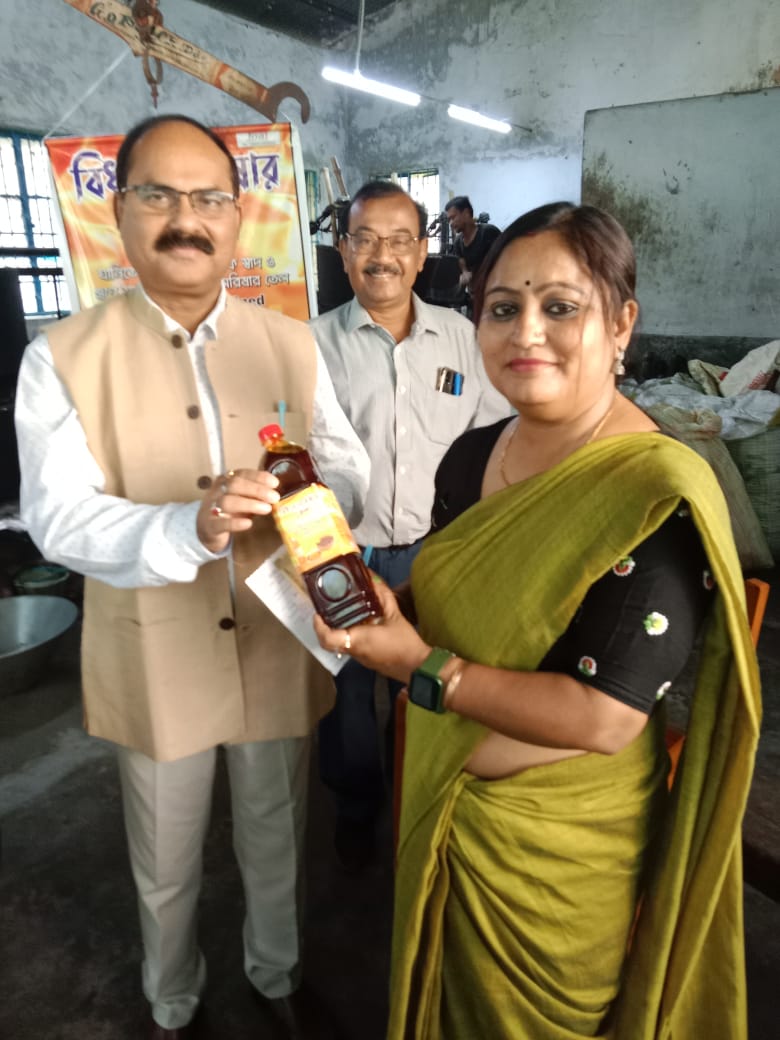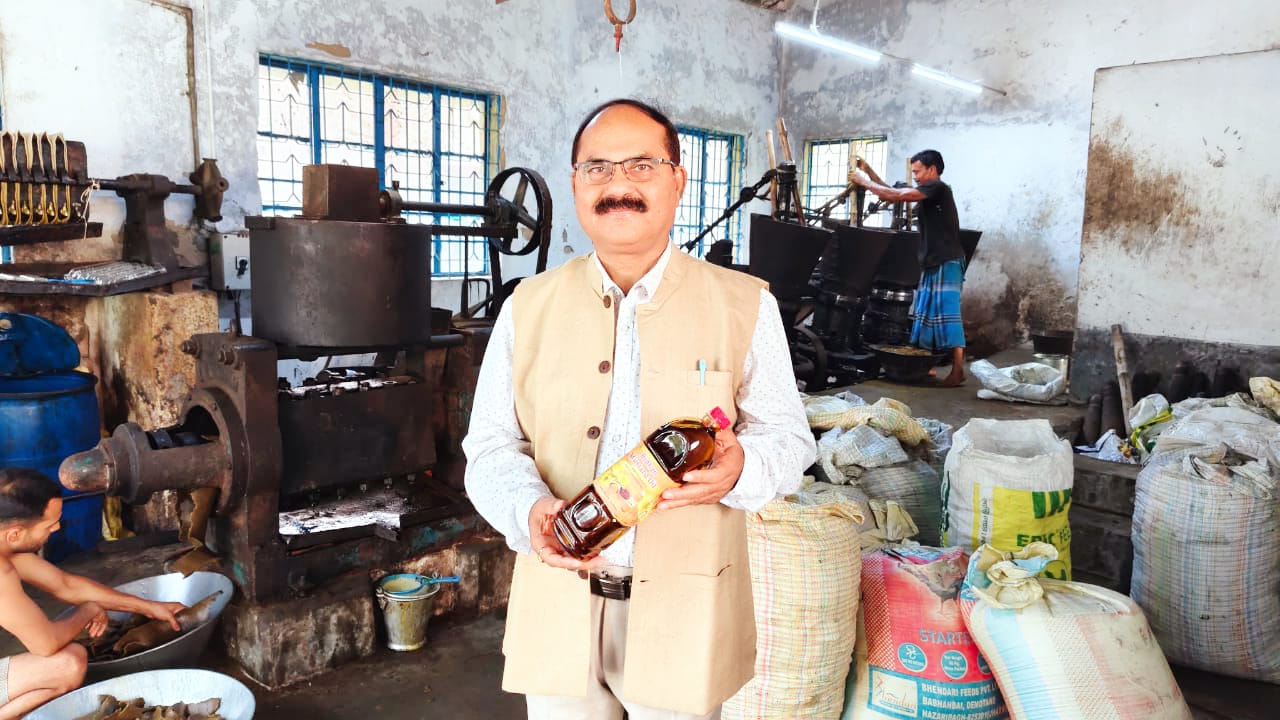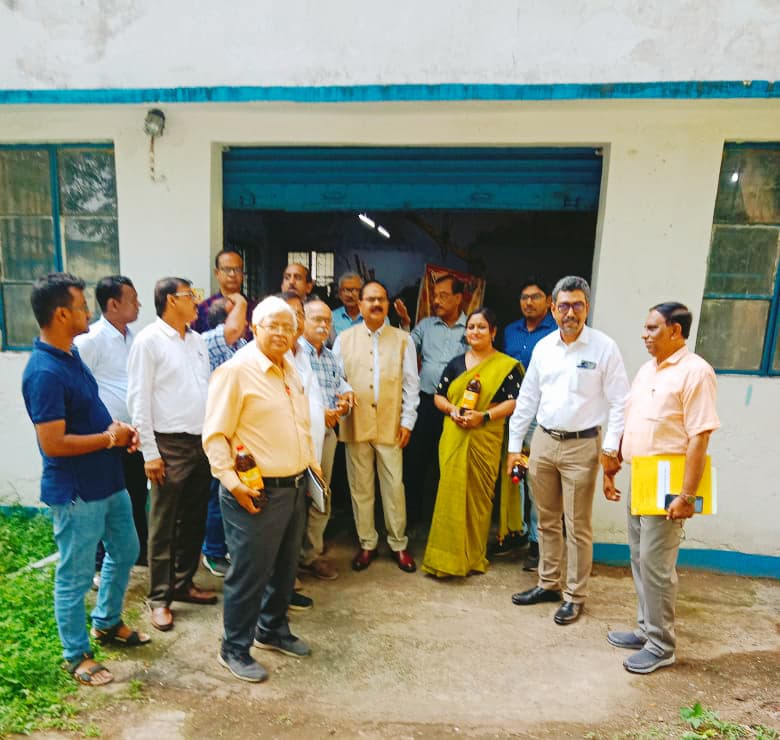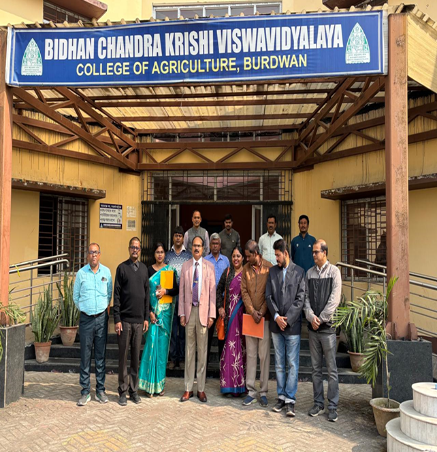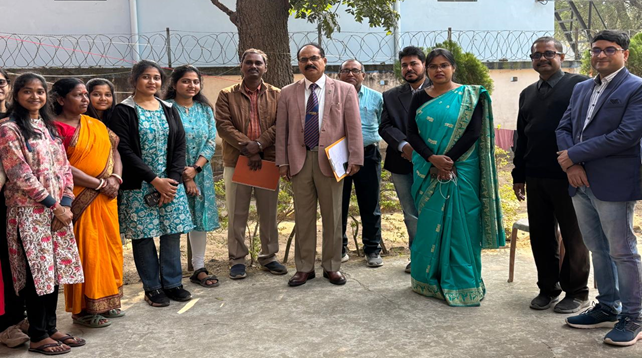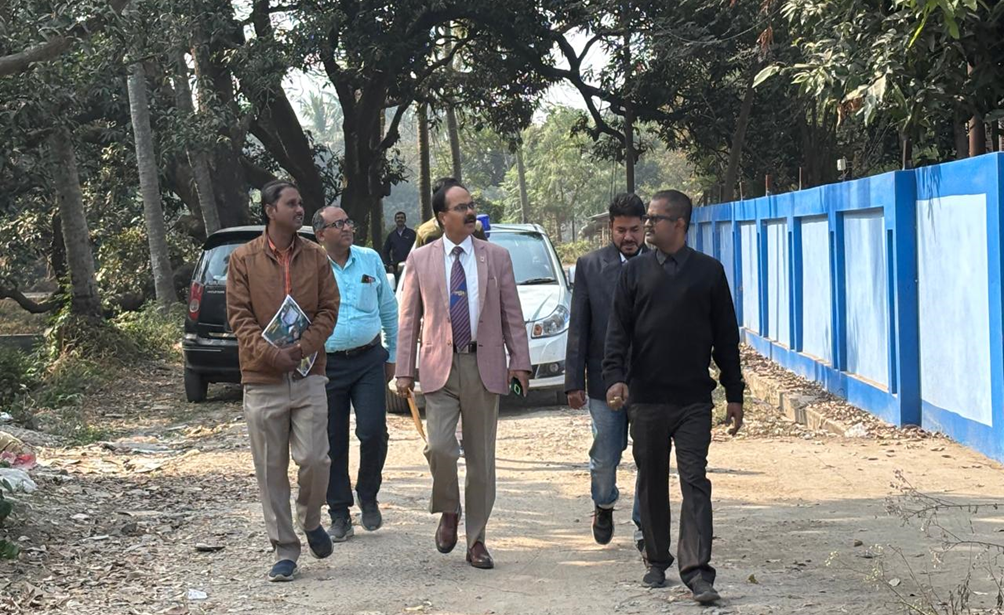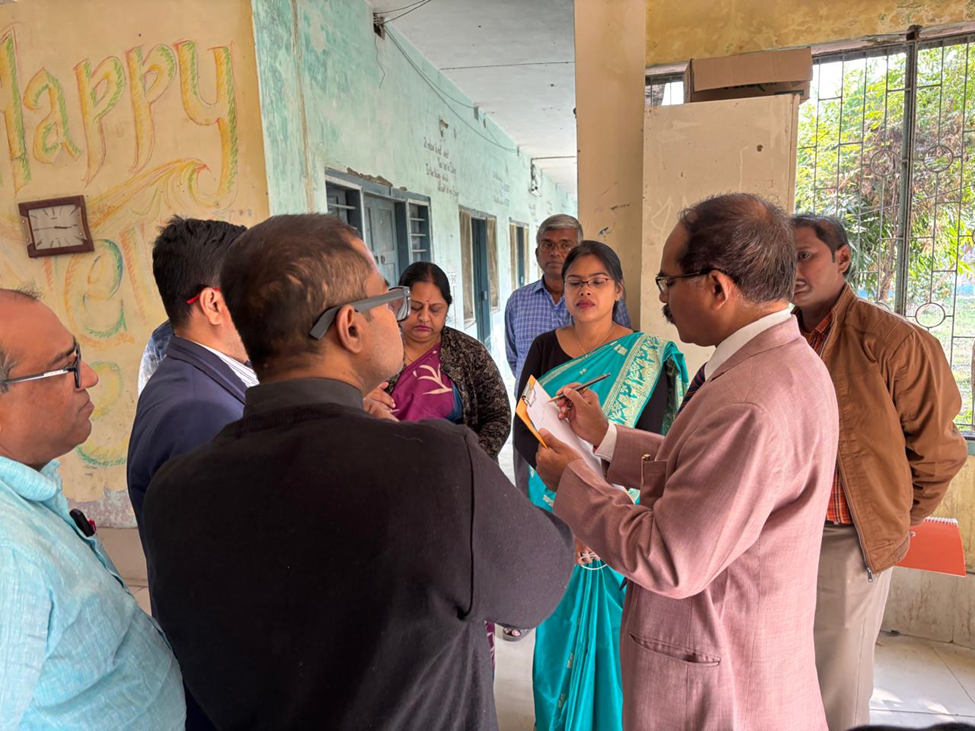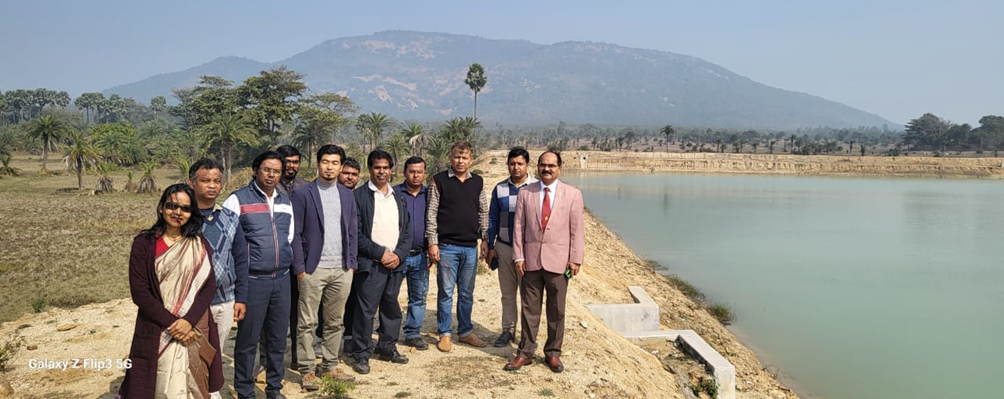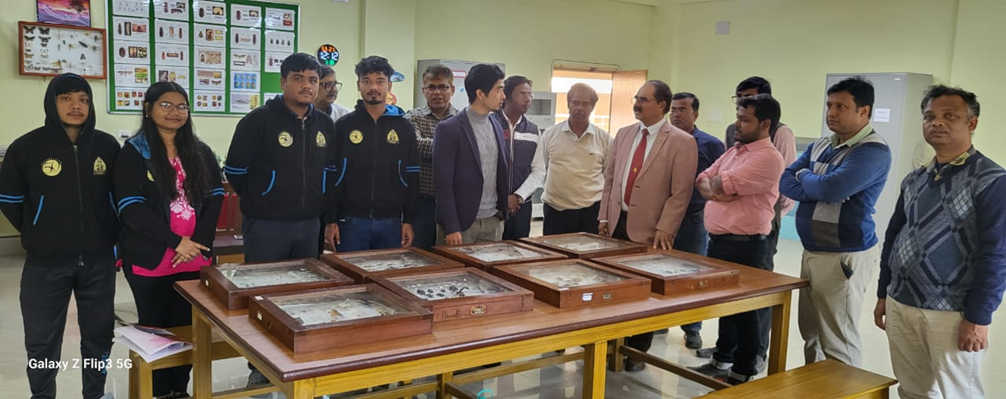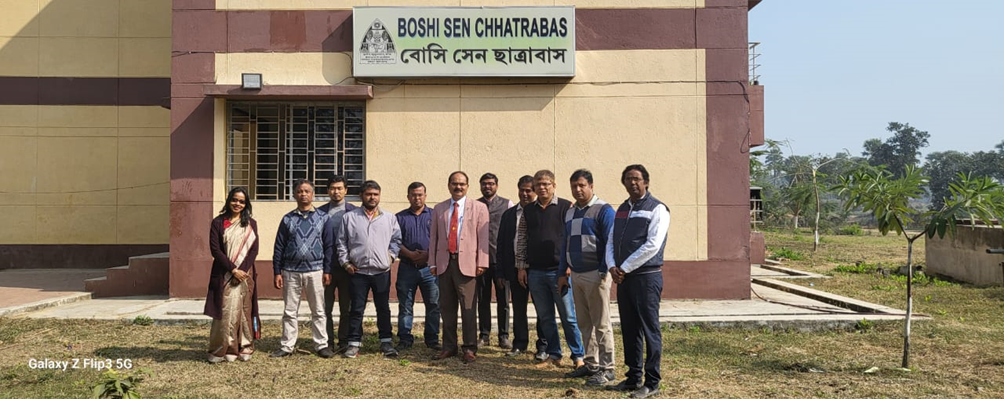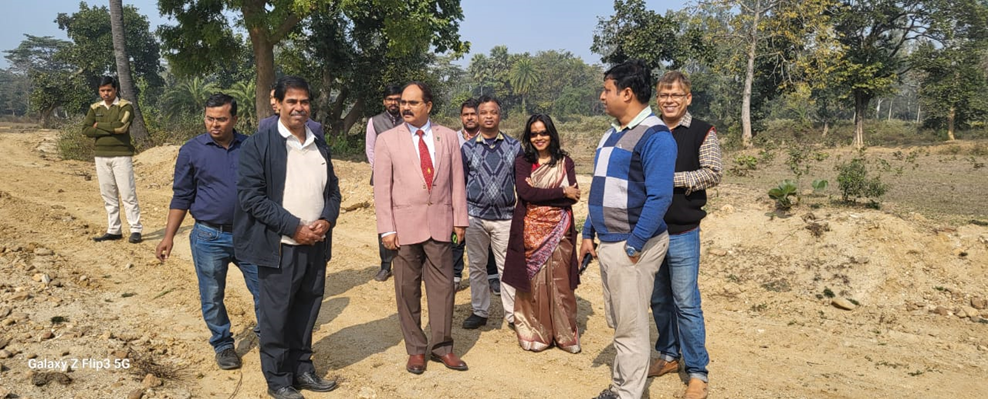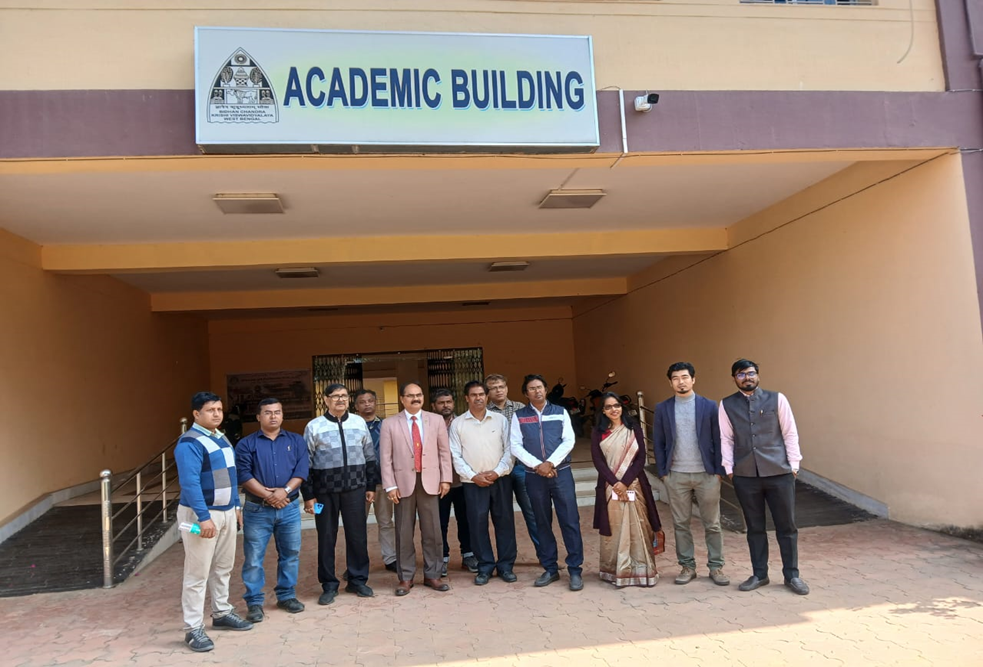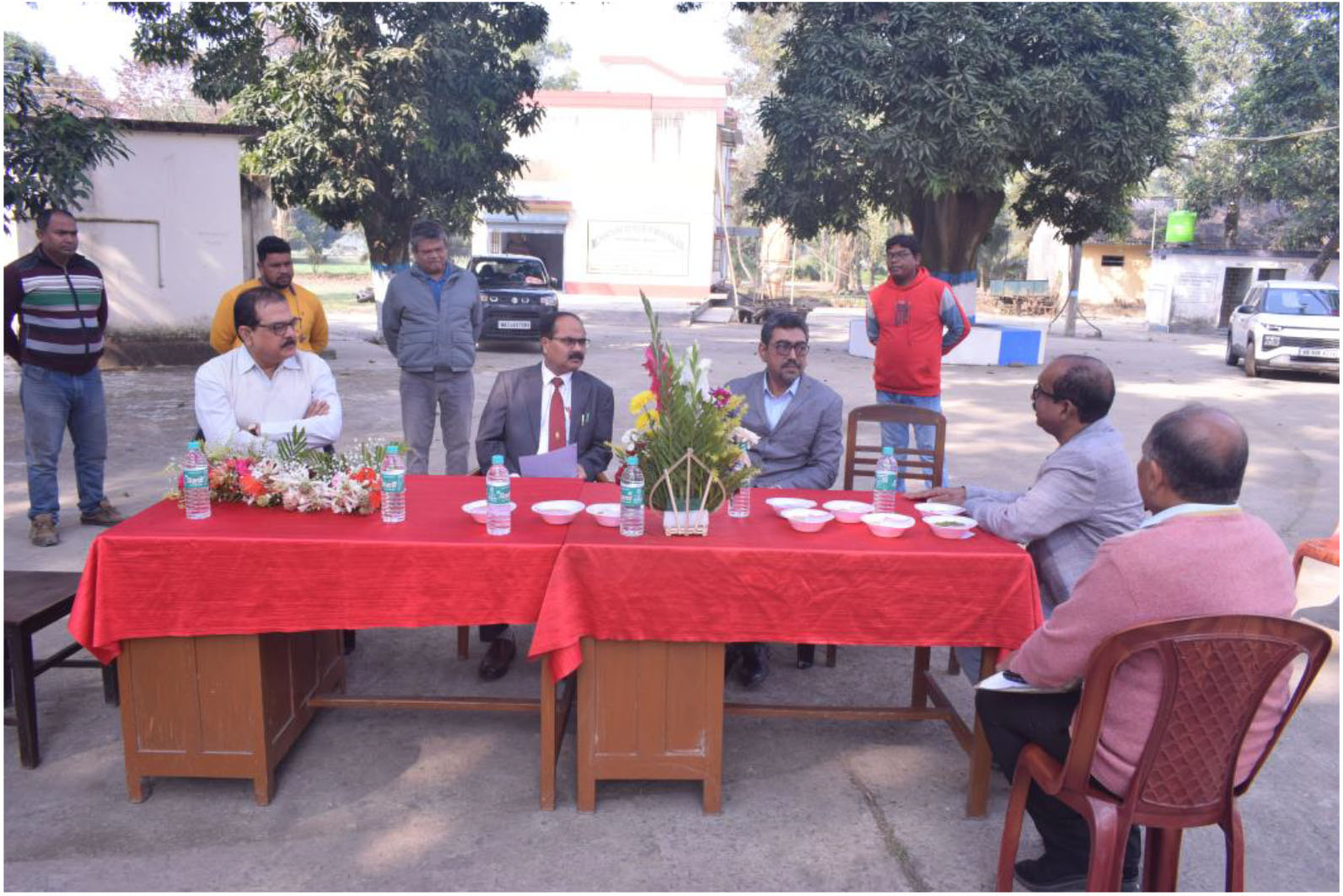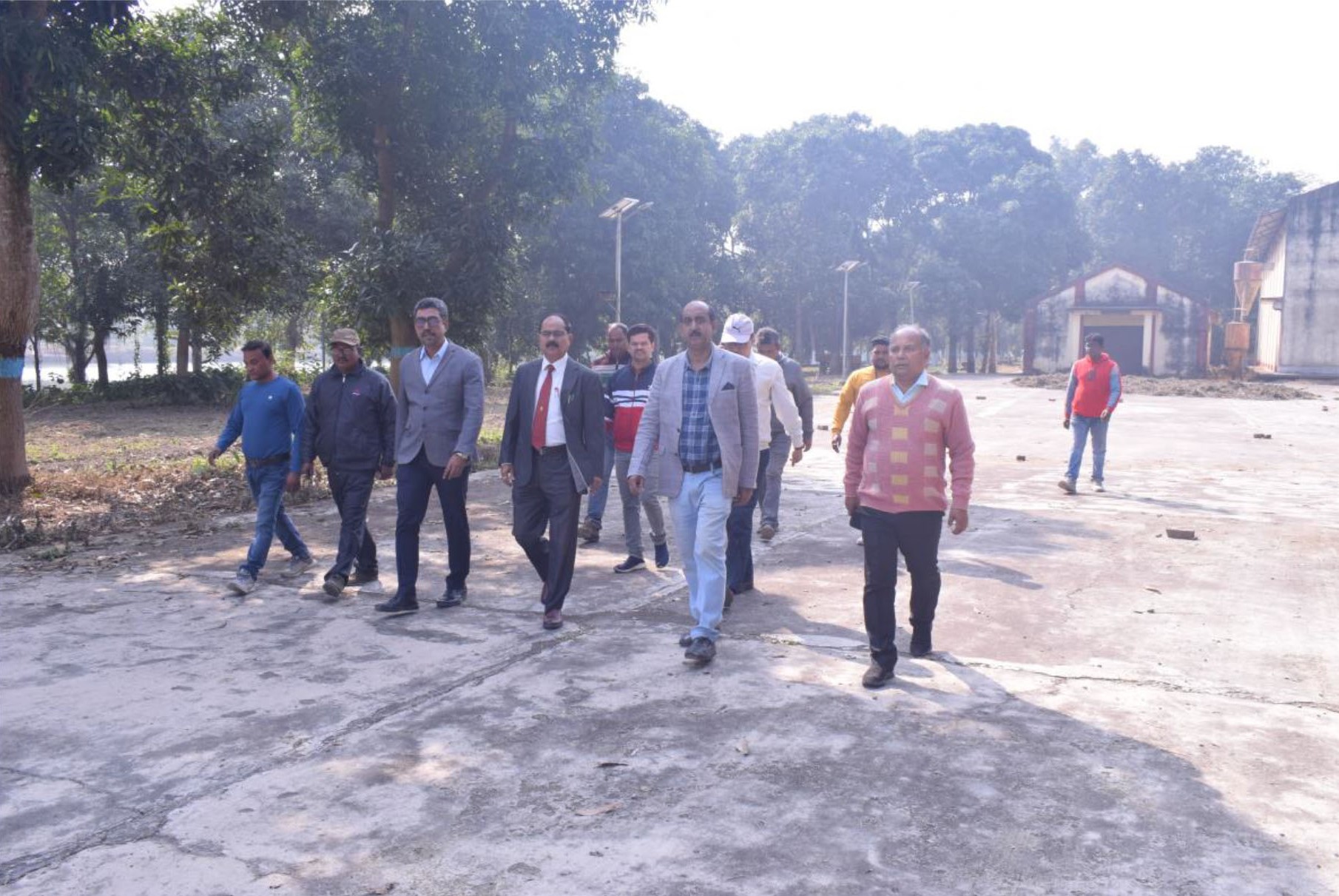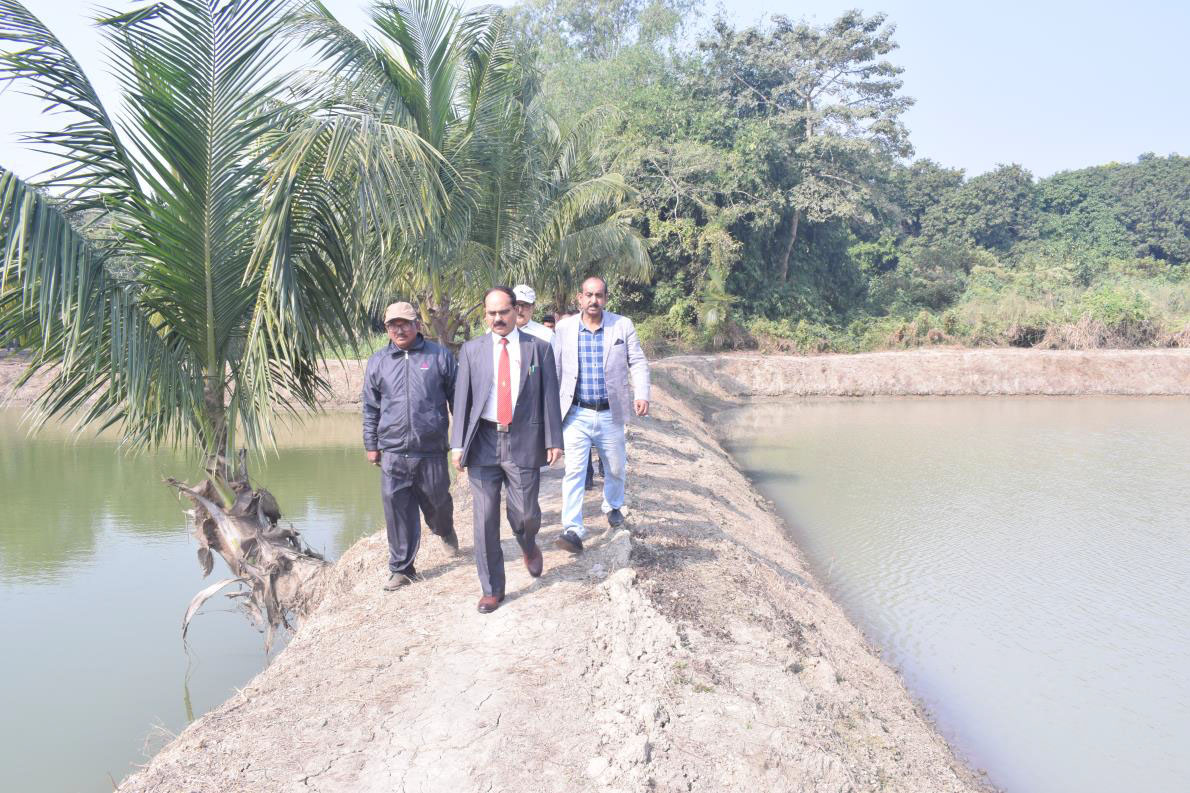VC's Diary
Embracing Sustainability: Eco-Friendly Holi Celebration with Herbal Abir (Gulal)
Nadia Krishi Vigyan Kendra (BCKV) has launched a programme to produce herbal, water‑soluble, pH‑safe abir from surplus flowers and vegetables like marigold, rose, bougainvillea, spinach, beetroot, carrot and turmeric reducing waste and promoting sustainability. Trained local producers, with support from Ranaghat Agro Producer Company and technical guidance from Nadia KVK, aim to produce two tonnes annually.
By converting low‑value surplus (≈ Rs 5/kg) into processed herbal abir (≈ Rs 50/kg), the initiative boosts farmers’ incomes, reduces post‑harvest waste, and fosters rural entrepreneurship. It promotes sustainable agriculture and offers safer, eco‑friendly colours for Holi — vibrant celebrations that care for people and the planet. A significant step toward greener festivals and stronger rural livelihoods.
🌾Advancing Science, Sustainability, and Stewardship at BCKV 🌾
This week, Bidhan Chandra Krishi Viswavidyalaya (BCKV) made significant progress in agricultural extension, hosting three distinct programs designed to empower scientists, tribal farmers, and women entrepreneurs.
1. Strengthening the KVK Ecosystem The HRD training on "Improved Technologies for Sustainable Crop Production" brought together scientific staff from six South Bengal KVKs. Presided over by Hon’ble VC Dr. Ashok K. Patra and Dr. P. Dey (Director, ICAR-ATARI), the session focused on bridging the gap between research and field reality. The roadmap is clear: prioritize digital agriculture, soil health, and location-specific action plans to combat climate change.
2. Jute Innovation & Women Empowerment With West Bengal expecting a 5–10% increase in jute acreage, our AINPJAF Unit moved swiftly to ensure farmers look beyond raw fiber. Thirteen female SCSP farmers from Nadia completed a week-long intensive training on Jute Fibre-based Handicrafts. Under the guidance of Dr. Anita Roy and Dr. Sonali Biswas, these women are now skilled in making rugs and braids—shifting the focus from common sacks to high-value, sustainable livelihoods.
3. Water Stewardship in the Red & Lateritic Zone Furthering our commitment to inclusive growth, a Farmers’ Training-cum-Awareness Programme on Judicious Irrigation Water Management was held at RRSS, Shekampur, Birbhum. Funded by ICAR-IIWM, this TSP initiative engaged 30 tribal farmers. Experts, including Prof. P. Bandopadhyay and Dr. Ratneswar Poddar, led sessions on water-use efficiency and micronutrient management, culminating in a vibrant Farmer-Scientist interaction to solve site-specific ecological challenges.
Together, these initiatives reaffirm BCKV's mission: sustainable water management, participatory extension, and economic resilience for all.
🌾🌱National Conference of Indian Phytopathological Society (IPS) Successfully Concludes at BCKV🌾🌱
The 78th National Conference of the Indian Phytopathological Society (IPS) successfully concluded on February 20, 2026, at the Farmers’ Academy and Convention Centre (FACC), Bidhan Chandra Krishi Viswavidyalaya (BCKV), Kalyani. Held from February 18 to 20, the three-day event focused on the theme “Plant Health and Sustainable Disease Management in the Current Context.” Approximately 300 prominent scientists, researchers, agricultural officers, industry representatives, and farmers from across India participated in the program.
The conference was inaugurated by the Chief Guest, Shri Pradip Kumar Mazumdar, Hon’ble Minister-in-Charge, Panchayat & Rural Development and Co-operation, Government of West Bengal. In his address, he emphasized improving farm income through effective and sustainable disease management. He noted that plant diseases remain a serious threat to productivity due to climate variability and evolving pathogens. He stressed that management approaches must be environmentally sustainable, economically viable, and socially acceptable.
Other speakers included BCKV Vice-Chancellor Dr. Ashok Kumar Patra, Former ASRB Chairman Dr. C.D. Mayee, Former ASRB Member Dr. P.K. Chakrabarty, IPS President Dr. Dinesh Singh, and IPS Secretary Dr. Kajal Biswas. Organizing President Dr. B.N. Panja and Secretary Dr. Goutam Mondal outlined the objectives of the meet. During the inaugural session, several awards were conferred for outstanding contributions to plant pathology, including the A. P. Mishra Lifetime Achievement Award, IPS Recognition Award, IPS Best Corporate Award, and IPS Fellow Award.
Technical sessions at the conference addressed the spread of new plant diseases caused by climate change, their economic impact, and prevention strategies. Discussions highlighted the use of Artificial Intelligence (AI) in disease diagnosis, data-driven forecasting, and Integrated Disease Management (IDM). The event also featured direct dialogues between scientists, farmers, and industry leaders to help move research from laboratories to the field. An exhibition was held alongside the sessions to showcase modern agricultural technologies, biocontrol products, and innovative solutions.
In conclusion, experts emphasized that long-term food security depends on the seamless coordination of research, technology, and policy. The conference stands as a significant milestone for the future of agricultural protection, providing a clear roadmap for achieving a self-reliant and climate-resilient farming sector. This collaborative effort is expected to accelerate the adoption of green technologies, ensuring that Indian agriculture remains both productive and sustainable for generations to come.
🌾✨75th Annual General Meeting State Agricultural Technologists' Service Association (SASTA) West Bengal🌾✨
🌾✨Nurturing Innovation & Empowering Farmers: 20 Years of Nadia KVK! 🌾✨
The Nadia Krishi Vigyan Kendra (KVK), BCKV, under the aegis of the Indian Council of Agricultural Research (ICAR), marked a significant milestone on February 5, 2026, by celebrating its Establishment Day with a high-impact double event: the 20th Scientific Advisory Committee (SAC) Meeting and a vibrant Mini Farmers’ Fair. Held at the Nadia KVK campus in Gayeshpur, the day was a powerful testament to the synergy between scientific research and grassroots farmer empowerment.
The proceedings were formally inaugurated by Dr. Ashok Kumar Patra, Vice-Chancellor of BCKV, in the presence of Dr. Pradip Kumar Dey, Director, ICAR-ATARI, Kolkata (who joined virtually), and several esteemed dignitaries from the national and state levels. A key highlight of the SAC meeting was the presentation by Dr. Malay Kumar Samanta, In-Charge, Nadia KVK, who detailed the center’s recent achievements and laid out a strategic future action plan. The committee’s discussions focused on strengthening the vital research–extension linkage to ensure that laboratory innovations translate effectively into field-level success, an effort warmly appreciated by the Hon’ble Vice-Chancellor in his address.
Infrastructure took center stage as the Hon’ble Vice-Chancellor inaugurated a suite of newly created facilities, including a modern Training Hall, an Incubation Unit, and a Duck Shelter, all designed to enhance the KVK's capacity for hands-on training. This was followed by a spirited Farmers–Scientists Interaction, where local growers engaged in direct dialogue with experts to tackle pressing technical challenges. The energy continued into the afternoon with the Mini Farmers’ Fair, where the community gathered to celebrate excellence. Progressive farmers, DAESI graduates, and PPV&FRA contributors were publicly felicitated for their dedication to sustainable practices, followed by an input distribution programme and a concluding press meet.
Through this blend of strategic planning and community celebration, Nadia KVK continues to reinforce its role as a beacon of agricultural progress in West Bengal.
"Field to Future: Strengthening Oilseed Productivity and Soil Resilience"
The Regional Research Station (RRSS, BCKV)) at Chakdah recently hosted a strategic visit by the Hon’ble Vice-Chancellor, Dr. Ashok K. Patra, who was accompanied by the Director of Research, the Director of Farms, and the Deputy Director of Research. The visit provided an opportunity for a review of the standing mustard crop and allowed for a direct exchange of insights between university leadership, research scientists, and field staff. This assessment focused on the practical performance of current varieties and the effectiveness of management practices (e.g., zero tillage, residues mulching) currently employed at the station.
During the interaction, Dr. Patra focused on the critical need to strengthen the popularization and large-scale adoption of mustard varieties developed by the Vishwavidyalaya. He noted that the transition of university research into the hands of the farming community is a primary driver for enhancing regional productivity. By ensuring that high-yielding and resilient varieties reach the field, the University aims to directly impact farmers’ livelihoods through improved output and increased income potential.
Furthering the discussion on modern agricultural challenges, the Vice-Chancellor emphasized the integration of sustainable practices within the farming system. He advocated for the on-farm production of vermicompost and traditional compost as a means to improve soil health and reduce overall input costs. This approach not only supports the biological integrity of the soil but also promotes an eco-friendly farming model that reduces reliance on chemical fertilizers.
The visit concluded by reinforcing the University’s commitment to research-driven and farmer-centric innovations. By balancing the drive for higher oilseed production with a focus on long-term sustainability, the institution continues to lead efforts in creating a more resilient and self-reliant agricultural sector. This holistic strategy ensures that scientific advancements contribute to both immediate food security and the long-term health of the environment.
Science in Bloom: Navigating the Future of Horticulture and Floriculture at BCKV
The landscape of horticultural research is rapidly evolving, and at Bidhan Chandra Krishi Viswavidyalaya (BCKV), we are ensuring that scientific rigor translates directly into prosperity for the farming community. On January 28th, 2026, the university marked a significant milestone with a dual-focus agenda centered on high-value crop research and the vibrant celebration of floricultural diversity.
Advancing Research Frontiers: The HRS Mondouri Visit. The day commenced with an intensive field review at the Horticultural Research Station (HRS), Mondouri, led by Vice-Chancellor Dr. Ashok K. Patra, alongside the Director of Research, the Director of Farms, and the Officer-in-Charge of the AICRP on Palms. The primary focus was the All India Coordinated Research Project (AICRP) on Palms, where ongoing experiments in coconut cultivation were scrutinized for their scientific impact and practical scalability. Beyond the coconut fields, the delegation explored experimental plots dedicated to medicinal and aromatic plants. The review emphasized a holistic approach to horticulture—one that prioritizes varietal evaluation and integrated crop management to ensure that sustainability and increased farmer income remain at the heart of our research initiatives.
Celebrating Innovation: Flower Day 2026. Transitioning from the research plots to the display fields, the university celebrated Flower Day 2026. This event, organized under the AICRP on Floriculture, showcased why BCKV is recognized as a leading center under ICAR–DFR, Pune. The air was filled with the fragrance of progress as the university unveiled its proprietary varieties, including Marigolds (Bidhan Basanti and Bidhan Gold) and Tuberoses (Bidhan Snigdha and Bidhan Ujjwal). The exhibition featured an incredible genetic repository of 214 Chrysanthemum and 70 Dahlia genotypes, drawing interest from government officials and over 35 dedicated flower growers. A key highlight of the celebration was the release of two technical manuals focusing on cultivation and post-harvest management, bridging the gap between academic knowledge and field application.
The Vision Ahead: Driving Impactful Change. This day was more than a series of visits; it was a reaffirmation of our mission. The future of Indian horticulture lies in technological refinement and the seamless dissemination of research outcomes. Moving forward, BCKV is committed to a roadmap of future-oriented research that anticipates the challenges of climate change and market fluctuations. By empowering our farming community with high-yielding varieties and modern management protocols, we are not just observing progress—we are driving it. The synergy between our scientists, technical staff, and farmers ensures that the seeds of research sown today will lead to a more resilient and profitable agricultural tomorrow.
BCKV Hosts Landmark State-Level Workshop to Empower West Bengal’s Aromatic Rice Sector
Bidhan Chandra Krishi Viswavidyalaya (BCKV) successfully organized a two-day State-level Workshop on 29 January 2026, titled “Production, Marketing and Geographical Indication of Aromatic and Special Rice of West Bengal.” Held at the Mohanpur campus, the event was organized under the RKVY Project in collaboration with Uttar Banga Krishi Viswavidyalaya and Paschimbanga Agri Marketing Corporation Limited. The inaugural session was presided over by the Honourable Vice-Chancellor of BCKV, Dr. Ashok K. Patra.
In his presidential address, Dr. Patra underscored the necessity of a "seed-to-market" approach for the sustainable development of aromatic rice. He highlighted the critical importance of ensuring high-quality seed availability for the farming community and urged a deeper focus on the economics of cultivation, global branding, and the mitigation of climate change impacts. To mark the occasion, Dr. Patra released a documentary video and two specialized books, further enriching the University’s academic and extension resources.
The workshop featured significant contributions from Prof. Subhra Mukherjee (Director of Research, BCKV) and Prof. Mrityunjay Ghosh (PI, RKVY Project), who detailed the significance of the RKVY project and the rigorous legal journey toward securing Geographical Indication (GI) status. A highlight of the program was the distribution of GI certificates among invited dignitaries, signifying a major step in protecting the regional identity of West Bengal’s unique rice varieties.
Beyond the inaugural events, the technical sessions provided a deep dive into the sector's future. Expert speakers delivered a series of influential lectures covering the “Production, Marketing and Geographical Indication of Aromatic Rice of West Bengal,” the “Prospects of Aromatic Rice in West Bengal for Rural Development,” and the broader “Prospects and Future Strategies for Aromatic Rice in Eastern and North-Eastern India.” These sessions were enriched by insights from esteemed experts representing
NABARD, IRRI-SARC, ICAR-NRRI, and the Department of Agriculture, Government of West Bengal.
Main Achievements and Program Usefulness
Institutional Synergy: The program successfully bridged the gap between academic research, government policy, and international expertise (IRRI, ICAR), creating a unified roadmap for agricultural growth.
Heritage Protection & Branding: By demystifying the GI process and distributing certificates, the workshop empowered stakeholders to leverage legal protections, paving the way for transforming traditional rice varieties into profitable, globally recognized brands.
Economic Empowerment: The focus on cultivation economics and seed quality ensures that scientific advancements translate into tangible financial benefits for the farming community, securing sustainable rural livelihoods.
Knowledge Archiving: The release of documentary media and specialized literature provides a lasting resource for extension workers, students, and researchers, ensuring the workshop's impact extends far beyond the two-day event.
🌾🌎A Legacy of Sacrifice, A Pledge for Progress: 77th Republic Day at BCKV🌎🌾
Bidhan Chandra Krishi Viswavidyalaya observed India’s 77th Republic Day today with deep solemnity and patriotic fervour. Following the hoisting of the National Tricolour by Hon’ble Vice-Chancellor Dr. Ashok K. Patra, the university community gathered to reflect on the essence of our democratic foundation.
In his address, Dr. Patra paid homage to the martyrs of our independence movement, urging the gathering to deeply contemplate the monumental struggles and selfless contributions that paved the way for our liberty. He noted that our freedom is a sacred trust, inherited from those who gave their all, and dwelled upon the significance of the Constitution as our moral compass.
Turning to the students, the Vice-Chancellor emphasized that the future of India rests on their shoulders. He exhorted the youth to realize that their dedication to science and research is a direct act of nation-building, and it is their responsibility to shape a resilient, prosperous India through academic excellence.
Addressing the employees, Dr. Patra called for unwavering sincerity, dedication, and a positive spirit to drive the university’s development. He acknowledged that BCKV has reached its current stature through the genuine sacrifices of hundreds of predecessors who built this institution. He stressed that it is the collective responsibility of everyone to uphold this legacy and, in the current scenario, strive to achieve "More from Less for More"—creating greater impact with limited resources for the benefit of the farming community and the nation.
The commemoration concluded with a renewed commitment by the entire BCKV fraternity to balance fundamental rights with duties and to serve the nation through our core mission.
Jai Hind!
🌱🌾BCKV Graced by Distinguished Visit and Hon'ble CM’s Appreciation 🌾🌱
Yesterday evening, the BCKV campus was graced by the presence of Shri Pradip Mazumdar, Hon’ble Minister-in-Charge, Rural Development and Panchayat & Cooperation Department, and Ms. Dola Sen, Hon’ble MP (Rajya Sabha).
On this occasion, the dignitaries presented the #UnnayonerPanchali box and a letter of appreciation from the Hon’ble Chief Minister of West Bengal to Dr. Ashok K Patra, Hon'ble Vice-Chancellor of BCKV. The #UnnayonerPanchali highlights Bengal’s 15-year journey of development, placing special emphasis on the State Government's proactive initiatives and shared commitment toward the advancement of the agricultural sector and the welfare of farmers.
The visit also included a productive interaction with the administration regarding student affairs and institutional matters. The university extends its sincere gratitude to the dignitaries for their valuable time and their assurance of continued support for BCKV’s future endeavours.
🌱🌱World Soil Day 2025: BCKV Leads a Global Movement to Ground Our Future🌱🌱
“Healthy Soils for Healthy Cities.” : This isn’t just a theme; it is a mandate for our survival. Today, on World Soil Day 2025, Bidhan Chandra Krishi Viswavidyalaya (BCKV) transformed this mandate into a massive demonstration of stewardship, echoing from our main campus in Mohanpur and our colleges, centres and KVKs across the region.
🔹 The Spectacle: A Sea of White In a display of unity, Hon’ble Vice-Chancellor Dr. Ashok K. Patra led a majestic march of over 800 faculty, staff, and students. Clad in white T-shirts and caps, participants turned the streets into a canvas of awareness, carrying banners, placards and distributing leaflets. The meticulous organization ensured full medical support was on standby, allowing us to focus solely on the message. The march culminated in a solemn “Pledge to Save Soil,” administered by the Hon’ble VC.
🔹 The Next Generation: We believe awareness starts young. Students from Gopal Academy, Rajlakshmi Academy, Rabitirtha Vidyalaya, and Experimental School engaged in spirited painting and quiz contests and prize distribution. A unique highlight was the premiere of “Soil’s Song,” an original composition for this WSD by BCKV students, followed by the emotive state song, “Banglar Mati, Banglar Jal....,” rooting our global mission in local culture.
🔹 Global Minds, Local Stewardship: Rural-Urban Soil Stewardship: The afternoon seminar, chaired by Prof. R. K. Kole and co-chaired by Dr. Abhijit Saha, bridged the gap between rural production and urban health. Following the release of new soil-centric publications, Dr. Ashok K. Patra delivered a keynote on the national crisis of Soil Degradation. We were honored to host a stellar panel of international and national experts:
Dr. Asim Biswas (Univ. of Guelph, Canada): Modern Tools for Soil Health.
Dr. Binoy Sarkar (Univ. of South Australia): Carbon-negative Amendments.
Prof. S. K. Sanyal (Former VC, BCKV): Arsenic in the Food Chain.
Dr. Tarunendu Singh & Dr. Prokash Dutta (IFFCO): Nano-Technology & Sustainable Initiatives.
This celebration is a declaration: BCKV is committed to advancing soil science for a resilient, food-secure future.
🌾👩🌾Cultivating Change: BCKV Champions Women in Agriculture🌾👩🌾
Setting a powerful precedent ahead of the FAO’s International Year of the Woman Farmer (2026), Bidhan Chandra Krishi Viswavidyalaya (BCKV) celebrated Women in Agriculture Day on December 4, 2025. Organized by the BCKV Women Academicians, the event centred on the theme, “Empowering Rural Women for Agriculture-Based Livelihood Security.”
The campus came alive as a vibrant hub of collaboration, uniting over 150 women farmers from across West Bengal with renowned scientists, policymakers, and administrative leaders. The event served as a dynamic platform for knowledge exchange, further illuminated by dedicated stalls where Women Self-Help Groups (SHGs) showcased their entrepreneurial prowess through diverse farm-based and value-added products.
The programme was elevated by the presence of distinguished dignitaries, including Dr. Tirtha Kumar Datta (Hon’ble Vice-Chancellor, WBUAFS), Prof. Sampa Das (Former Professor, Bose Institute), Dr. Aparna Roy (ICAR-CIFRI), Dr. Samna A. (ICAR-CRIJAF), and Mrs. Mahasweta Biswas (BDO, Haringhata). A significant highlight was the release of the edited volume, “Integrating Science and Farming: Women’s Role in Agricultural Transformation,” authored by the women faculty of BCKV.
In his inaugural address, Dr. Ashok K. Patra, Hon’ble Vice-Chancellor of BCKV, described women as the "unseen architects of global food systems," urging them to harness modern technology, diversify enterprises, and strengthen collective networks. Chief Guest Prof. Sampa Das echoed this sentiment, advocating for value addition and digital marketing as vital tools for economic independence.
Adding a critical perspective on allied sectors, Dr. Tirtha Kumar Datta lauded the resilience of the farming community. He remarked, “Women are the natural custodians of integrated farming; their ability to seamlessly manage livestock alongside crop cultivation is key to ensuring sustainable income and nutritional security in rural India.”
The technical sessions provided actionable insights into agricultural innovations and government schemes. These discussions were brought to life by the inspiring success stories of Mrs. Rina Bhaduri (West Bengal) and Mrs. Bandana Kumari (Bihar), whose journeys demonstrated how determination can redefine rural livelihoods.
Overall, the celebration was not just an event but a declaration of BCKV’s enduring commitment to gender-inclusive development, recognizing women not just as beneficiaries, but as essential change-makers in the agricultural landscape.
🌱𝐄𝐦𝐩𝐨𝐰𝐞𝐫𝐢𝐧𝐠 𝐎𝐫𝐜𝐡𝐚𝐫𝐝 𝐆𝐫𝐨𝐰𝐞𝐫𝐬 𝐓𝐡𝐫𝐨𝐮𝐠𝐡 𝐒𝐜𝐢𝐞𝐧𝐜𝐞-𝐋𝐞𝐝 𝐖𝐢𝐧𝐭𝐞𝐫 𝐚𝐧𝐝 𝐒𝐩𝐫𝐢𝐧𝐠 𝐌𝐚𝐧𝐚𝐠𝐞𝐦𝐞𝐧𝐭 𝐓𝐫𝐚𝐢𝐧𝐢𝐧𝐠🌱
A one-day training programme on “Orchard Management during Winter and Spring Season” was successfully organised by the ICAR–AICRP on Fruits, BCKV Centre, at the Fruit Research Station, Mandouri, on 27th November 2025. The programme brought together motivated farmers from the Scheduled Caste community across West Bengal, reflecting BCKV’s continued commitment to inclusive growth and knowledge-driven empowerment.
The event was graced by the Hon’ble Vice-Chancellor Prof. Asok K Patra as Chief Guest, along with Prof. Subhra Mukherjee, Director of Research, and Prof. Jitesh Kumar Hore, Dean, Faculty of Horticulture. In his address, the Hon’ble Vice-Chancellor highlighted the importance of adopting scientific orchard management practices to enhance fruit yield, resilience, and profitability, inspiring participants to embrace new technologies with confidence.
The programme featured expert lectures by scientists of AICRP on Fruits, followed by interactive discussions on pruning, canopy management, nutrient scheduling, pest and disease control, and water-efficient practices. To support on-farm implementation, farmers were provided with essential inputs such as fertilizers, micronutrients, plant protection chemicals, small farm tools, and fruit plant saplings, enabling them to initiate scientific orchard development at the grassroots level. A field visit led by the Hon’ble Vice-Chancellor offered practical insights and recommendations for improving orchard health and long-term productivity.
This training exemplifies BCKV’s mission to take cutting-edge horticultural science directly to the field, strengthening livelihoods and advancing sustainable, equitable agricultural development.
🌾🌾𝐒𝐭𝐫𝐞𝐧𝐠𝐭𝐡𝐞𝐧𝐢𝐧𝐠 𝐀𝐠𝐫𝐢𝐜𝐮𝐥𝐭𝐮𝐫𝐚𝐥 𝐄𝐱𝐭𝐞𝐧𝐬𝐢𝐨𝐧: 𝐈𝐧𝐚𝐮𝐠𝐮𝐫𝐚𝐭𝐢𝐨𝐧 𝐨𝐟 𝐎𝐧𝐞-𝐘𝐞𝐚𝐫 𝐃𝐀𝐄𝐒𝐈 𝐓𝐫𝐚𝐢𝐧𝐢𝐧𝐠 𝐏𝐫𝐨𝐠𝐫𝐚𝐦𝐦𝐞🌾🌾
The Diploma in Agricultural Extension Services for Input Dealers (DAESI) Training Programme for Batch 15 & 16 was inaugurated on 25th November 2025 at FACC, BCKV, Kalyani, with the Hon’ble Vice Chancellor, Dr. Ashok K. Patra, presiding over the session.
Senior university officials—Prof. Pallab Dutta (Director of Extension Education), Prof. Jitesh Hore (Dean, Faculty of Horticulture), Dr. Kuntal Chakravarty (Deputy Registrar), and Dr. Kusal Roy (Course Coordinator)—graced the occasion, joining the eighty trainees enrolled in the new one-year programme.
The ceremony commenced with the lamp-lighting ritual and a welcome song. Messages from SAMETI, West Bengal, and insights from officials of the Department of Agriculture highlighted the growing need for scientifically trained agri-input advisors. A short NTI video presentation offered an overview of the programme’s objectives and structure.Purpose and Benefits of DAESI.
The DAESI programme is designed to professionalize agricultural input dealers, equipping them with evidence-based knowledge in:• Seeds, fertilizers, and pesticides
• Soil health and nutrient management
• Crop protection and good agricultural practicesThrough this training, participants are empowered to:
• Deliver accurate, responsible, and science-backed advisories to farmers
• Encourage safe and judicious input use, reducing environmental risks
• Strengthen last-mile extension services at the village level
• Promote sustainable, productive, and climate-resilient farmingFollowing the inaugural session, an interactive technical class by Dr. Kusal Roy and Mr. Chiranjit Shil set a positive momentum for the programme ahead.
The event reinforced BCKV’s ongoing commitment to building a competent, knowledgeable, and service-oriented agricultural extension workforce to support farmers across the region.
89th Annual Convention held at Tamil Nadu Agricultural University (TNAU),18 November 2025
Dr. Ashok K. Patra, Vice Chancellor, Bidhan Chandra Krishi Viswavidyalaya (BCKV), was conferred the Honorary Membership of the Indian Society of Soil Science (ISSS) on 18 November 2025 during the 89th Annual Convention held at Tamil Nadu Agricultural University (TNAU), Coimbatore, from 18–21 November 2025. The honour was presented in the Inaugural Session by Dr. Hiimanshu Pathak, President of ISSS, who is also the Director General, ICRISAT, and former Secretary, DARE & Director General, ICAR.
Recognised as the highest distinction of the Society, the Honorary Membership was awarded to Dr. Patra for his outstanding contributions and scientific leadership in advancing sustainable soil management. Established in 1934 at Kolkata and now headquartered in New Delhi, ISSS is one of India’s oldest and most prestigious scientific societies, with over 2,500 members committed to promoting excellence in soil research, education, and extension for sustainable and productive agriculture.
The inaugural ceremony featured addresses by eminent leaders including Dr. S. K. Chaudhari, Director General, FAI and Hon’ble Vice Chancellor of TNAU, along with senior scientists, academicians, and policymakers. Nearly 500 delegates from India and abroad participated, underscoring the growing national and international collaboration in confronting soil health challenges, climate resilience, and sustainable agricultural development.
The conferment of this highest honour on Dr. Patra stands as a recognition of his distinguished career and his outstanding contributions to soil science at both national and global levels, and marks a proud moment for the entire BCKV community.
"Tribute to the Founding Visionary: Prof. S. B. Chattopadhyay’s Birth Anniversary Celebrated at BCKV"
Bidhan Chandra Krishi Viswavidyalaya (BCKV) celebrated the birth anniversary of its first Vice-Chancellor, Prof. S. B. Chattopadhyay, on 1st November 2025. On this occasion, Hon’ble Vice-Chancellor Dr. Ashok K. Patra offered floral tributes by garlanding Prof. Chattopadhyay’s statue at the University Library and Administrative Building, joined by Deans, Directors, faculty members, and students.
As the founding Vice-Chancellor since BCKV’s inception in 1974, Prof. Chattopadhyay laid the strong foundation of the first agricultural university of West Bengal. With visionary leadership and the support of dedicated colleagues, he transformed BCKV into a centre of excellence in agricultural education, research, and extension. His emphasis on strengthening the University’s farms and outreach programmes established a model of holistic agricultural development.
A humble scholar and inspiring teacher, Prof. Chattopadhyay guided 26 Ph.D. students, published over 150 research papers, and authored four books. His life and work continue to inspire generations, and BCKV proudly honours his enduring legacy of dedication, simplicity, and academic excellence.
🌾🌱Empowering Farmers for High-Quality Paddy Seed Production through Advanced Technologies🌱🌾
Seed is the foundation of agricultural productivity and food security. Recognizing its critical importance, Farmers’ Meetings are being organised time to time by BCKV. One such programme on “High-Quality Paddy Seed Production with Improved Technologies” was organized at the Regional Research Sub-Station (RRSS), Chakdah, under the aegis of Bidhan Chandra Krishi Viswavidyalaya (BCKV) on 31 October.
The programme was inaugurated by Dr. Ashok K. Patra, Hon’ble Vice-Chancellor, BCKV, who underscored the pivotal role of quality seed in enhancing crop yield and farm income. He urged farmers to adopt scientific methods and modern technologies for seed production while maintaining soil health and promoting organic cultivation for long-term sustainability.
The event was graced by Prof. Subhendu Bikas Goswami, Registrar, Prof. Subhra Mukherjee, Director of Research, Dr. Sudhibrata Mitra, Director of Farms, Prof. C. R. Sadhpati, In-Charge, RRSS, Chakdah, Dr. Prabir Chakraborty, Nodal Officer, ICAR–Mega Seed Project, and Dr. Amitabha Banerjee, Assistant Director of Extension, who shared their insights on strengthening the seed production chain from breeder to certified seed.
Technical experts from the University delivered detailed sessions on soil testing, varietal selection, seed certification, genetic purity maintenance, integrated pest and disease management, and post-harvest seed handling.
The programme witnessed active participation from farmers, who enthusiastically exchanged their field-level experiences. The event concluded with an interactive session and the distribution of extension literature on scientific seed production techniques, reaffirming BCKV’s commitment to empowering farmers with knowledge and technology for sustainable agricultural advancement.
🌾🌱𝐑𝐚𝐦𝐚𝐤𝐫𝐢𝐬𝐡𝐧𝐚 𝐌𝐢𝐬𝐬𝐢𝐨𝐧 𝐕𝐢𝐝𝐲𝐚𝐩𝐢𝐭𝐡 𝐀𝐠𝐫𝐢𝐜𝐮𝐥𝐭𝐮𝐫𝐞 𝐂𝐨𝐥𝐥𝐞𝐠𝐞 𝐈𝐧𝐚𝐮𝐠𝐮𝐫𝐚𝐭𝐢𝐨𝐧:𝐀 𝐌𝐢𝐥𝐞𝐬𝐭𝐨𝐧𝐞 𝐟𝐨𝐫 𝐏𝐮𝐫𝐮𝐥𝐢𝐚’𝐬 𝐑𝐮𝐫𝐚𝐥 𝐃𝐞𝐯𝐞𝐥𝐨𝐩𝐦𝐞𝐧𝐭🌱🌾
The inauguration of the Ramakrishna Mission Vidyapith Agriculture College, Purulia, on October 25, 2025, marked a historic milestone in the district’s journey toward academic excellence and sustainable rural transformation. Affiliated with Bidhan Chandra Krishi Viswavidyalaya (BCKV) and supported by the Government of West Bengal, this newly established institution holds special significance in the region —symbolizing the confluence of spiritual heritage and scientific advancement in agriculture.
The two-day celebration commenced on October 24 with the inauguration of a grand Krishi Mela (Agricultural Fair) by the Most Revered Swami Suviranandaji Maharaj, General Secretary of Belur Math and the Ramakrishna Mission. The fair provided a vibrant platform to showcase modern agricultural innovations, sustainable technologies, and farmers’ success stories, drawing wide participation from cultivators, students, scientists, and agricultural entrepreneurs. The Ramakrishna Mission Vidyapith Agriculture College aspires to transcend the conventional paradigms of agricultural education by integrating scientific rigor with ethical and humanistic values. It envisions nurturing a new generation of technically proficient and socially responsible agricultural professionals. The enthusiastic enrolment of girl students in the inaugural batch reflects the Mission’s enduring commitment to inclusive and gender-equitable development. Situated in the drought-prone and resource-constrained region of Purulia, the college is poised to become a centre of excellence for region-specific agricultural innovation. Guided academically by BCKV and working in close collaboration with governmental departments, research institutions, and non-governmental organizations, it will focus on climate-resilient farming systems, soil and water conservation, integrated farming, and livelihood diversification—thereby contributing directly to the food, nutrition, and ecological security of western West Bengal. The entire programme was meticulously organized under the divine guidance of Swami Shivapradananda Maharaj, Secretary, Ramakrishna Mission, Purulia, whose vision and leadership ensured the event’s resounding success. The occasion was graced by the Hon’ble Judge of the Supreme Court of India, Hon’ble Ministers, the Hon’ble Sabhadhipati of Purulia Zilla Parishad, the Vice-Chancellor and experts from BCKV, Mohanpur, Kalyani, Vice-Chancellor of SKBU, Purulia, Chairman, Purulia Municipality, Superintendent of Police, Purulia members of Kalyan Krishi Vigyan Kendra, NGOs, farmers, and hundreds of students, making it a truly historic and inspiring occasion for the people of Purulia and beyond.
BCKV Vice-Chancellor Witnesses the Success of Integrated Farming Systems in Bankura on 22.10.2025
To review the progress of the All India Coordinated Research Project on Integrated Farming Systems (AICRP-IFS), a high-level delegation from Bidhan Chandra Krishi Viswavidyalaya (BCKV) visited farm households in Housibad village, Chhatna Block, Bankura district, West Bengal. The delegation was led by the Hon’ble Vice-Chancellor of BCKV, Dr. Asoke K. Patra, and included Prof. Susanta Kumar De (Associate Dean, Bankura College of Agriculture), Sri Subhasis Batabyal (Chairman, State Seed Corporation), Sri Swapan Kumar Chakraborty (Secretary, Gosaidihi Astha Co-operative Society), and Prof. Manabendra Ray (Chief Agronomist and Project Officer-in-Charge).
The AICRP-IFS unit at BCKV, Mohanpur, has been conducting significant on-farm research across the Chhatna and Bankura-I blocks of the district. The project focuses on two major experiments, namely diversification and improvement of existing farming systems and on-farm evaluation of different management practices.
During the visit, the dignitaries observed the remarkable impact of the AICRP-IFS interventions. Farmer Sri Gopal Mondal demonstrated his milk processing unit, established with support from the project. The team also witnessed successful crop diversification efforts, including the introduction of new crops such as blackgram (PU-31), arhar (Amaravati), groundnut (TAG-24), mosambi, and dragon fruit, along with new crop varieties and fodder cultivation initiatives. The program concluded with an interactive session involving 30 farmers, followed by the distribution of mustard seeds for Frontline Demonstrations (FLD) and fodder oat seeds under the Scheduled Caste Sub Plan (SCSP) activities.
In his address, Dr. Patra assured the farmers of continued technological and institutional support from BCKV, emphasizing the importance of maintaining soil health for sustainable productivity. Sri Subhasis Batabyal reaffirmed the commitment to ensuring a steady supply of quality seeds and saplings to farmers. The visit concluded with a vote of thanks delivered by Prof. Manabendra Ray.
🌱Natural Farming: Towards a Sustainable Agriculture in West Bengal🌱
A State-Level Consultation Workshop on Collectivized Natural Farming was held on October 10, 2025, at the Hotel Sonnet, Salt Lake, Kolkata, jointly organized by the University of Birmingham (UK) and the Centre for Development of Human Initiatives (CDHI), Jalpaiguri. The event brought together eminent policymakers, scientists, and development professionals to deliberate on strategies for promoting ecologically sound and economically viable farming systems for small and marginal farmers in West Bengal. Mr. Purnendu Basu, former Hon’ble Minister-in-Charge, Department of Agriculture, Government of West Bengal, in his address, emphasized the need to restore biodiversity and soil vitality that once characterized Bengal’s farming heritage. He stressed that natural farming offers a pathway to rejuvenate soil health, reduce dependency on costly external inputs, and ensure ecological balance in diverse agroecosystems.
Ms. Dola Sen, Hon’ble Member of Parliament, Government of India, highlighted that safe, chemical-free, and nutritious food should be accessible to every citizen. She underlined the crucial role of women and rural youth in scaling up natural and collective farming initiatives, advocating for the empowerment of self-help groups and cooperatives as key agents of transformation.
Delivering the Keynote Address, Dr. Ashok Kumar Patra, Vice-Chancellor, Bidhan Chandra Krishi Viswavidyalaya (BCKV), observed that while the Green Revolution ensured India’s food self-sufficiency, it also resulted in soil degradation, environmental pollution, and reduced factor productivity. He emphasized that a scientific understanding of nutrient dynamics and soil fertility management under natural farming systems is essential for long-term sustainability. Dr. Patra reaffirmed BCKV’s commitment to advancing research, innovation, and farmer-centric extension on natural and integrated farming systems, inviting the University of Birmingham and CDHI to develop collaborative projects for region-specific models in West Bengal.
Dr. Fraser Sugden (University of Birmingham) presented successful women-led collective farming models from West Bengal, Bihar, and Nepal, demonstrating how pooling of land, labour, and capital enhances productivity, market access, and irrigation efficiency. Professor Manabendra Ray (BCKV) elaborated on climate-resilient natural farming practices that improve soil carbon sequestration, reduce greenhouse gas emissions, and enhance drought resilience in districts such as Jhargram, Purulia, Bankura, and Paschim Burdwan of West Bengal. Dr. Subhabrata Panda from BCKV focused on Improving soil health through nature-based solutions for sustainable collectivized natural farming.
Many excellent presentations and success stories were shared by experts and practitioners, illustrating the potential of natural farming in India. The workshop concluded with a shared commitment to integrate ecological wisdom with collective action, paving the way for a resilient, inclusive, and climate-smart agricultural future where natural farming holds promising opportunities for West Bengal.
🌾🌾National Conclave on Sustainability, Productivity & Green Growth of Agriculture and Students’ Amrit Internship Program🌾🌾
The inaugural session of the two-day National Conclave on “Sustainability, Productivity and Green Growth of Agriculture”, along with the launch of the Students’ Amrit Internship Programme, was held at Bidhan Chandra Krishi Viswavidyalaya (BCKV), Mohanpur, on 18 -19thSeptember 2025.
Prof. S. K. Acharya, Dean (PG Studies), welcomed the gathering, emphasizing the need for collective efforts to address emerging challenges in agriculture.
Delivering the keynote address, Dr. Rajeev Ranjan, Senior Advisor, Indian Potash Limited (IPL), highlighted the vital link between sustainability and productivity. He elaborated on national policies and schemes supporting farmers, while underlining the economic viability of sustainable practices. . Dr. Ranjan also discussed about the Amrit Internship Programme, a unique initiative designed for rural youth, supported by specially crafted e-learning modules to provide insights into agricultural productivity and sustainability.
Dr. Gouranga Kar, Director, ICAR–CRIJAF, spoke on the 3R principles—reduce, recycle, reuse—as key pathways to resource conservation.
In his address, Hon’ble Vice-Chancellor, Dr. Ashok K. Patra, thanked the IPL Foundation for its support in creating this significant platform. He stressed the pressing impacts of climate change on Indian agriculture and highlighted the role of potassium in ensuring crop health and productivity. Urging students and interns to dedicate themselves with sincerity, he emphasized integrated approaches to soil, crop, and environmental sustainability for a greener future.
Other distinguished speakers included Ms. Nandini Roy, Mentor, IPL, Shri Nilanjan Sinha, Regional Director, NCDC, who emphasized the role of cooperatives and FPOs in enhancing farm returns; Prof. S. Mukherjee, Director of Research, BCKV, who stressed soil, crop, and environmental health; and Dr. P. K. Mani, Dean, Faculty of Agriculture, BCKV, who proposed the vote of thanks.
On the second day, a student workshop was organized with 50 participants of the IPL Students’ Amrit Internship. Nilanjan Sinha, Govinda Chandra Das, and Mahadev Pramanik engaged with students on cooperatives, soil health, organic farming, and evergreen agriculture. Later, Ms. Nandini Roy conducted a practical session on filling e-forms to collect data on farmers’ activities across villages of Nadia district. The Extension Department of BCKV coordinated the workshop.
The two-day conclave featured multiple technical sessions, where experts deliberated on themes including sustainability, productivity enhancement, climate change adaptation, resource conservation, and green growth in agriculture.
The programme was organized under the leadership of Dr. S. B. Goswami, Director of Extension Education and Dr. S. C. Kole Head, Department of Soil Science & Agricultural Chemistry, BCKV.
🌾🌾Towards Sustainable Gobindobhog Rice Production and Market Stability🌾🌾🌎
Gobindobhog rice, Bengal’s GI-tagged aromatic variety, is a pride of West Bengal with growing demand not only in India but also abroad. Its popularity has increased steadily over the years, thanks to the collective efforts of farmers, Bidhan Chandra Krishi Viswavidyalaya (BCKV), SAMETI, Sufal Bangla, the Government of West Bengal, and other institutions that have worked together to promote its cultivation, quality, and branding.
As reported in The Telegraph (14th September 2025), the recent steep rise in the price of Gobindobhog rice has, however, emerged as a pressing concern for both consumers and traders, particularly during the festive season. Prices have almost doubled within six months, driven by reduced production caused by cyclone-induced crop damage, unseasonal rains, and rising export demand, especially from Gulf countries. The situation is further aggravated by limited cultivation confined to a few districts, competition from other states, and inadequate access to quality seeds for growers. These challenges highlight serious vulnerabilities in production, supply chain, and price regulation.
To address this, Bidhan Chandra Krishi Viswavidyalaya (BCKV), in close collaboration with the Government of West Bengal, must develop a comprehensive strategy that expands cultivation area with improved agronomic practices, ensures timely availability of quality seeds, introduces climate-resilient crop management, and promotes farmer cooperatives for assured procurement. Equally important are policy interventions to balance exports with domestic availability, alongside strengthening storage, processing, and branding infrastructure. Such integrated measures are vital for protecting farmer interests, ensuring consumer affordability, and sustaining Gobindobhog’s unique identity in both domestic and international markets
Bidhan Chandra Krishi Viswavidyalaya Inaugurates 2025 Academic Year with Historic Parent-University Dialogue
Bidhan Chandra Krishi Viswavidyalaya (BCKV) formally commenced its academic session for the 2025 batch of B.Sc. (Agriculture) and B.Sc. (Horticulture) students today with an induction programme of unprecedented nature. For the first time in the institution's esteemed history, the event was distinguished by an interactive session held specifically for the parents of the new students, marking a significant step toward building a more integrated and supportive academic community.
The day began with the seamless admission of the incoming students and their parents into the university's hostels, followed by the formal induction ceremony.
The highlight of the ceremony was a heartfelt address by the Hon’ble Vice Chancellor, Dr. Ashok K. Patra, who spoke directly to the parents in attendance. He articulated a new vision for the university's relationship with students' families. "Your role does not conclude with your child's admission; rather, it evolves into a partnership with us," Dr. Patra explained. "Today, we initiate a bond of mutual trust and shared responsibility. We view you as integral partners in the educational and personal development of your children."
To formalize this commitment, the Vice Chancellor announced the establishment of the 'Parent-Connect Programme'. This structured initiative will facilitate regular online engagement between the university administration and parents, ensuring they are consistently updated on their ward’s progress and achievements. The programme is founded on the principle of transparent, two-way communication, where parental insights are actively sought and valued.
Addressing the students, Dr. Patra spoke of the profound responsibility they now carry as members of the BCKV community. He implored them to become torchbearers of the university’s legacy of excellence and to dedicate themselves to solving the critical challenges facing Indian agriculture. "Beyond your academic pursuits, you will learn invaluable life skills here—resilience, leadership, and sound judgment," he advised. "You are the future of a sustainable, technology-driven agricultural sector. We call upon you to dream big, adhere to a strong ethical compass, and strive to innovate for the betterment of society."
The Vice Chancellor reiterated the university’s foundational pillars for the new batch:
* A profound commitment to agriculture as a service to the nation.The cultivation of academic rigor and curiosity-driven innovation.
A steadfast partnership between parents and faculty to guide student development.
An unwavering dedication to excellence in education, research, and public extension.
The induction concluded as a deeply inspiring event, establishing a foundation of trust, shared purpose, and high aspirations for the academic journey ahead.
🌱🌱 Strengthening Seed Security for Bengal and Beyond🌱🌱
On 8th September 2025, the Hon’ble Vice Chancellor, Dr. Ashok K. Patra, visited the Teaching Farm at Mondouri, Bidhan Chandra Krishi Viswavidyalaya (BCKV), accompanied by Dr. Sudhibrata Mitra, Director of Farms, and the Nodal Officer, ICAR-AICRP on Seed (Crops).
- The visit was organized to review the ongoing paddy seed production programme of different rice varieties such as IET 4786, Gontra Bidhan 1, Gontra Bidhan 3, Bidhan Suruchi, Chinigura, Gobindo bhog etc. for the Kharif season. Dr. Patra assessed the crop performance in the field and interacted with the scientists, technical staff, and farm personnel. The crop growth was found to be excellent, with several important paddy varieties showing promising development for ensuring high-quality seed production.
BCKV has been playing a pivotal role in varietal development and seed dissemination. Over the years, the university has developed and released many high-yielding and farmer-friendly varieties of different crops, catering to the diverse agro-climatic conditions of West Bengal and adjoining states. To support large-scale adoption, BCKV regularly produces nucleus, breeder, and foundation seeds, contributing more than 200 tonnes of quality seed annually for distribution to the farming community. These efforts directly strengthen the seed chain, ensuring genetic purity, productivity gains, and sustainable agricultural growth.
During the visit, the Hon’ble Vice Chancellor, Dr. Ashok K. Patra, appreciated the dedication of the farm staff and acknowledged their vital role in sustaining BCKV’s contribution towards seed security and food security. He urged the team to continue their commitment to excellence so that the university can further enhance its impact on agricultural progress and farmer welfare.
BCKV remains committed to its mission of serving the farming community through quality seed production, varietal innovation, and technology dissemination. For collaboration or demand for quality seeds, interested stakeholders may kindly contact the Director (Farms), BCKV.
🌿BCKV Commemorates 52nd Foundation Day: A Confluence of Tradition, Innovation, and Service🌿
The 52nd Foundation Day of Bidhan Chandra Krishi Viswavidyalaya (BCKV) was celebrated with grandeur and reverence on 1st September, 2025. The day’s proceedings began with a solemn tribute to the legendary Dr. Bidhan Chandra Roy, after whom the University is named. The statue of Dr. Roy was garlanded by the Honourable Vice-Chancellor, Dr. Ashok K Patra, along with the Chief Guest of the occasion, Swami Shivapradananda-ji, Secretary Maharaj of Purulia Ramakrishna Mission. Following this, the BCKV flag was ceremoniously hoisted, symbolizing the University’s legacy of excellence and its ever-rising aspirations. Deans, Directors, and other dignitaries also joined in paying homage to the great visionary.
The formal program unfolded at the Convocation Hall, marking a series of significant milestones. The University’s newsletter and a technical bulletin were released by the Vice-Chancellor, further enriching the institution’s academic and research pursuits. A historic step was taken as the official consent of affiliation was handed over to Swami Shivapradananda Maharaj, paving the way for the establishment of the College of Agriculture under the aegis of Purulia Ramakrishna Mission—a moment of pride and promise for agricultural education.
The gathering was deeply inspired by the thought-provoking addresses of Swami Shivapradananda Maharaj and Swami Durganathananda Maharaj, Secretary of Ramakrishna Mission, Kalyani. Their words, imbued with wisdom and vision, offered guidance to both students and faculty. In his Presidential Address, Vice-Chancellor Dr. Patra reflected on the journey of BCKV since its inception, highlighting the remarkable progress achieved while emphasizing the immense scope for future growth and contributions to society. He hailed the affiliation with Purulia Ramakrishna Mission as a "historical event," envisioning a powerful synergy of "Science and Spirituality" to drive agricultural education, innovation and extension for the people of the region.
The celebration was not confined to intellectual and ceremonial aspects alone. A blood donation camp was organized, embodying the University’s spirit of service to humanity. Over 50 students and staff members came forward to donate blood, reinforcing the values of compassion and responsibility. The day concluded with a vibrant cultural program, where performances by students brought joy, unity, and a sense of festivity to the occasion.
The 52nd Foundation Day thus became a memorable blend of tradition, innovation, service, and celebration, reaffirming BCKV’s unwavering commitment to agricultural excellence and societal welfare.
Inauguration of Administrative Building and Trainees’ Hostel at Purba Medinipur KVK
The Administrative Building and Trainees’ Hostel of Purba Medinipur Krishi Vigyan Kendra (KVK) under Bidhan Chandra Krishi Viswavidyalaya (BCKV) were inaugurated on 24th August 2025 at Mulakhop, Nandakumar, Purba Medinipur. The ceremony was graced by Dr. Rajbir Singh, Hon’ble Deputy Director General (Agricultural Extension), ICAR, and Dr. Ashok K. Patra, Hon’ble Vice Chancellor, BCKV, along with distinguished guests including Dr. Pradip Dey, Director, ICAR-ATARI, Kolkata, Prof. S.B. Goswami, Director of Extension Education, BCKV, Shri Sukumar Dey, MLA, Nandakumar, and industry representatives.
The event showcased the critical role of KVKs in accelerating agricultural transformation through technology-driven interventions. A technology exhibition featured innovations from KVKs under BCKV, including climate-smart agriculture practices, integrated nutrient and pest management, soil health management, hydroponics and protected cultivation, farm mechanization, digital advisory platforms, bio-input production, livestock and fisheries technologies, and value addition for agri-produce. Farmers also explored solutions for water-use efficiency through micro-irrigation, bio-fortified crop varieties, and renewable energy applications such as solar pumps. Progressive farmers and Farmer Producer Companies (FPCs) from Purba Medinipur and Jhargram were felicitated for adopting such innovations and contributing to sustainable farming and rural entrepreneurship.
In his address, Dr. Rajbir Singh underscored the need for farmer-centric research, effective technology dissemination, and the adoption of Vikshit Krishi Sankalp Abhiyan for inclusive agricultural growth. He highlighted KVKs as the frontline institutions for doubling farmers’ income through scientific interventions and capacity building. Dr. A.K. Patra, in his presidential remarks, articulated BCKV’s vision to position KVKs as knowledge hubs for research, training, innovation, and digital extension services, linking farmers with emerging technologies. Dr. Pradip Dey emphasized scaling up quality demonstrations and farmer participatory models, while Prof. S.B. Goswami stressed on modern infrastructure for effective extension services.
The inauguration of these state-of-the-art facilities marks a new era for Purba Medinipur KVK, enabling residential training programs, advanced farmer–scientist interactions, on-farm trials, and technology dissemination platforms. This will significantly strengthen the district’s capacity for climate-resilient agriculture, agri-business development, and skill enhancement, making the KVK a true catalyst for agricultural growth and rural prosperity.
🌎A Global Honor for Indian Soil Science and BCKV!☘️
In a moment of immense pride for India and the Bidhan Chandra Krishi Viswavidyalaya (BCKV), Vice-Chancellor Dr. Ashok K. Patra has been recognized as one of the Top 10 Soil Researchers in the World by Rogitex. This prestigious honor places him in a league of global agricultural visionaries, including World Food Prize Laureate Dr. Rattan Lal and regenerative agriculture pioneer Dr. Boris Boincean. Rogitex, a recognised institution dedicated to sustainable agriculture, celebrates leaders who are actively building a more sustainable future—a future where we honor the principle that "we do not inherit the Earth from our ancestors, we borrow it from our children." Dr. Patra's pioneering research is a testament to this principle. He highlights the disease-suppressive capacity of soils, driven by complex soil microbial diversity and their interactions that naturally combat plant diseases and support healthy plant growth. This emphasises the need for judicious use of chemical inputs, providing a crucial pathway toward a more sustainable and resilient food system. His research offers real-world solutions for some of our planet's most pressing challenges, including climate resilience, biodiversity conservation, and the creation of sustainable food systems. This recent accolade is the latest in a series of global recognitions. Dr. Patra was the recipient of the UN FAO Glinka World Soil Prize in 2022—one of the highest international honors in soil science for his work on sustainable soil management. Furthermore, Food Tank, a leading global platform, previously recognized him as one of 13 soil scientists to watch globally. These achievements collectively mark a proud moment for BCKV, ICAR-IISS and for India, firmly establishing our nation's leadership in the vital field of soil science. Dr. Patra's work is not just a scientific achievement; it's a powerful statement about our commitment to a healthier, more sustainable planet for generations to come. #SoilHealth #ClimateAction #SustainableAgriculture #BCKV #ICAR-IISS #GlobalRecognition #India
79th Independence Day Celebration on 15.08.2025
Venue: BCKV, Mohanpur
Bidhan Chandra Krishi Viswavidyalaya, Mohanpur, celebrated the 79th Independence Day on 15th August 2025 with great patriotic fervour and enthusiasm. All Deans, Directors, teachers, staff members, and students joined together to honour the spirit of our nation’s freedom.
The programme began with the hoisting of the tricolour by the Hon’ble Vice-Chancellor, followed by the garlanding of the statue of Dr. Bidhan Chandra Roy, whose vision laid the foundation of this great institution. The air was filled with pride as NCC cadets presented a disciplined march past, paying tribute to the nation.
The celebrations then moved to the Convocation Hall, where a graceful cultural programme unfolded. The inaugural song set the tone, followed by the Vice-Chancellor’s inspiring address, highlighting:
The significance of Independence Day in shaping our values.
The sacrifices of countless patriots for the freedom we enjoy today.
The role of every member of the University, especially students, in striving for excellence, innovation, and service to the nation.
The event featured soulful performances – patriotic songs, stirring recitations, and speeches by talented artists and students – reflecting the unity, diversity, and cultural richness of India.
The celebration concluded with renewed determination among all present to work together for the progress of our University, agriculture, and the nation.
INAUGURATION OF PROF. T.K. BOSE SEMINAR HALL on 11.08.2025
Venue: College of Agriculture, Extended Campus of BCKV, Bardhaman
Honourable Vice Chancellor of Bidhan Chandra Krishi Viswavidyalaya (BCKV), Dr. Ashok K. Patra inaugurated the Prof. T.K. Bose Seminar Hall at the College of Agriculture, Burdwan, BCKV on 11th August, 2025. The occasion brought together esteemed dignitaries, faculty members and students to pay tribute to the legacy of Prof. T.K. Bose — a visionary academic and an inspiring mentor whose contributions had left an indelible mark on agricultural education. One stone plaque of Prof.
T.K. Bose was formally unveiled by Dr. Ashok K. Patra symbolizing the official dedication of the seminar hall to Prof. Bose’s memory. Delivering the Welcome Address, Dr. Sibsankar Das, Teacher-in-Charge, extended warm greetings to the attendees and reflected on the significance of the seminar hall as a space for learning, dialogue and intellectual growth. This was followed by the unveiling of the Saraswati idol and the garlanding of the portraits of Dr. B.C. Roy and Prof. T.K. Bose. Prof. P.K. Mani, Dean, Faculty of Agriculture, delivered a deeply personal and inspiring account of his interactions with Prof. T.K. Bose.
Vice-Chancellor of BCKV, Dr. Ashok K. Patra, in his insightful and guiding address, underscored the importance of carrying forward the academic excellence and moral integrity exemplified by Prof. Bose. He urged faculty members to nurture innovation and interdisciplinary collaboration, and encouraged students to develop a strong sense of responsibility towards society, agriculture and sustainable development. The event also featured a documentary film showcasing the life, achievements and enduring influence of Prof. T.K. Bose, which left a profound impression on the audience. The formal proceedings concluded with a vote of thanks delivered by Dr. L.C. Patel, Former Teacher-in- Charge of the campus.
This long-awaited seminar hall will now serve as a vibrant space for academic, cultural, and extension activities. The event concluded with an elegant choreography by students — a hallmark day for Burdwan campus.
A State-Level Workshop on "Fodder Resources Development Plan for West Bengal,on July 18, 2025
A State-Level Workshop on "Fodder Resources Development Plan for West Bengal" was collaboratively organized on July 18, 2025, by Bidhan Chandra Krishi Viswavidyalaya (BCKV), Mohanpur, and the ICAR-Indian Grassland and Fodder Research Institute (IGFRI), Jhansi. The workshop's primary goal was to devise a region-specific strategy to tackle fodder shortages, boost livestock productivity, and enhance livelihoods across West Bengal. Shri Sobhandeb Chattopadhyay, Hon'ble Minister-in-Charge, Department of Agriculture, Government of West Bengal, inaugurated the workshop as Chief Guest. He highlighted West Bengal's demographic and structural agricultural challenges, including its high population density (second highest in India) and over 96% small and marginal landholdings, despite having only 2.7% of India's total land area. Despite these constraints, the Minister proudly noted West Bengal's remarkable progress in agriculture and animal husbandry, including ranking first in milk production growth rate and being among the top states in cropping intensity. He attributed these achievements to the Hon’ble Chief Minister's visionary leadership and the resilience of the State's farmers. Hon’ble Minister emphasized the critical link between fodder availability and livestock productivity, acknowledging fodder scarcity as a significant challenge in a land-limited state where livestock is crucial to the rural economy. He pointed to emerging opportunities in fodder, such as green maize stover for silage (following an eightfold increase in maize production) and advocated for leguminous forage crops like cowpea and berseem for their feed value, nitrogen fixation, and soil health benefits. He urged the integration of fodder crops into existing farming systems, especially during fallow periods, suggesting that fodder cultivation could be more profitable than some traditional crops with proper training and market linkages. The Minister also noted recent advancements in mechanization in West Bengal's farming landscape, which would aid fodder interventions. He concluded by reaffirming his personal and administrative commitment to integrated fodder resource development for agricultural and livestock sustainability in the state. Earlier, Dr. Ashok K. Patra, Hon'ble Vice Chancellor of BCKV, stressed the need for robust institutional collaboration among ICAR institutes, State Departments, universities, and farming communities to transform West Bengal into a "fodder-plus" state. He proposed establishing a Digital Fodder Information System for real-time advisories, emphasizing effective technology transfer, farmer-led demonstrations, and decentralized fodder seed production. Dr. Patra also highlighted innovations such as hydroponic green fodder production for land-scarce regions and agroforestry-based fodder systems for year-round biomass availability. The workshop began with a welcome address by Prof. Subhra Mukherjee, Director of Research, BCKV, outlining the event's objectives. Dr. V.K. Yadav, Project Coordinator of AICRP on Forage Crops and Utilization, ICAR-IGFRI, presented a national overview, identifying West Bengal as a high-priority state. Dr. Pradip Dey, Director of ICAR-ATARI, Kolkata, stressed integrated and scalable fodder technologies, while Dr. T.K. Datta, Hon'ble Vice Chancellor of West Bengal University of Animal and Fishery Sciences (WBUAFS), highlighted rising fodder demand and called for enhanced convergence among research, education, and extension. Over 400 participants, including scientists, farmers, government officials, and students, attended the workshop. Technical sessions featured presentations from Dr. Kalyan Jana, Dr. R.V. Kumar, and Dr. Avijit Ghosh on fodder resource mapping, crop-livestock integration models, and seed system strengthening. The workshop concluded with a vote of thanks by Dr. Kalyan Jana. This workshop marks a crucial step towards developing a scientifically sound, institutionally integrated, and farmer-responsive fodder development roadmap for West Bengal, aligning with the state's vision of sustainable agricultural prosperity and inclusive rural growth.
Address by Sri Sobhandeb Chattopadhyay, Honourable Minister for Agriculture, Government of West Bengal
The Honourable Minister emphasized that agriculture remains one of the highest priorities of the Government of West Bengal. The state proudly holds the distinction of being India’s largest producer of rice and jute. West Bengal is also the second largest producer of potatoes, following Uttar Pradesh; however, it is important to note that Uttar Pradesh possesses significantly more arable land than West Bengal. Although our state accounts for only 2.7 percent of India’s total geographical area, it ranks second in the country in terms of population. This imbalance makes the availability of cultivable land — including marginal lands that could be used for fodder production — a major constraint for the state’s agricultural growth. Despite these limitations, West Bengal boasts the highest cropping intensity in the country, reaching nearly 300 percent. In the field of animal husbandry too, the state has achieved remarkable success, recently surpassing Uttar Pradesh in total meat production. The Honourable Minister stressed that agriculture and animal husbandry should not be managed in isolation, but rather through an integrated approach. While farmers traditionally prefer to cultivate rice, jute, potatoes, mustard, and vegetables, they must also be encouraged to diversify into fodder cultivation. With sustained support and encouragement from the State Government, farmers are now increasingly growing pulses and maize. Maize production in West Bengal has witnessed an eightfold increase, and maize plants also serve as an excellent source of silage. The Minister highlighted that the national deficit of green fodder stands at 364 million tonnes, which poses a significant challenge to enhancing the production of milk, meat, and other animal products. He reiterated the government’s commitment to promoting the cultivation of high-quality fodder to ensure better returns through animal husbandry, and to spreading this vision among the farming community. He also commended the students of Bidhan Chandra Krishi Viswavidyalaya (BCKV) for upholding the university’s name and reputation globally. Concluding his address, the Honourable Minister recited a self-composed poem dedicated to Mother Earth, evoking deep respect and gratitude for nature’s bounty.
Enhanced Infrastructure for Quality Seed Production at BCKV Farms
Under the Rashtriya Krishi Vikas Yojana (RKVY) project, extensive infrastructure upgrades have been successfully completed across five farms of Bidhan Chandra Krishi Viswavidyalaya (BCKV). These enhancements are aimed at boosting quality seed production and facilitating agricultural research. The improvements include the development of modern seed-godowns, both open and covered threshing floors, durable concrete roads, and advanced irrigation facilities at the various BCKV farms. Shri Sobhandev Chattopadhyay, the Hon'ble Minister-in-Charge, Department of Agriculture & Parliamentary Affairs, Government of West Bengal, officially inaugurated one of the new infrastructures at Mondouri Farm, BCKV, on July 18, 2025. He also virtually inaugurated similar facilities at the other four BCKV farms on the same day. The Minister showed keen interest in the seed production activities and commended the achievements. The inauguration ceremony was attended by Dr. Ashok K Patra, Vice-Chancellor, BCKV; Mr. Subrata Biswas, Special Secretary, Department of Agriculture, Government of West Bengal; along with several teachers and officers from BCKV. This significant project was successfully completed under the expert guidance of Dr. Sudhibrata Mitra, Director of Farms, BCKV, who served as the Principal Investigator.
Visit to RRS Jhargram
Hon’ble Vice-Chancellor’s Visit to RRS Jhargram: Fostering Synergy for Enhanced Production, Income and Rural Prosperity. The Hon’ble Vice-Chancellor of Bidhan Chandra Krishi Viswavidyalaya (BCKV), Dr. Ashok K. Patra, visited the Regional Research Station (RRS) of BCKV at Jhargram on 3rd July 2025, accompanied by the Director of Research, Director of Farms, and Dean, Faculty of Horticulture. The visit was organised with the primary objective of engaging with the scientists, technical staff and field workers involved in the All India Coordinated Research Projects (AICRPs) on Cashew and Agroforestry, as well as the Krishi Vigyan Kendra (KVK) housed on the same campus, and to discuss future strategies for enhancing production, income and livelihood opportunities for the region’s farming community. During the interaction, the Hon’ble Vice-Chancellor placed on record his deep appreciation for the excellent work being carried out by the Centre in advancing Cashew and Agroforestry research, which is contributing significantly to sustainable farming systems and diversified income opportunities. He also commended the Centre’s significant achievements in Orange production and its well-established nursery facilities that are producing and distributing high-quality saplings of different fruit crops to farmers and stakeholders. These initiatives are playing a vital role in promoting crop diversification, orchard-based income generation, and long-term sustainability for farmers. Dr. Patra further highlighted the unique strength of RRS Jhargram in housing multiple AICRPs and the KVK at one site, which provides an exceptional platform for collaborative and synergistic action. He emphasised that closer coordination among research, extension, training and demonstration units must be ensured to deliver maximum benefits to farmers, students, and the broader community. Various operational challenges and future developmental needs of the Centre were reviewed in detail, with assurances given to address each concern in a systematic and time-bound manner. The Vice-Chancellor urged the teams to organise more targeted farmer training programmes, strengthen infrastructure, expand field-level demonstrations, and ensure greater involvement of students in research and community outreach activities. In addition, the leadership team discussed the untapped potential for developing eco-tourism at the Centre, which could generate supplementary income streams and enhance community engagement. Opportunities for mobilising resources and accelerating development through public-private partnerships (PPP) were also explored. The visit concluded with the Hon’ble Vice-Chancellor’s words of encouragement, applauding the sincere and outstanding dedication of all staff members, and inspiring everyone to continue their committed efforts towards building a vibrant, resilient, and farmer-centric agricultural ecosystem for the benefit of farmers, students, and society at large.
Empowering Tribal Women Farmers through Improved Maize and Jute Cultivation in Jhargram
A Farmer’s Training-cum-Input Distribution Programme on “Improved Techniques of Maize Cultivation under Upland, Rain-fed Conditions” was successfully organised on 3rd July 2025 at Dharampur Gram Panchayat, Binpur I Block, Jhargram district by the All India Coordinated Research Project (AICRP) on Maize and the All India Network Project (AINP) on Jute, Bidhan Chandra Krishi Viswavidyalaya (BCKV). This initiative was undertaken with the active support of the State Department of Agriculture, Government of West Bengal, and PRADAN (a reputed NGO operating in the Red Lateritic Zone), under the Tribal Sub-Plan (TSP) 2025–26 and the Scheduled Caste Sub-Plan (SC-SP) programmes of AICRP on Maize and AINP on Jute. The programme was graced by the kind presence of Honourable Vice-Chancellor of Bidhan Chandra Krishi Viswavidyalaya, Dr. Ashok K. Patra, along with the Dean, Faculty of Horticulture; Director of Research; and Director of Farms. A total of 125 women farmers belonging to the tribal communities of Lalgarh and Nayagram blocks of Jhargram district actively participated in the programme. During his address, Honourable Vice-Chancellor Dr. Ashok K. Patra motivated the farmers with his encouraging words, emphasising the need to utilise the vast stretches of underused upland areas for diversified cropping systems such as maize and jute cultivation. He reiterated that such capacity-building initiatives, coupled with input support, will substantially enhance the income and livelihood security of resource-poor tribal farmers in the economically backward regions of West Bengal. As part of the programme, farm inputs were distributed to the beneficiaries, including 1,200 kg of hybrid maize seeds sufficient for approximately 60 hectares, vegetable seeds (cowpea, bitter gourd, radish) for intercropping with maize, jute and sunhemp seeds amounting to 25 kg for seed production and green manuring, hand-operated sprayers (40 units), and one power-operated maize sheller. Recognising the fact that many farmers in this region practise organic farming methods, mustard oil cake was also provided as a natural source of nutrients. This integrated effort, combining the expertise of both AICRP on Maize and AINP on Jute, reflects the University’s unwavering commitment to promoting sustainable, climate-resilient, and income-enhancing agricultural practices, with special attention to empowering tribal women farmers and fostering inclusive rural development.
Retirement from the service but not from the University.
30th June, 2025 BCKV observe an unique farewell ceremony. Vice Chancellor felicitates 12 person both from teaching and non teching unit who will retire today. In the last working day they feel free to enter Vice Chancellor's room without any approval. All the Deans and Directors showered their gratitude, pleasure and emotion to their beloved VC for such a novel idea. They were felicitated by Uttariyo, flower boquet and sweets as a token of their commendable service. The retiree persons were feeling very glad and nostalgia.
Facilitating of Achievers Agricultural Engineering
The B. Tech. Agricultural Engineering students of Faculty of Agricultural Engineering, BCKV were being felicitated in presence of our Honourable Vice-Chancellor for their brilliant and incredible performance in All India GATE-2025 Examination. The other administrative and teaching officials, Dean Agricultural Engineering, Director of Research, Director of Extension Education, Director of Farm, Dean Student Welfare, Librarian, Secretary Faculty Council (Agricultural Engineering)and the teachers of Faculty of Agricultural Engineering were present to encourage and motivate the students. The well deserved students were rewarded with a letter of appreciation and a token of memento for their accomplishments.
Facilitating of Achievers
Wise and Glory of BCKV....... Today BCKV felicitates bright mind of the University. We feel honoured to present a small memento and certificate as a token of love and blessings to 15 outstanding achievers from Mohanpur, Burdwan and Bankura campus. Some students cracked at IISc, IIT- KGP, IIT-Bombay, NIBM, NIAM, NAARM, ADA (securing topper), ARS Scientist, and International Programme like M.Sc in Natural Resource and Environmental Design at North Carolina A and T state University, USA. Our honourable Vice- Chancellor motivate in a very inspirational way. They will be recognised as Brand Ambassador of BCKV which carries Ag(+) blood group. Wish their alround success in all future endeavours. It's a rare combination of wise and Glory.
🌿 Celebrating Biodiversity at Mondouri Farm, BCKV 🌿 on 28.06.2025
Today, Bidhan Chandra Krishi Viswavidyalaya (BCKV) organised a special plantation drive at its historic Mondouri Farm to mark the Celebration of Biodiversity. Under the leadership of our Honourable Vice-Chancellor, Dr. Ashok K. Patra, about 100 saplings of Biliti Amra (hog plum or June plum, Spondias mombin)—a non-conventional but economically important fruit crop—were planted by university officials, faculty, and staff. This initiative will enrich the farm’s biodiversity and income potential, as each tree is expected to start bearing fruits within three years, yielding about 2–3 quintals per plant. Participants also visited the farm’s well-maintained ponds, where proper liming and scientific management are creating immense opportunities for sustainable fish aquaculture. Mondouri Farm, with its rich legacy linked to Prof. T.K. Bose, stands out for its diverse collection of fruit plants, plantation crops, trees, and spices, serving as a living example of integrated farming systems. Plans to develop Mondouri Farm into an eco-tourism and biodiversity conservation site are being initiated, with proposals to take this forward through a Public-Private Partnership (PPP) mode. Potential facilities such as nature stays, boating, fresh local food, and a serene rural ambience could make it a unique destination for students, nature lovers, and visitors seeking refreshing farm experiences. The commendable efforts of Prof. Sudhibrata Mitra, the Director of Farms and his dedicated team deserve special mention for nurturing this vibrant farm ecosystem.
🌱 Together, let’s protect and celebrate our biodiversity! 🌱
Advisory Committee Meeting of National Service Scheme
Advisory Committee Meeting of National Service Scheme was held at BCKV on 25.06.25 under Chairmanship of Honorable Vice-Chancellor of BCKV, Dr. A. K. Patra.
BCKV Hosts State-Level Seminar and Horticulture Fair on Modern Technologies and Entrepreneurship
Mohanpur, June 14-15:
The Faculty of Horticulture, Bidhan Chandra Krishi Viswavidyalaya (BCKV) inaugurated a two-day State-Level Seminar and Horticulture Fair on Modern Horticultural Technologies and Entrepreneurship Development at its Mohanpur campus in Nadia district on June 14–15, 2025. The event, themed “Exhibition and Human Resource Development of Horticultural Crops,” brought together farmers, scientists, and entrepreneurs to explore advancements in horticulture and promote livelihood-oriented innovation. The inaugural session was graced by several eminent dignitaries. Dr. Tirtha Kumar Datta, Vice-Chancellor of West Bengal University of Animal and Fishery Sciences, attended as Chief Guest. Mrs. Tarannum Sultana Mir, Sabhadhipati of Nadia Zilla Parishad, and Dr. Diptendu Bera, Director of Horticulture, Government of West Bengal, participated as Guests of Honour. Dr. Pradip Dey, Director of ICAR-ATARI, Kolkata, and Sri Subhasis Batabyal, Chief Executive of the West Bengal State Seeds Corporation, were also present. Dr. A. K. Patra, Hon’ble Vice-Chancellor of BCKV, presided over the function and delivered the Presidential Address. He emphasized the critical role of horticulture in ensuring food and nutritional security and enhancing farmers’ income through scientific innovation and value addition. Other dignitaries who attended included Prof. Nilimesh Roychowdhury, Chairman of Kalyani Municipality; Dr. Dipak Naik, ICAR scientist from the Malda Mango Research Unit; and several retired professors of the Faculty of Horticulture. The seminar witnessed the active participation of over 200 farmers, researchers, faculty members, and agri-entrepreneurs. Following the formal inauguration, the Horticulture Fair attracted wide attention with its extensive display of fruits, vegetables, and innovative products. A notable highlight was the tasting of Bidhan Khichuri, prepared using BCKV-developed varieties — Chinigura rice, Bidhan Musuri dal, and Bidhan Sarisha oil — showcasing the university’s contribution to quality food production. Various departments and units of the university contributed to the event, including Agronomy, Soil Science, Plant Pathology, Entomology, Agricultural Engineering, Directorate of Farms, Directorate of Research, and the Burdwan College Campus. The event reflected BCKV’s continued commitment to advancing horticultural science, fostering entrepreneurship, and strengthening food system resilience in West Bengal.
Diploma in Agricultural Extension Services for Input Dealers (DAESI) Program
The valedictory function of the Diploma in Agricultural Extension Services for Input Dealers (DAESI) Program was held on 27th May 2025 at the Farmers' Academy and Convention Centre (FACC), Bidhan Chandra Krishi Viswavidyalaya (BCKV), marking the successful completion of the 11th and 12th batches of this flagship initiative. The DAESI is a 52-week intensive diploma course comprising both theoretical and practical components, designed to build the capacities of agri-input dealers as effective grassroots extension agents. A total of 78 participants from across various districts of West Bengal completed the program in these two batches, adding to the nearly 400 trained individuals who are now actively contributing to agricultural development across the state. The valedictory event witnessed the esteemed presence of the Hon’ble Vice Chancellor, Director of Extension Education, Director of Research, Director of Farms, Dean of the Faculty of Agriculture, and Dean of the Faculty of Horticulture. During the programme, certificates and prizes were distributed to the successful participants in recognition of their dedication and performance. The event was smoothly conducted by Prof. Kushal Roy, adding to the overall success and solemnity of the occasion.
Revival of Oil Mill Unit at BCKV to Boost Agro-Entrepreneurship and Rural Development
In 1999, Bidhan Chandra Krishi Viswavidyalaya (BCKV) established an oil mill under the ICAR Revolving Fund Scheme titled "Commercial Use and Technology Transfer of Small Scale Agro-Processing Industries for Cereals and Spices" (Scheme Code: 1240), with a financial outlay of ₹4.26 lakh. This initiative aimed to support the production of quality edible oils, promote agro-processing research, and facilitate technology transfer among farming communities. The unit commenced full-scale operations in 2001, producing and marketing mustard oil under the Bidhan Mustard Oil brand, and remained functional until 2020. It played a crucial role in demonstrating the viability of small-scale agro-industries and enhancing farmer engagement in value addition. Operations were temporarily suspended due to valid administrative reasons but have recently been revived through proactive steps by the university administration. The resurgence of this facility, with strong support from the Government of West Bengal, is intended to inspire farmers, students, and rural youth to take up agro-processing as a viable entrepreneurial venture. It will also serve as a hub for skill development, experiential learning, and job creation, with integration into university programmes such as RAWE, start-up incubation, and training and demonstration activities. Through this renewed initiative, BCKV aims to contribute significantly to rural livelihoods, commercialization of farm produce, and revenue generation—reaffirming its commitment to innovation-driven agricultural development.
Farm Buisness & Tourism Meet, 24.03.2025
Farm Business and Tourism Meet 2025 (University-Farmer-Corporate Convention)
Organised by Directorate of Extension Education
Venue: Convocation Hall, BCKV, Mohanpur
The Farm Business and Tourism Meet program at BCKV, Mohanpur, Nadia organised by Directorate of Extension Education was inaugurated with the lighting lamp by the Hon’ble Vice-Chancellor, BCKV and Director of ICAR-ATARI Kolkata as Chief Guest on 24.03.2025 at 11.30 AM to explore opportunities on Farm agri-business like Poultry farming, Fisheries, Value addition, Marketing chain management and Farm stay tourism in different agro-ecosystems of West Bengal. Farmers more than 228 nos (Male 198 and Female 30) of different KVKs and AICRPs from Howrah, Hoogly, Pubrba Medinipur, Jhargram and Nadia attended the one day workshop. In the interaction session, Cooperative farming, Start up formulation, Value addition, Marketing chain management and Farm stay opportunities are discussed with the active participation of interested farmers of the program. Master farmers (Male 10, Female 4) are encouraged with the ‘Certificate of Appreciation’ for their farming skill, innovative ideas and entrepreneurship in agri-business. Program ended with vote of thanks at 5.15 PM.
State level seminar on Spices during 23-24 March, 2025
Observed World Water Day, 22 March, 2025
State-Level Workshop on Aromatic Rice of WB, 19-20 March, 2025
A district level seminar on cashew was organized by the regional research station, Bidhan Chandra Krishi Viswavidyala, Jhargram on 18th March, 2025
The programme was sponsored by the Directorate of Cashew & Cocoa Development, Ministry of Agriculture and Cooperation, Government of India, Kochi, Kerala. The Hon’ble Vice Chancellor of BCKV, Dr. Ashok Kumar Patra, Hon’ble Sabhadhipati, Smt. Chinmoyee Marandi, the Additional district magistrate, Mr. Gobinda Dutta, the subdivisional Officer, Mr. Subhrajyoti Gupta, Officers from state agriculture and horticulture department and head Jhargram Krishi Vigyan Kendra and 120 stakeholders including scientists, NGOs, farmers, processors, nurserymen, entrepreneurs etc. attended the programme and discussed about the status of cashew in the state as a whole and the district in particular, cashew based viable projects, solutions to increase the productivity of cashew in the district, varieties suitable for the district etc. One leaflet on cashew apple processing was released during the seminar. The nuts and grafted plants of different varieties of cashew cashew apple products, a small nut processing unit and tools for cashew apple processing was also displayed in an exhibition during the seminar. The Hon’ble Sabhadhipati expressed her willingness for popularizing cashew apple processing in the district. The additional district magistrate Mr. Gobinda Dutta told that the fallow lands of the region can be brought under cashew cultivation which can change the district’s economy. the subdivisional Officer, Jhargram Mr. Subhrajyoti Gupta, pointed out the necessity of cashew nut processing units in the district and value addition. The hon’ble Vice-Chancellor, BCKV in his presidential address pointed out the important role of RRS, BCKV, Jhargra in cashew research for the last 25 years and the important role of cashew in checking soil erosion which is otherwise an emerging threat. He also emphasized on bringing the vast area of waste lands in the Paschimanchal under cashew cultivation and making use of cashew apple which is available in large quantities during the season and otherwise wasted..
International Women's Day was celebrated at Bidhan Chandra Krishi Viswavidyalaya
Every year 8th March is globally celebrated as international Women's Day to explore ways to continue advancing women's empowerment, challenging biases, and promoting equality. This year International Women's Day was celebrated on 7th March, On the eve of International Women's Day at Bidhan Chandra krishi Viswavidyalaya. The program was organised by the lady faculties of the Viswavidyalaya with constant support of the Honourable Vice Chancellor, Dr. Asok Kumar Patra. He inaugurated the program with his thought - provoking address to the august gathering . Three distinguished personalities of the state from different spheres were felicitated in the program. We are proud to bring together women from diverse backgrounds, experiences, and professions to share their stories, inspire each other, and forge new connections. Eminent scientist and engineer, Mrs. Arpita datta, presently heading the IT cell of STQC, Govt. Of India is being felicitated in the program. A successful lady entrepreneur, Mrs Soma Chakraborty having a seed farm, working with IRRI, seeds are cultivated by tribal women in their crop fields at places like Bankura, Purulia, Jharkhand, and Odisha . These seeds are tested and further sold under the brand name of Maitree to the organization like - IRRI, ICARDA, NAFED and also directly at the market. BCKV honoured her in this special day. The Chief Guest of the Program was Dr Soma Das, presently the Regional Director, Eastern region, Forest Survey of India under ministry of Environment, Forest and Climate Change . In the second phase cultural program was performed by the lady teachers and girl students of the Viswavidyalaya. It was a day to celebrate the achievements of women and to renew our commitment towards gender equality.
Visit of Hon’ble Vice-Chancellor of BCKV Dr. A. K. Patra at the Regional Research Station, BCKV, Kakdwip, South 24-Parganason 14th & 15th February, 2025.
The Hon’ble Vice-Chancellor of Bidhan Chandra Krishi Vishwavidyalaya visited our Regional Research Station, Kakdwip on 14th&15thFebruary,2025. After a brief introduction with the staff of the station, he visited experimental fields with the Scientists and gave valuable comments on the findings of the study. He also discussed on future research plan and shared his thoughts in this regard. The useful suggestion and valuable comments given by the Vice-Chancellor on the research programmes and others activities deserved praise worthy. Vice-Chancellor spent few hours with RAWE student (batch 2024-25) about their work experiencein coastal saline zone. Afterwards, he visited the different buildings constructed under RIDF-XX project and expressed serious concern about poor condition of existing Office-building. On seeing the precarious condition of the differentdilapidatedold buildings,he advised the In-Charge, RRS to take initiative to demolish these buildings immediately with consultation the works department of the Vishwavidyalaya. In-charge, RRSinformed the Vice-Chancellorabout the present condition of Farm Road, as it was not constructed under RIDF-XX project. He also explained the cause behind the pendingwork. In this regard, Hon’bleVice chancellor wanted to know the present condition of the project fund availability and instructed In-charge, RRS to submit a fresh proposal with all documents.
Inter year Volleyball tournament, 2025
On 02.03.25 evening Honble Vice Chancellor Sir presented trophy , medals & mementos to the winner (UG 3rd year) & Runners up team ( PG 2nd year) of Inter year Volleyball tournament. .Congratulations !
Howrah KVK_SAC 19th February, 2025 Meeting_Photographs
Visited the College of Agriculture at Burdwan and Susunia, Bankura on17–18 January 2025
Dr. Ashok K. Patra, Hon’ble Vice Chancellor of Bidhan Chandra Krishi Viswavidyalaya (BCKV), visited the College of Agriculture (CoA) at Burdwan on 17 January 2025 and the CoA at Susunia, Bankura, on 17–18 January 2025. During these visits, he conducted a detailed review of facilities, interacted with faculty, staff, and students, and provided valuable recommendations for future development.
Observations and Recommendations
1. Performance and Staff Dedication: Dr. Patra praised the excellent academic performance of both centres, highlighting their role in producing students who secure admissions to prestigious national institutions, earn Junior Research Fellowships, and secure jobs in agriculture and allied sectors. He commended the dedication of the faculty and staff in achieving these milestones despite resource constraints.
2. Human Resource Needs: He emphasized the critical need for recruiting additional faculty, technical, and support staff to strengthen teaching, research, and extension activities.
3. Infrastructure Development: • Construction of a dedicated girls’ hostel at both centres to accommodate increasing female enrolment. • Modernization of laboratories with advanced equipment for improved research and practical learning. • Upgradation of existing hostels to improve living conditions and the introduction of student counselling services. • Improvement of farm roads to facilitate smoother transportation and access.
4. Centre-Specific Observations: Burdwan Farm Development: Dr. Patra visited the farm facilities at the Burdwan centre and appreciated the ongoing efforts in field experimentation and crop production. * He emphasized the importance of adopting modern farming practices, including the use of precision agriculture tools, soil health management, and water-saving technologies, to enhance productivity. * Suggestions were made to develop the farm further as a model demonstration unit, showcasing advanced cultivation techniques and crop diversification to benefit students and local farmers.
Collaborative Projects: Dr. Patra encouraged the initiation of collaborative research projects with national and international institutions to address local agricultural challenges.
• He urged focusing on areas such as soil health improvement, sustainable crop production, climate-resilient agriculture, and integrated pest management.
• Establishing partnerships with nearby agricultural research organizations to enhance the centre’s research output and extension activities.
Susunia
* Dr. Patra visited the Chhatna campus under CoA, Susunia, which has approximately 10 hectares of fertile land and ponds. He emphasized the need for sustainable management of these resources for productive uses such as experimental research, crop demonstrations, aquaculture, and income generation.
* Interaction with Shri Subhashis Batabyal: At Susunia, Dr. Patra met Shri Subhashis Batabyal, Hon’ble Ex-MLA, who expressed his keen interest in supporting the development of the centre. This collaboration offers significant opportunities to advance the institution’s goals.
5. Future Initiatives: Dr. Patra expressed his interest in establishing a Centre for Excellence in Dryland Farming at Susunia to address regional agro-climatic challenges and provide support to farmers. Similarly, he suggested initiatives for research and extension tailored to the agro-ecological conditions of Burdwan. Strengthening farmer-scientist interactions, mobilizing external funding, and initiating extension programs were highlighted as critical steps for the sustained development of both centres.
Dr. Patra’s visit was highly impactful, inspiring students and motivating staff for future growth and development at both CoA centres. His recommendations aim to strengthen academic and research capacities, promote innovation, and enhance the institutions’ overall contribution to agricultural development in the region.
Farm-Visit of Hon'ble Vice-Chancellor, BCKV
On December 24, 2024, the Hon’ble Vice-Chancellor of BCKV visited the Mondouri Teaching Farm, which spans 208 acres. The farm cultivates horticultural and field crops and carries out various research activities. It also includes 25 acres of water bodies used for fish farming under a Public-Private Partnership (PPP) model.
The Vice-Chancellor appreciated the well-maintained facilities, including fields, orchards, irrigation systems, a newly constructed building, a threshing floor, and paved roads. These developments have been achieved under the RKVY and Pulse Seed Hub Project.
He was pleased to know that 46 tons of high-quality paddy seeds were distributed to farmers at affordable prices this Rabi season. He suggested organizing more farmer training programs to share simple and effective farming techniques for better yields and incomes.
Finally, he encouraged teamwork, highlighting that collaborative efforts lead to greater success in achieving goals.

